All Credit Hours
7 Habits of Effective CFOs

Course number: PD473303
The 7 Habits of Effective CFOs course discusses the top seven tasks that a chief financial officer should address in order to be as effective as possible. The suggestions cover a broad range of topics, including financial analysis, cutting back failing or substandard operations, bottleneck management, and how to deal with risk. The course also notes how these recommendations vary from the contents of a typical CFO job description. Course level: Basic. Prerequisites: None. Course includes integrated text and study guide, final exam and grading service.NASBA field of study: Personal Development Course credit: 1 hour
Printed Version$19
PDF$19
Colleague Test(s)$12
Contents
7 Habits of Effective Controllers

Course number: PD473204
The 7 Habits of Effective Controllers course discusses the top seven tasks that a controller should address in order to be as effective as possible. The suggestions cover a broad range of topics, including how to develop a system for eliminating transaction errors, the alternatives for eliminating reports, and how to point out financial problems to management. The course also notes how these recommendations vary from the contents of a typical controller job description. Course level: Basic. Prerequisites: None. Course includes integrated text and study guide, final exam and grading service.NASBA field of study: Personal Development Course credit: 1 hour
Printed Version$19
PDF$19
Colleague Test(s)$12
Contents
Accountant Ethics for Georgia
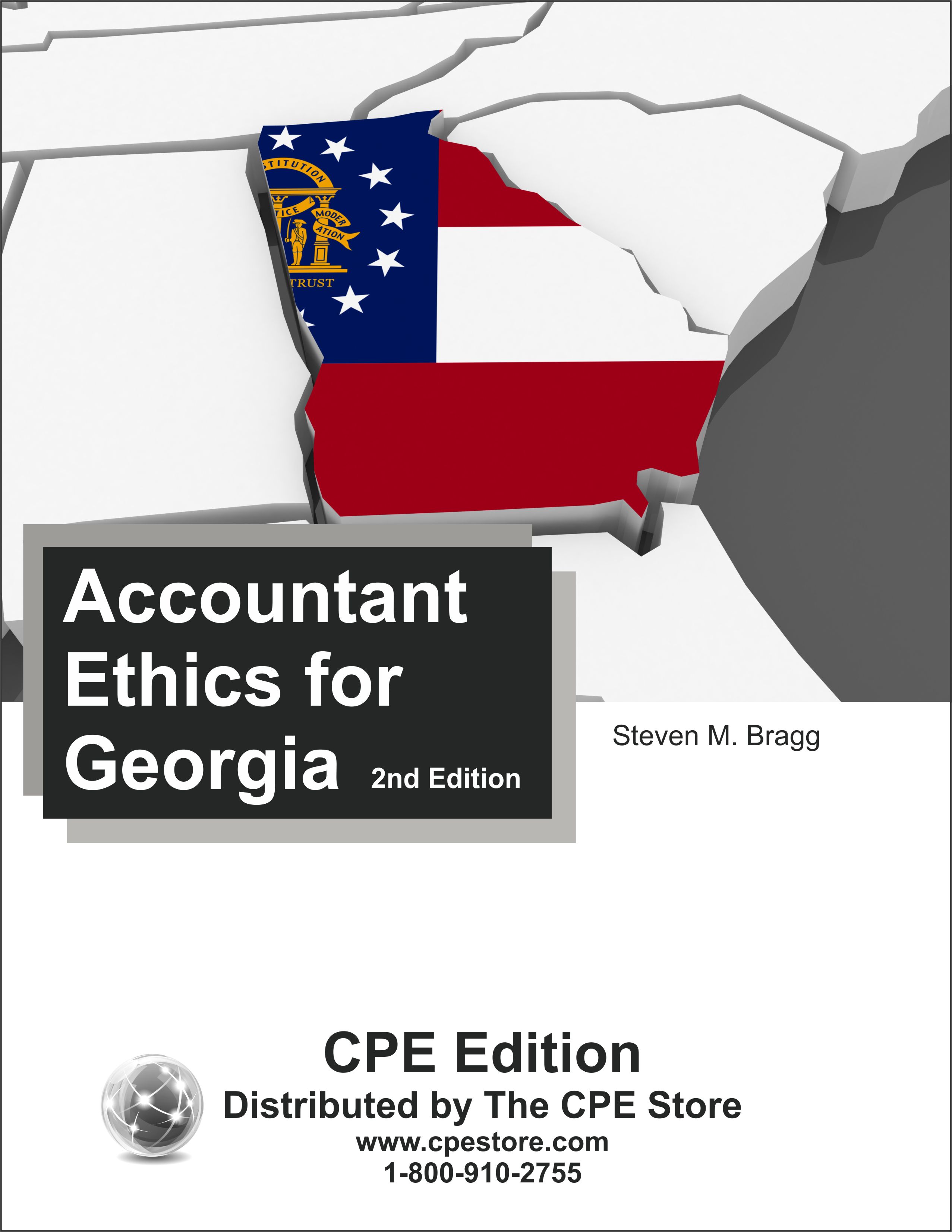
Course number: ETH070102
Approved by the Georgia Board. The Accountant Ethics for Georgia course explores the AICPA Code of Professional Conduct, various tools used to resolve business ethics scenarios, and the accountancy rules of the Georgia State Board of Accountancy. Examples are used throughout the course materials to illustrate various ethics and regulatory concepts. The intent is to provide the CPA with the fundamental concepts needed to conduct one’s activities with the highest degree of integrity. Course level: Basic. Prerequisites: None. Course includes integrated text and study guide, final exam and grading service.NASBA field of study: Regulatory Ethics Course credit: 4 hours
Printed Version$49
PDF$49
Colleague Test(s)$35
Contents
Accountant's Guide to Computers and Information Technology
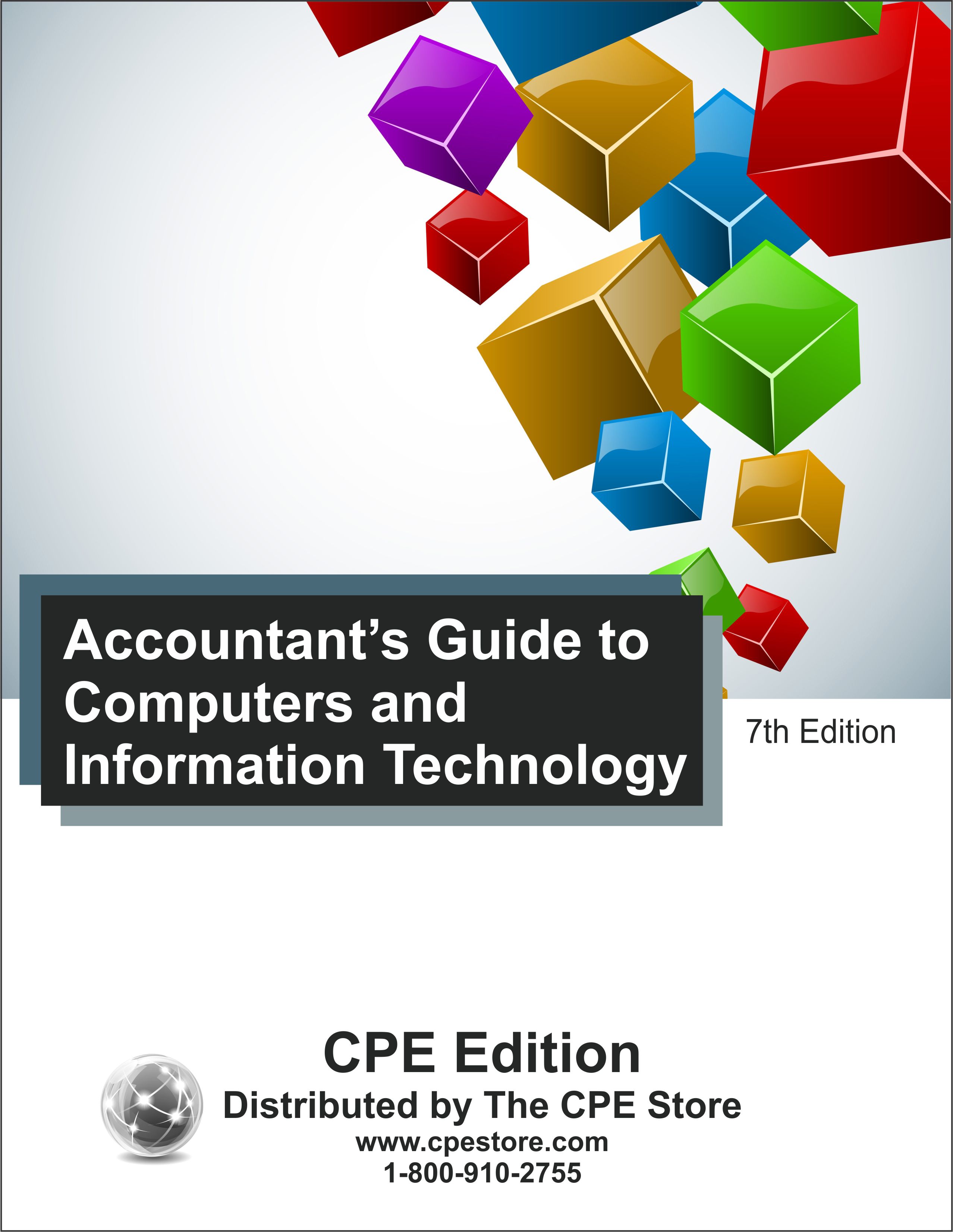
Course number: CC764707
The course covers what every accountant should know about computers, information systems, and technology. The practical and efficient use of computer technology is highlighted. Popular accounting, compliance, tax, and audit software packages are discussed, along with trends in the computer market. The importance of information system and data protection, databases, client/server computing, and cloud computing are discussed, with an emphasis on security issues. The course also teaches you how to make lease-purchase-rent decisions and analyze and evaluate information technology (IT) investments. Course level: Basic. Prerequisites: None. Course includes integrated text and study guide, final exam, and grading service.NASBA field of study: Information Technology Course credit: 6 hours
PDF$59
Colleague Test(s)$20
Contents
Accountants' Guidebook
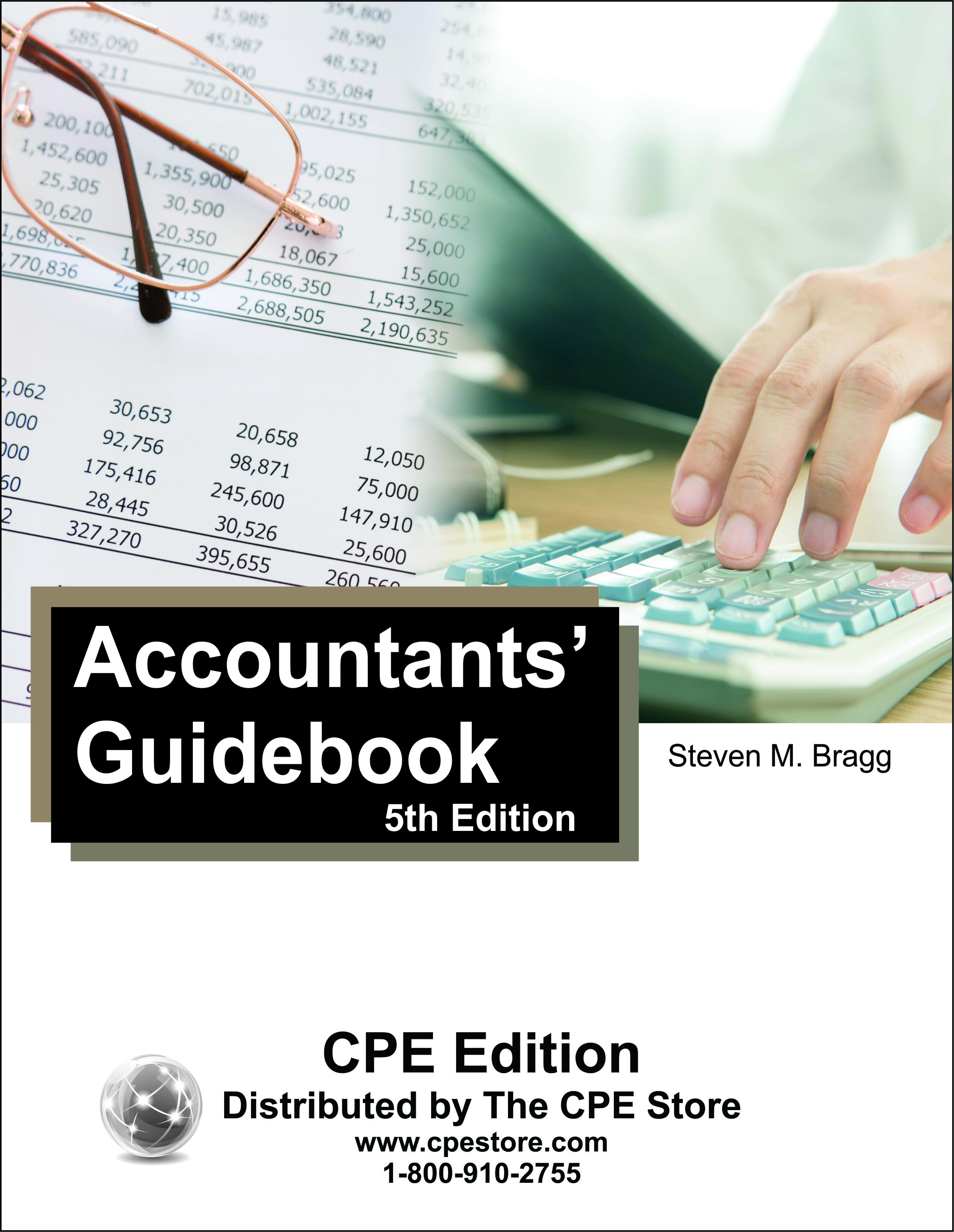
Course number: AA477705
This course is intended to improve the performance of accountants by increasing their knowledge of the practical operational details of accounting, as well as the accounting standards to which they are subjected. Covers accounting for receivables, investments, inventory, intangibles, equity, payroll, stock-based compensation, income taxes, business combinations, and property, plant & equipment. You will also learn about revenue recognition, foreign currency matters, accounting for leases, accounting changes and error corrections, closing the books, preparing financial statements, public company financial reporting, management reports, cash receipts management, collection tactics, payroll management, budgeting, business ratios, cost object analysis, and more. Course level: Basic. Prerequisites: None. Course includes integrated text and study guide, final exam, and grading service.NASBA field of study: Accounting Course credit: 30 hours
Printed Version$209
PDF$209
Colleague Test(s)$90
Contents
Accounting and Reporting for Government
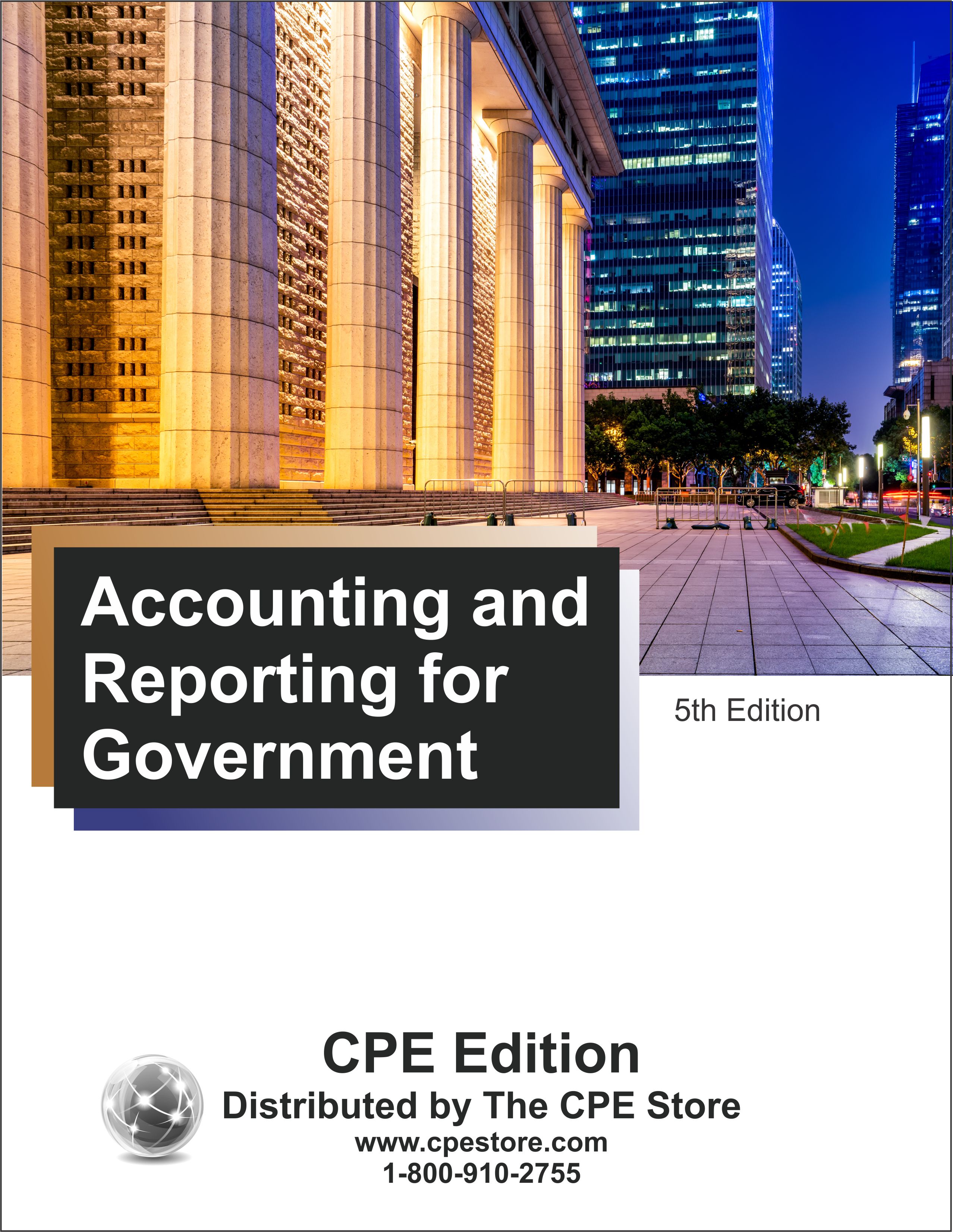
Course number: AA799805
This course on accounting for governmental entities is intended to be used by anyone who would like to gain knowledge of accounting and financial reporting currently recommended for state and local governmental units. The course provides an overview of (1) the fundamental concepts underlying state and local governmental accounting and reporting, (2) the importance of budgetary accounting in government, and (3) the recognition rules and journal entries related to governmental financing. It also describes (1) the accounts and journal entries related to transactions specific to governmental entities, (2) the process of defining the governmental reporting entity, (3) the components of the annual comprehensive financial report (ACFR), (4) the reporting requirements for government-wide and fund-based financial statements, and (5) other required information in the ACFR. Course level: Basic. Prerequisites: None. Course includes integrated text and study guide, final exam and grading service.NASBA field of study: Accounting (Governmental) Course credit: 8 hours
Printed Version$69
PDF$69
Colleague Test(s)$25
Contents
Accounting Best Practices
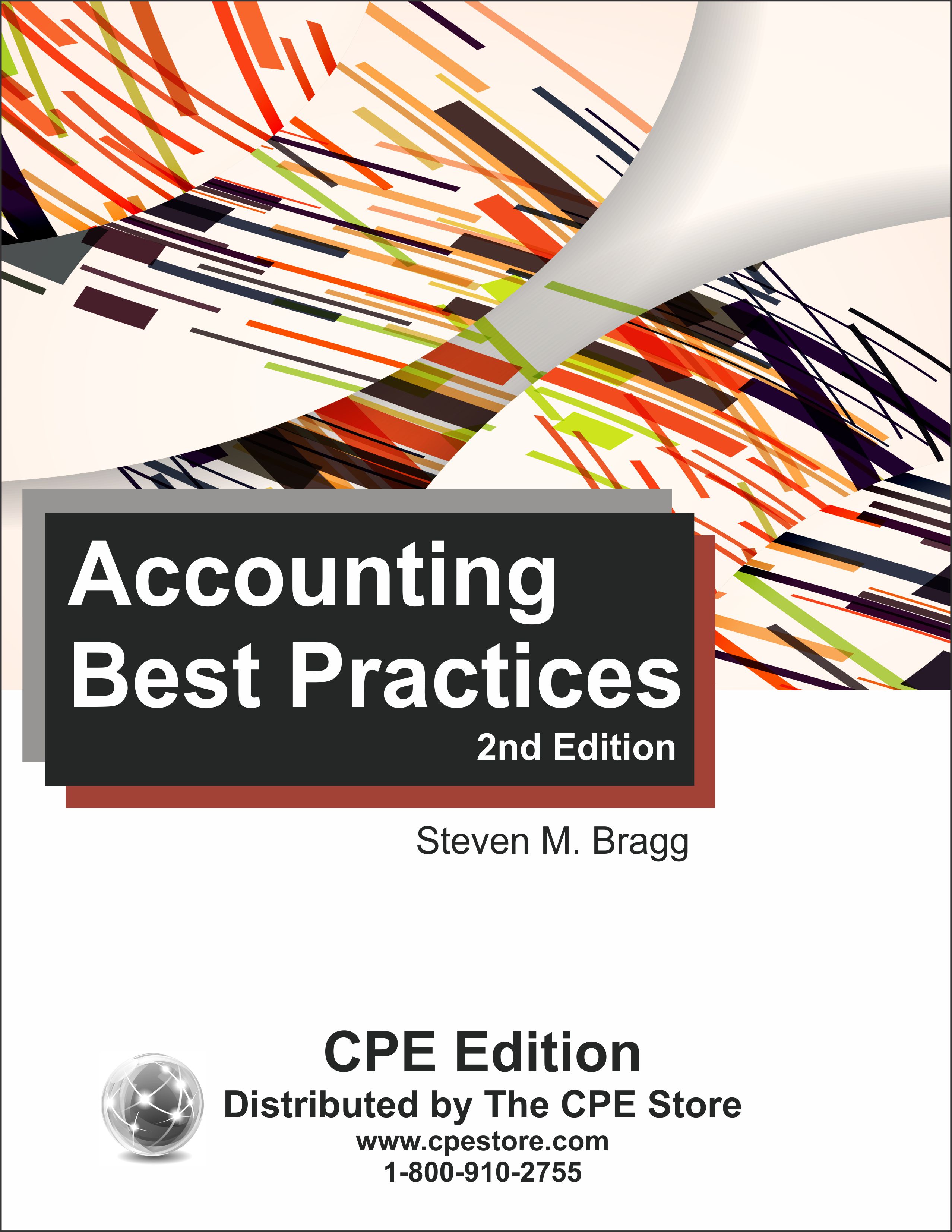
Course number: AA421302
The accounting department contains a broad array of processes, all of which can be fine-tuned to improve their performance. In the Accounting Best Practices course, we cover hundreds of best practices and tips that can reduce costs, increase transaction speeds, and eliminate errors. The topics covered include billings, budgeting, cost accounting, payroll, and much more. This is an essential guide for the practicing accountant. Course level: Basic. Prerequisites: None. Course includes integrated text and study guide, final exam, and grading service.NASBA field of study: Accounting Course credit: 12 hours
Printed Version$89
PDF$89
Colleague Test(s)$35
Contents
Accounting Changes and Error Corrections
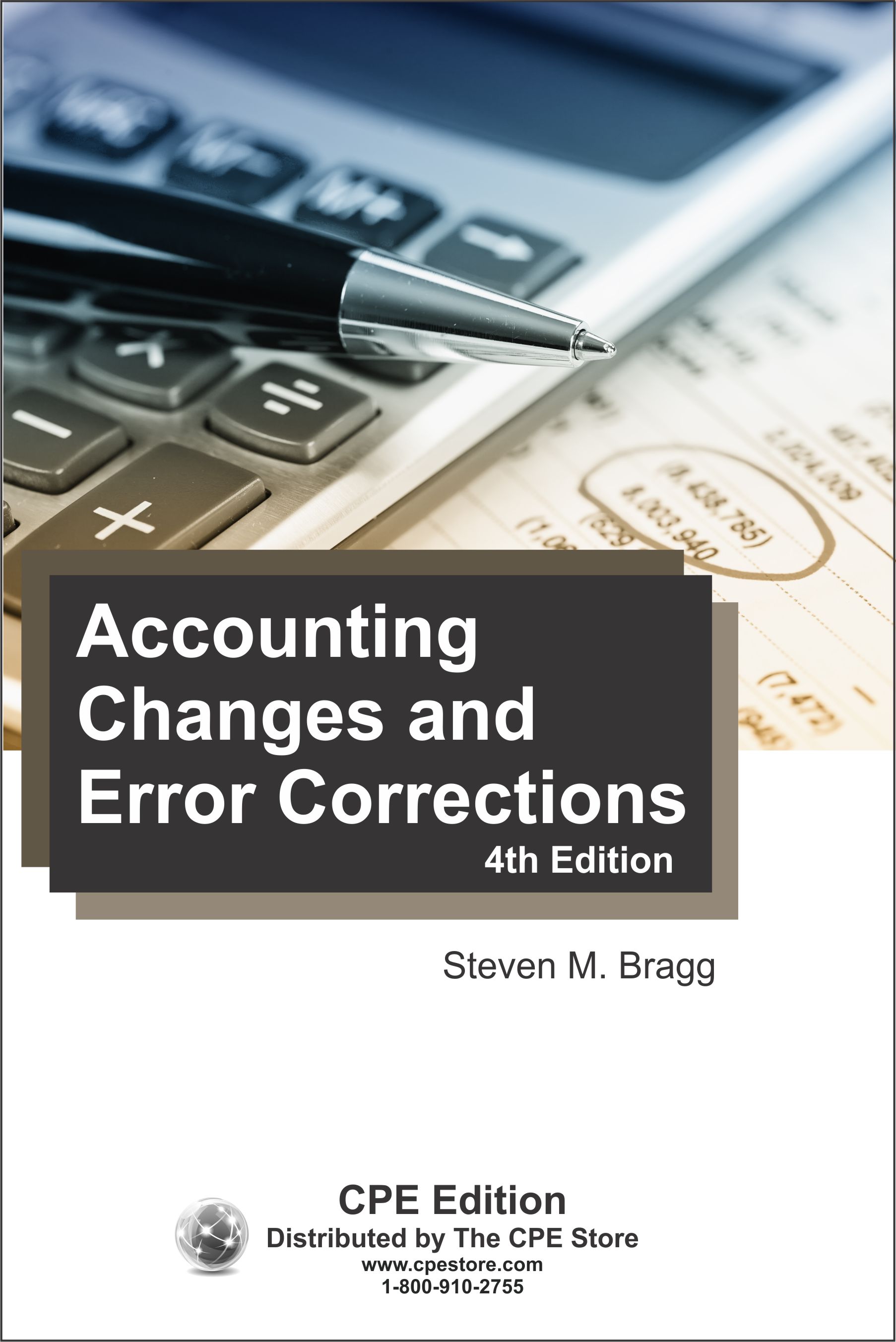
Course number: AA458204
Accounting Changes and Error Corrections describes the situations in which it is necessary to make adjustments to prior period financial statements, and when adjustments are only needed for the current period or in future periods. The differing treatments of changes in accounting principle, accounting estimate, and reporting entity are noted, as well as how to deal with the correction of errors in previously issued financial statements. The course also addresses the concept of materiality, which pertains to the correction of accounting errors. Course level: Basic. Prerequisites: None. Course includes integrated text and study guide, final exam and grading service.NASBA field of study: Accounting Course credit: 1 hour
Printed Version$19
PDF$19
Colleague Test(s)$12
Contents
Accounting Controls
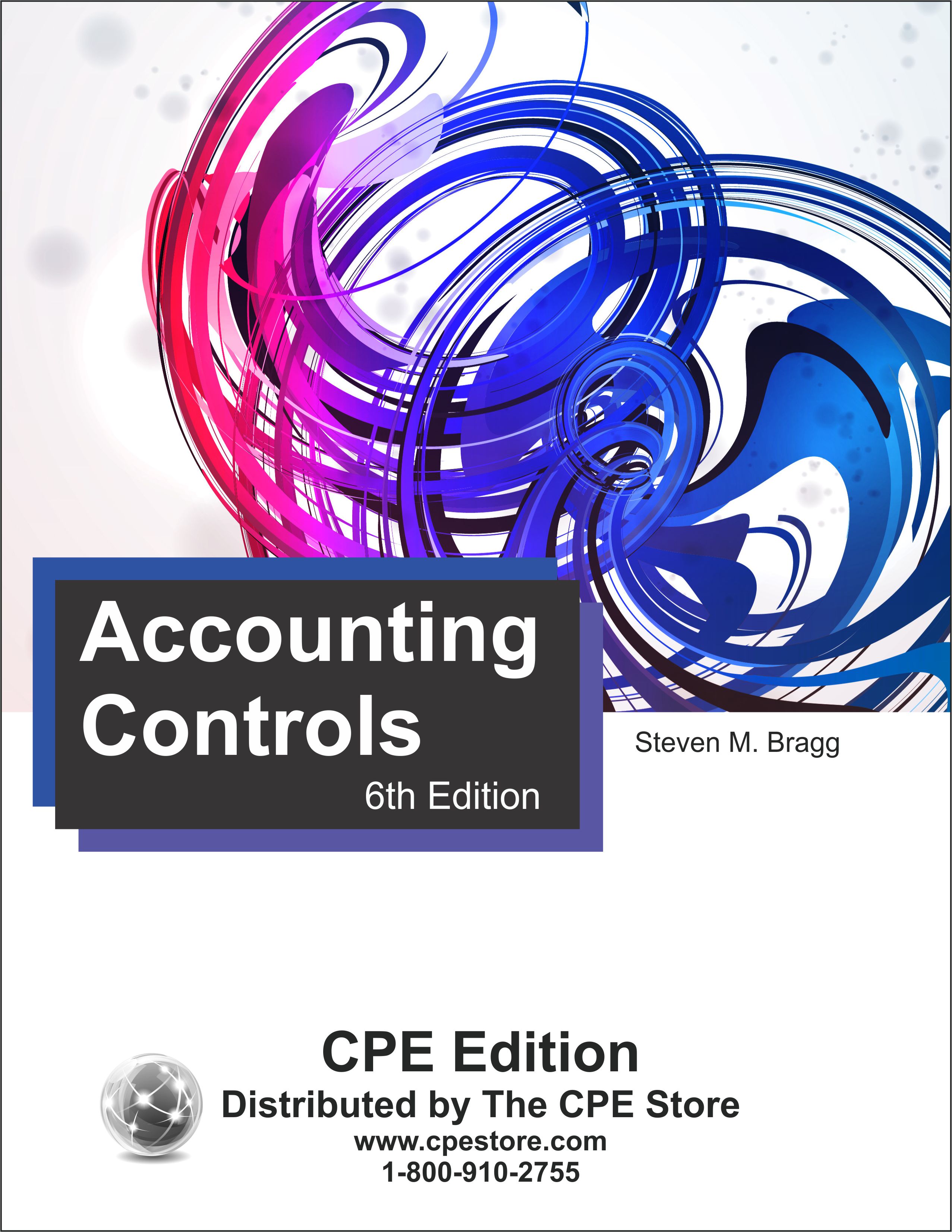
Course number: AA471806
Describes the controls needed for all of the major functional areas of a business, including order entry, credit, receipt of cash, shipping, customer billing, accounts receivable collection, purchasing, accounts payable, expense report processing, procurement cards, petty cash, receiving, payroll, fixed assets, cash forecasting, and funding-related aspects of the treasury function. Also describes the types of controls needed for closing the books. Includes numerous illustrations and flowcharts. Course level: Basic. Prerequisites: None. Course includes integrated text and study guide, final exam and grading service.NASBA field of study: Accounting Course credit: 12 hours
Printed Version$89
PDF$89
Colleague Test(s)$35
Contents
Accounting Desk Book: Selected Topics

Course number: AA990231
Discusses selected topics that cover many aspects of accounting. These topics include the principles, disclosure, analysis, and interpretation of financial statements, revenues and expenses, stockholders’ equity, the Statement of Cash Flows, segment reporting, cost accounting, budgeting, change in accounting methods, auditor independence rules, practicing before the IRS and the power of attorney guidelines, internet accounting, e-commerce, insurance accounting, expert witness guidelines, internal controls, the going concern concept, interim reporting guidelines, reporting of cash payments over $10,000, goodwill, foreign currency translations, the FASB codification project and international convergence, and the whistleblower program. Course level: Basic. Prerequisites: None. Course includes integrated text and study guide, final exam, and grading service.NASBA field of study: Accounting Course credit: 24 hours
Printed Version$159
PDF$159
Colleague Test(s)$70
Contents
Accounting Ethics: Duties and Responsibilities
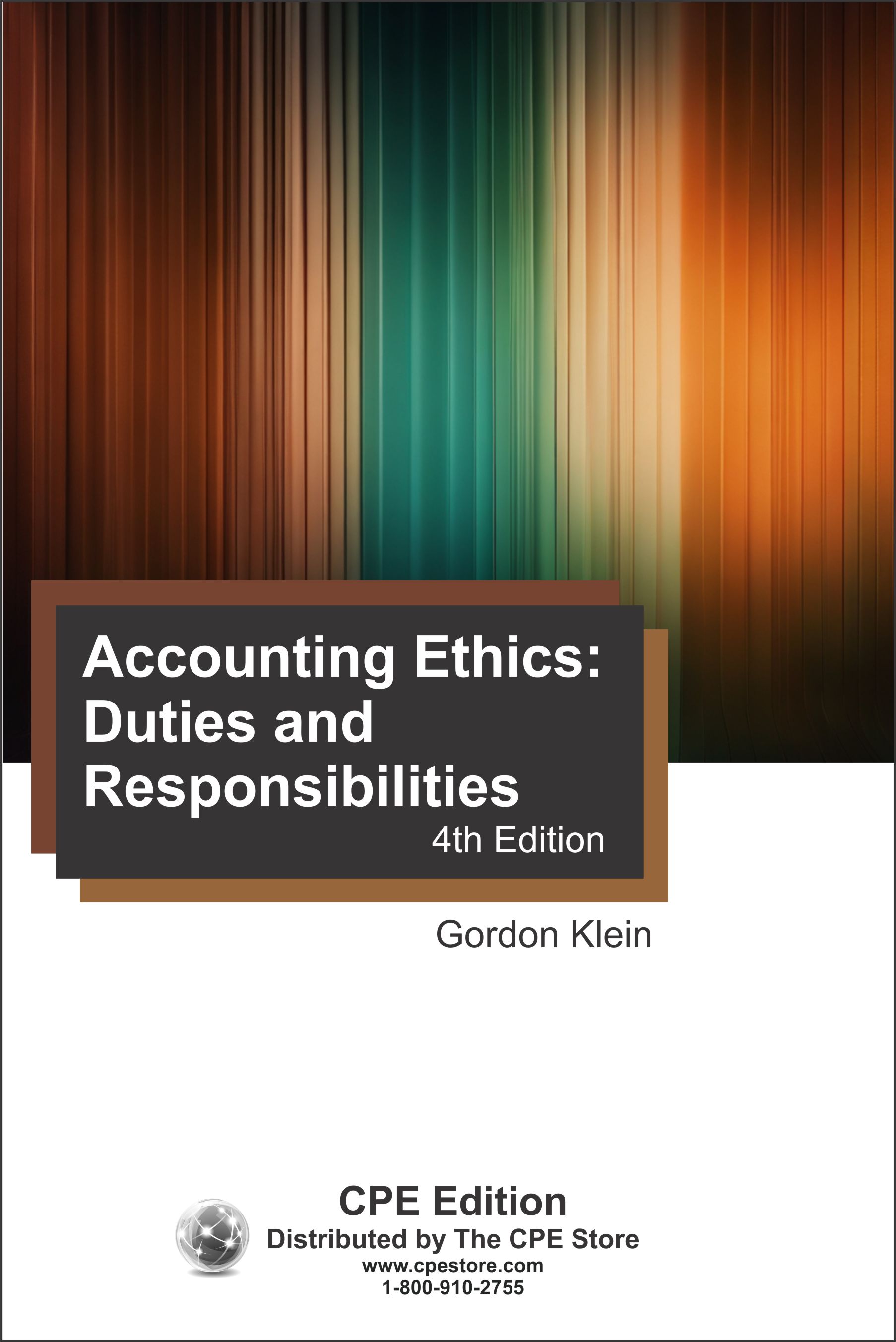
Course number: ETH640404
This ethics course meets the requirements for those states which require a general or behavioral ethics course. It uses a contemporary focus which immerses you in real world ethical questions. Covers topics related to: duties as a whistleblower; duties of tax professionals; duties of fiduciaries including financial planners, trustees, and executors; duties in the accounting workplace; and more. Course level: Basic. Prerequisites: None. Course includes integrated text and study guide, final exam, and grading service. Note: Course meets the ethics requirement for the following states: AK, AL, AR*, CA**, CO, CT, DC, HI, ID, IA, IL, IN, KS, KY, MA, MD, ME, MI, MN, MO, MT, NC, ND, NE, NH, NM, NV, OK, PA, RI, VT, WI, WV, and WV. (*AR requires 1 hour of state-specific; **CA also requires a state-approved course once every 6 years; this course does not meet that requirement). If there is any doubt as to acceptability for your specific requirements, please check with your State Board.NASBA field of study: Behavioral Ethics Course credit: 4 hours
Printed Version$49
PDF$49
Colleague Test(s)$35
Contents
Accounting Ethics: Professional Rules of Conduct
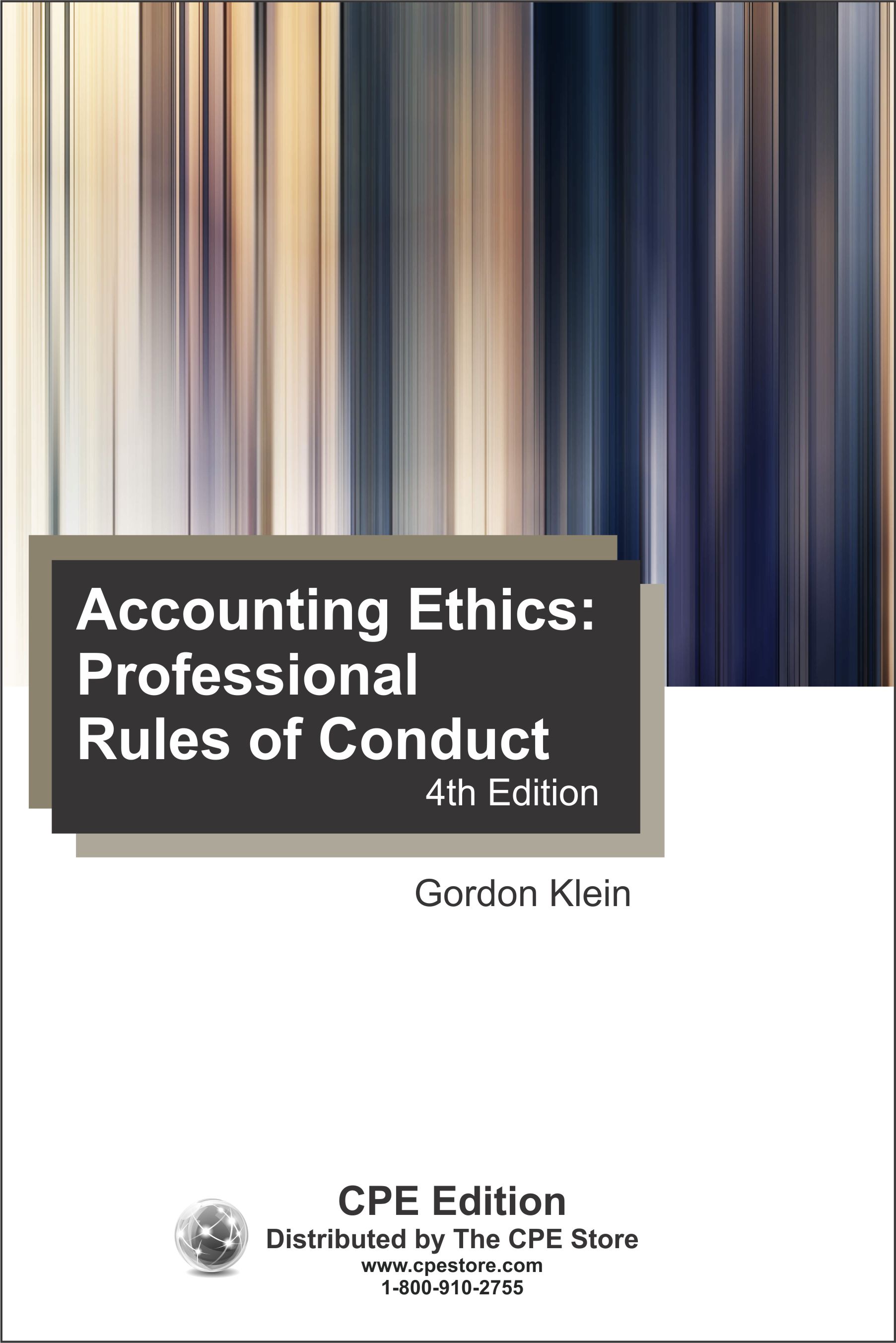
Course number: ETH640304
This ethics course meets the requirements for those states which require a general or behavioral ethics course. It uses a contemporary focus which immerses you in real world ethical questions. Covers topics related to professional rules of conduct including: discreditable acts including discrimination, deceit, and disclosure; confidentiality; independence and moral seduction; conflicts of interest; and more. Course level: Basic. Prerequisites: None. Course includes integrated text and study guide, final exam, and grading service. Note: Course meets the ethics requirement for the following states: AK, AL, AR*, CA**, CO, CT, DC, HI, ID, IA, IL, IN, KS, KY, MA, MD, ME, MI, MN, MO, MT, NC, ND, NE, NH, NM, NV, OK, PA, RI, VT, WI, WV, and WV. (*AR requires 1 hour of state-specific; **CA also requires a state-approved course once every 6 years; this course does not meet that requirement). If there is any doubt as to acceptability for your specific requirements, please check with your State Board.NASBA field of study: Behavioral Ethics Course credit: 4 hours
Printed Version$49
PDF$49
Colleague Test(s)$35
Contents
Accounting Ethics: Understanding Ethical Frameworks
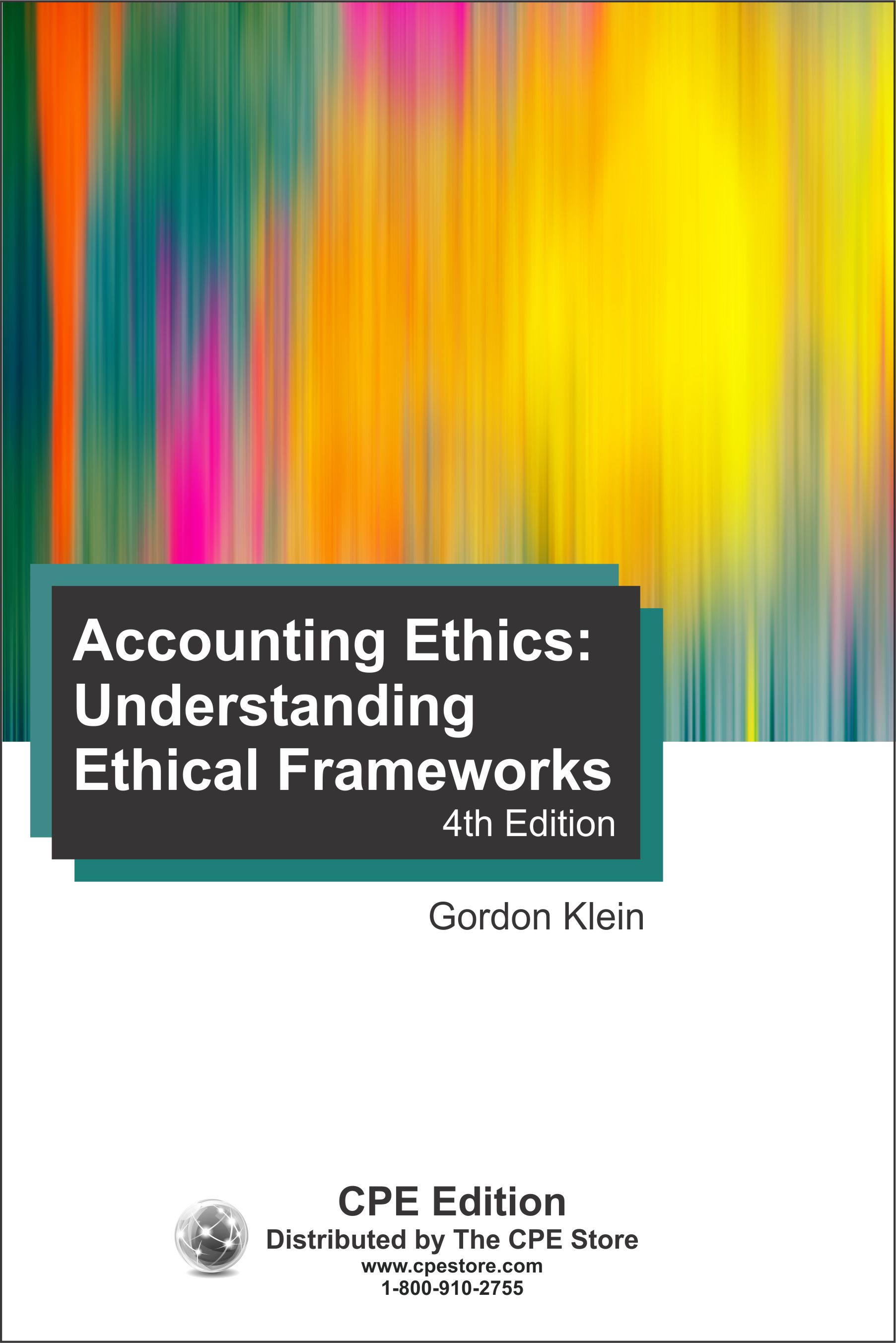
Course number: ETH640104
This ethics course meets the requirements for those states which require a general or behavioral ethics course. It uses a contemporary focus which immerses you in real world ethical questions. Covers topics related to: ethical principles and reasoning; core philosophies; virtue, justice, and social responsibility; and more. Course level: Basic. Prerequisites: None. Course includes integrated text and study guide, final exam, and grading service. Note: Course meets the ethics requirement for the following states: AK, AL, AR*, CA**, CO, CT, DC, HI, ID, IA, IL, IN, KS, KY, MA, MD, ME, MI, MN, MO, MT, NC, ND, NE, NH, NM, NV, OK, PA, RI, VT, WI, WV, and WV. (*AR requires 1 hour of state-specific; **CA also requires a state-approved course once every 6 years; this course does not meet that requirement). If there is any doubt as to acceptability for your specific requirements, please check with your State Board.NASBA field of study: Behavioral Ethics Course credit: 4 hours
Printed Version$49
PDF$49
Colleague Test(s)$35
Contents
Accounting Ethics: Understanding Unethical Behaviors
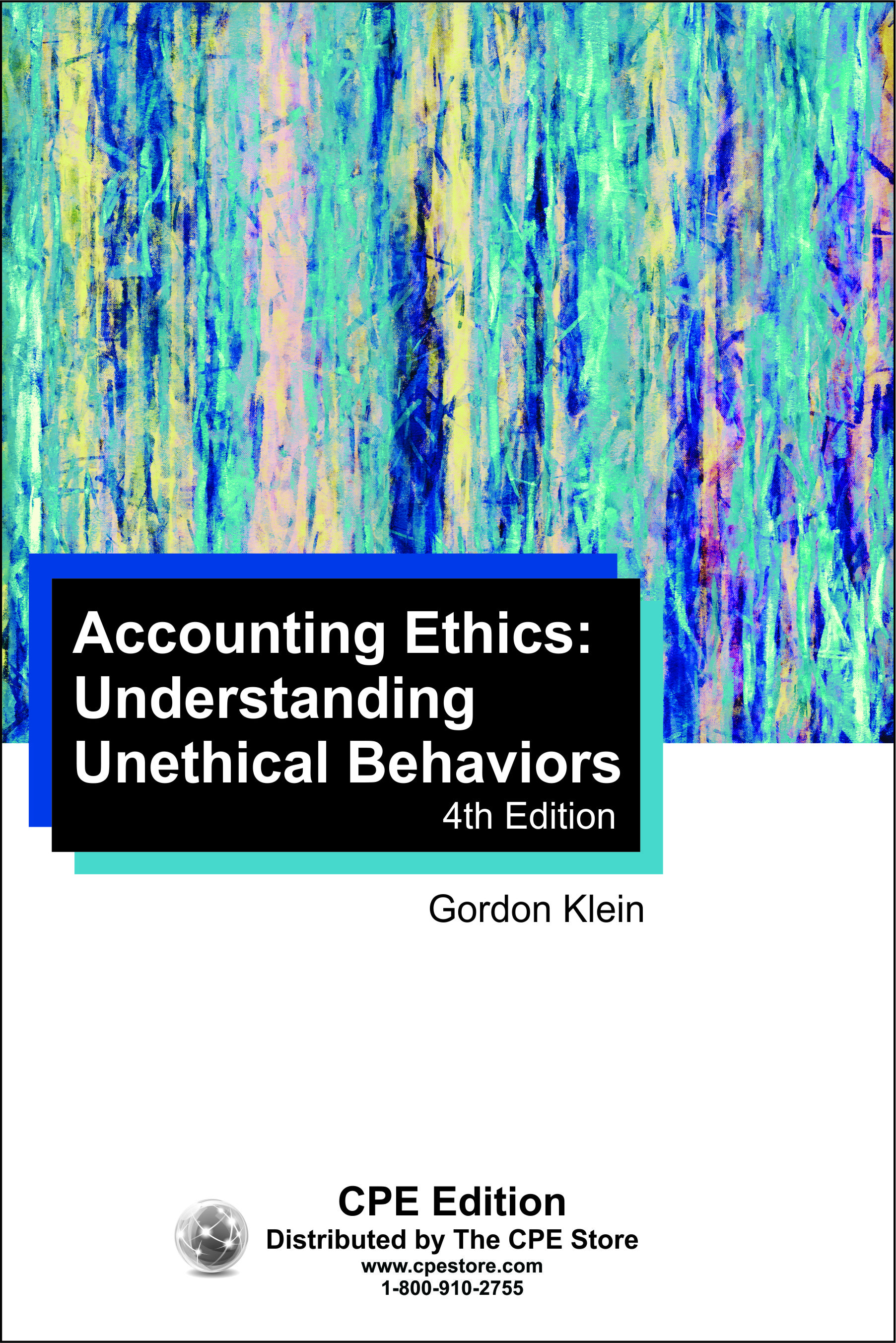
Course number: ETH640204
This ethics course meets the requirements for those states which require a general or behavioral ethics course. It uses a contemporary focus which immerses you in real world ethical questions. Covers topics related to: why we cheat; greed, corruption, and collusion; fraud and earnings management; and more. Course level: Basic. Prerequisites: None. Course includes integrated text and study guide, final exam, and grading service. Note: Course meets the ethics requirement for the following states: AK, AL, AR*, CA**, CO, CT, DC, HI, ID, IA, IL, IN, KS, KY, MA, MD, ME, MI, MN, MO, MT, NC, ND, NE, NH, NM, NV, OK, PA, RI, VT, WI, WV, and WV. (*AR requires 1 hour of state-specific; **CA also requires a state-approved course once every 6 years; this course does not meet that requirement). If there is any doubt as to acceptability for your specific requirements, please check with your State Board.NASBA field of study: Behavioral Ethics Course credit: 4 hours
Printed Version$49
PDF$49
Colleague Test(s)$35
Contents
Accounting for Casinos and Gaming
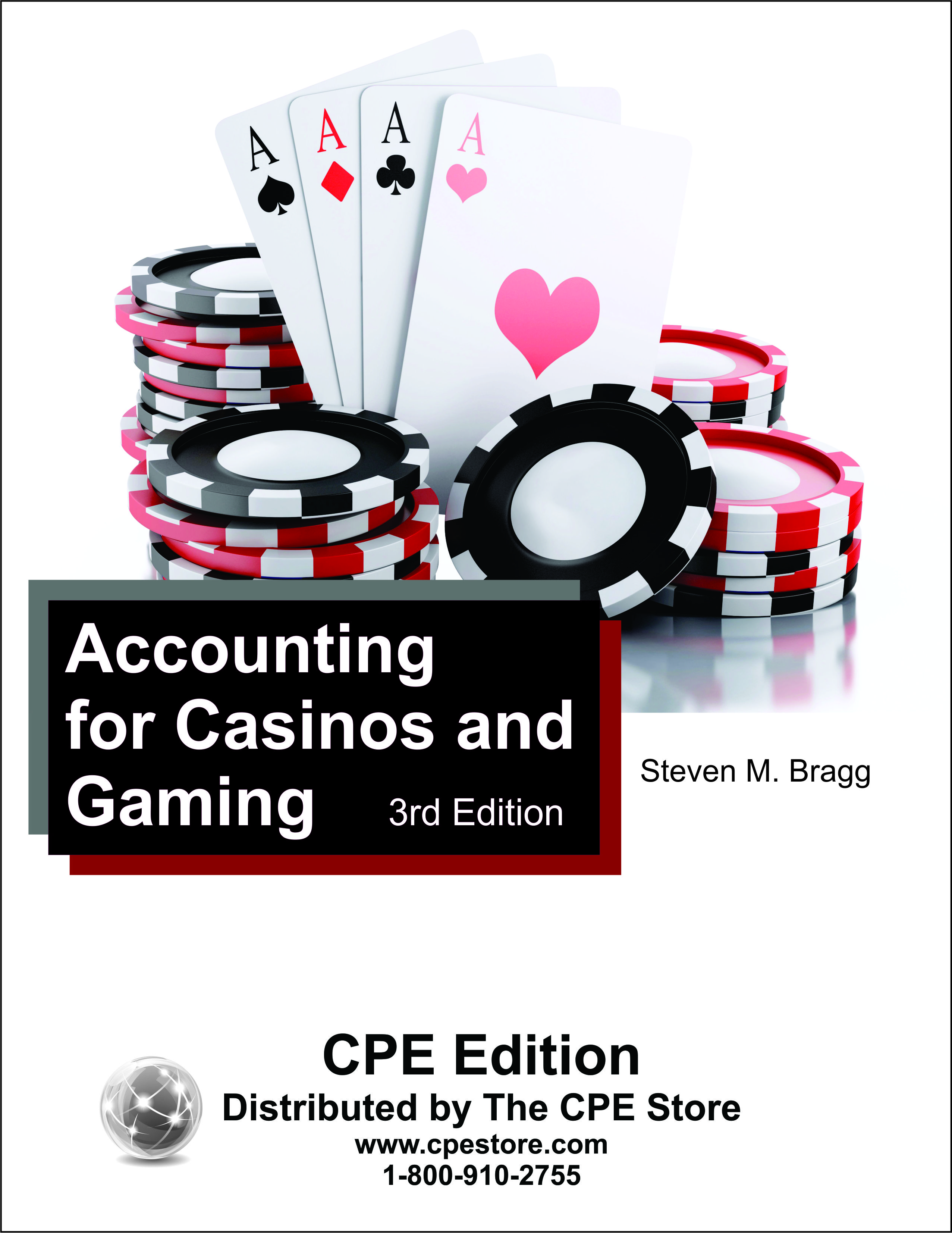
Course number: AA462703
The Accounting for Casinos and Gaming course provides an overview of gaming operations, and describes those accounting issues most relevant to a gaming entity. Topics covered include the accounting for loyalty and incentive programs, jackpots, chips and tokens, licensing fees, payroll, marker collections, fixed assets, and interest capitalization. The course also addresses gaming controls and federal reporting requirements. Course level: Basic. Prerequisites: None. Course includes integrated text and study guide, final exam, and grading service.NASBA field of study: Accounting Course credit: 10 hours
Printed Version$79
PDF$79
Colleague Test(s)$30
Contents
Accounting for Churches
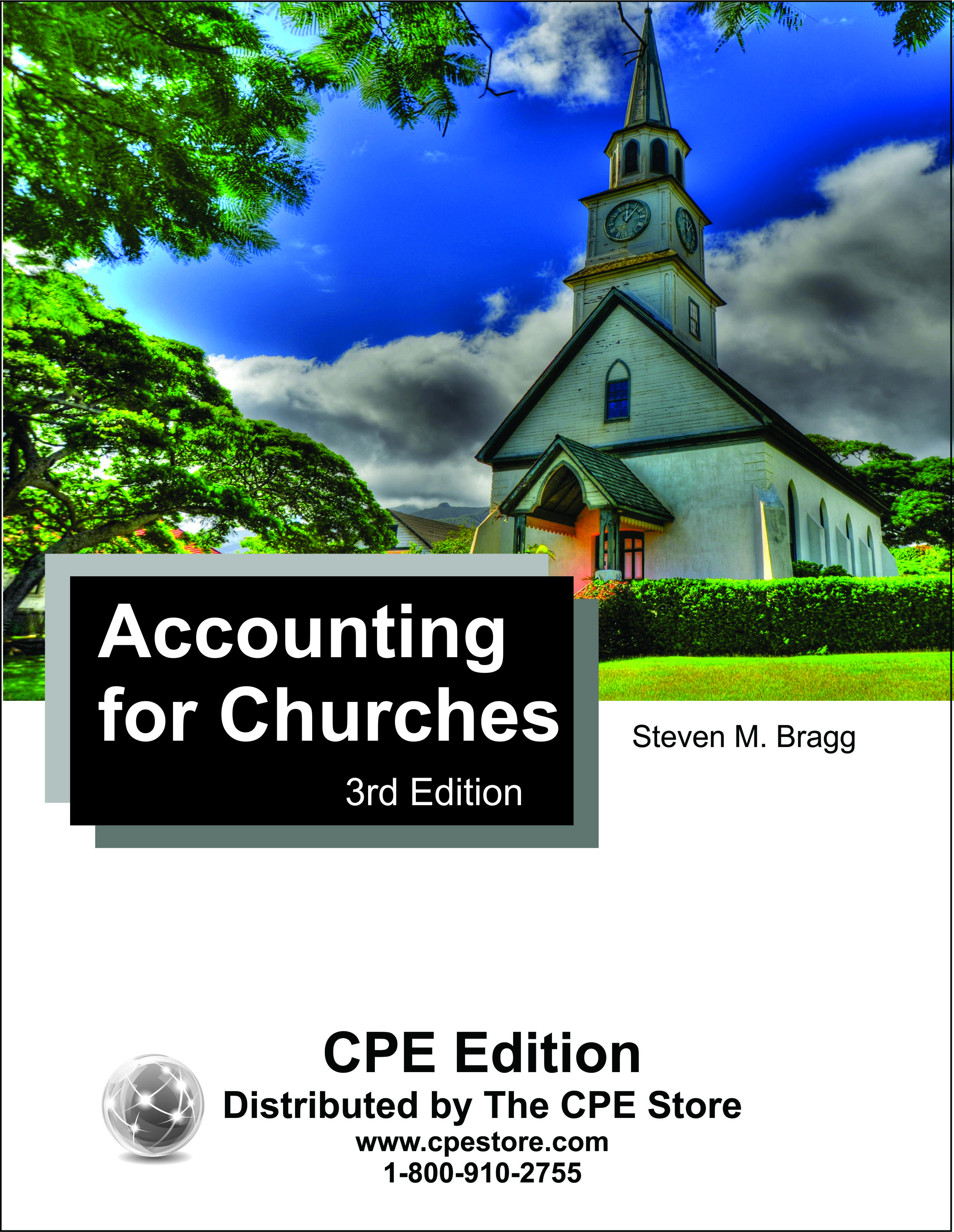
Course number: AA412203
The accounting for a church can be fairly difficult, since it must deal with large numbers of donations, track multiple programs, account for significant fixed assets, and work within special taxation rules. In the Accounting for Churches course, we show how to deal with all of these issues, while also covering payroll, payables, budgeting, closing the books, document retention, accounting controls, and much more. In short, this course is the comprehensive reference for how to account for churches. Course level: Basic. Prerequisites: None. Course includes integrated text and study guide, final exam, and grading service.NASBA field of study: Accounting Course credit: 4 hours
Printed Version$39
PDF$39
Colleague Test(s)$15
Contents
Accounting for Derivatives and Hedges

Course number: AA452803
Accounting for Derivatives and Hedges describes a number of derivatives that can be used to mitigate certain types of risk, with an emphasis on how these derivatives are deployed. The course also notes the accounting, controls, and disclosures for derivatives and hedges, with specific emphasis on cash flow hedges and fair value hedges. Course level: Basic. Prerequisites: None. Course includes integrated text and study guide, final exam, and grading service.NASBA field of study: Accounting Course credit: 3 hours
Printed Version$29
PDF$29
Colleague Test(s)$15
Contents
Accounting for Earnings per Share
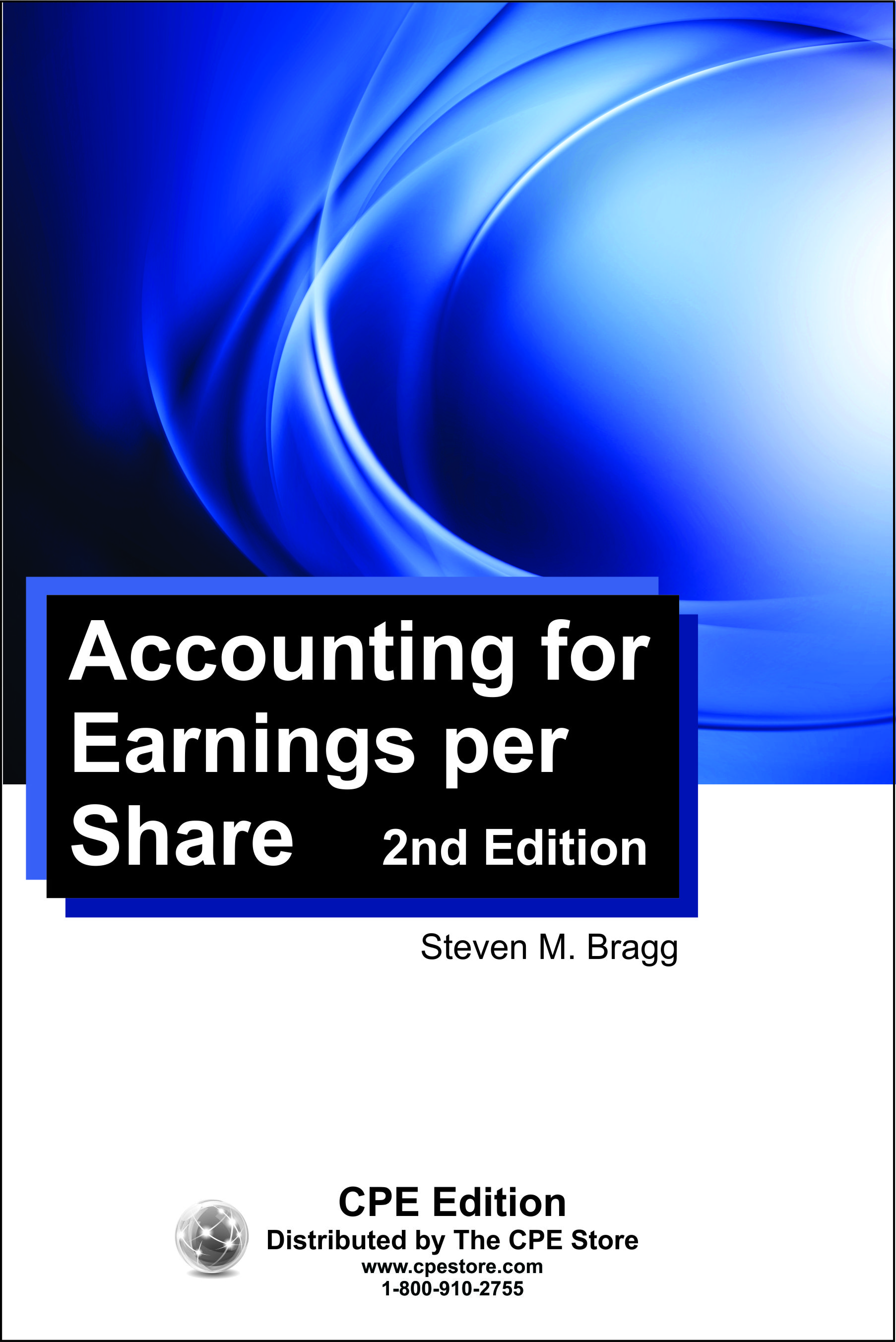
Course number: AA456802
Earnings per share information must be included in the financial statements of a public company. Accounting for Earnings per Share walks you through the process of calculating this information. It does so by describing the requirements for calculating and presenting basic earnings per share and diluted earnings per share. It also addresses the calculation methods used to derive earnings per share, including the treasury stock method, reverse treasury stock method, and two-class method. In short, this course is a handy ongoing reference for anyone who has to calculate earnings per share information on a regular basis. Course level: Basic. Prerequisites: None. Course includes integrated text and study guide, final exam and grading service.NASBA field of study: Accounting Course credit: 1 hour
Printed Version$19
PDF$19
Colleague Test(s)$12
Contents
Accounting for Hedge Funds
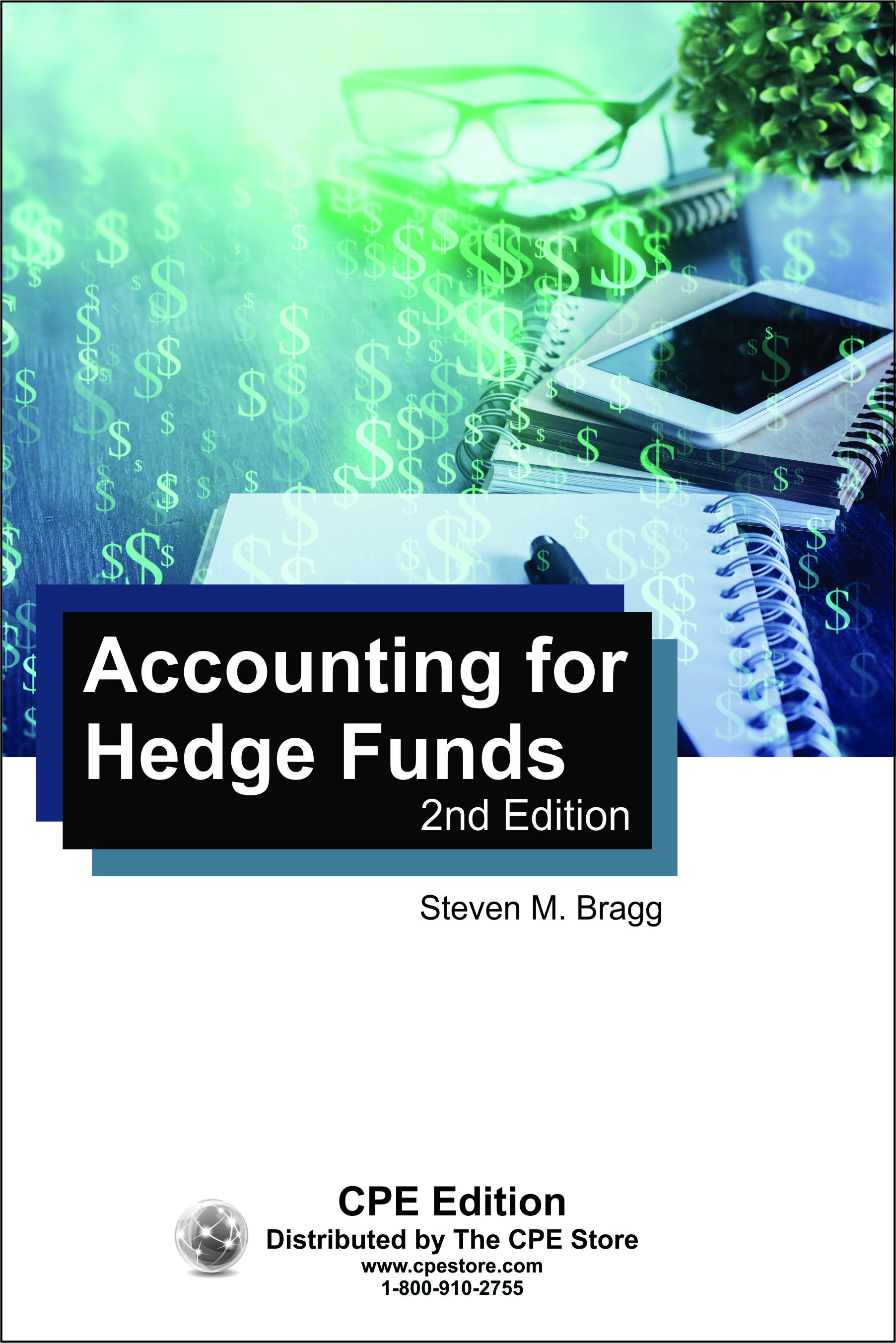
Course number: AA446202
A hedge fund has a number of unique operating and reporting characteristics that present special challenges for the accountant. In the Accounting for Hedge Funds course, we discuss how to deal with these challenges – including the proper accounting for a fund’s investment portfolio, how to calculate and reconcile net asset value, account for investor transactions, and deal with side pocket investments. Course level: Basic. Prerequisites: None. Course includes integrated text and study guide, final exam, and grading service.NASBA field of study: Accounting Course credit: 1 hour
Printed Version$19
PDF$19
Colleague Test(s)$12
Contents
Accounting for Homeowners' Associations

Course number: AA412101
The accounting for and reporting of transactions for a homeowners’ association, as well as other common interest realty associations, is quite extensive. In the Accounting for Homeowners’ Associations course, we cover all aspects of the accounting for many types of common interest realty associations, with an emphasis on homeowners’ associations. The course addresses the accounting for all types of assets, liabilities, revenues, and expenses, as well as financial statements, disclosures, and controls. Course level: Basic. Prerequisites: None. Course includes integrated text and study guide, final exam, and grading service.NASBA field of study: Accounting Course credit: 3 hours
Printed Version$29
PDF$29
Colleague Test(s)$15
Contents
Accounting for Income Taxes
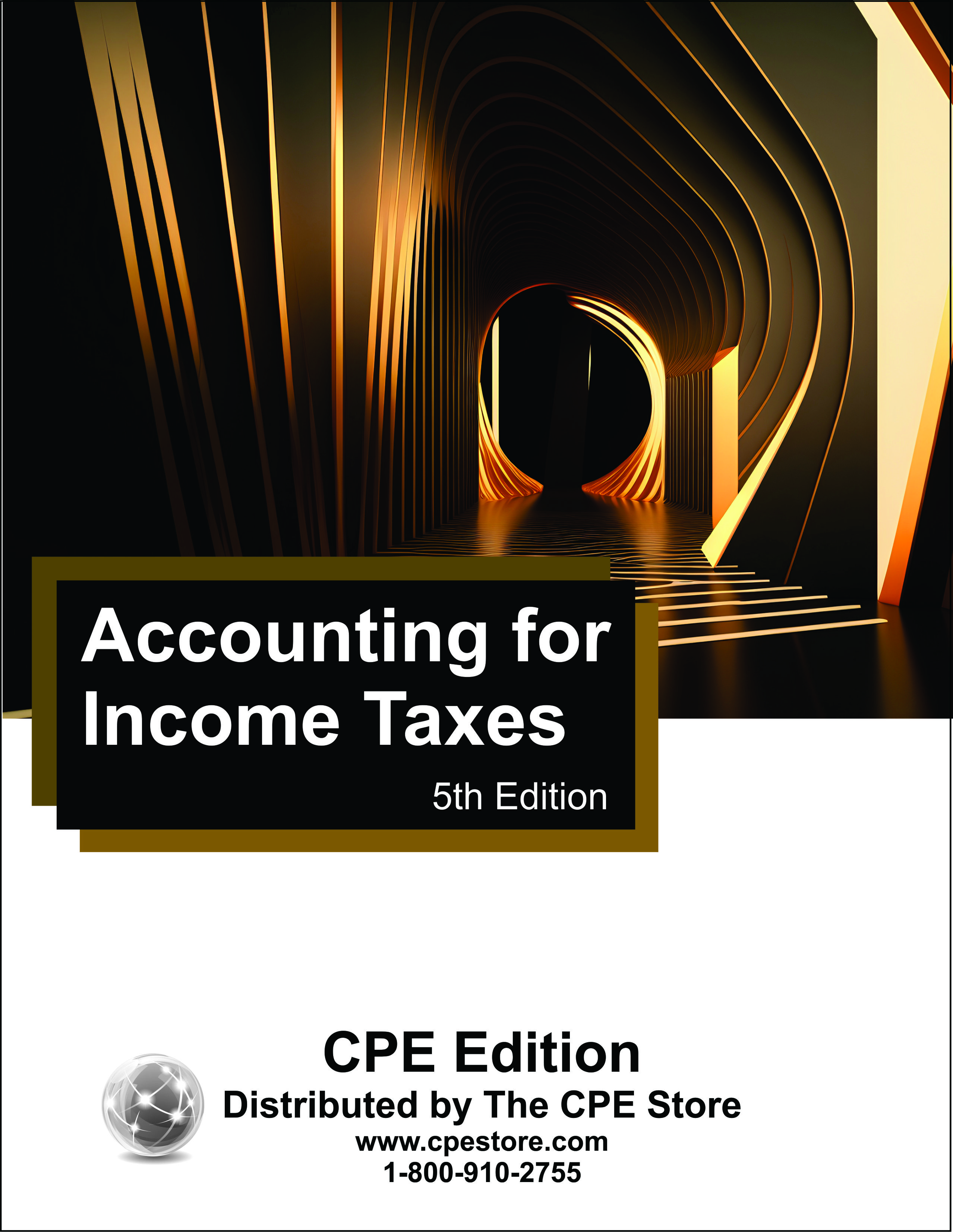
Course number: AA772305
Accounting for income taxes is one of the more challenging topics of financial accounting. Corporations must file an income tax return following the guidelines developed by the IRS. Because GAAP and tax regulations differ in several ways, so frequently do pretax financial income and taxable income. Hence, the amount that a company reports as tax expense will differ from the amount of taxes payable to the IRS. Those differences produce a complex accounting standard. Tax-related restatement is one of the leading causes of financial restatements. This course is designed to help you navigate the complexities of income taxes. It identifies ASC 740 Income Taxes accounting and financial reporting requirements for the effects of taxes based on income. It describes the basic principles such as the asset and liability method, tax positions assessment, and the effect of temporary differences. It explains how to assess whether a valuation allowance is necessary for its deferred tax assets. It also covers key concepts such as asset acquisition, intraperiod allocations, and interim reporting related to income taxes. Finally, it addresses financial statement presentation and disclosure. Specific examples are included to illustrate the application. Relevant references to and excerpts from ASC 740 are discussed throughout the course. Course level: Basic. Prerequisites: None. Course includes integrated text and study guide, final exam and grading service.NASBA field of study: Accounting Course credit: 6 hours
Printed Version$59
PDF$59
Colleague Test(s)$20
Contents
Accounting for Inventory
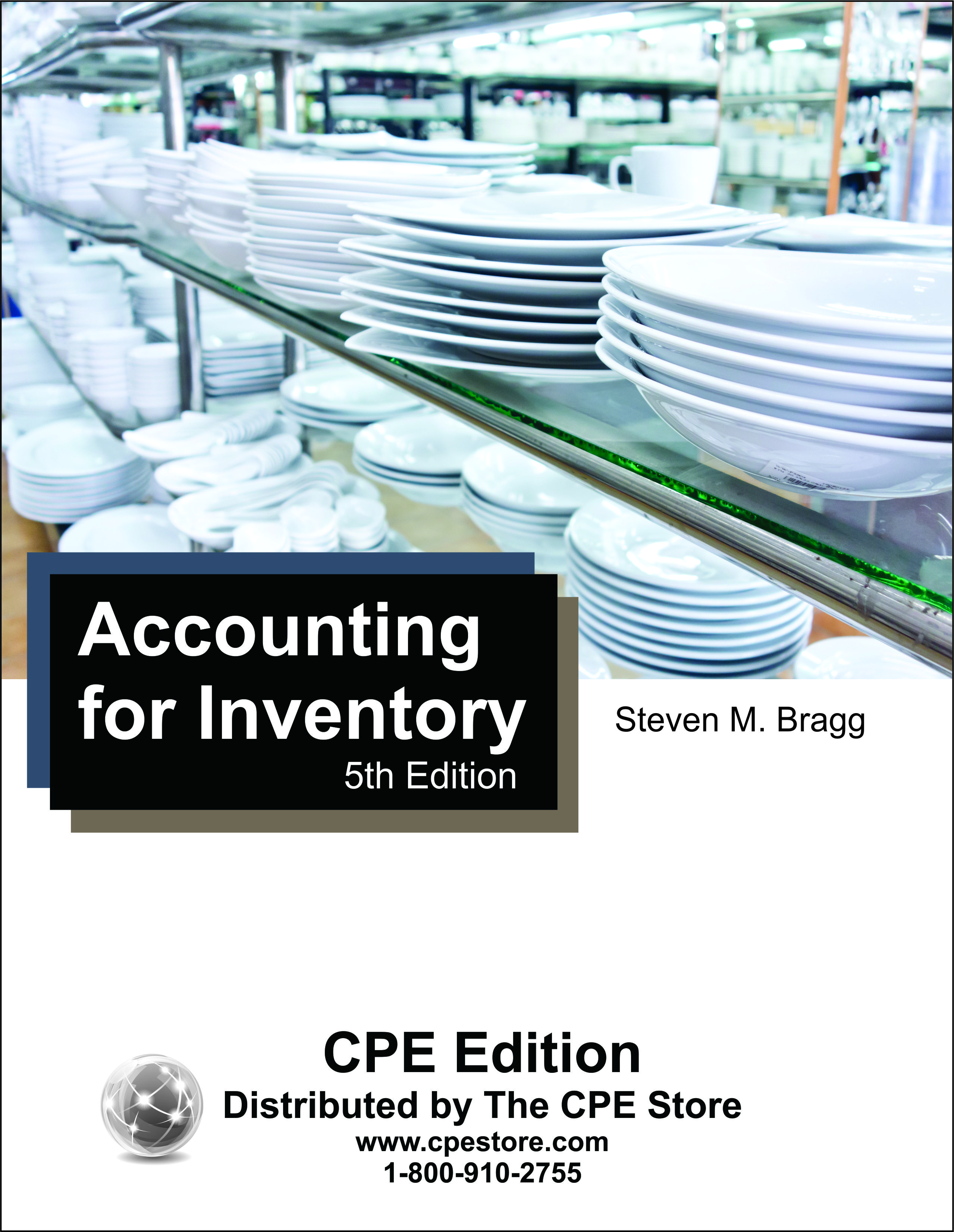
Course number: AA440305
Presents every issue that the accountant might need to create and maintain a comprehensive system of inventory accounting. Topics covered include periodic vs. perpetual inventory systems, inventory counting and reconciliation, estimating ending inventory, cost layering, standard costing, job costing, process control, overhead allocation, the lower of cost or market rule, obsolete inventory, spoilage, rework, scrap, disclosures, transfer pricing, controls, fraudulent inventory transactions, budgeting, measurements, sample journal entries, and much more. Course level: Basic. Prerequisites: None. Course includes integrated text and study guide, final exam and grading service.NASBA field of study: Accounting Course credit: 15 hours
Printed Version$109
PDF$109
Colleague Test(s)$45
Contents
Accounting for Investments
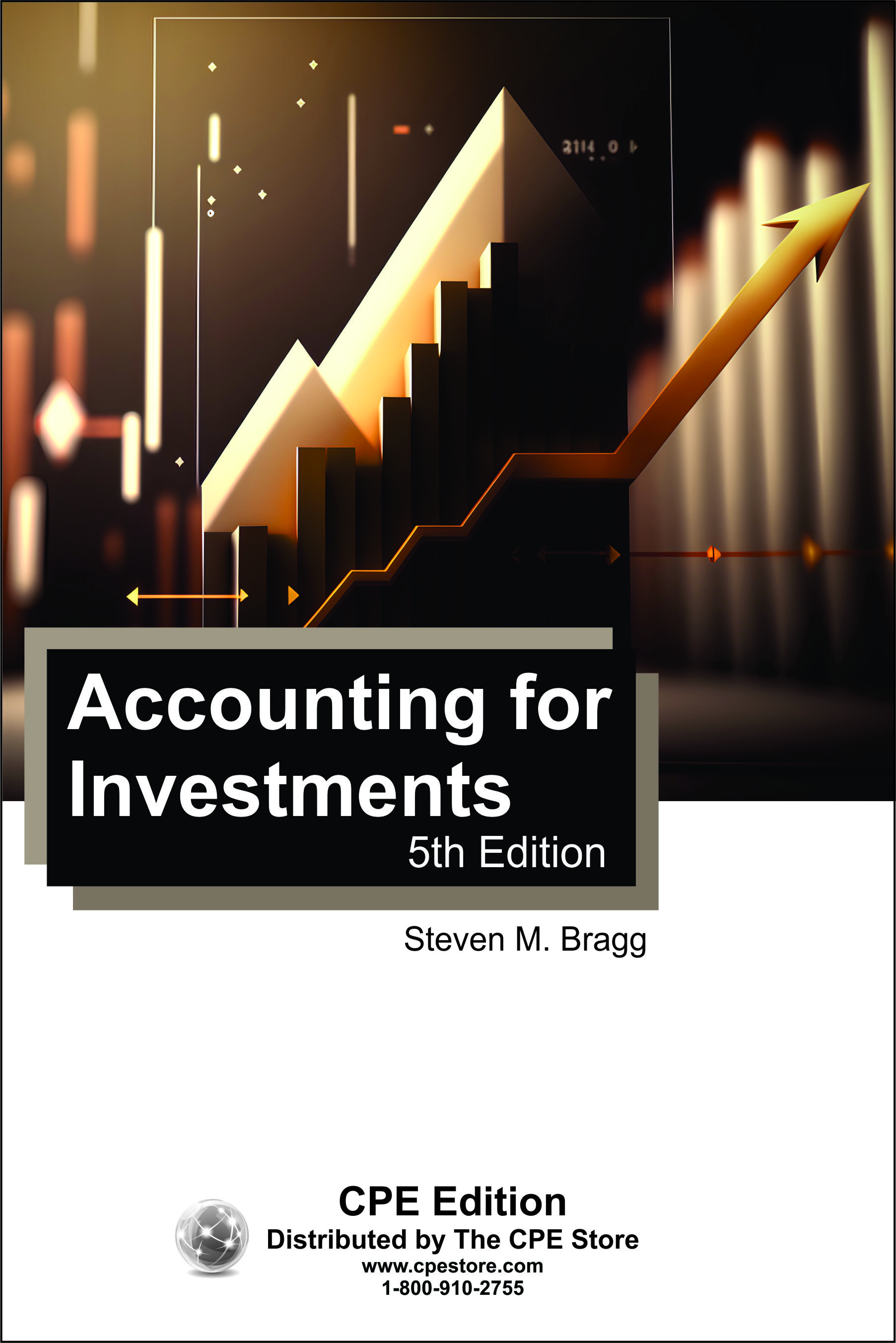
Course number: AA447505
Accounting for Investments describes how the accounting varies for each type of investment classification, notes the treatment of impaired assets, how to deal with realized and unrealized gains and losses, and the treatment of other accounting concepts. The course also describes the controls, forms, and procedures needed to effectively manage investments. Course level: Basic. Prerequisites: None. Course includes integrated text and study guide, final exam, and grading service.NASBA field of study: Accounting Course credit: 3 hours
Printed Version$29
PDF$29
Colleague Test(s)$15
Contents
Accounting for Leases
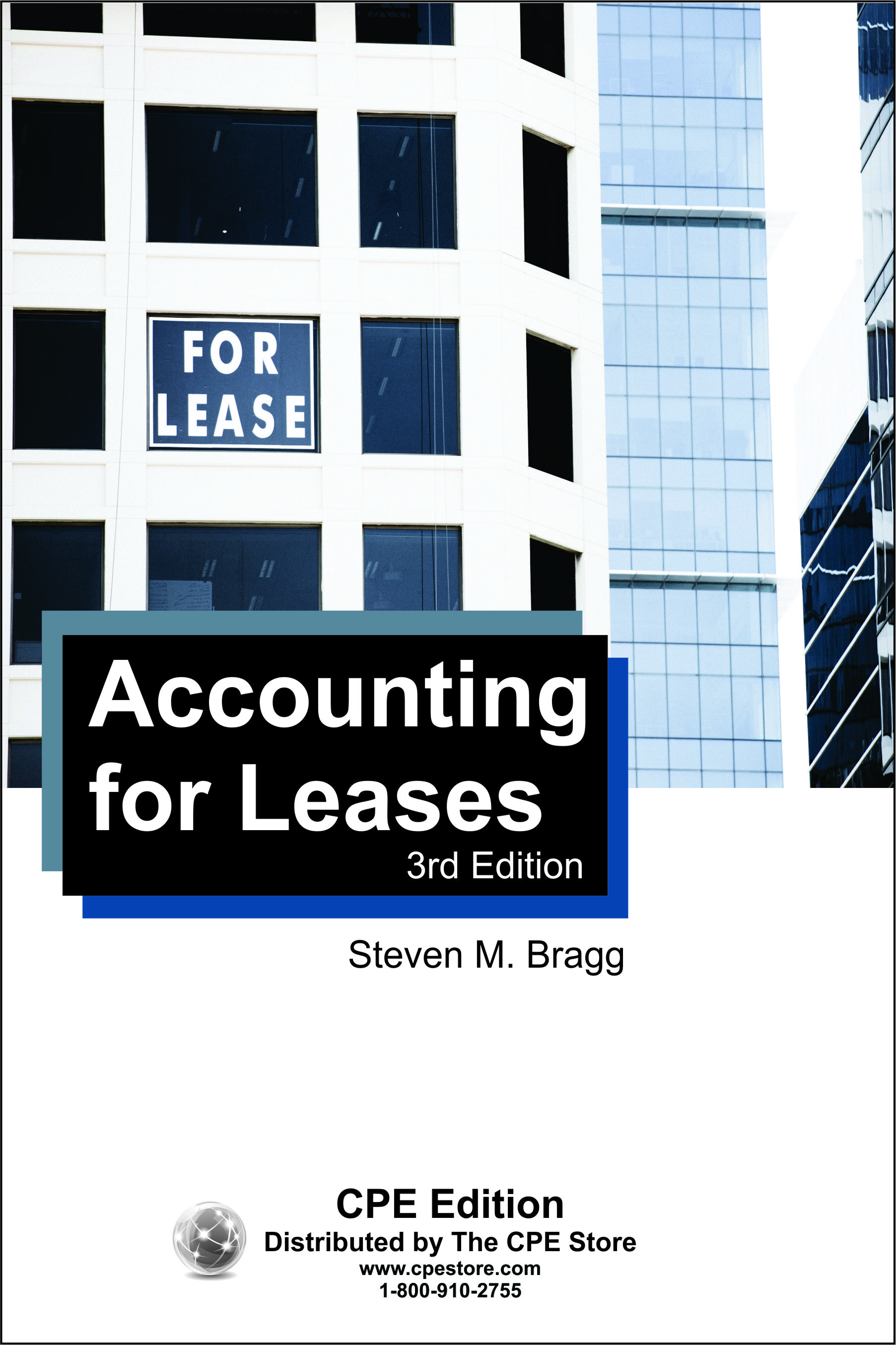
Course number: AA464503
The Accounting for Leases course discusses the different components of leases, the types of leases that may be used by a lessee and lessor, and the accounting for each type of lease. The course also addresses how lease liabilities and right-of-use assets are calculated and presented in the financial statements. A number of additional topics are addressed, including the treatment of initial direct costs, sale and leaseback transactions, and lease-related disclosures. Course level: Basic. Prerequisites: None. Course includes integrated text and study guide, final exam, and grading service.NASBA field of study: Accounting Course credit: 2 hours
Printed Version$19
PDF$19
Colleague Test(s)$12
Contents
Accounting for Managers
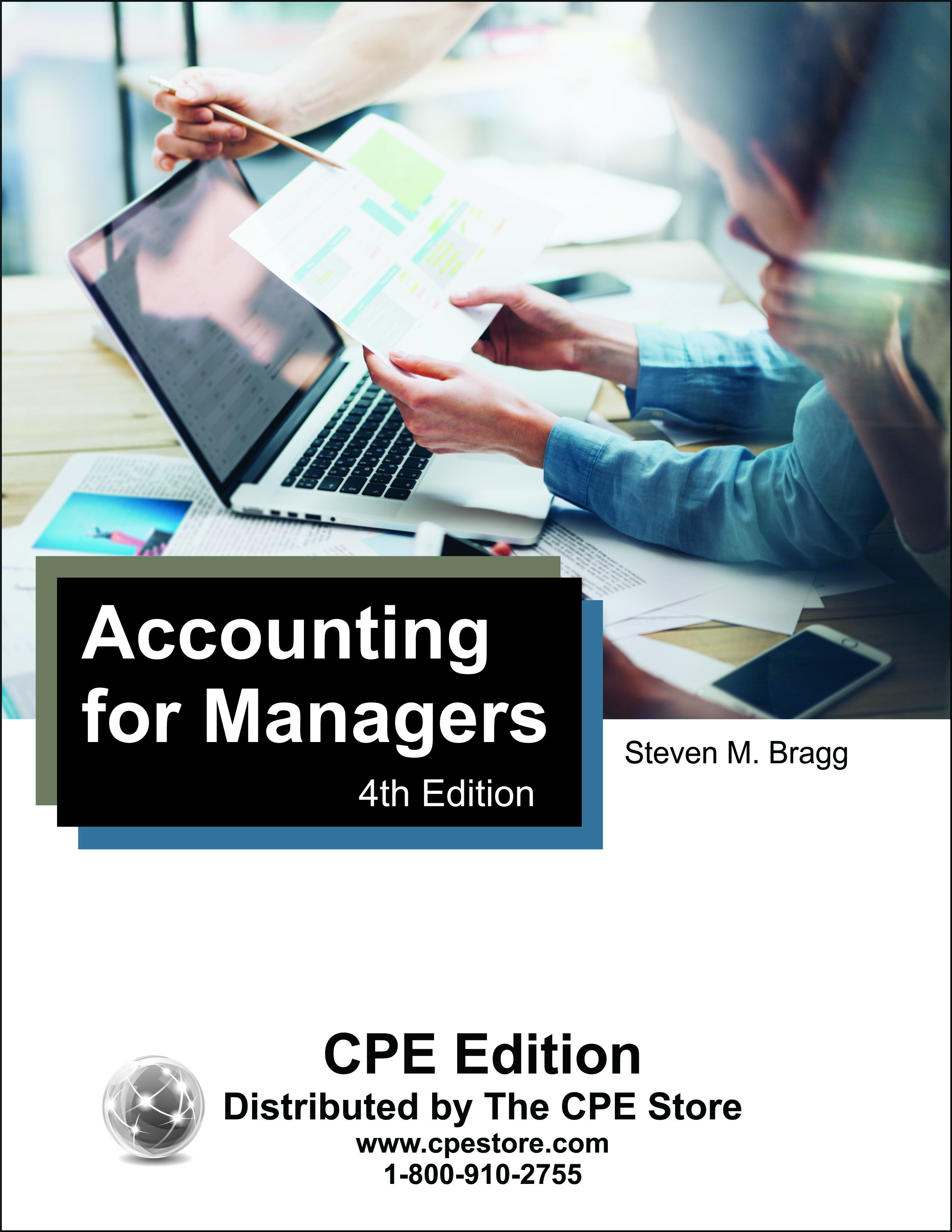
Course number: AA440704
Describes how accounting transactions are compiled into financial statements and how information about company performance can be extracted from those statements. Includes: an overview of the financial statements, interpreting financial statements using ratios, evaluation of responsibility centers, an overview of selected accounting standards, sales and marketing decisions, human resources decisions, investment decisions, acquisition decisions, cost accounting tools and concepts, target costing, constraint analysis, budgeting concepts and controls, and more. Course level: Basic. Prerequisites: None. Course includes integrated text and study guide, final exam, and grading service.NASBA field of study: Accounting Course credit: 18 hours
Printed Version$119
PDF$119
Colleague Test(s)$55
Contents
Accounting for Restaurants and Bars
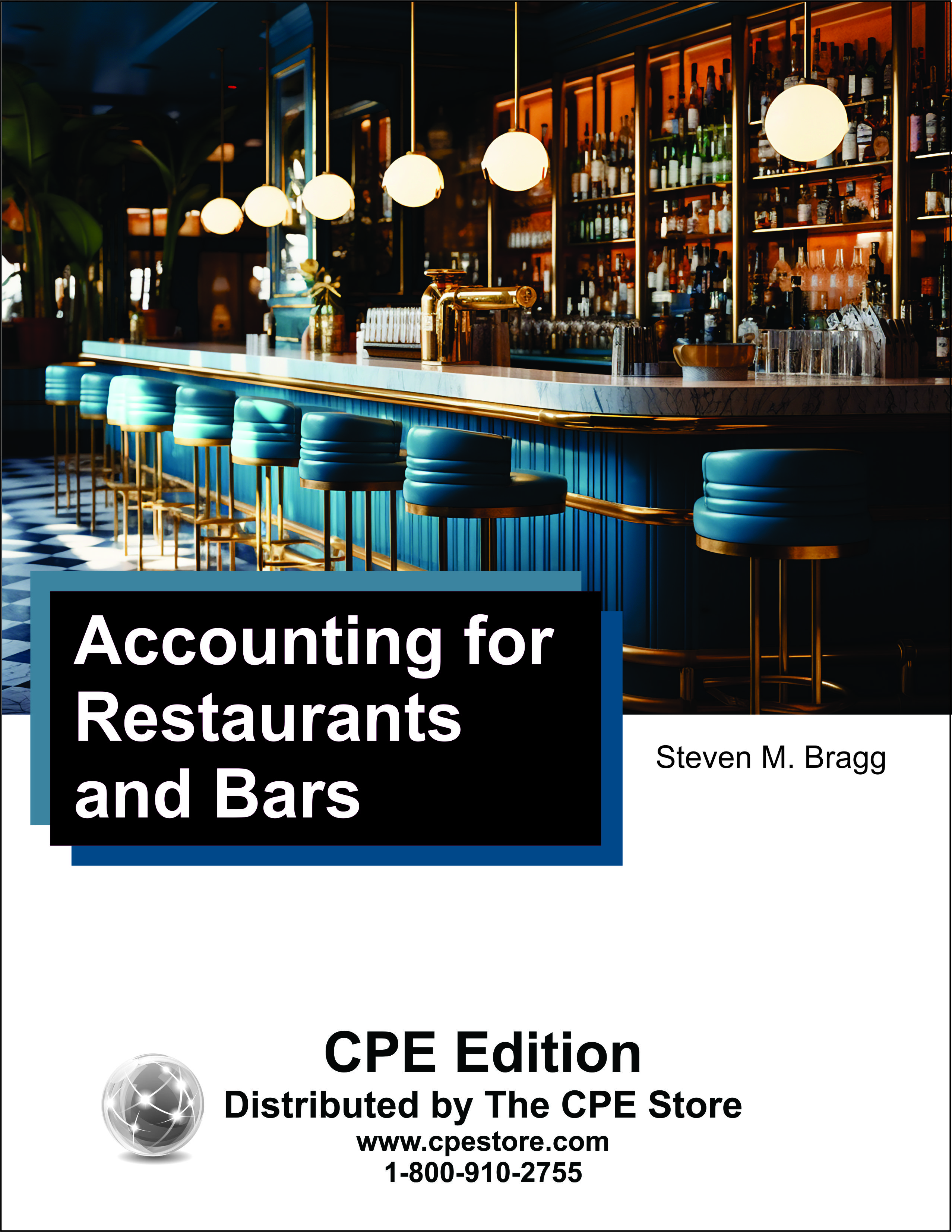
Course number: AA484401
Restaurants and bars typically produce low profit margins, so they need a strong accounting system to help identify ways to improve those profits. In the Accounting for Restaurants and Bars course, we cover all aspects of the necessary accounting systems, as well as the controls needed to keep fraud in check. Course materials include the accounting for inventory, fixed assets, leases, revenues, expenses, and payroll, as well as a discussion of how to close the books and produce performance metrics. Course level: Basic. Prerequisites: None. Course includes integrated text and study guide, final exam, and grading service.NASBA field of study: Accounting Course credit: 4 hours
Printed Version$39
PDF$39
Colleague Test(s)$15
Contents
Accounting for Stock-Based Compensation
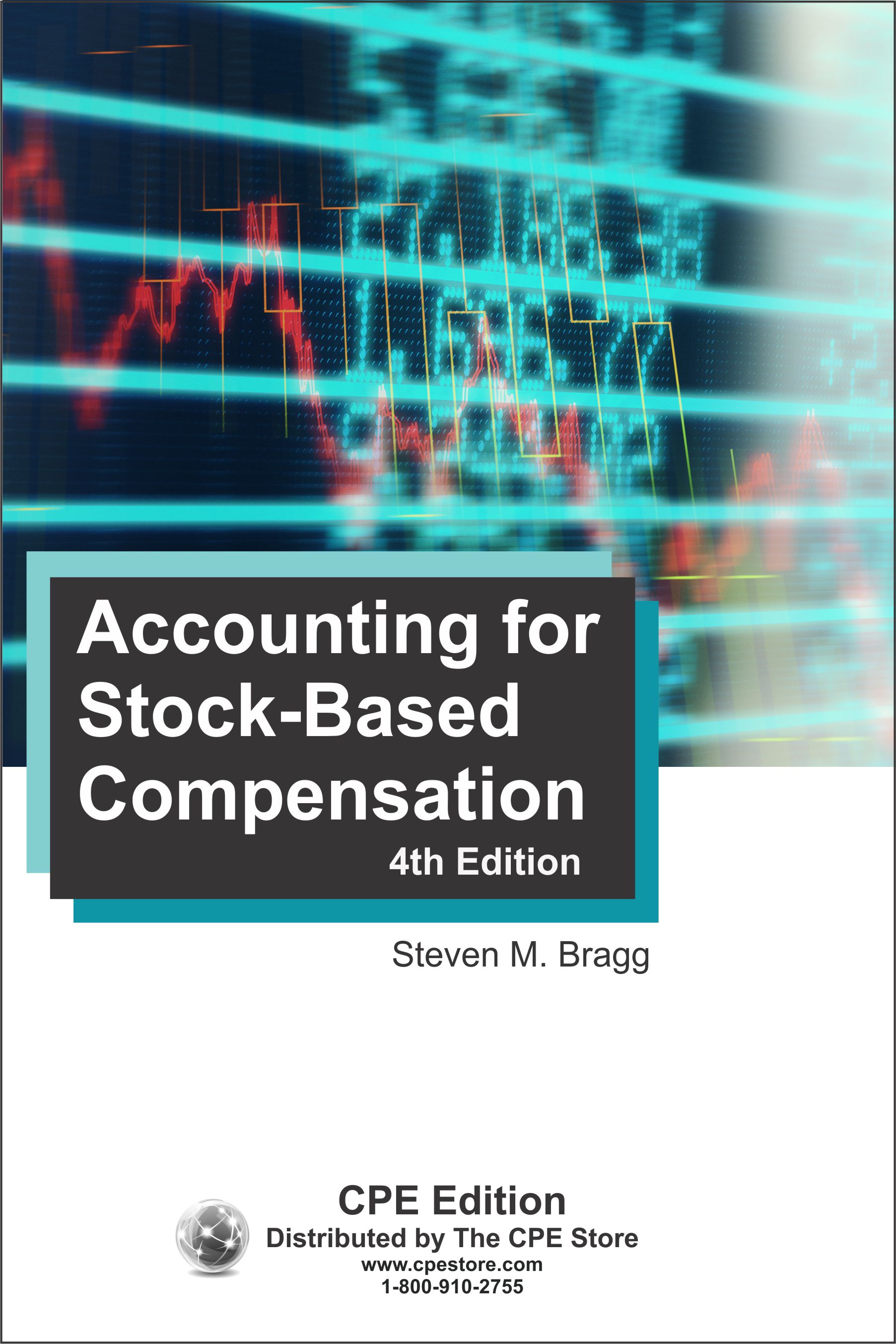
Course number: AA458404
The Accounting for Stock-Based Compensation course describes the treatment of equity-based compensation that is paid to employees and outsiders. The valuation and expense recognition for these stock awards is discussed, along with the related concepts of employee stock ownership plans and employee share purchase plans. In addition, the views of the Securities and Exchange Commission in regard to this topic are summarized. Course level: Basic. Prerequisites: None. Course includes integrated text and study guide, final exam and grading service.NASBA field of study: Accounting Course credit: 2 hours
Printed Version$19
PDF$19
Colleague Test(s)$12
Contents
Accounting Information Systems
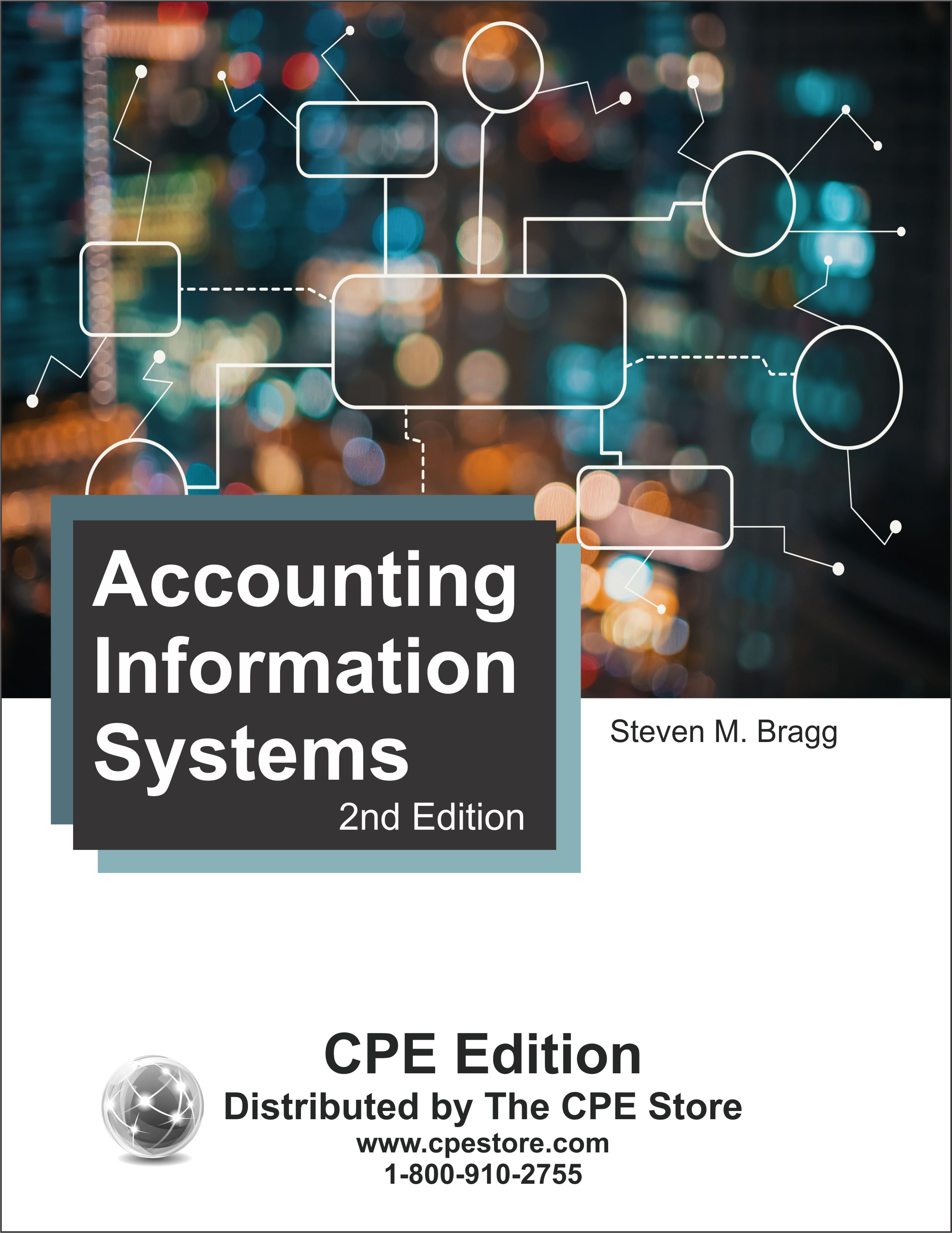
Course number: AA431402
The practicing accountant should have a thorough knowledge of the processes within an accounting system. Otherwise, it would not be possible to create a system of controls, write procedures, understand where errors are originating, or develop new systems. The Accounting Information Systems course provides the deep background needed to gain proficiency in this area. The course also examines how transactions are recorded and roll up into the general ledger and financial statements. In addition, there is significant treatment of the many controls integrated into accounting systems, as well as how someone could fraudulently penetrate an accounting system. Finally, the course describes the key events in the process of developing and installing a new system. In short, this course is the essential source book for the accountant who wants to understand the core functions of an accounting information system. Course level: Basic. Prerequisites: None. Course includes integrated text and study guide, final exam and grading service.NASBA field of study: Accounting Course credit: 13 hours
PDF$99
Colleague Test(s)$40
Contents
Accounting Procedures
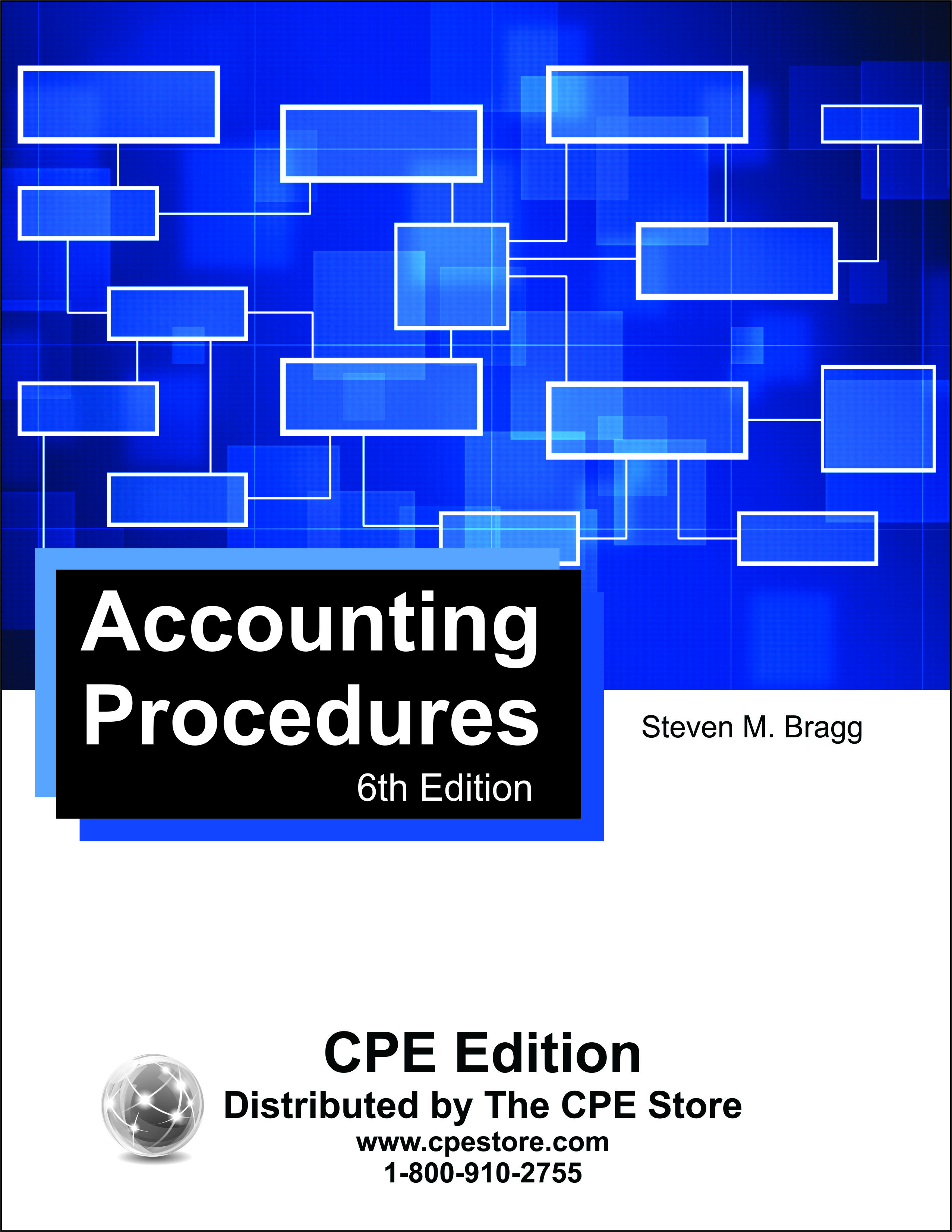
Course number: AA415206
This course contains the detailed procedures and forms needed for every accounting system, from accounts payable to treasury, as well as for such operational areas as order entry, shipping, purchasing, and receiving. Procedures are separately stated for manual and computerized accounting systems. The course also addresses how to create and enforce procedures, as well as when to update them. In short, this course provides the baseline policy and procedure information needed to enhance the operations of any business. Course level: Basic. Prerequisites: None. Course includes integrated text and study guide, final exam, and grading service.NASBA field of study: Accounting Course credit: 12 hours
Printed Version$89
PDF$89
Colleague Test(s)$35
Contents
Acting as an Executor
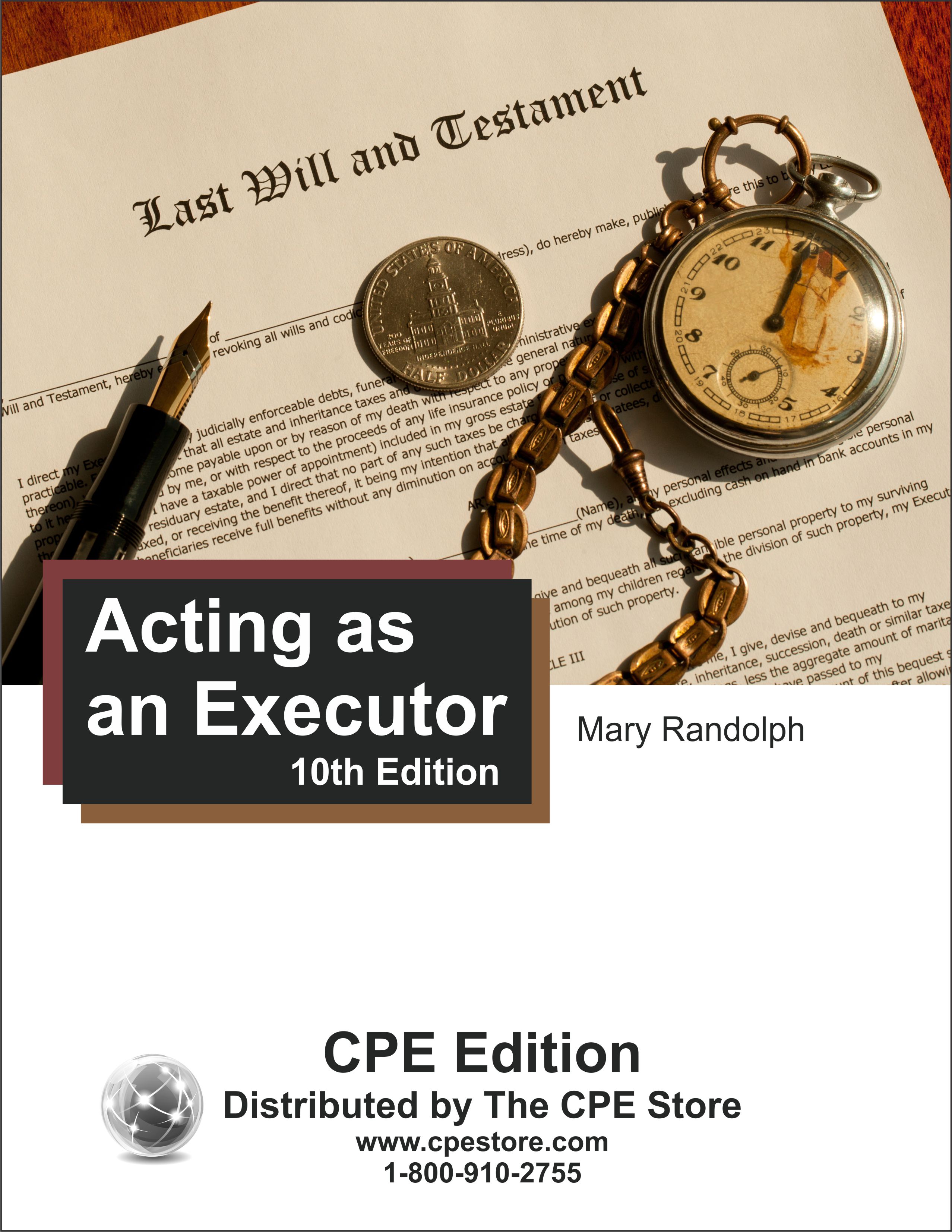
Course number: B531810
This course is a complete overview of the job associated with acting as an executor. Covers: the first steps to take; claiming life insurance, Social Security and other benefits; making sense of a will; what to do if there is no will; taking inventory and locating assets; estimating the value of assets; determining how title is held; paying claims and debts; selling property; giving property to beneficiaries; determining whether or not probate is necessary; identifying the types of property that does not go through probate; taxes; probate court proceedings; handling trusts; caring for children and their property; working with lawyers and appraisers; and more. Course level: Basic. Prerequisites: None. Course includes integrated text and study guide, final exam and grading service.NASBA field of study: Specialized Knowledge Course credit: 24 hours
Printed Version$139
PDF$139
Colleague Test(s)$75
Contents
Agricultural Accounting
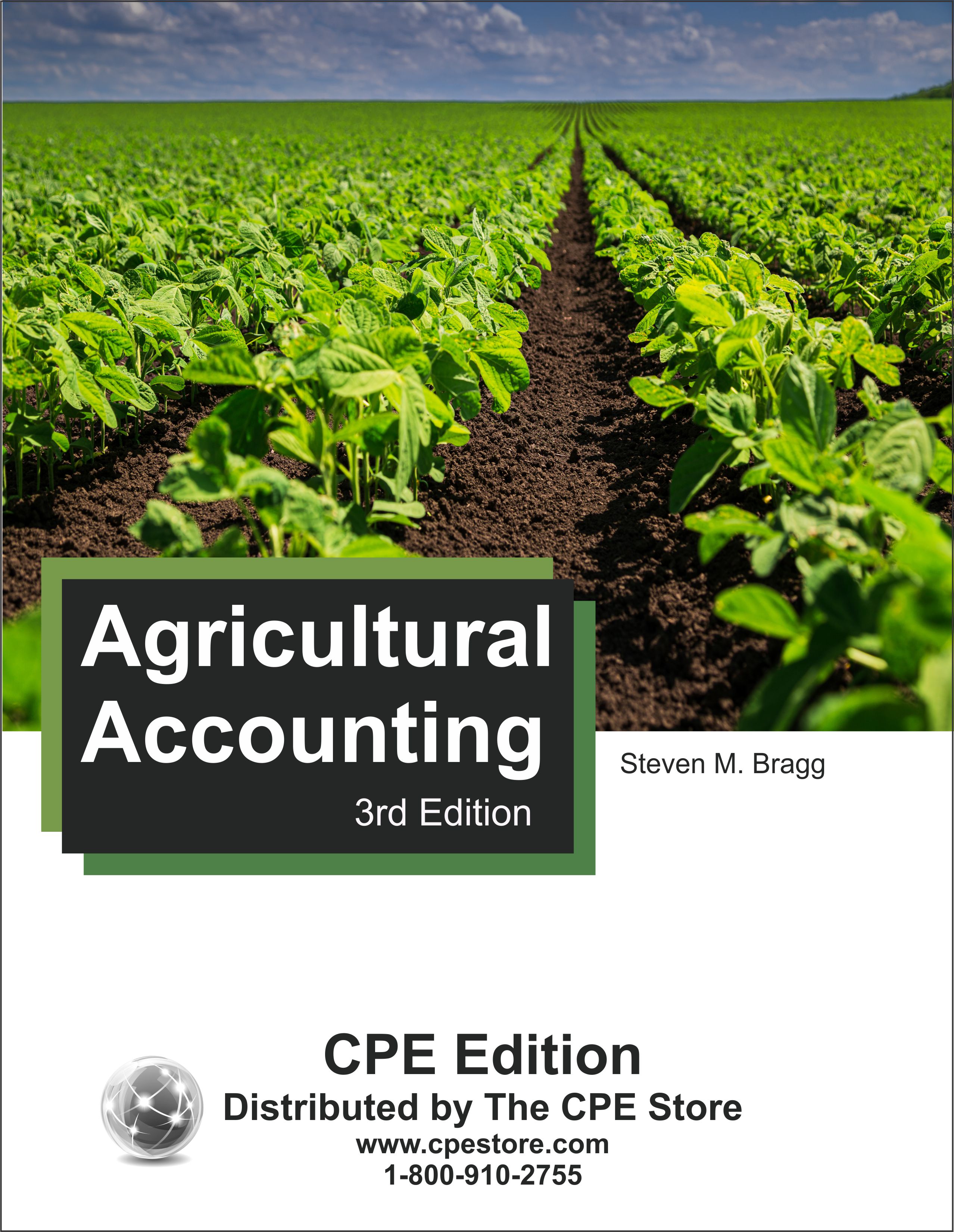
Course number: AA482803
This course addresses every aspect of the accounting that one might encounter in a farm, ranch, or related business. The intent is to not only explain accounting concepts, but also to provide examples and show how an accounting system can be constructed and operated. The course pays particular attention to unique aspects of agricultural accounting that are not encountered in other industries, including special valuation rules for inventory, hedging transactions, dealing with cooperatives, and recording noncurrent farm assets. Course level: Basic. Prerequisites: None. Course includes integrated text and study guide, final exam, and grading service.NASBA field of study: Accounting Course credit: 10 hours
Printed Version$79
PDF$79
Colleague Test(s)$30
Contents
Analyzing Cost Data for Management
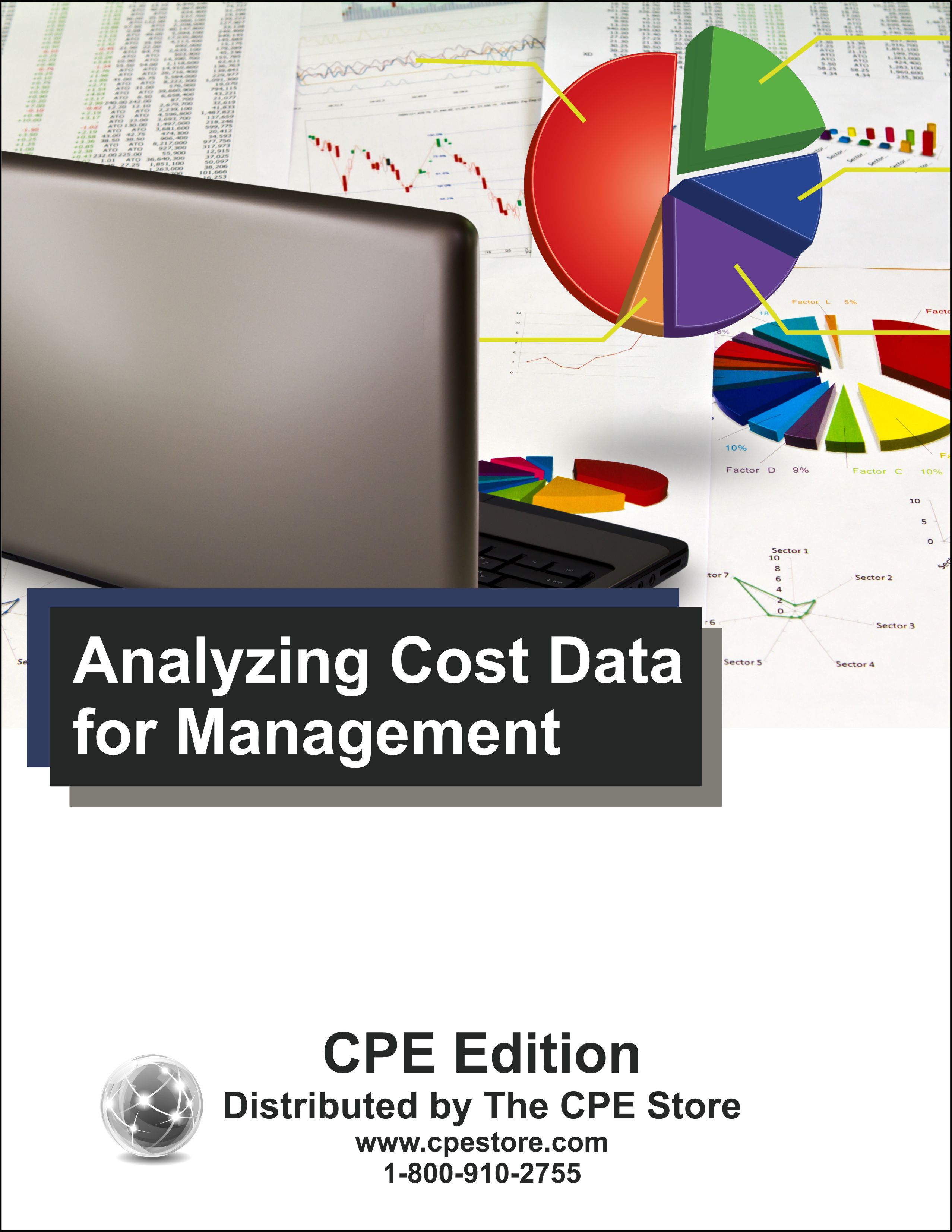
Course number: AA720901
This course covers the managerial use of accounting, financial, and operating data for planning, control, and decision making. The course is designed for managers and entrepreneurs who need hands-on knowledge and tools in processing, developing, and analyzing financial, cost, and business data for managerial use. Topics include strategic cost management, analysis of costs; break-even and contribution analysis; cost behavior analysis; activity-based costing (ABC); responsibility accounting and corporate balanced scorecard (CBS); budget for profit planning; short-term decisions; capital budgeting. Course Level: Basic. Prerequisites: None. Course includes integrated text and study guide, final exam, and grading service.NASBA field of study: Accounting Course credit: 9 hours
Printed Version$69
PDF$69
Colleague Test(s)$30
Contents
Auditing Developments
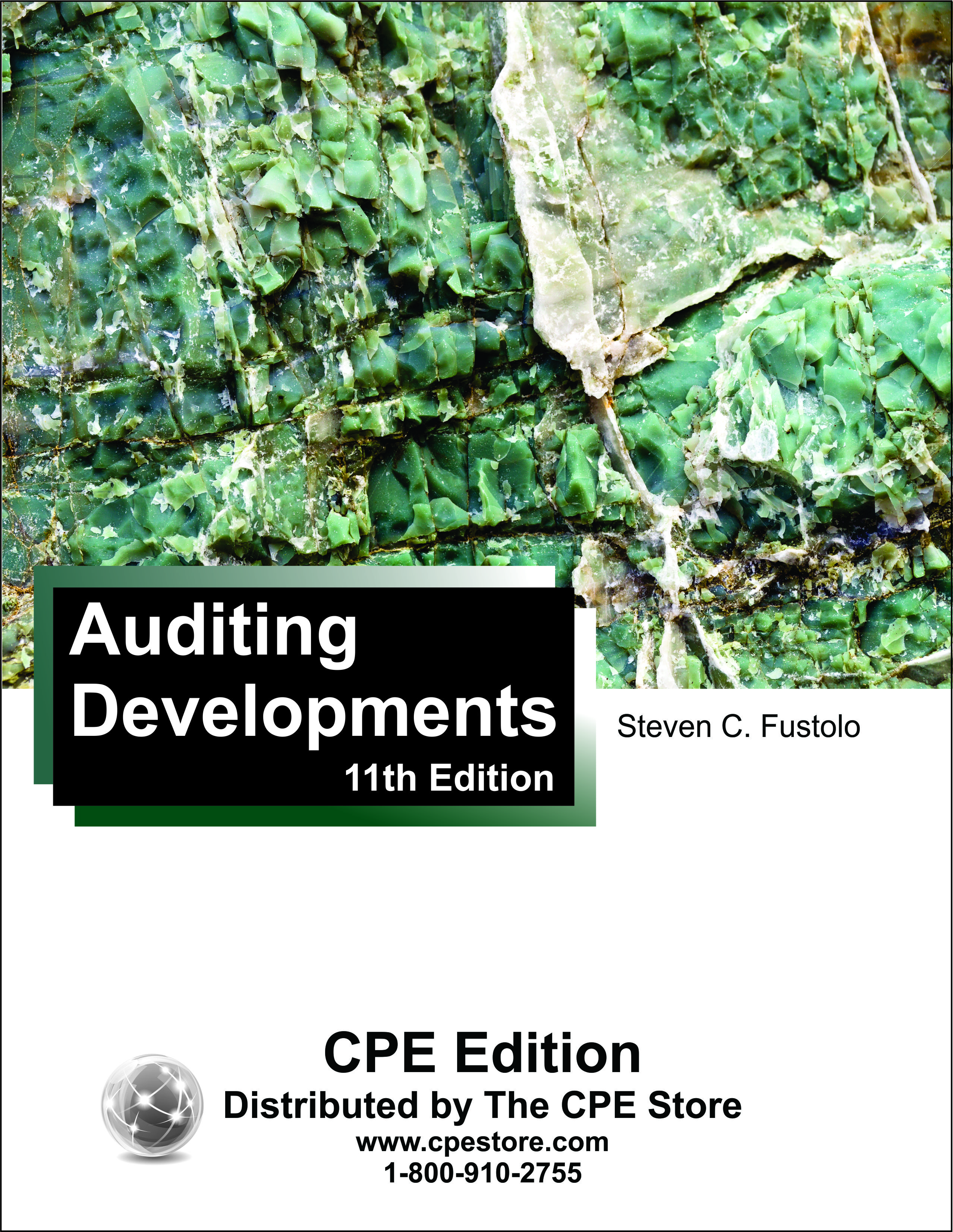
Course number: AA771411
Part of planning an audit involves consideration of the business and economic environment in which the client operates. To deal with the volatility in the business climate, auditors should focus their efforts in key areas and should take lessons from litigation. The objective of this course is to address the latest developments affecting audit engagements, including accounting and auditing engagement issues during post-COVID-19 and the impact of the pandemic on an entity’s ability to continue as a going-concern. This course provides an overview of auditing estimates and audit evidence, and changes made to the auditor’s understanding of the entity and its environment, risk assessment procedures, using the work of specialists as audit evidence, changes to compliance audits, and more. These changes are found in the newly issued SAS Nos. 142–149. Course level: Basic. Prerequisites: None. Course includes integrated text and study guide, final exam and grading service.NASBA field of study: Auditing Course credit: 16 hours
PDF$119
Colleague Test(s)$50
Contents
Auditing Nonprofit Entities

Course number: AA421702
Nonprofit entities present significant auditing challenges, since their reported results are closely tied to the nature of the contributions they receive, donor restrictions on the use of those contributions, and the need to present a high level of program effectiveness to donors. In the Auditing Nonprofit Entities course, we examine how the auditor can navigate these challenges by delving into nonprofit controls, as well as audit procedures that are specific to the industry. Particular attention is paid to the auditing of contributions, donor restrictions, endowment funds, fund-raising expenses, and split-interest agreements. Course level: Basic. Prerequisites: None. Course includes integrated text and study guide, final exam, and grading service.NASBA field of study: Auditing Course credit: 3 hours
Printed Version$29
PDF$29
Colleague Test(s)$15
Contents
Auditing Nonprofit Entities
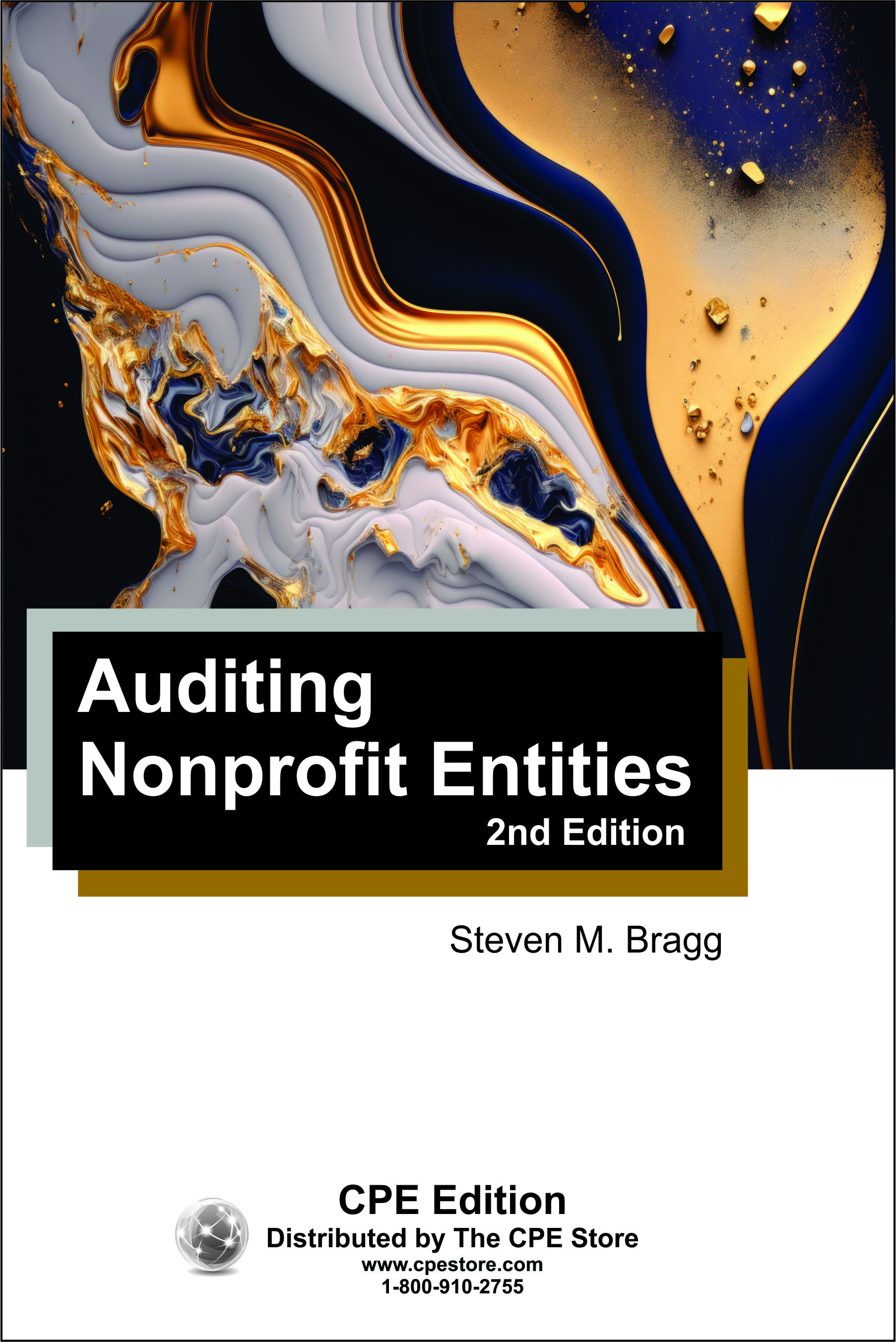
Course number: AA422702
Nonprofit entities present significant auditing challenges, since their reported results are closely tied to the nature of the contributions they receive, donor restrictions on the use of those contributions, and the need to present a high level of program effectiveness to donors. In the Auditing Nonprofit Entities course, we examine how the auditor can navigate these challenges by delving into nonprofit controls, as well as audit procedures that are specific to the industry. Particular attention is paid to the auditing of contributions, donor restrictions, endowment funds, fund-raising expenses, and split-interest agreements. Course level: Basic. Prerequisites: None. Course includes integrated text and study guide, final exam, and grading service.NASBA field of study: Auditing Course credit: 3 hours
Printed Version$29
PDF$29
Colleague Test(s)$15
Contents
Auditing State and Local Governments
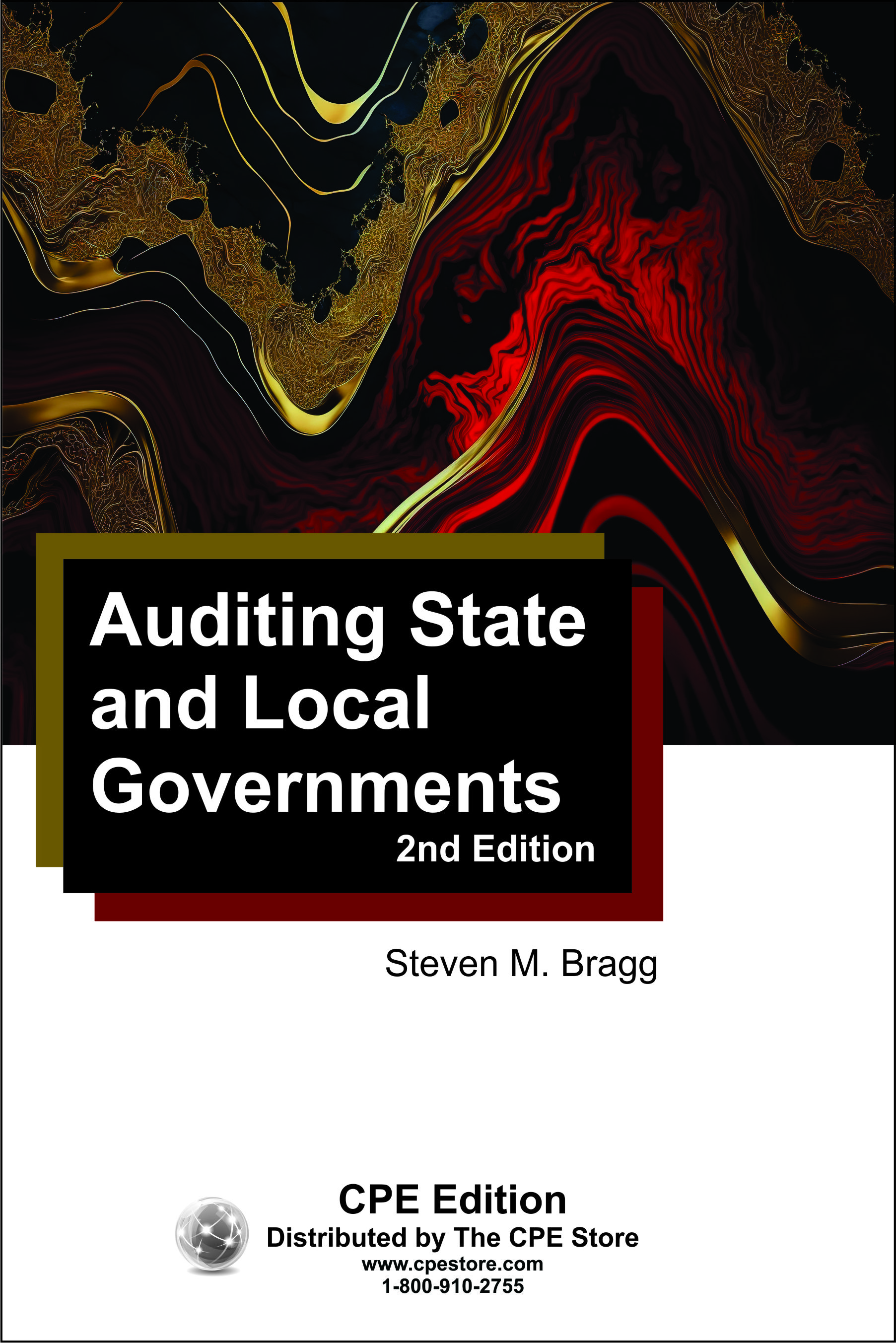
Course number: AA421802
Government entities present significant auditing challenges, since they may operate a multitude of funds, deal with grant funding, and account for significant infrastructure assets. In the Auditing State and Local Governments course, we examine how the auditor can navigate these challenges by delving into government controls and using targeted audit procedures. Particular attention is paid to component units, fund classifications, interfund activity, and the government budget. Course level: Basic. Prerequisites: None. Course includes integrated text and study guide, final exam, and grading service.NASBA field of study: Auditing (Governmental) Course credit: 3 hours
Printed Version$29
PDF$29
Colleague Test(s)$15
Contents
Avoiding Probate
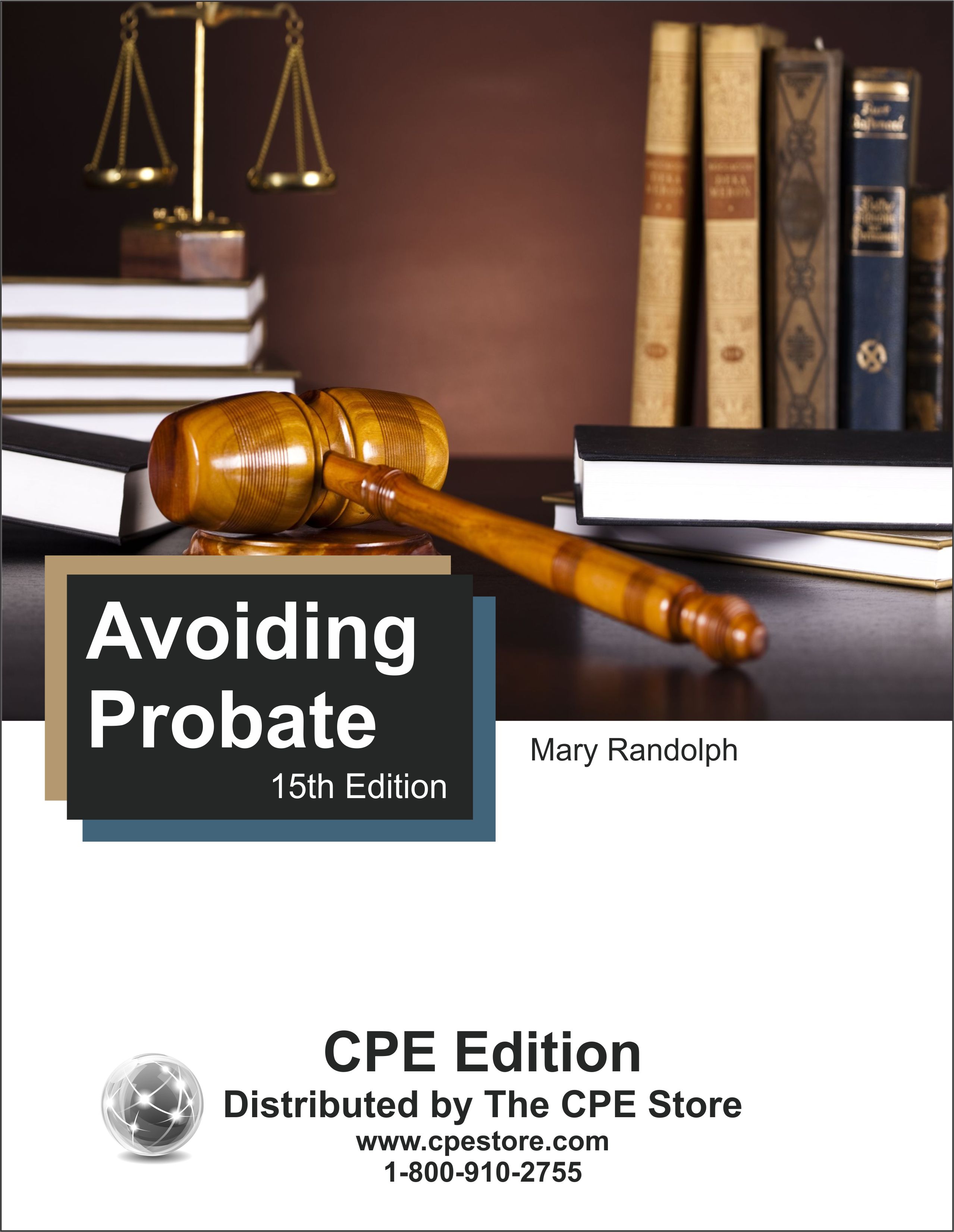
Course number: B530315
Probate can drag on for years, and the costs -- including legal fees, appraisal fees, court fees -- can easily eat up thousands of dollars. Luckily, there are simple and effective strategies to avoid probate. You will learn how to: set up payable-on-death bank accounts; name a beneficiary for retirement accounts; register assets in transfer-on-death forms; hold property in joint ownership; take advantage of special procedures for small estates; create a living trust; give away property now; and more. Includes state-by-state charts to show which techniques will work in your state. Course level: Basic. Prerequisites: None. Course includes integrated text and study guide, final exam, and grading service.NASBA field of study: Specialized Knowledge Course credit: 10 hours
Printed Version$69
PDF$69
Colleague Test(s)$30
Contents
Balance Sheet: Reporting Assets
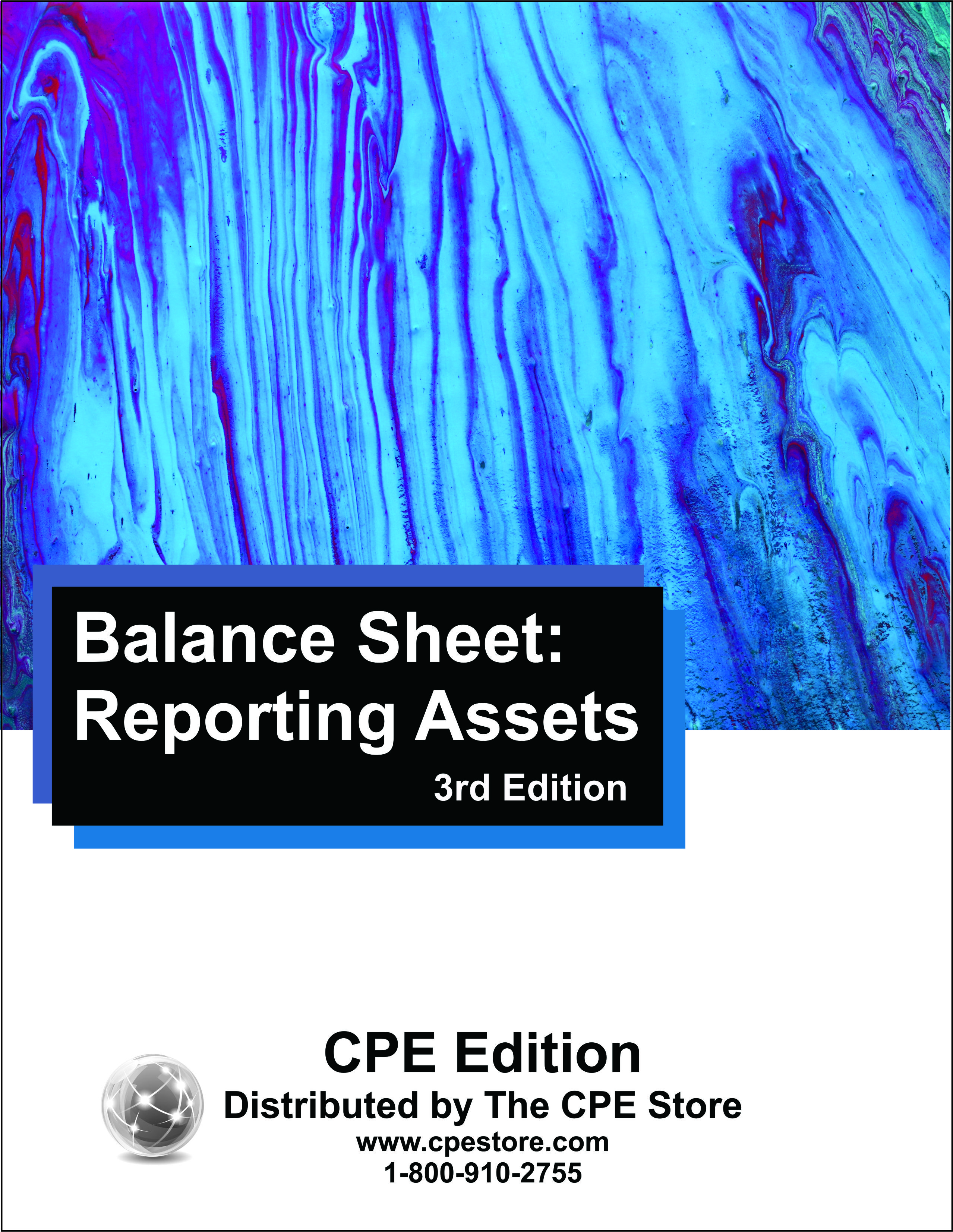
Course number: AA775703
This course discusses generally accepted accounting principles (GAAP) for reporting assets on the balance sheet. An asset is an item of economic value that is expected to yield a benefit to the owing entity in future periods. Assets are classified as being either current or noncurrent. Current assets, such as cash, accounts receivable, and prepaid expenses, are expected to be consumed within one year, while noncurrent assets, such as long-term investments, property, plant and equipment, and intangible assets, are to be consumed in more than one year. This course includes a discussion of both current and noncurrent assets. For example, promulgated GAAP for current assets is provided in ASC 210-10-45-1 through 45-4, Balance Sheet: Overall. Receivables are covered in ASC 310 Receivables comprising nonrefundable fees, loans and debt securities, and troubled debt restructurings by creditors. Guidance on the accounting and reporting of inventory is provided in ASC 330 Inventory. ASC 360 Property, Plant, and Equipment provides guidance on accounting for long-lived tangible assets such as land and land improvements, buildings, and equipment. Course level: Basic. Prerequisites: None. Course includes integrated text and study guide, final exam, and grading service.NASBA field of study: Accounting Course credit: 4 hours
Printed Version$39
PDF$39
Colleague Test(s)$15
Contents
Balance Sheet: Reporting Liabilities
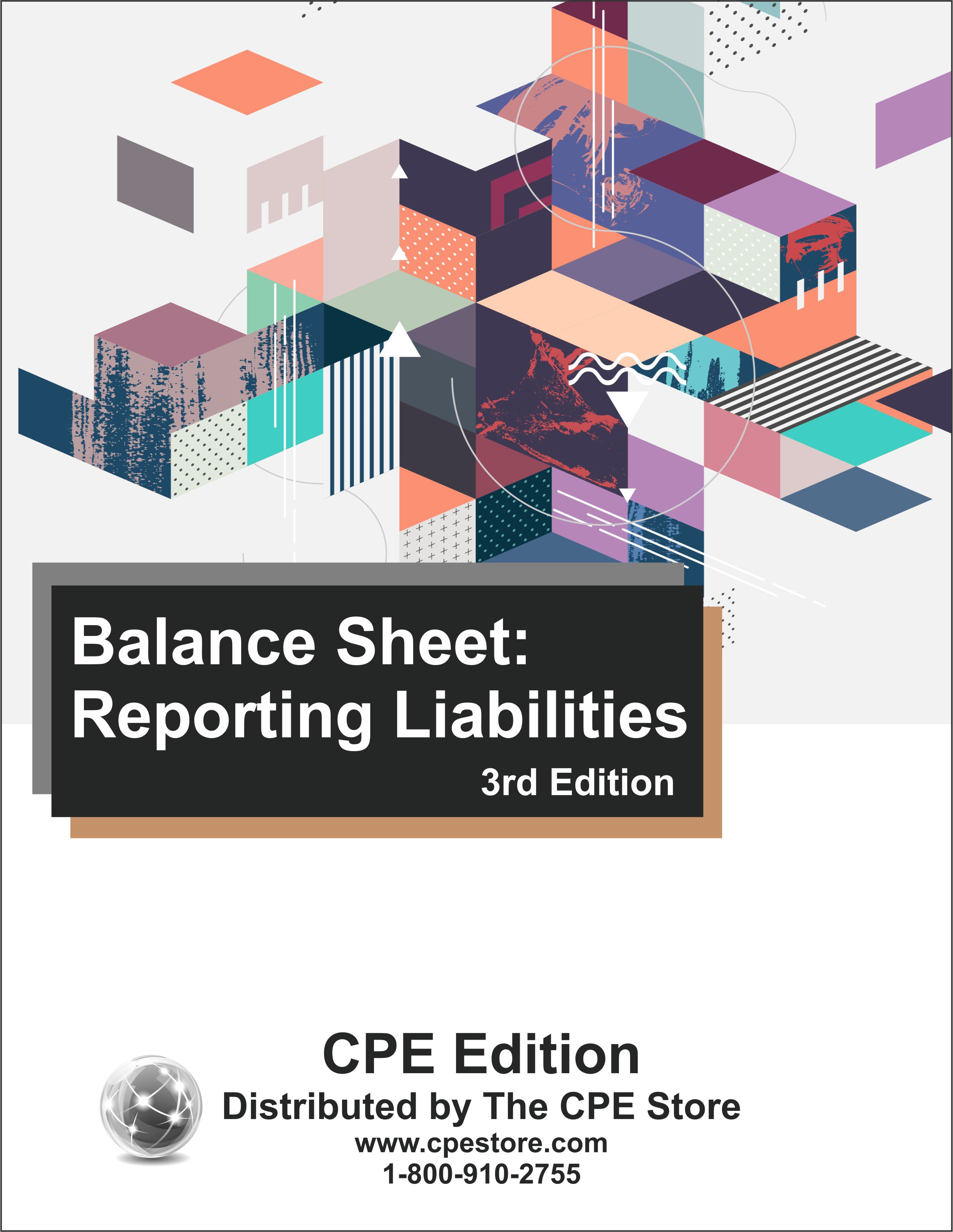
Course number: AA775903
This course discusses the accounting, reporting, and disclosures associated with both current and long-term liabilities on the balance sheet. A liability is a legal debt or obligation that arises during the course of business operations. A current liability, such as accounts payable, is payable within one year. Long-term liabilities, such as bonds payable, long-term loans, and capital leases, are obligations that are not due within one year of the date of the balance sheet. This course includes items covered in ASC 210-10-45-5 through 45-12, Balance Sheet: Overall and 470-10, Debt: Overall. Topics cover loss contingencies, compensated absences, termination benefits, troubled debt restructuring, refinancing of current to noncurrent debt, callable obligations by creditors, issuance of bonds, calling debt, imputing interest on noninterest notes payable, environmental liabilities, and offsetting of liabilities. Course level: Basic. Prerequisites: None. Course includes integrated text and study guide, final exam, and grading service.NASBA field of study: Accounting Course credit: 4 hours
PDF$39
Colleague Test(s)$15
Contents
Big Beautiful Bill

Course number: TAX777701
The “One Big Beautiful Bill Act,” often called the Big Beautiful Bill (BBB), is a sweeping budget reconciliation. Designed to make permanent the 2017 Trump tax cuts, the bill aims to deliver substantial tax relief to American families, workers, farmers, and small businesses. Key provisions include locking in and expanding the child tax credit, eliminating taxes on tips, overtime, and car loan interest, and providing enhanced deductions for seniors. The legislation also expands the §199A small business deduction, renews 100% immediate expensing for factories and equipment, and increases the death tax exemption for family farms. This course is an overview providing reference to selected individual, education, business, retirement, insurance, international, and estate tax provisions enacted or indexed for inflation by the BBB. Course level: Basic. Prerequisites: None. Course includes integrated text and study guide, final exam, and grading service.NASBA field of study: Taxes Course credit: 4 hours
Printed Version$49
PDF$49
Colleague Test(s)$20
Contents
Budgeting
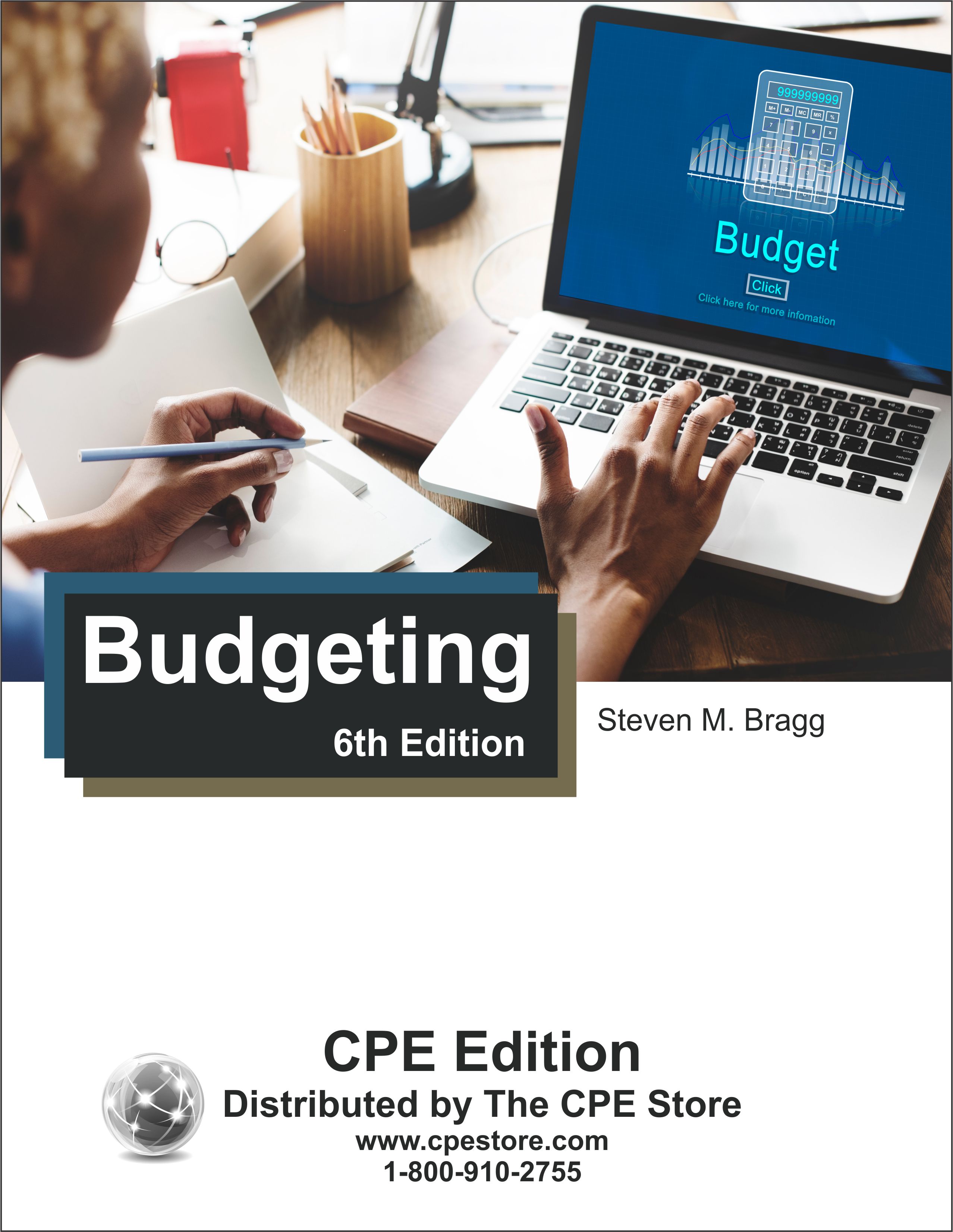
Course number: B479106
Addresses all aspects of the budgeting conundrum: how to create a budget, whether there are variations on the concept that may work better, and how to operate without any budget at all. The course covers all parts of a traditional corporate budget, including such areas as the production budget, inventory budget, and master budget. Flexible budgeting and zero-base budgeting are also covered. The course also discusses a variety of budget-related systems, such as procedures, reporting, and controls. An appendix contains a sample budget, showing subsidiary budget schedules rolling up into a master budget. Course level: Basic. Prerequisites: None. Course includes integrated text and study guide, final exam and grading service.NASBA field of study: Finance Course credit: 16 hours
Printed Version$109
PDF$109
Colleague Test(s)$50
Contents
Business Combinations and Consolidations
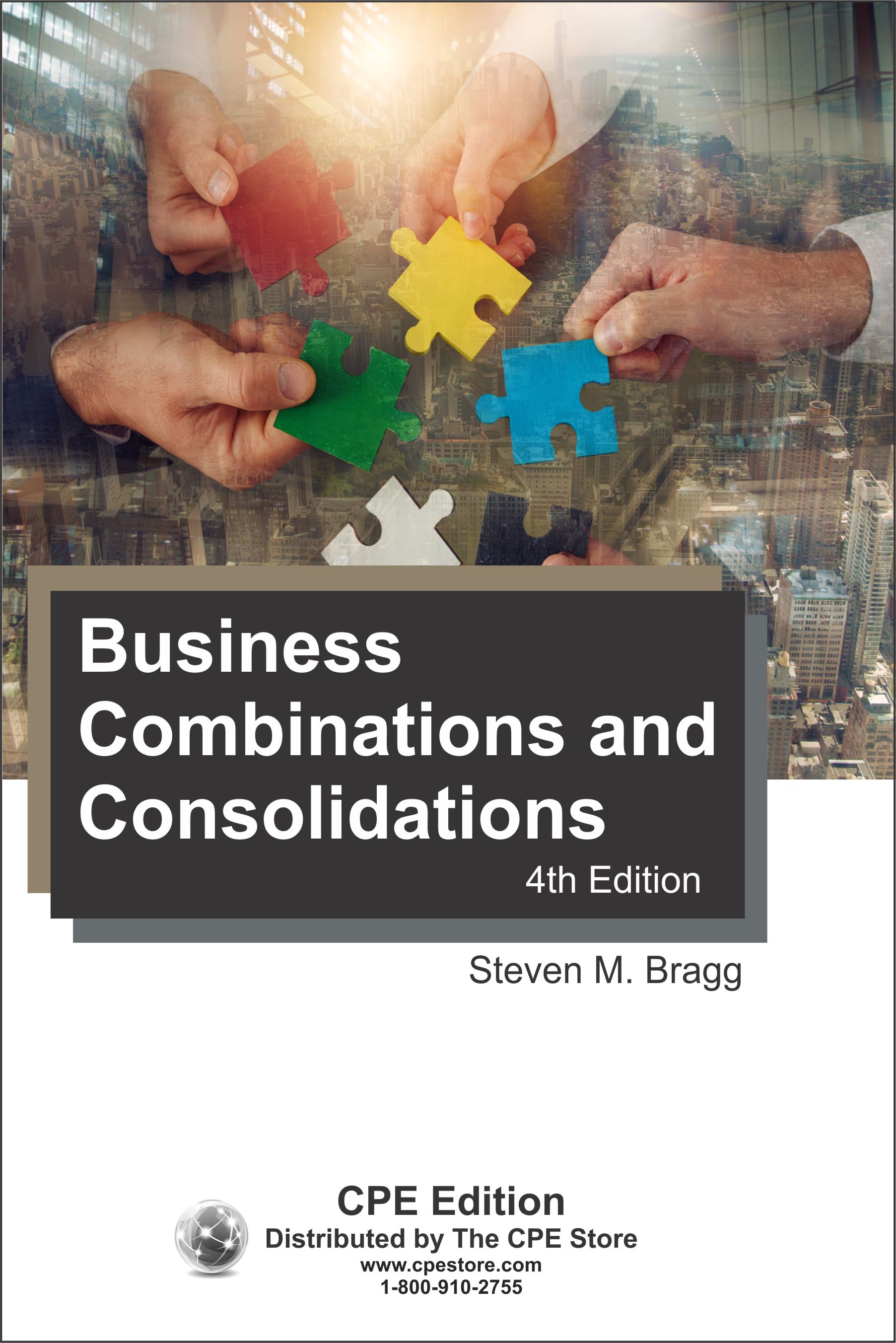
Course number: AA453304
This course describes the accounting for business combinations, including the identification of goodwill, reverse acquisitions, and disclosures. The course also notes how to account for a reduced investment in an investee using the equity method. The course goes on to discuss goodwill impairment, the consolidation of financial statements, and the steps involved in integrating accounting activities following a business combination. Course level: Basic. Prerequisites: None. Course includes integrated text and study guide, final exam, and grading service.NASBA field of study: Accounting Course credit: 3 hours
Printed Version$29
PDF$29
Colleague Test(s)$15
Contents
Business Insurance Fundamentals
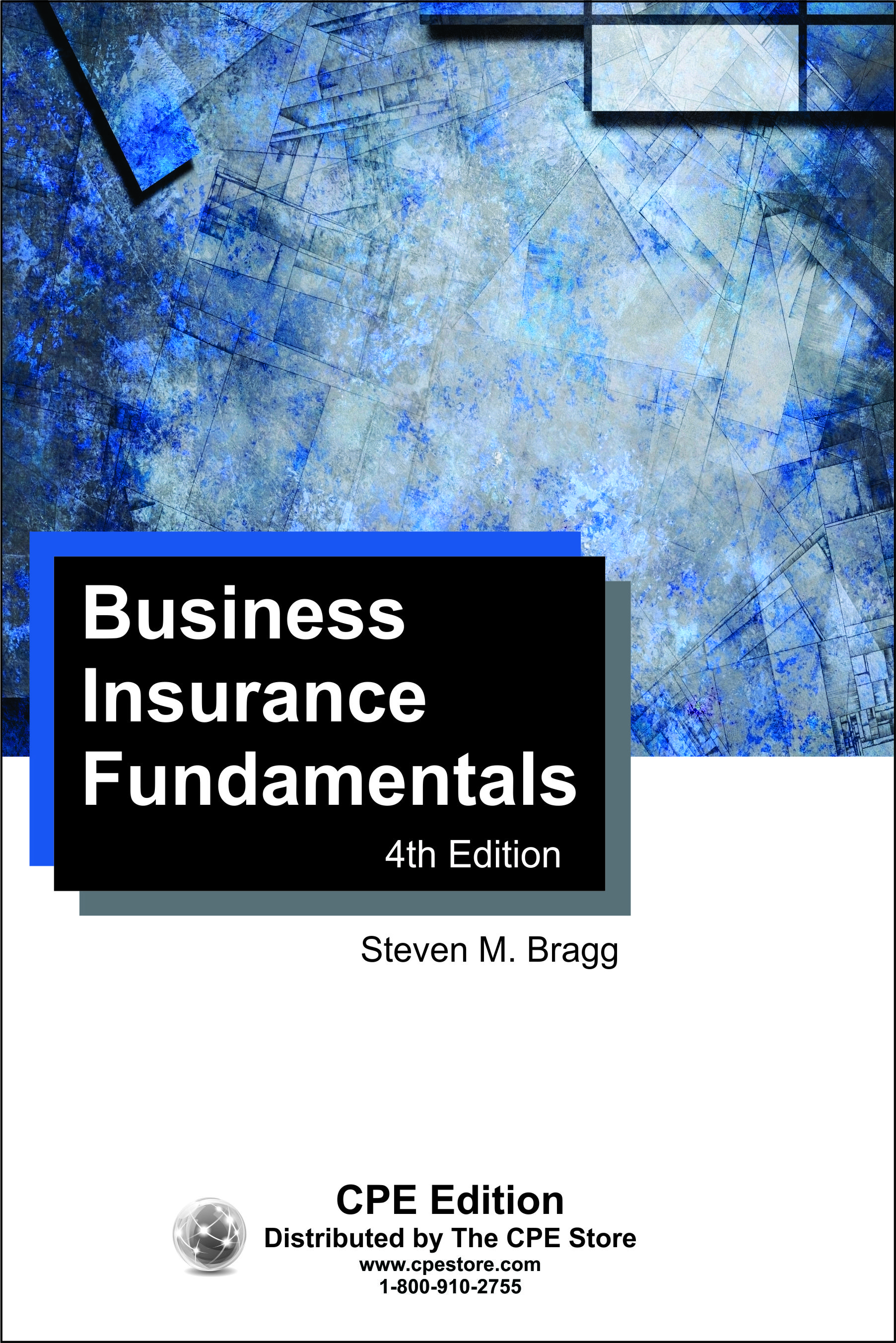
Course number: B459104
Business Insurance Fundamentals provides an overview of the insurance industry, including the operations and distribution systems of insurers. The course also notes the more common insurance policy terms and conditions, the types of insurance most applicable to businesses, and how to manage and account for insurance. There is a particular emphasis on managing the cost of insurance. Course level: Basic. Prerequisites: None. Course includes integrated text and study guide, final exam and grading service.NASBA field of study: Finance Course credit: 3 hours
Printed Version$29
PDF$29
Colleague Test(s)$15
Contents
Business Ratios
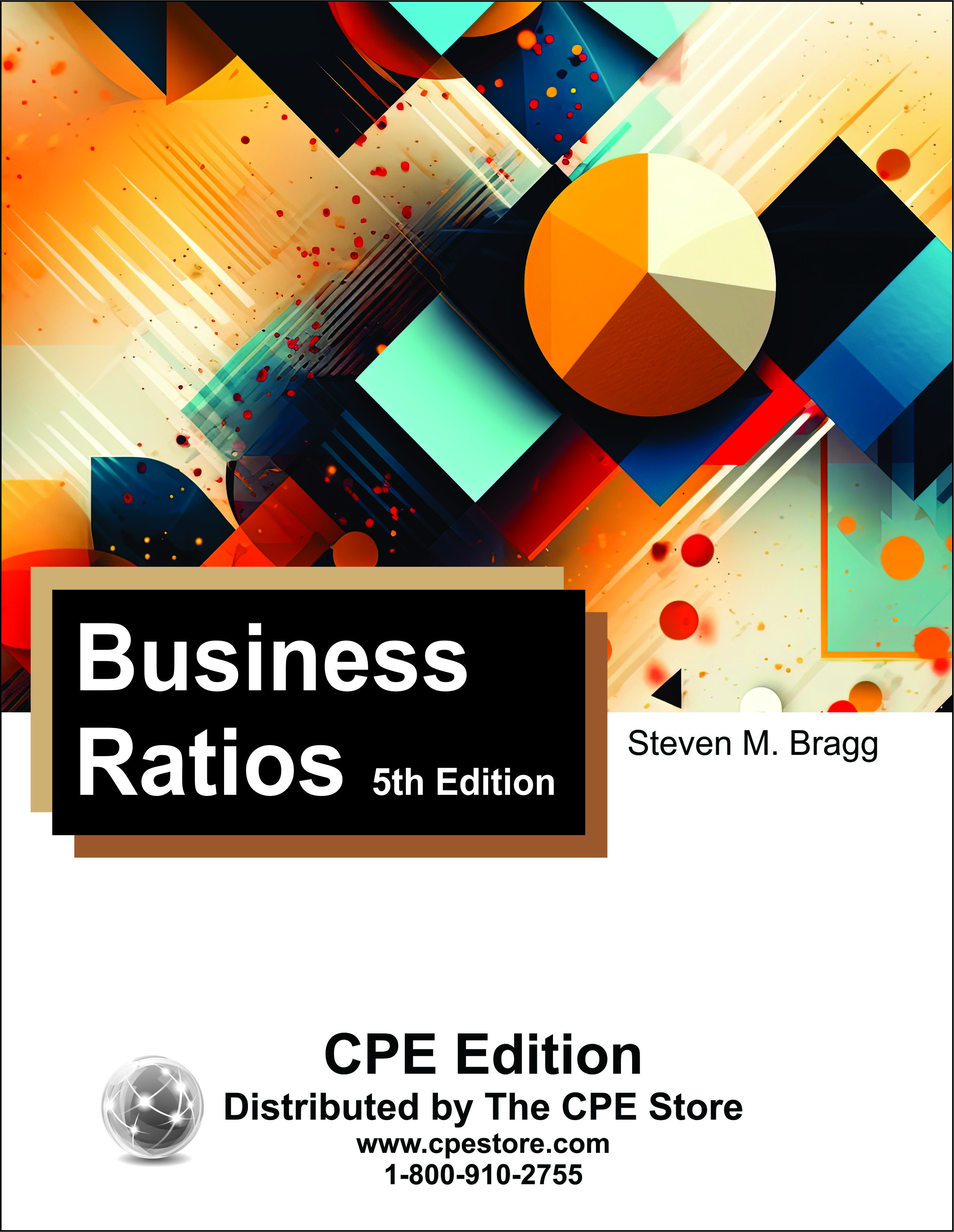
Course number: B438805
This course describes more than 200 ratios and other measurements that can be used to analyze the results, liquidity, and cash flows of a business. The measurement areas covered include performance, liquidity, cash flow, share performance, growth, constraint, throughput, facilities, fixed assets, inventory, payroll, pricing, product design, purchasing, marketing, and return on investment. Examples of the functional areas also covered by the course include cash management, credit and collections, customer service, human resources, production, and sales. Course level: Basic. Prerequisites: None. Course includes integrated text and study guide, final exam and grading service.NASBA field of study: Finance Course credit: 17 hours
Printed Version$109
PDF$109
Colleague Test(s)$50
Contents
Business Strategy
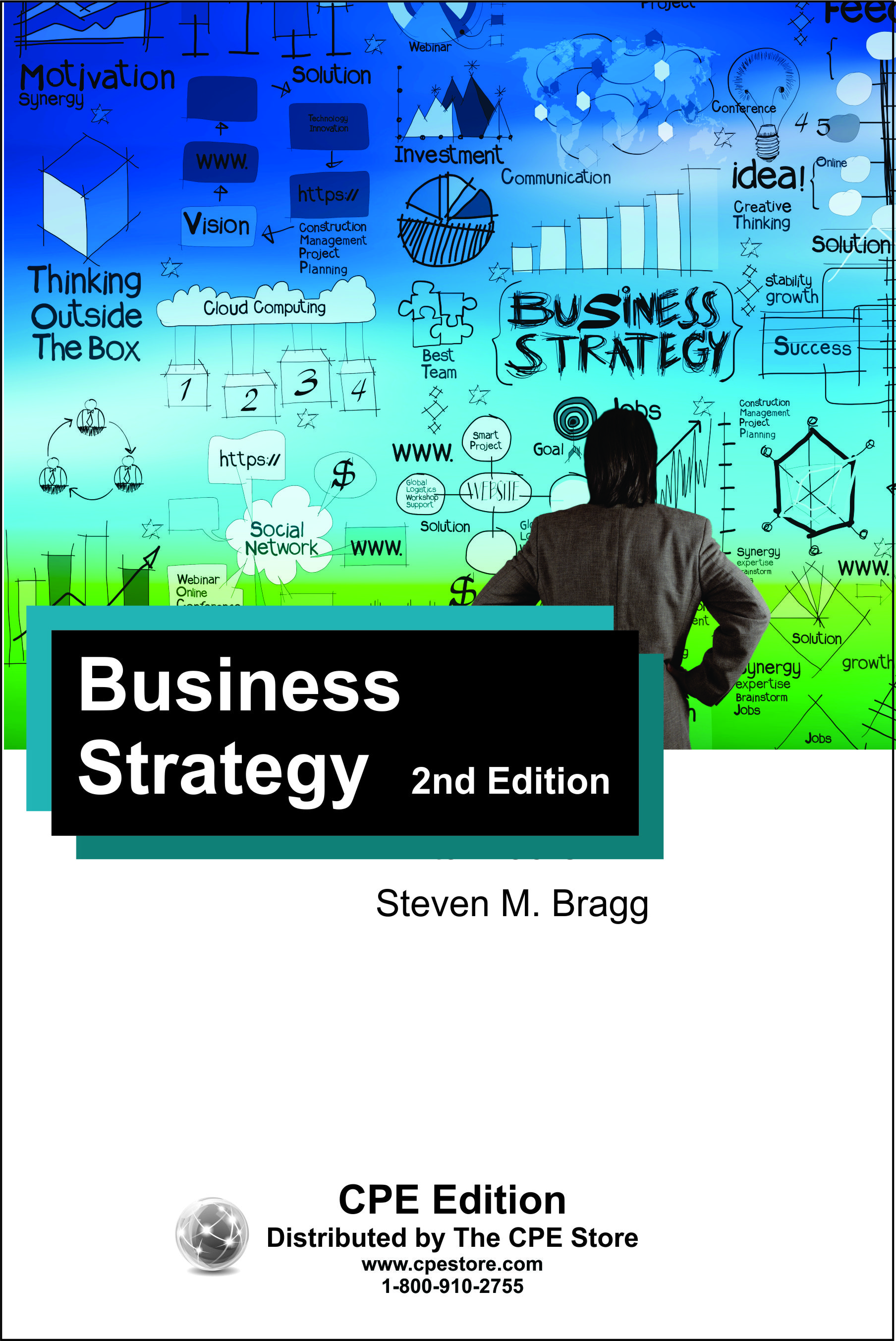
Course number: MM450102
Many businesses have a difficult time differentiating themselves from the competition, resulting in declining profits and the risk of eventual failure. The Business Strategy course shows a better way, laying out a process of analyzing your business, its competitors and the environment, and developing a finely-honed strategy that stakes out a defensible competitive position. The course covers such matters as SWOT analysis, competitor analysis and five forces analysis, as well as more than 10 strategy options, scenario planning, dealing with disruptors, strategy implementation issues, and much more. The course is a great tool for refining your planning processes. Course level: Basic. Prerequisites: None. Course includes integrated text and study guide, final exam, and grading service.NASBA field of study: Business Management & Organization Course credit: 4 hours
Printed Version$39
PDF$39
Colleague Test(s)$15
Contents
Business Valuation
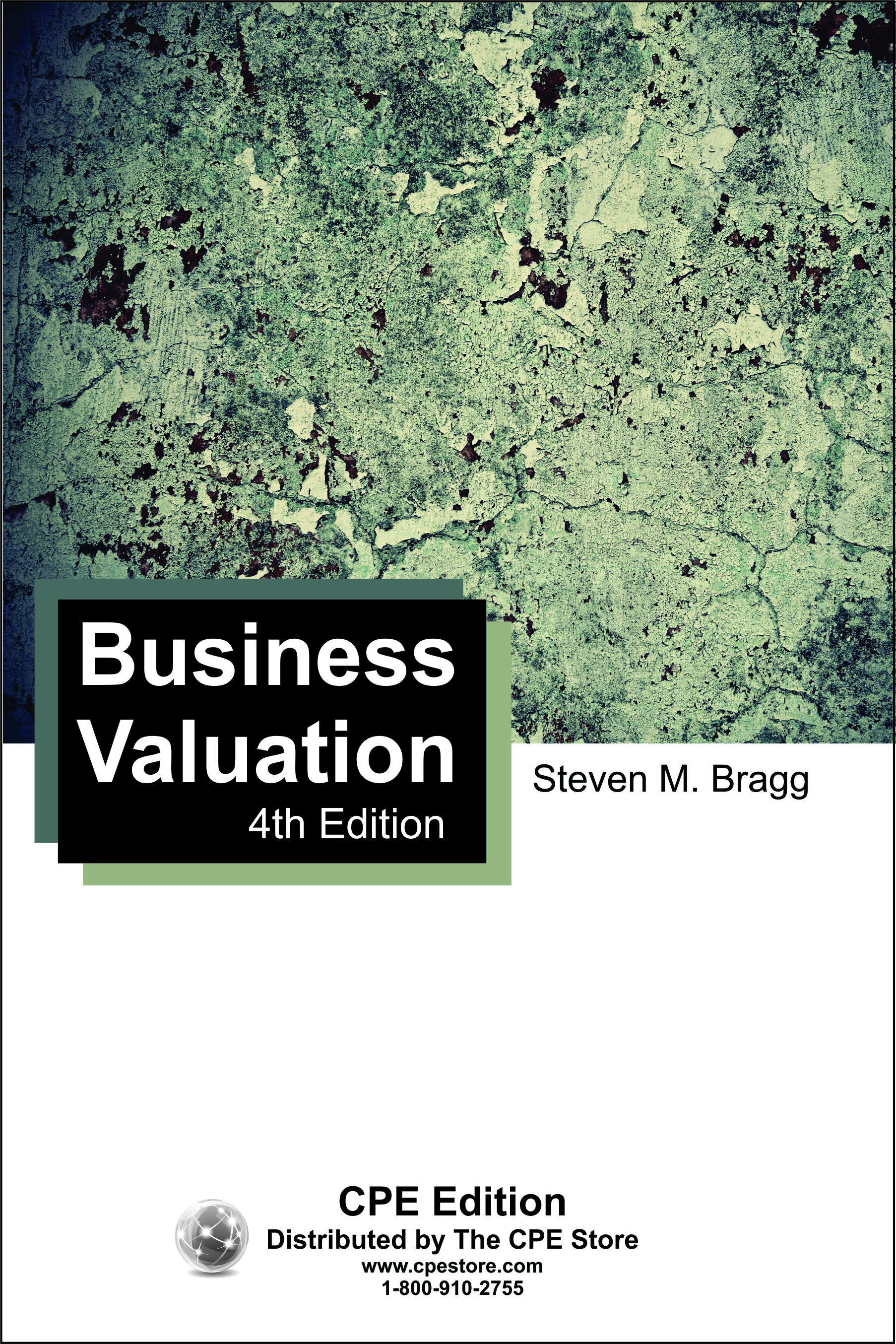
Course number: B462504
Business Valuation explores the full range of valuation methods that can be used to derive a business valuation. The course notes the circumstances under which each method should be used, and also describes how to sort through situations in which a range of valuations are indicated. The course goes on to describe valuation methods for intangible assets, a number of valuation adjustment factors, valuation mistakes, and similar topics. Course level: Basic. Prerequisites: None. Course includes integrated text and study guide, final exam, and grading service.NASBA field of study: Finance Course credit: 3 hours
Printed Version$29
PDF$29
Colleague Test(s)$15
Contents
Capital Budgeting
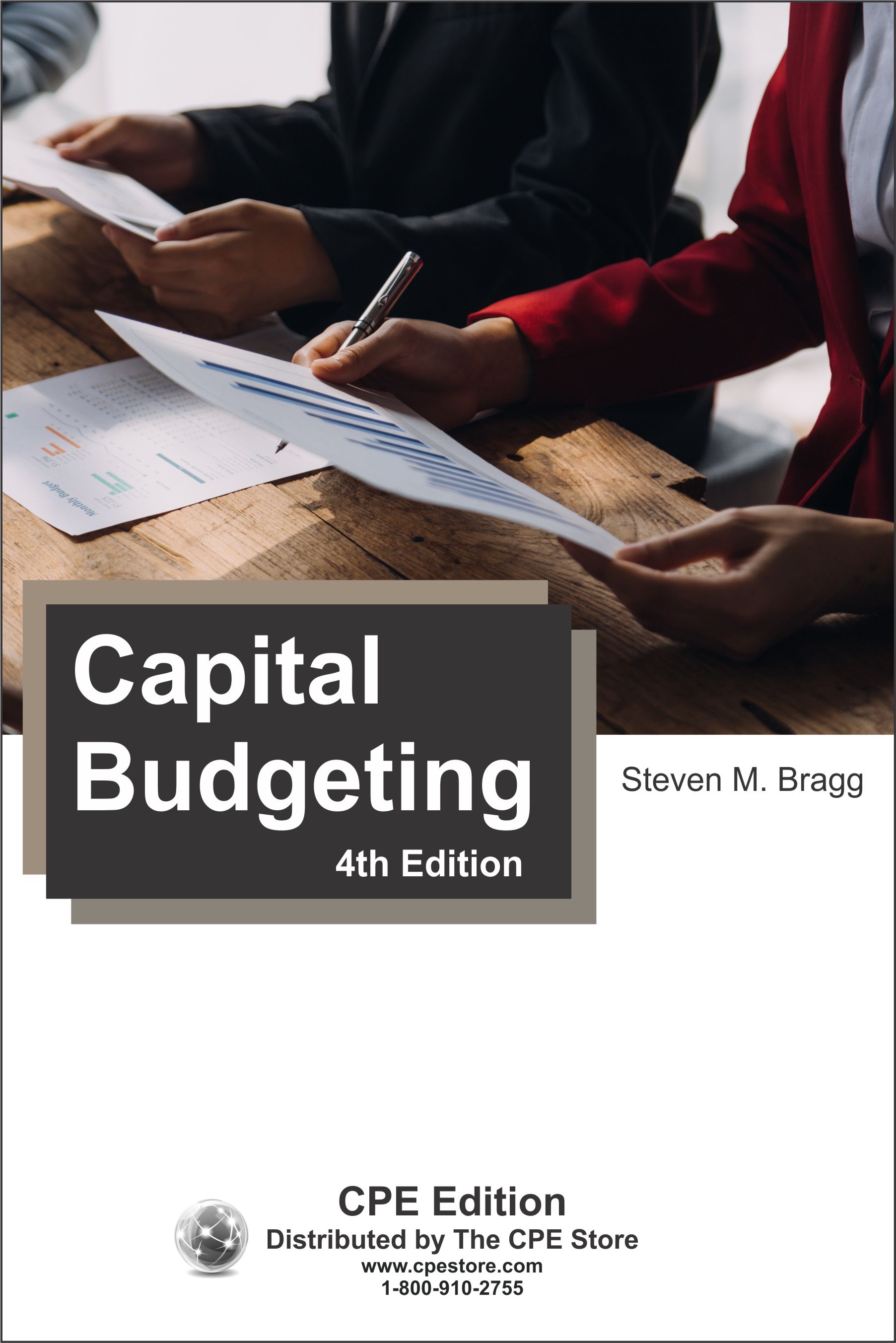
Course number: B456104
Capital Budgeting describes how requests for capital investments are documented and examined. It also covers the primary methods for determining whether a proposed investment is acceptable, as well as a number of strategic considerations. Lease or buy financing options are also discussed, along with a system of capital budgeting controls. Course level: Basic. Prerequisites: None. Course includes integrated text and study guide, final exam, and grading service.NASBA field of study: Finance Course credit: 5 hours
Printed Version$39
PDF$39
Colleague Test(s)$15
Contents
CFO Guidebook

Course number: B447305
This course will help you understand the key responsibilities of the CFO position. It discusses the role of the CFO in strategic planning, the control environment, the acquisition process, including due diligence and valuation, and much more. You’ll also learn all about budgeting, cash management, fund raising, going public, funding, information technology and more. Course level: Basic. Prerequisites: None. Course includes integrated text and study guide, final exam and grading service.NASBA field of study: Management Services Course credit: 22 hours
Printed Version$139
PDF$139
Colleague Test(s)$65
Contents
Closing the Books

Course number: AA419407
This course demonstrates how the accounting systems summarize information into financial statements, how to close the books efficiently, how to construct financial statements, and the controls and record keeping systems needed to close the books. Includes detailed information on closing each system, including Cash, Accounts Receivable, Inventory, Fixed Assets, Accounts Payable, and Payroll. Also covers various financial statement formats and how to create them, as well as the general types of disclosures that should accompany the financial statements. Course level: Basic. Prerequisites: None. Course includes integrated text and study guide, final exam, and grading service.NASBA field of study: Accounting Course credit: 15 hours
Printed Version$109
PDF$109
Colleague Test(s)$45
Contents
Coaching and Mentoring

Course number: MM468304
The Coaching and Mentoring course discusses how to engage in the coaching and mentoring of employees, so that the results of these engagements are maximized. Topics covered include coaching models, the types of questions to use, how to issue feedback, session preparation, the different types of mentoring arrangements, and more. Course level: Basic. Prerequisites: None. Course includes integrated text and study guide, final exam, and grading service.NASBA field of study: Personnel/Human Resources Course credit: 3 hours
Printed Version$29
PDF$29
Colleague Test(s)$15
Contents
Complete Guide to Investing

Course number: FP767308
This course teaches you the securities market, the various types of investment securities (stocks, bond, options, futures, tax-advantaged investments, mutual funds, etc.), and the risk-return characteristics of each. It focuses on the principles and tools of investment analysis, asset allocation, portfolio selection and management. The course details various investments, the features of each type of investment, the advantages and disadvantages of each investment category, including global investing, and when a particular investment type might be suitable for you. Course level: Basic. Prerequisites: None. Course includes integrated text and study guide, final exam, and grading service.NASBA field of study: Finance Course credit: 13 hours
Printed Version$89
PDF$89
Colleague Test(s)$40
Contents
Conducting Compilation Engagements
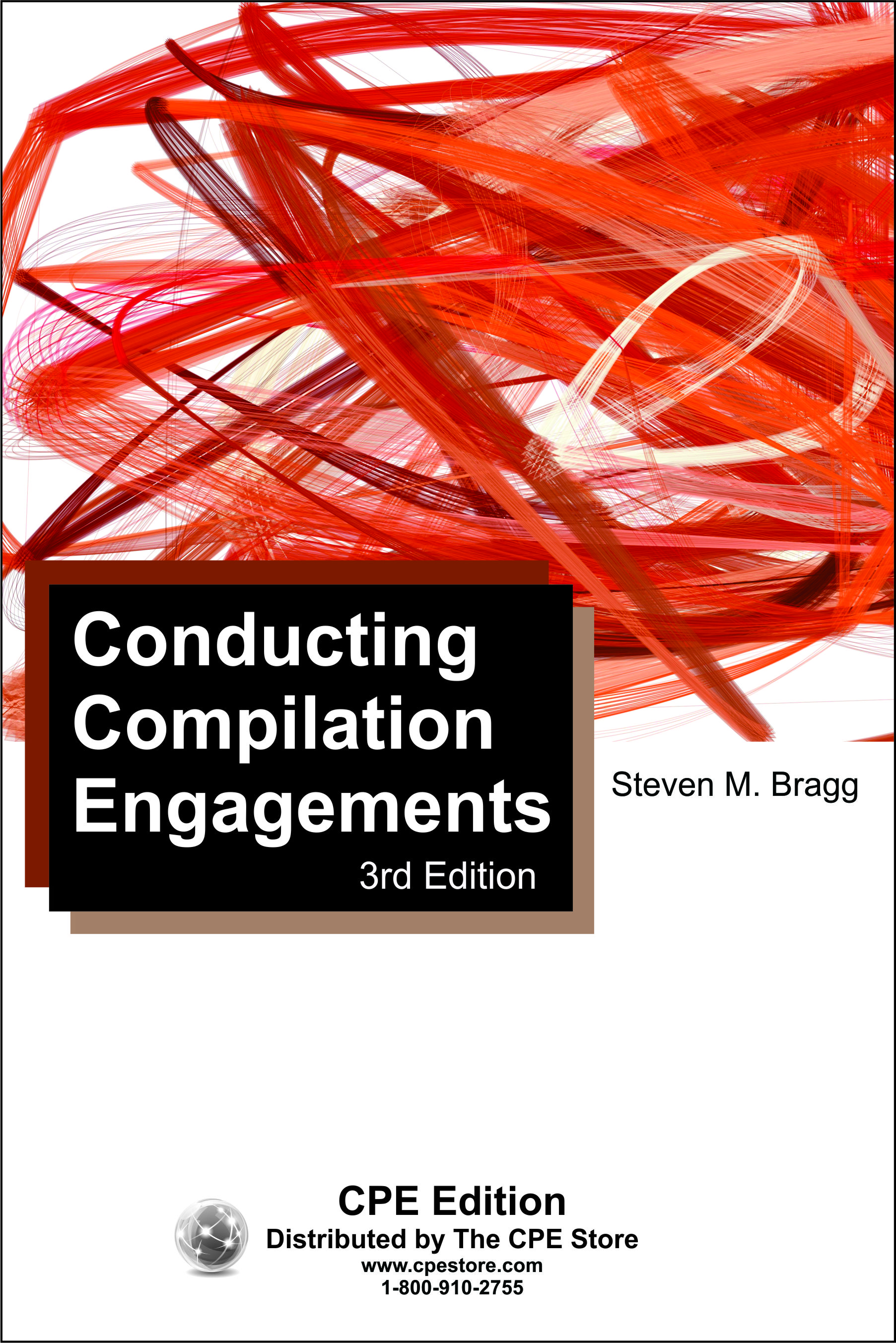
Course number: AA483403
A compilation engagement involves a greatly reduced set of activities from a review engagement, and especially from an audit. In Conducting Compilation Engagements, we describe the steps required to complete a compilation, as well as every other aspect of a compilation engagement, including the engagement letter and the compilation report. The course also includes the requirements for an engagement in which the accountant is called upon to prepare financial statements for a client. This course is based on SSARS 21, Statements on Standards for Accounting and Review Services: Clarification and Recodification. Course level: Basic. Prerequisites: None. Course includes integrated text and study guide, final exam, and grading service.NASBA field of study: Auditing Course credit: 1 hour
Printed Version$19
PDF$19
Colleague Test(s)$12
Contents
Conducting Review Engagements
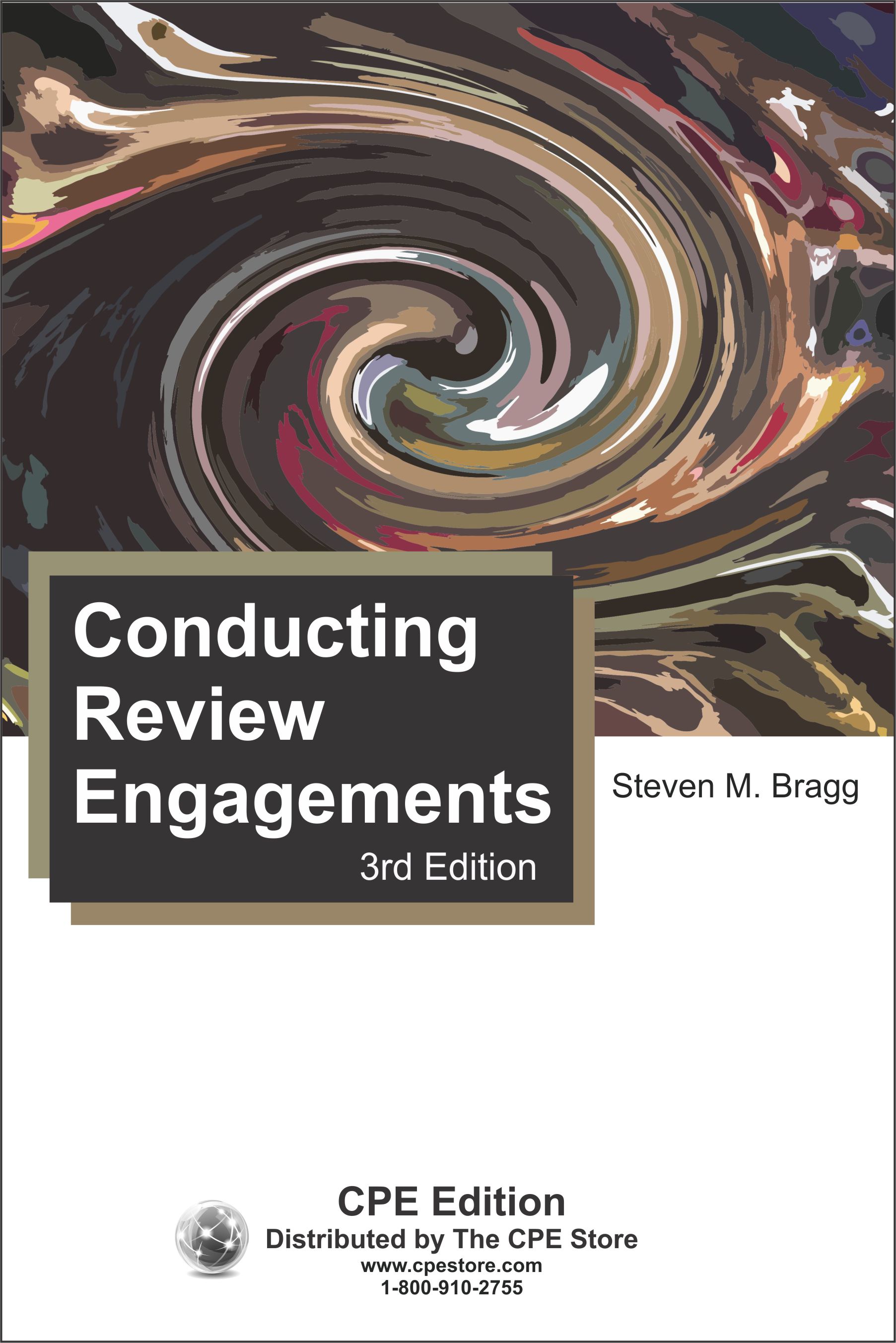
Course number: AA483303
A review engagement involves a significantly reduced set of activities from an audit engagement, with a focus on analytical procedures and inquiries. In Conducting Review Engagements, we describe the nature of these analytical procedures and inquiries, as well as every other aspect of a review engagement, including the engagement letter, representation letter, and accountant’s review report. This course is based on SSARS 21, Statements on Standards for Accounting and Review Services: Clarification and Recodification. Course level: Basic. Prerequisites: None. Course includes integrated text and study guide, final exam, and grading service.NASBA field of study: Auditing Course credit: 2 hours
Printed Version$19
PDF$19
Colleague Test(s)$12
Contents
Conflict Management

Course number: PD484103
The Conflict Management course discusses the causes of conflict, the choices available for how to deal with it, how to assess a conflict, and how to work through a conversation to resolve the issue. The course also addresses specific conflict situations and how they can be resolved, as well as the use of dispute resolution systems. Course level: Basic. Prerequisites: None. Course includes integrated text and study guide, final exam, and grading service.NASBA field of study: Personal Development Course credit: 4 hours
Printed Version$39
PDF$39
Colleague Test(s)$15
Contents
Construction Accounting

Course number: AA475204
This course addresses every aspect of the accounting for a construction business. The intent is to not only explain accounting concepts, but also provide examples and show how an accounting system can be constructed and operated. The course pays particular attention to unique aspects of construction accounting that are not encountered in other industries, including the job cost ledger, change orders, back charges, percentage of completion calculations, and the treatment of anticipated losses on contracts. Course level: Basic. Prerequisites: None. Course includes integrated text and study guide, final exam, and grading service.NASBA field of study: Accounting Course credit: 11 hours
PDF$89
Colleague Test(s)$35
Contents
Contract Management

Course number: MM450301
A business that employs effective contract managers is more likely to be profitable, because they can minimize contract costs and ensure that deliverables are completed on time. In the Contract Management course, we explore all aspects of the contract management job, including contract law, contract terms, contracting risks, and how to issue a well-written request for proposals. The course also addresses how to monitor contractor performance, inspect deliverables, and close out projects, along with several related topics. Course level: Basic. Prerequisites: None. Course includes integrated text and study guide, final exam, and grading service.NASBA field of study: Production Course credit: 6 hours
Printed Version$59
PDF$59
Colleague Test(s)$20
Contents
Controller Guidebook
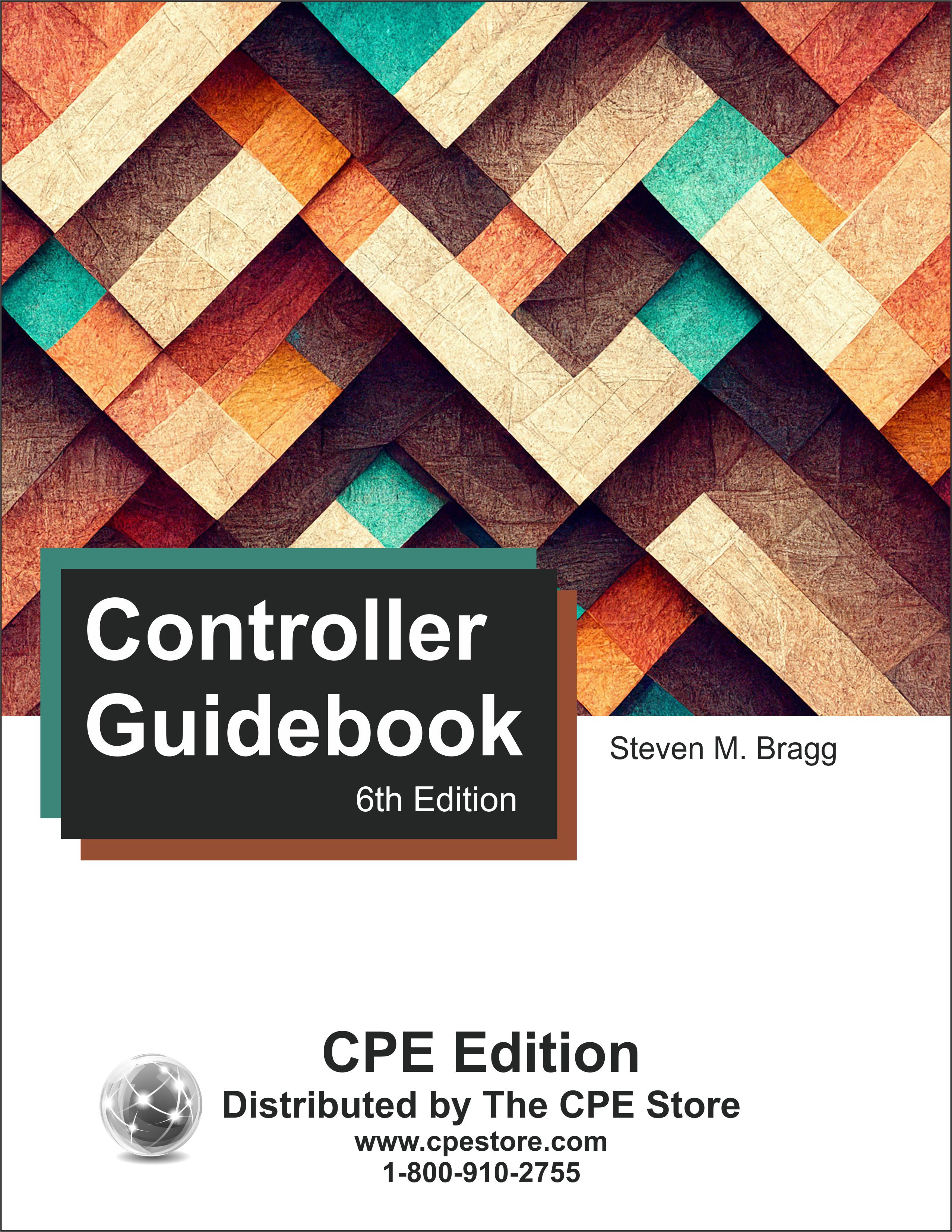
Course number: B483606
Covers every aspect of being a controller, including the management of accounts payable, cash, collections, inventory, payroll, and more. It also shows you how to close the books, which reports to issue to the management team, how to create a budget, and how to select and install an accounting computer system. Provides comprehensive coverage not only of what to do, but critical timing and sequence considerations for when to do it, how each element should be done, to whom to delegate required tasks and functions, how to manage the many functions, and why each is needed for the full range of controller responsibilities. Course level: Basic. Prerequisites: None. Course includes integrated text and study guide, final exam and grading service.NASBA field of study: Management Services Course credit: 20 hours
Printed Version$129
PDF$129
Colleague Test(s)$60
Contents
Corporate Cash Management
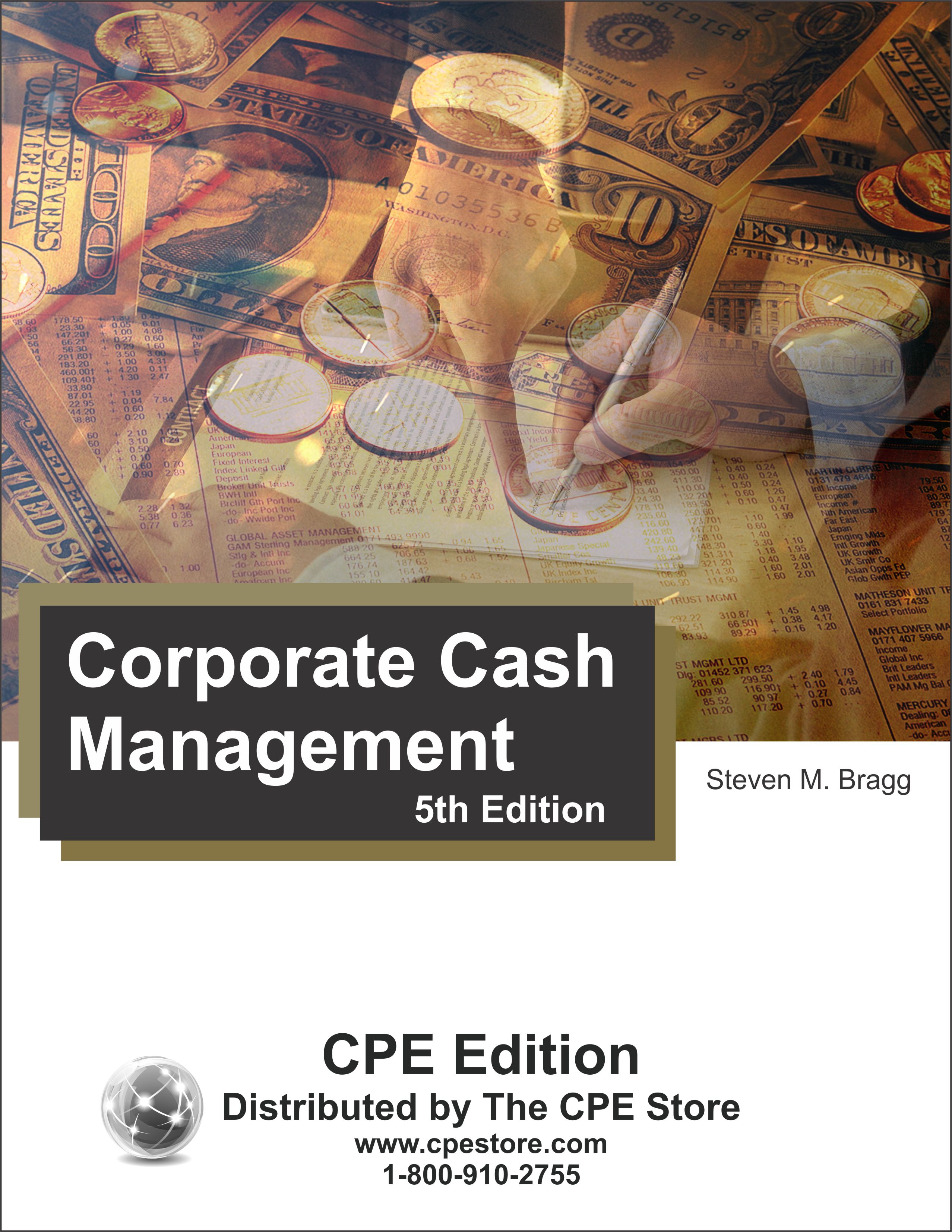
Course number: B475805
The proper management of cash is an essential part of business operations. Corporate Cash Management provides an essential framework for the development and operation of a cash management system. It does so by showing how to forecast cash flows, which can then be used as the basis for a campaign to enhance the inflow of cash to the organization. The course also notes the systems used to collect, concentrate, invest, and disburse cash, as well as the supporting controls and measurements needed to monitor these systems. It also covers the related topics of fundraising and risk management. In short, Corporate Cash Management is a useful tool for developing a comprehensive system of cash management. Course level: Basic. Prerequisites: None. Course includes integrated text and study guide, final exam and grading service.NASBA field of study: Finance Course credit: 15 hours
Printed Version$109
PDF$109
Colleague Test(s)$45
Contents
Corporate Finance
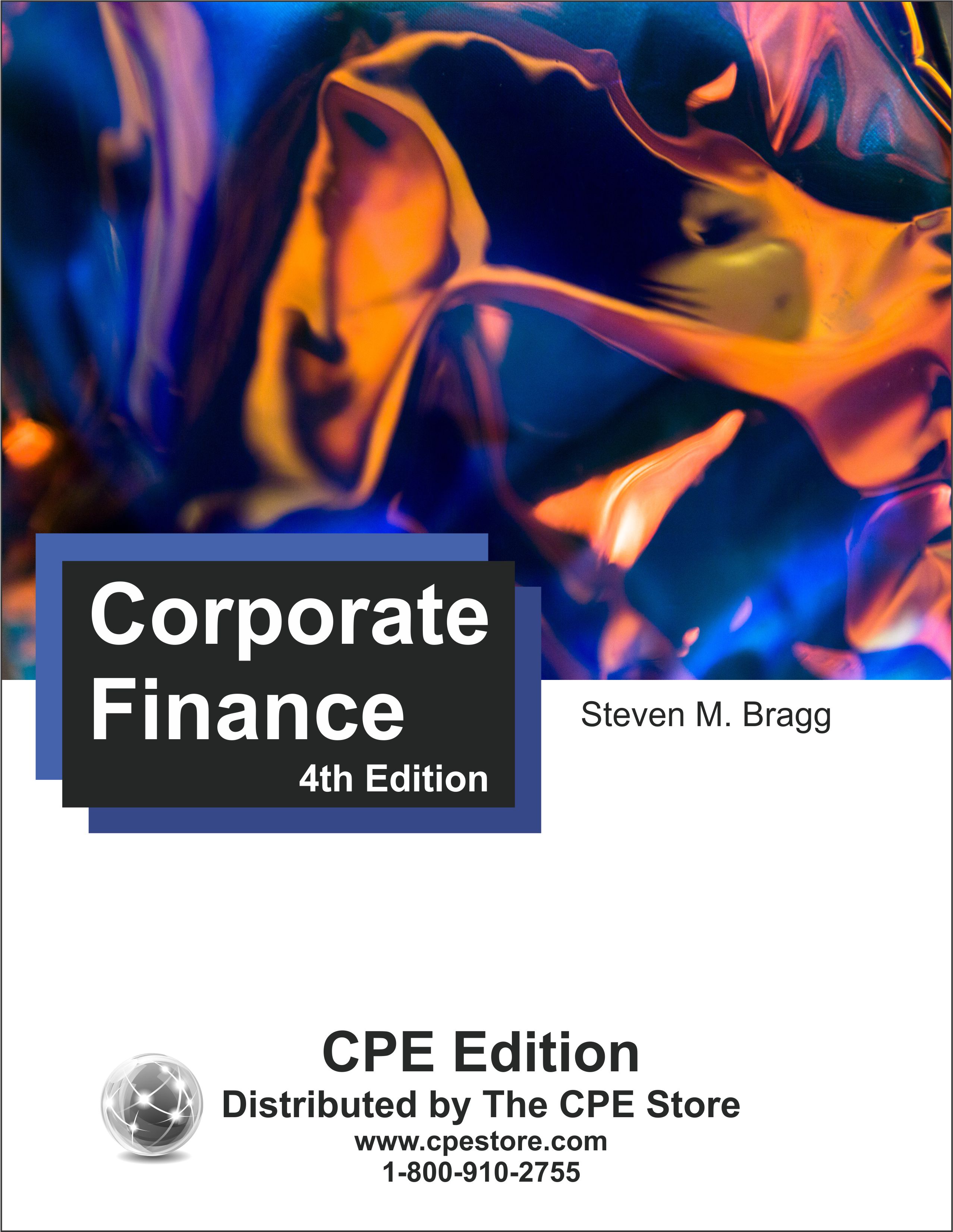
Course number: B452604
Corporate Finance follows the flow of funds through a business, including fund raising, internal cash management, and the deployment of funds to dividends, capital expenditures, investments, and acquisitions. This course is intended to give the professional manager direction regarding how to develop an appropriate capital structure and determine the best types of debt and equity funding. Additional tools are provided for calculating the cost of capital and constructing cash flows to analyze potential cash uses. Full coverage of risk management for foreign exchange and interest rates is also included. Course level: Basic. Prerequisites: None. Course includes integrated text and study guide, final exam and grading service.NASBA field of study: Finance Course credit: 15 hours
PDF$109
Colleague Test(s)$45
Contents
Cost Accounting Fundamentals
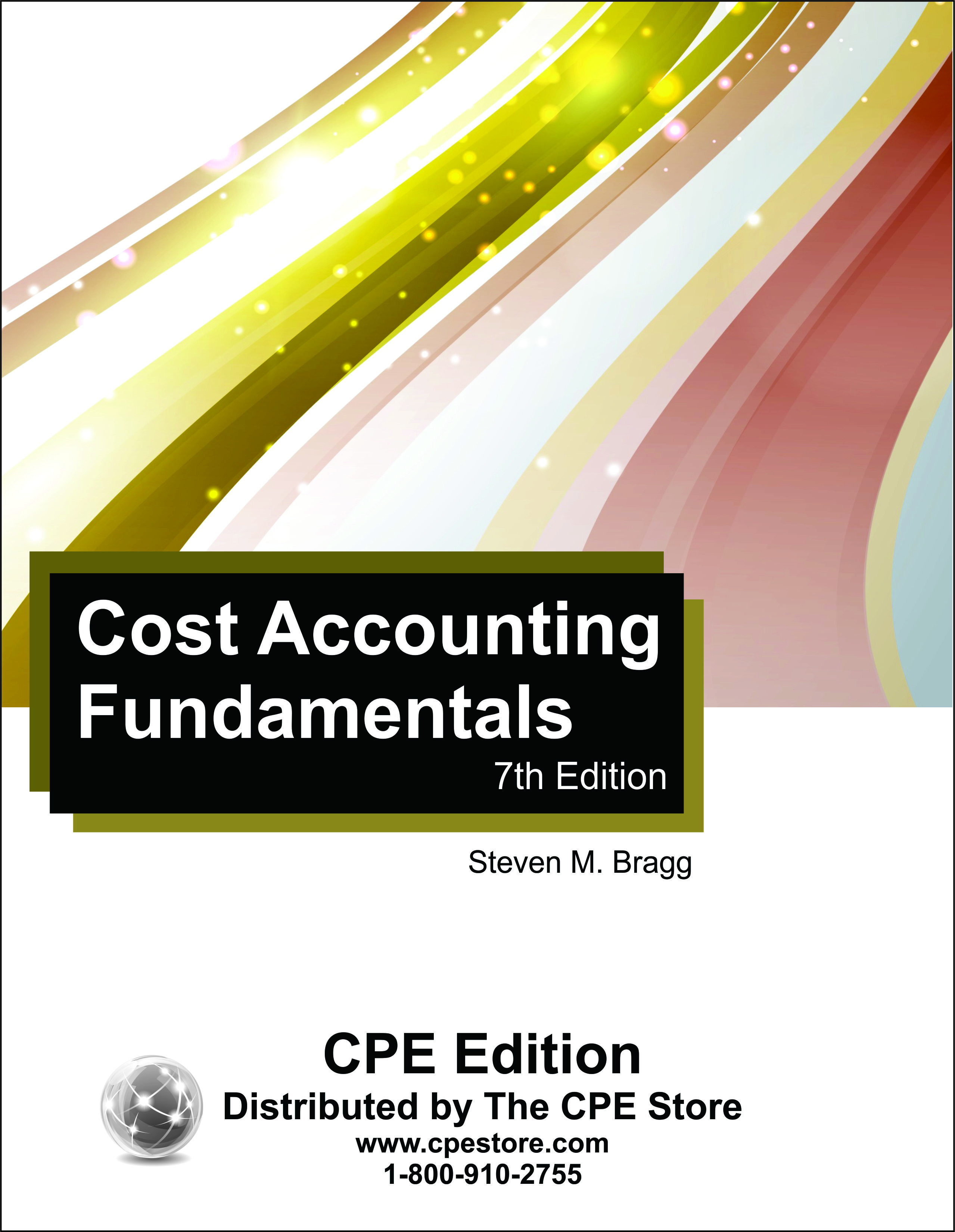
Course number: AA434407
Describes the key cost accounting concepts that most concern the practicing cost accountant, and illustrates them with numerous examples. The course is designed for those who can benefit from its detailed descriptions of inventory valuation methods, product pricing techniques, cost analysis methods, and more. Cost Accounting Fundamentals includes such key topics as job costing, process costing, standard costing, target costing, transfer pricing, activity-based costing, constraint analysis, and capital budgeting analysis. The coverage of target costing, resource consumption cost concepts, and related cost planning and management topics make this course invaluable. Course level: Basic. Prerequisites: None. Course includes integrated text and study guide, final exam, and grading service.NASBA field of study: Accounting Course credit: 15 hours
Printed Version$109
PDF$109
Colleague Test(s)$45
Contents
Credit and Collections
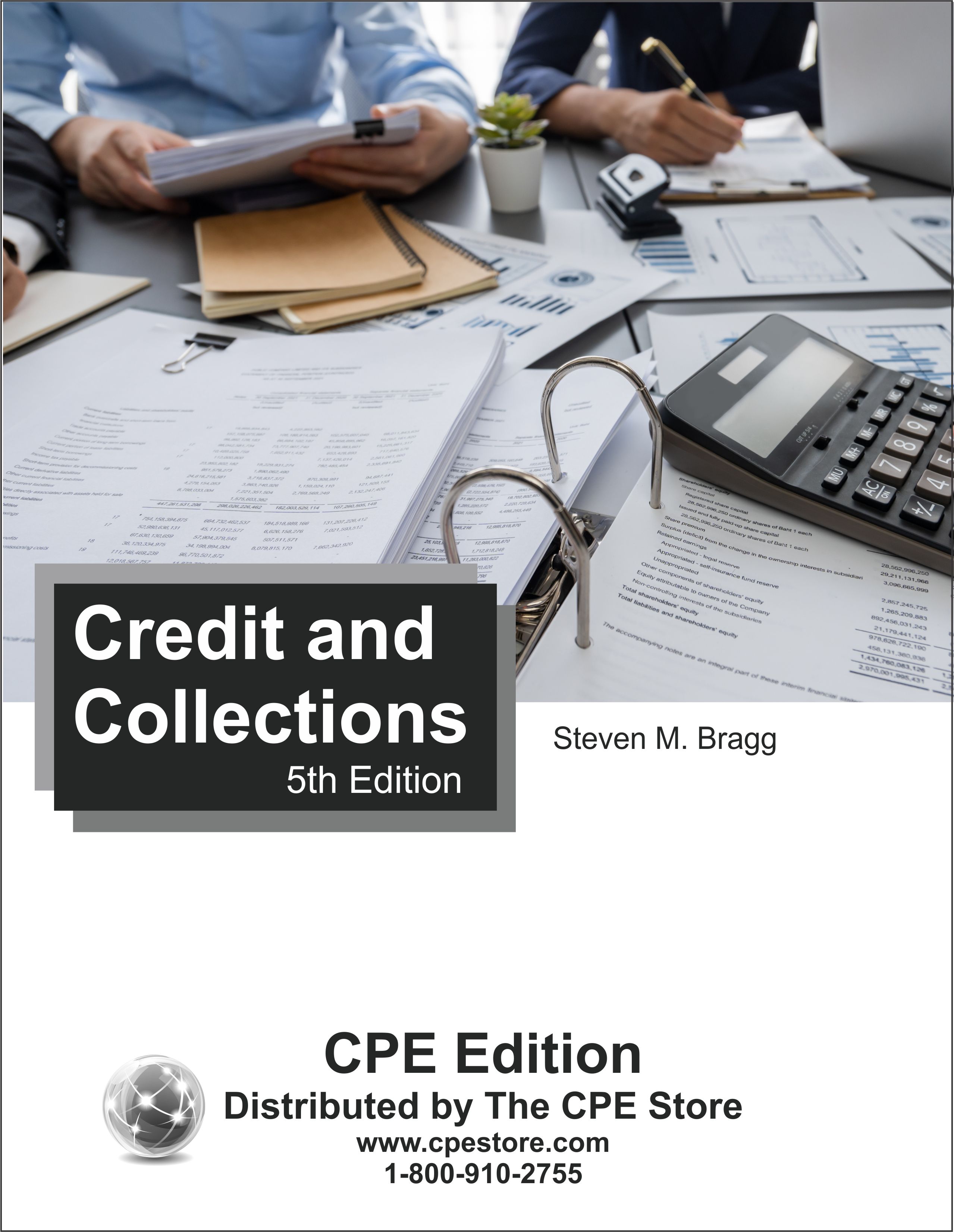
Course number: B432205
This course shows how to achieve a balance between more sales and a reasonable amount of bad debt by focusing on the design and management of the credit and collection functions. The discussion ranges from the structure of specific jobs to the full range of collection and litigation tactics that can be used to collect money from customers. Topics include credit policies, customer billings, risk reduction, customer credit ratings, collection tactics, skip tracing, collection agencies, litigation, bankruptcy, allowance for doubtful accounts, and more. Course level: Basic. Prerequisites: None. Course includes integrated text and study guide, final exam and grading service.NASBA field of study: Management Services Course credit: 14 hours
Printed Version$99
PDF$99
Colleague Test(s)$40
Contents
Crowdfunding Essentials
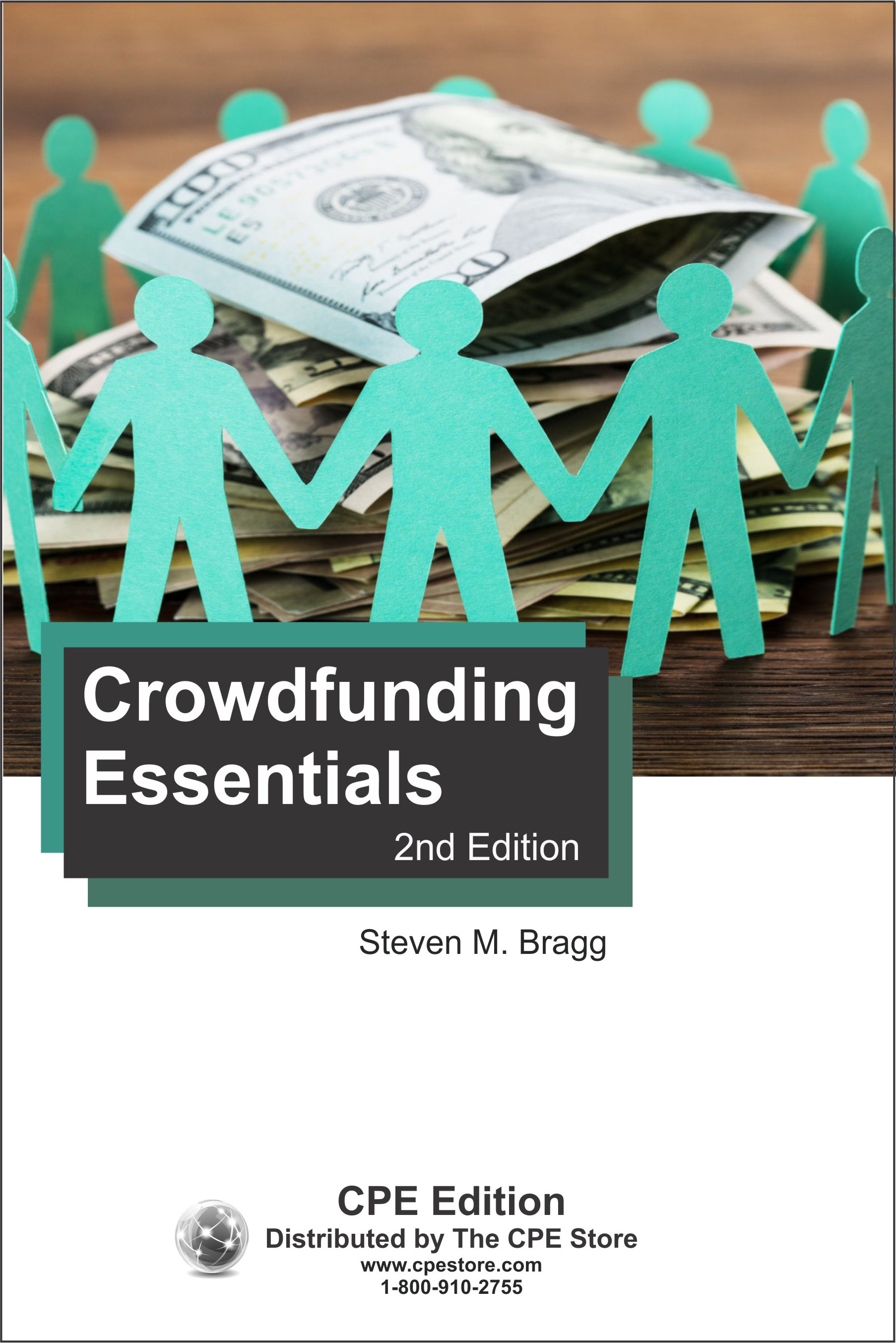
Course number: B488602
This course discusses how to obtain funds through crowdfunding, which may be a ready source of cash when other alternatives are not available. It addresses the types of crowdfunding, the risks involved, and the details of the Regulation Crowdfunding, which governs how a business can sell shares via crowdfunding. The course also covers several alternatives to crowdfunding that may be more relevant to an organization’s financial needs, as well as several ways to derive a stock price at which to sell shares. In short, the course helps you decide whether crowdfunding is a good alternative and how to go about raising funds with it. Course level: Basic. Prerequisites: None. Course includes integrated text and study guide, final exam and grading service.NASBA field of study: Finance Course credit: 2 hours
Printed Version$19
PDF$19
Colleague Test(s)$12
Contents
Detecting Accounting Fraud Before It's Too Late
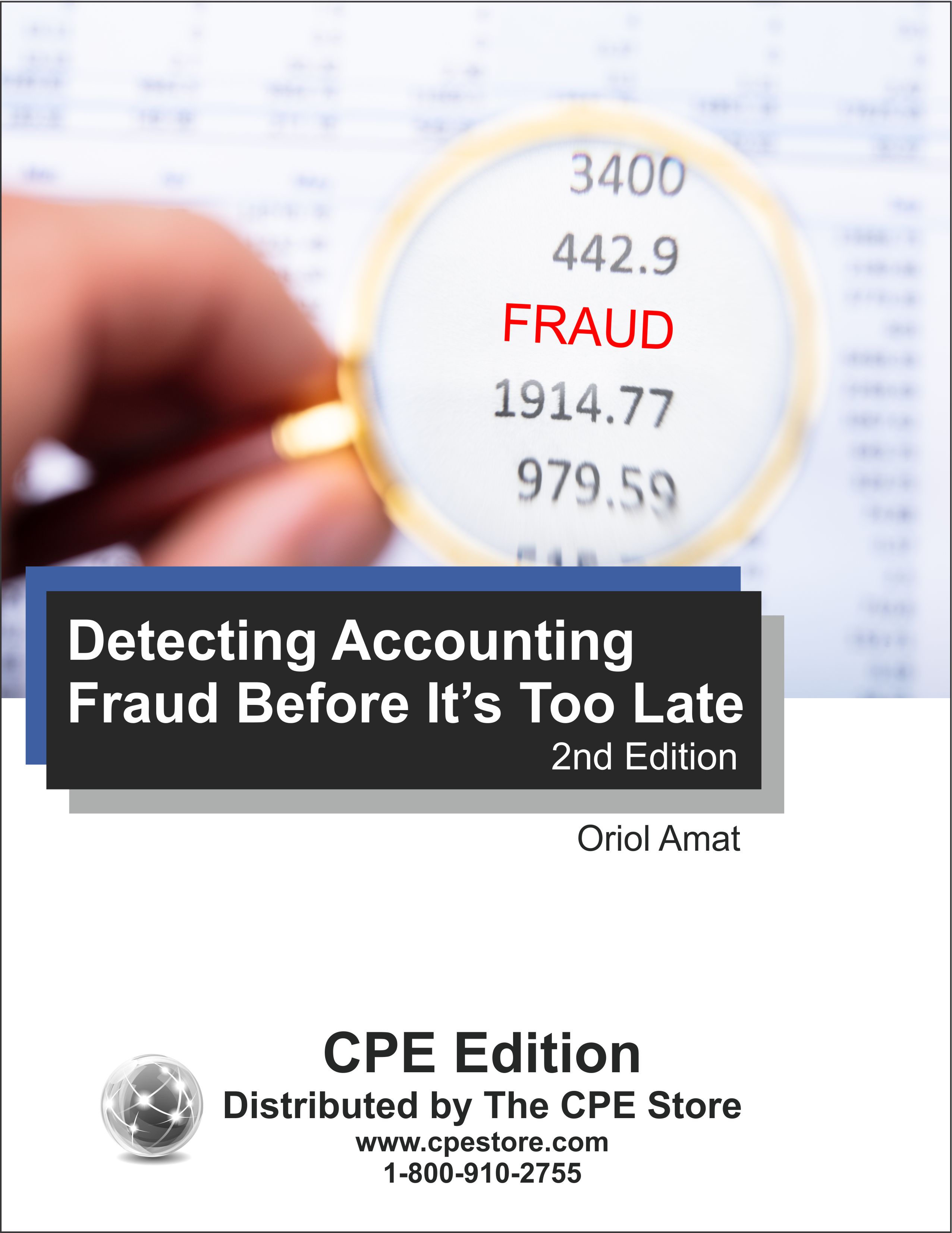
Course number: AA694402
This course provides information on the various types of fraud and accounting manipulations that occur in a business environment. It contains a multitude of real fraud cases that show how fraud is committed and the regulations and changes that ensued from these fraudulent actions. The topics discussed include the history of accounting fraud, problems with legislation and those involved in the financial information, personal and organizational warning signs of fraud, and ratios that indicate fraud in the accounts. Additionally, legal and illegal accounting manipulations are addressed, as well as the ethical considerations and economic consequences of these manipulations. Finally, the course offers suggestions on how to deter accounting fraud, and provides information on the criminal responsibility of legal entities and regulatory compliance. Course level: Basic. Prerequisites: None. Course includes integrated text and study guide, final exam and grading service.NASBA field of study: Accounting Course credit: 8 hours
Printed Version$69
PDF$69
Colleague Test(s)$25
Contents
Developing and Managing Teams
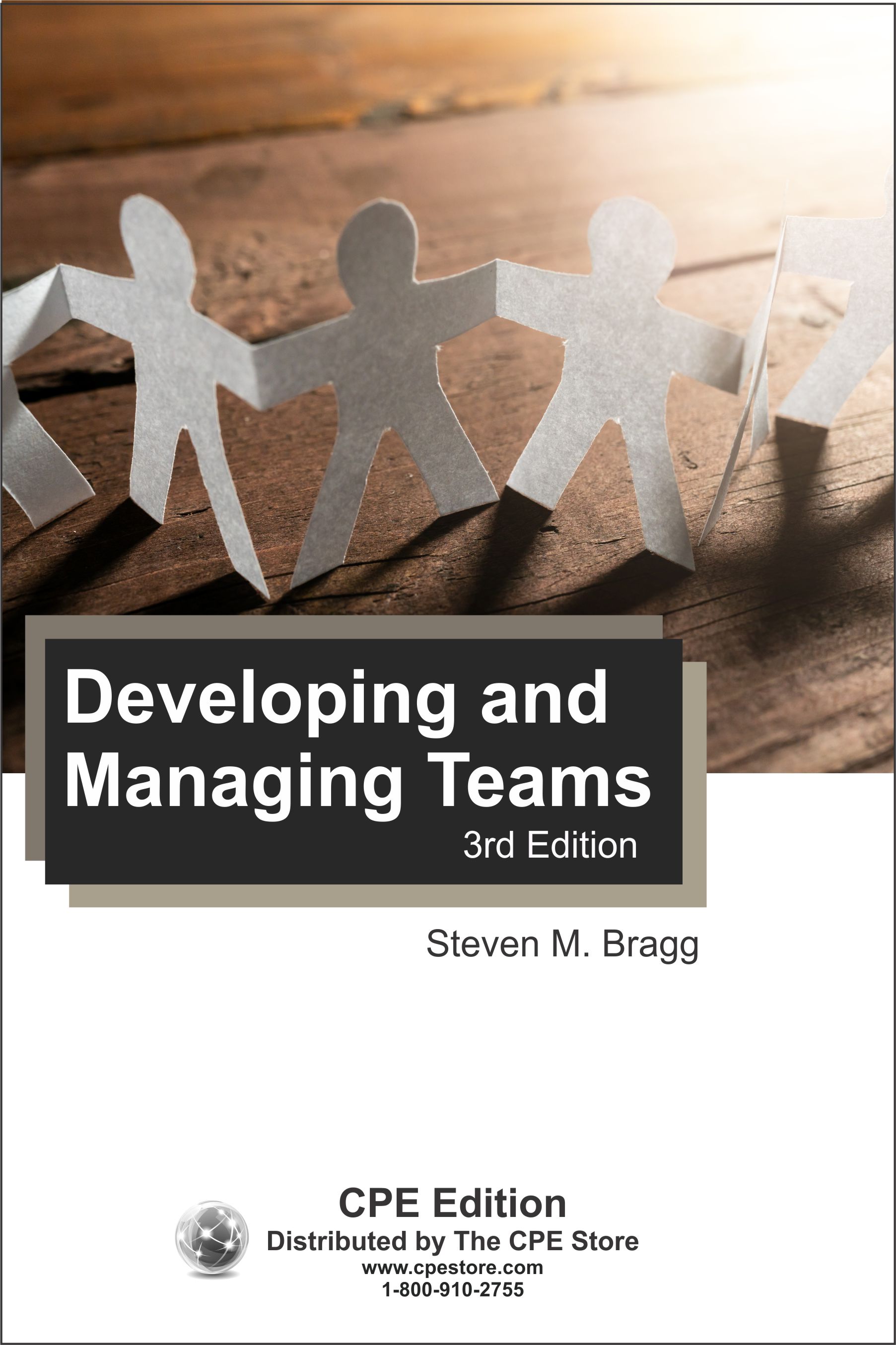
Course number: MM462103
This course covers when to use teams, why it is critical to staff a team with a mix of personality types, and how to develop a high-performing team. The course also notes the importance of emotional intelligence, conflict resolution, and consensus building. It addresses many additional team topics, including how to manage a team, self-directed teams, and the decision-making process within a team. Course level: Basic. Prerequisites: None. Course includes integrated text and study guide, final exam, and grading service.NASBA field of study: Personnel/Human Resources Course credit: 4 hours
Printed Version$39
PDF$39
Colleague Test(s)$15
Contents
Disaster Recovery Planning
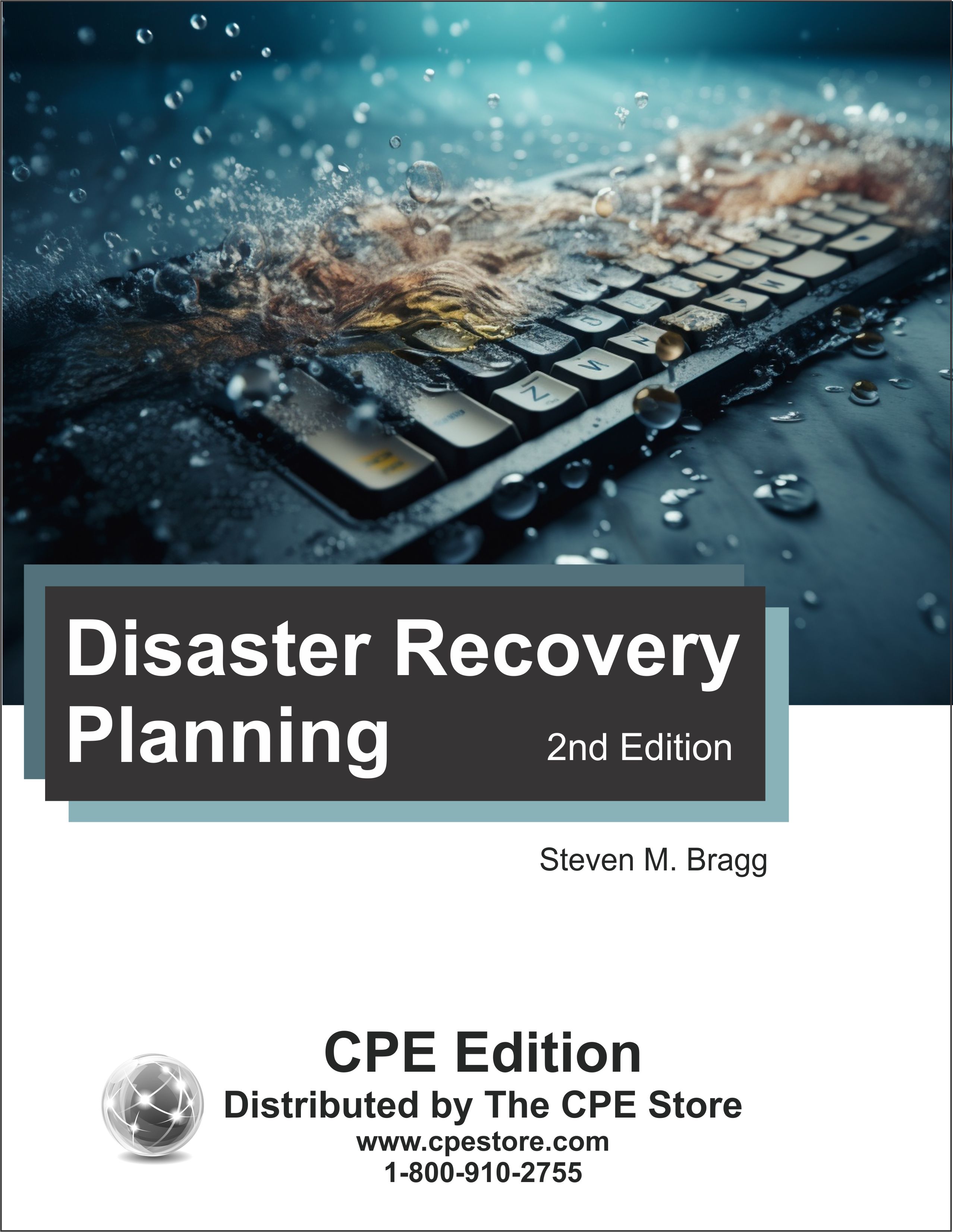
Course number: CC446402
Even a well-run company can be brought down by a disaster, such as a fire or flood. In the Disaster Recovery Planning course, we describe how to identify risk areas and create and test a plan for how to deal with them. Topics covered include risk analysis, developing a recovery strategy, crisis management, disaster recovery priorities, and dozens of best practices for mitigating all kinds of disasters. This is the go-to guide for setting up a disaster recovery plan. Course level: Basic. Prerequisites: None. Course includes integrated text and study guide, final exam and grading service.NASBA field of study: Information Technology Course credit: 6 hours
Printed Version$59
PDF$59
Colleague Test(s)$20
Contents
Education Tax Benefits

Course number: TAX928103
Education Tax Benefits examines the programs, credits, deductions and federal income tax treatment of various items that affect saving for and financing an individual’s education. In so doing, it considers qualified tuition programs (QTPs), Coverdell education savings accounts (ESAs), the education savings bond program, federal tax credits for education, the federal tax treatment of scholarships, fellowships, grants and tuition reductions and the deduction available for student loan interest. Course level: Basic. Prerequisites: None. Course includes integrated text and study guide, final exam, and grading service.NASBA field of study: Taxes Course credit: 6 hours
Printed Version$59
PDF$59
Colleague Test(s)$20
Contents
Effective Collections
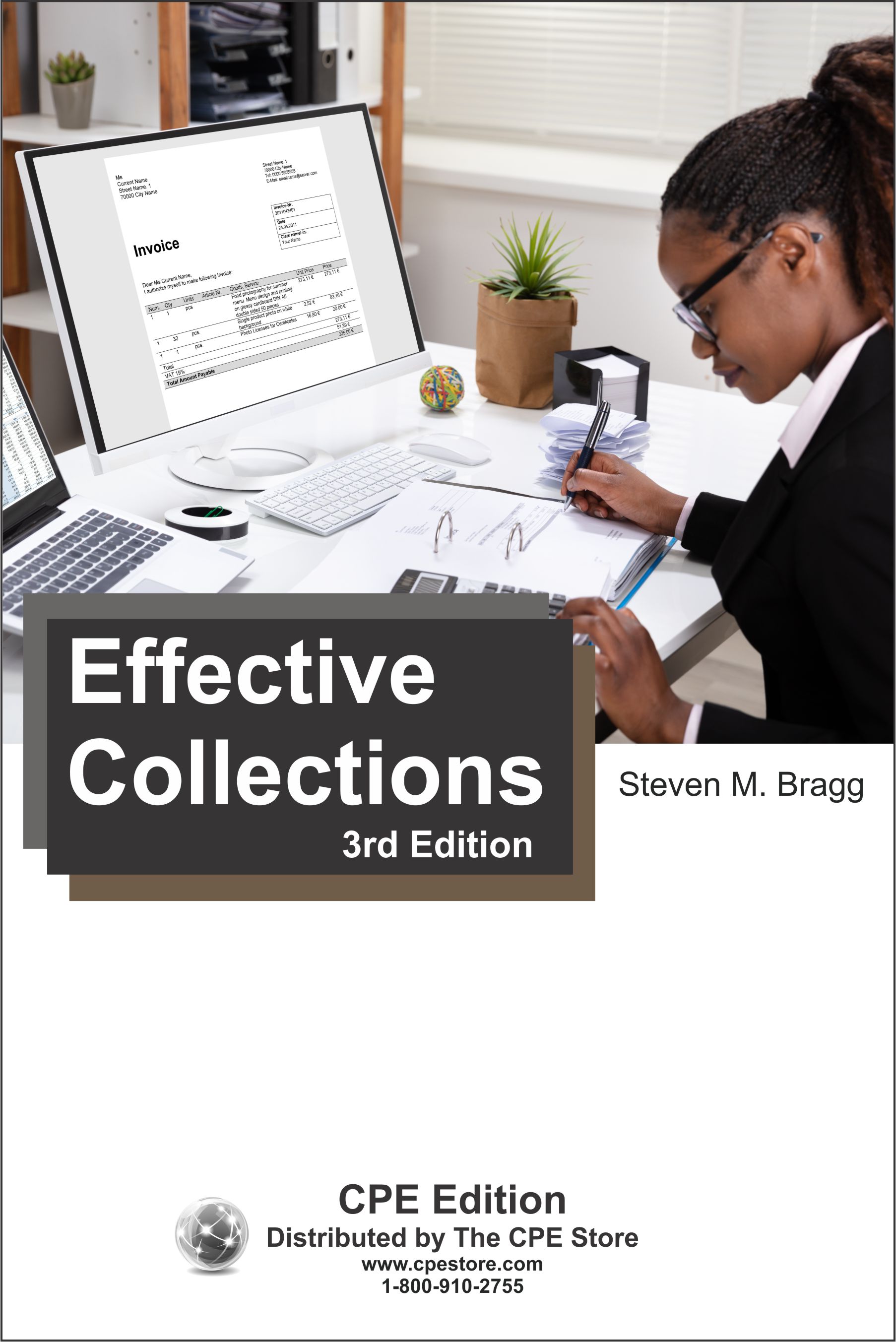
Course number: AA489203
The Effective Collections course gives the accountant a complete set of tools for how to collect overdue invoices from customers, thereby accelerating cash flows and reducing the need for alternative forms of financing. The techniques covered include courtesy calls, dunning letters, salesperson assistance, arbitration, collection agencies, small claims court, and involuntary bankruptcy. The course shows the accountant how to select a reputable collection agency and monitor its operations, and also provides advice about when it makes sense to engage in litigation. Course level: Basic. Prerequisites: None. Course includes integrated text and study guide, final exam, and grading service.NASBA field of study: Accounting Course credit: 2 hours
Printed Version$19
PDF$19
Colleague Test(s)$12
Contents
Effective Corporate Turnarounds

Course number: B471102
A failing business may suddenly find itself in desperate need of a comprehensive overhaul. In the Effective Corporate Turnarounds course, we cover the basic stages of a turnaround, including dozens of specific improvement actions that can be taken. The course also notes a variety of legal considerations, including security interests, worker notifications, and the mechanics of the bankruptcy option. This course represents the complete toolkit for someone interested in successfully completing a corporate turnaround. Course level: Basic. Prerequisites: None. Course includes integrated text and study guide, final exam and grading service.NASBA field of study: Business Management and Organization Course credit: 4 hours
Printed Version$39
PDF$39
Colleague Test(s)$15
Contents
Effective Employee Training

Course number: MM483701
The Effective Employee Training course describes how training can be made more effective, so that it generates an improvement in business performance. The course covers the alignment of training with corporate strategy, how training materials should be tailored to specific needs, and how training materials can be designed to maximize knowledge retention. The course also covers how employees should be supported after training has been completed, so that they can implement what they have learned. Course level: Basic. Prerequisites: None. Course includes integrated text and study guide, final exam, and grading service.NASBA field of study: Personnel/Human Relations Course credit: 2 hours
Printed Version$19
PDF$19
Colleague Test(s)$12
Contents
Employee Onboarding
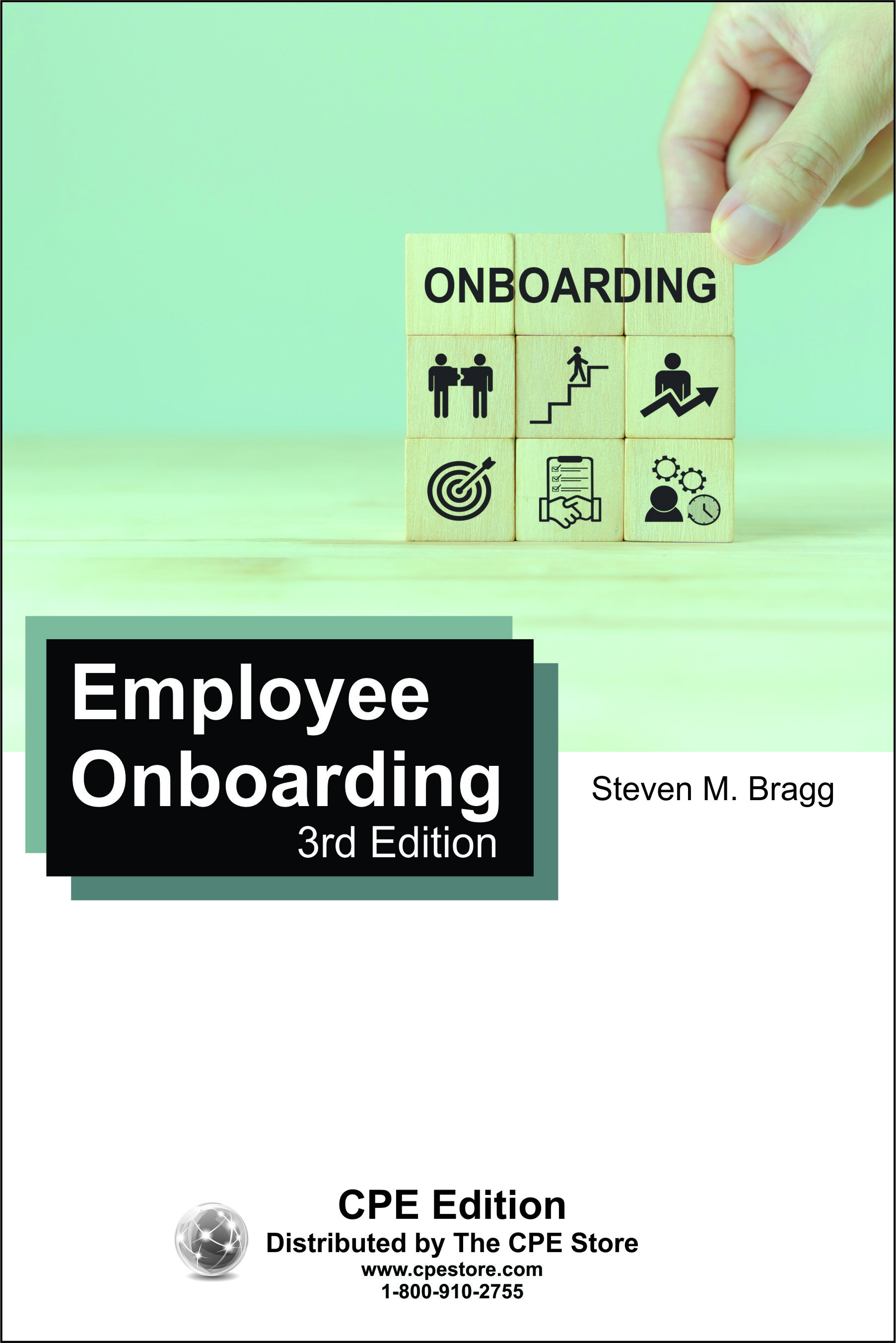
Course number: MM473603
Many new hires begin searching for a new job shortly after they are hired. What can be done to reduce this turnover? The Employee Onboarding course provides a solution—using onboarding activities to more easily assimilate new hires into the organization and shorten the time needed before they become productive members of the organization. The course covers many types of orientation and the need for ongoing performance reviews and surveys, as well as the support of peer advisors, mentors and coaches at various phases of the onboarding process. The course also covers measurement systems, a new employee checklist, and a number of special onboarding challenges. When fully implemented, the concepts covered by this course can put a noticeable dent in your new hire turnover rate. Course level: Basic. Prerequisites: None. Course includes integrated text and study guide, final exam, and grading service.NASBA field of study: Personnel/Human Resources Course credit: 2 hours
Printed Version$19
PDF$19
Colleague Test(s)$12
Contents
Employee Retention Credit & Pass-Through Entity Tax Disclosures
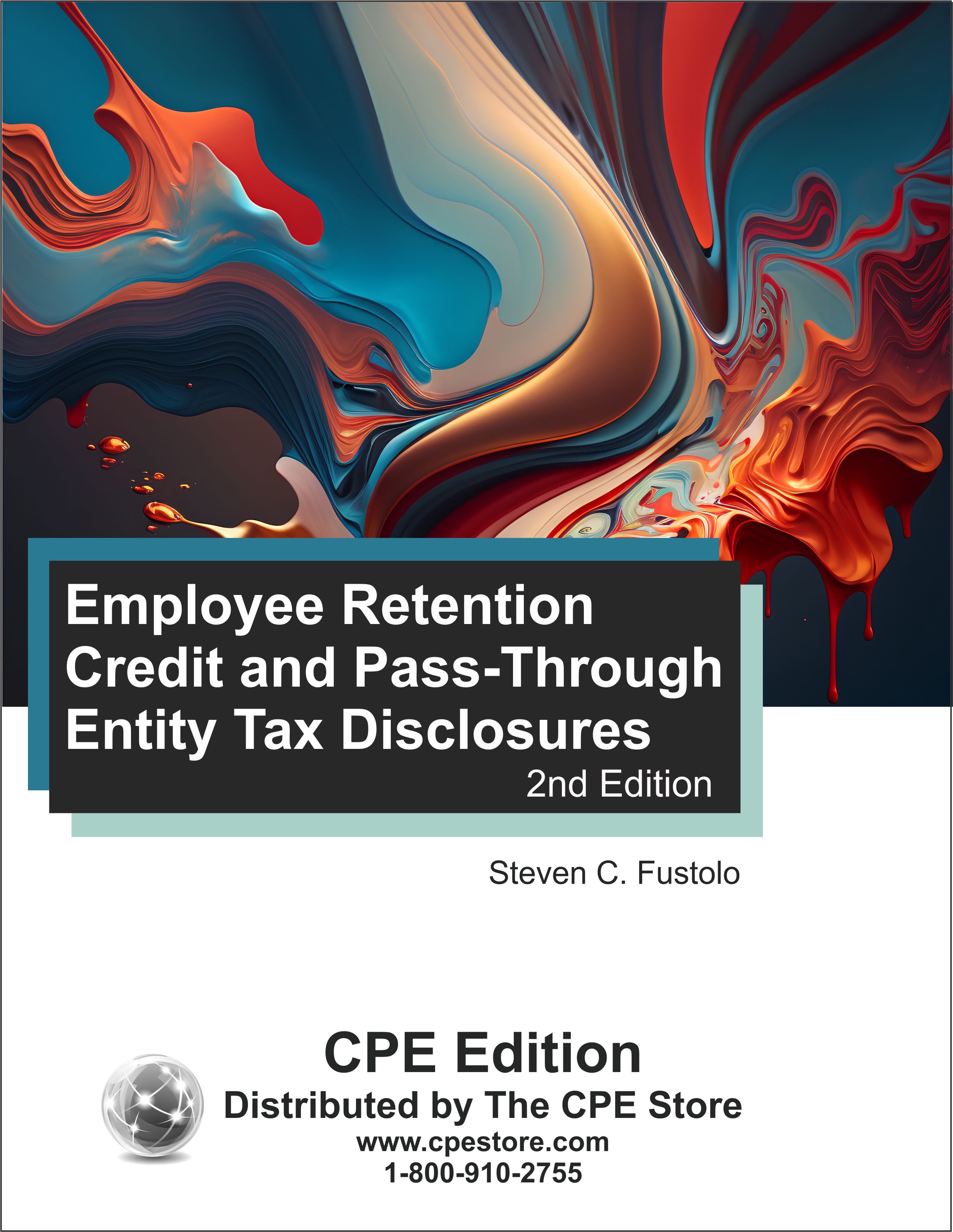
Course number: AA776402
The objective of this course is to review the accounting and financial disclosures related to two recent changes from legislation: the Employee Retention Credit (ERC) and the Pass-Through Entity (PTE) Tax. Topics include: An overview of the ERC rules; models to use to account for the ERC; comparing use of the ASC 958 model with the IAS 20 model to account for the ERC; disclosures required for the ERC including disclosures found in newly issued ASU 2021-10; fixing 2020 ERC presentation and disclosure errors; presenting the ERC on tax-basis financial statements; overview of the Pass-Through Entity (PTE) Tax election; GAAP accounting for the PTE tax; GAAP disclosures for the PTE tax; presenting the PTE tax on tax-basis financial statements, and more. Course level: Basic. Prerequisites: None. Course includes integrated text and study guide, final exam, and grading service.NASBA field of study: Accounting Course credit: 2 hours
Printed Version$19
PDF$19
Colleague Test(s)$12
Contents
Employer's Legal Handbook
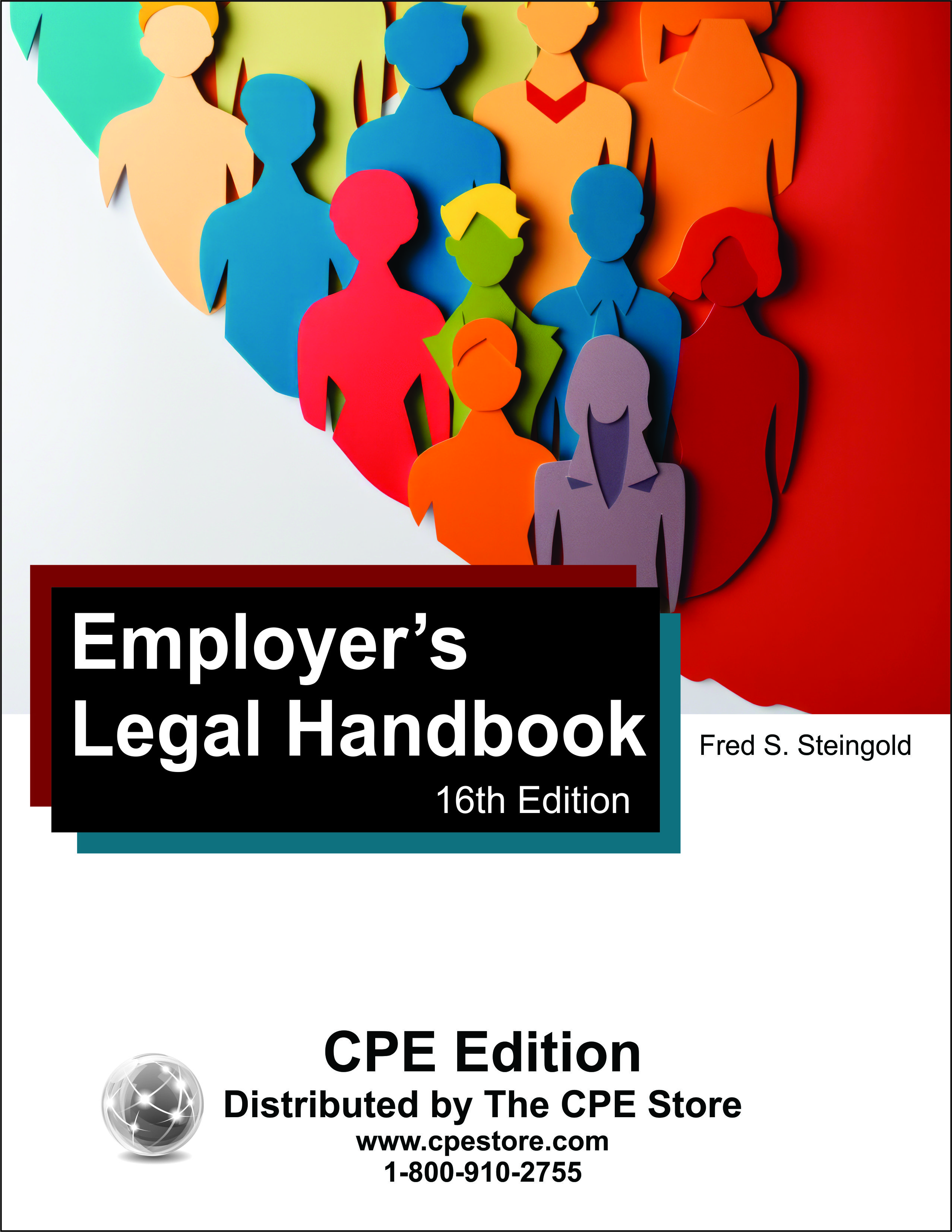
Course number: B530916
This course is absolutely essential for anyone with employees. Covers hiring, firing, personnel policies, employee benefits, discrimination, ADA requirements, workers compensation, workplace health & safety, wage & hour requirements, payroll taxes and independent contractors. Course level: Basic. Prerequisites: None. Course includes integrated text and study guide, final exam and grading service.NASBA field of study: Business Law Course credit: 18 hours
PDF$119
Colleague Test(s)$50
Contents
Enterprise Risk Management
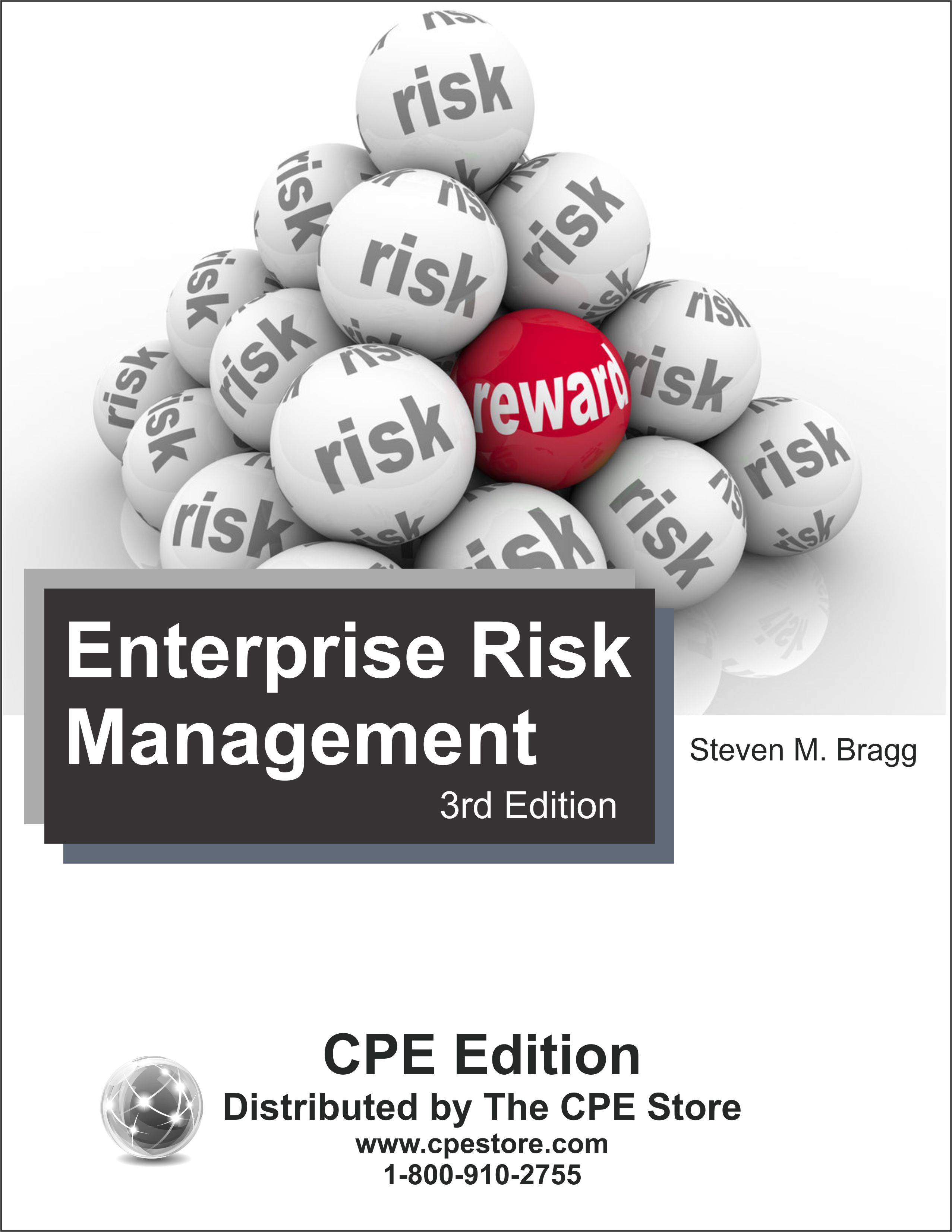
Course number: B459303
Enterprise Risk Management describes the concept of risk management, how to integrate it into an organization’s strategy, and who is responsible for it. The course also addresses risk management at the level of the individual functional area, including treasury and accounting, sales and marketing, human resources, and information technology. There is coverage of contingency planning, insurance, financial analysis, and risk-related measurements and reports. Course level: Basic. Prerequisites: None. Course includes integrated text and study guide, final exam and grading service.NASBA field of study: Management Services. Course credit: 10 hours
PDF$69
Colleague Test(s)$30
Contents
Entertainment Industry Accounting
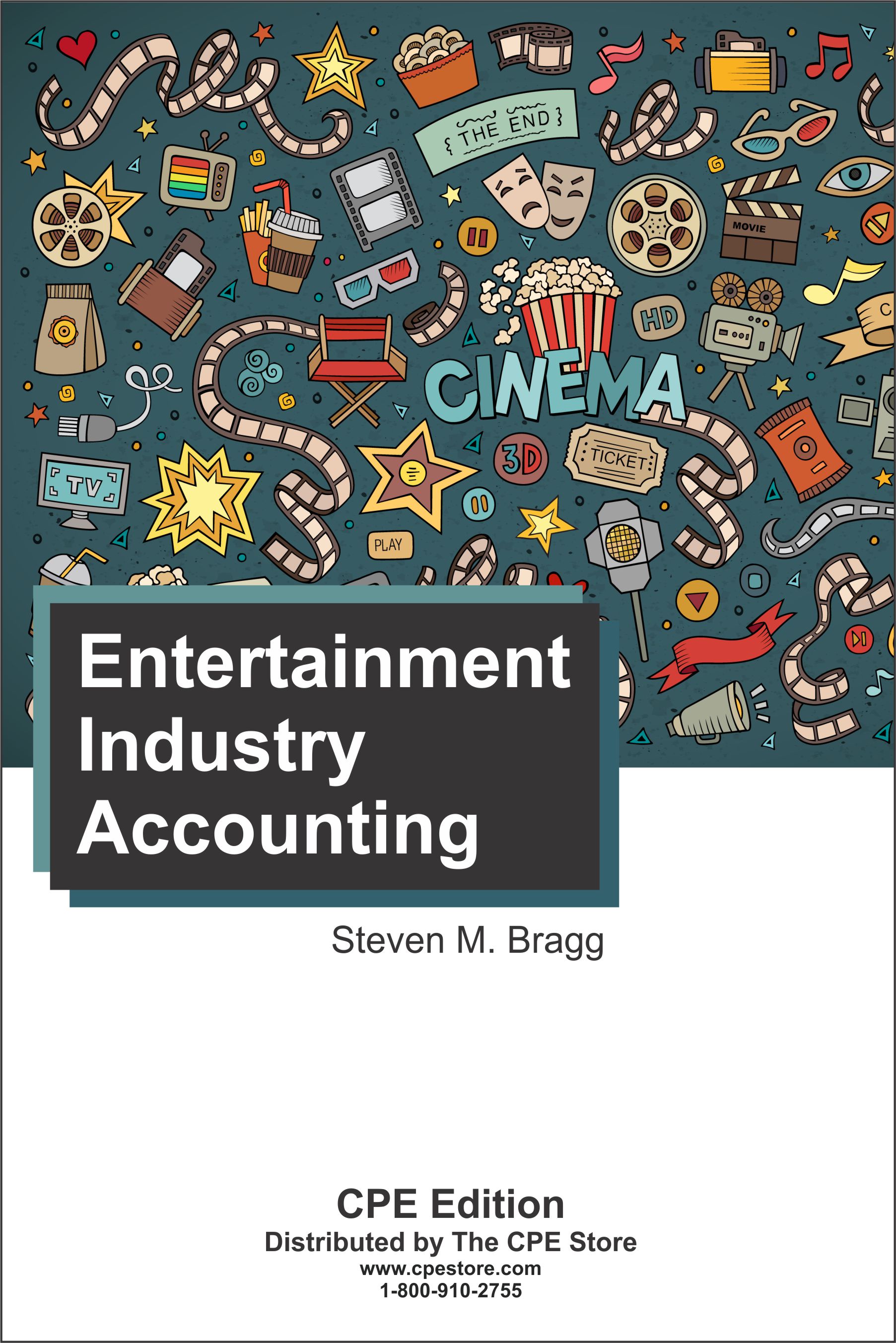
Course number: AA477601
A number of accounting standards are targeted at the entertainment industry, requiring businesses to follow specific rules for license agreements, the buildout of cable systems, film costs, music licensing, and more. Entertainment Industry Accounting covers these accounting requirements, along with related presentation and disclosure topics, with the intent of clarifying how specific transactions are to be handled. This course covers the accounting for broadcasting, cable television, films, and music. Course level: Basic. Prerequisites: None. Course includes integrated text and study guide, final exam and grading service.NASBA field of study: Accounting Course credit: 1 hour
Printed Version$19
PDF$19
Colleague Test(s)$12
Contents
Entrepreneur Guidebook

Course number: B413301
The success rate for new businesses is quite low. The Entrepreneur Guidebook contains advice on how to improve the odds. It discusses how to use the entrepreneurial method to develop a more profitable business, how to find the right customer segment, the innovation techniques for developing new products and services, and the many alternatives for generating revenue. It also discusses how to write a business plan, what types of funding to pursue, which legal entity to form, the legal issues associated with intellectual property, and much more. It is the essential desk reference for entrepreneurs. Course level: Basic. Prerequisites: None. Course includes integrated text and study guide, final exam and grading service.NASBA field of study: Business Management and Organization Course credit: 11 hours
Printed Version$89
PDF$89
Colleague Test(s)$35
Contents
Essentials of Collection Law
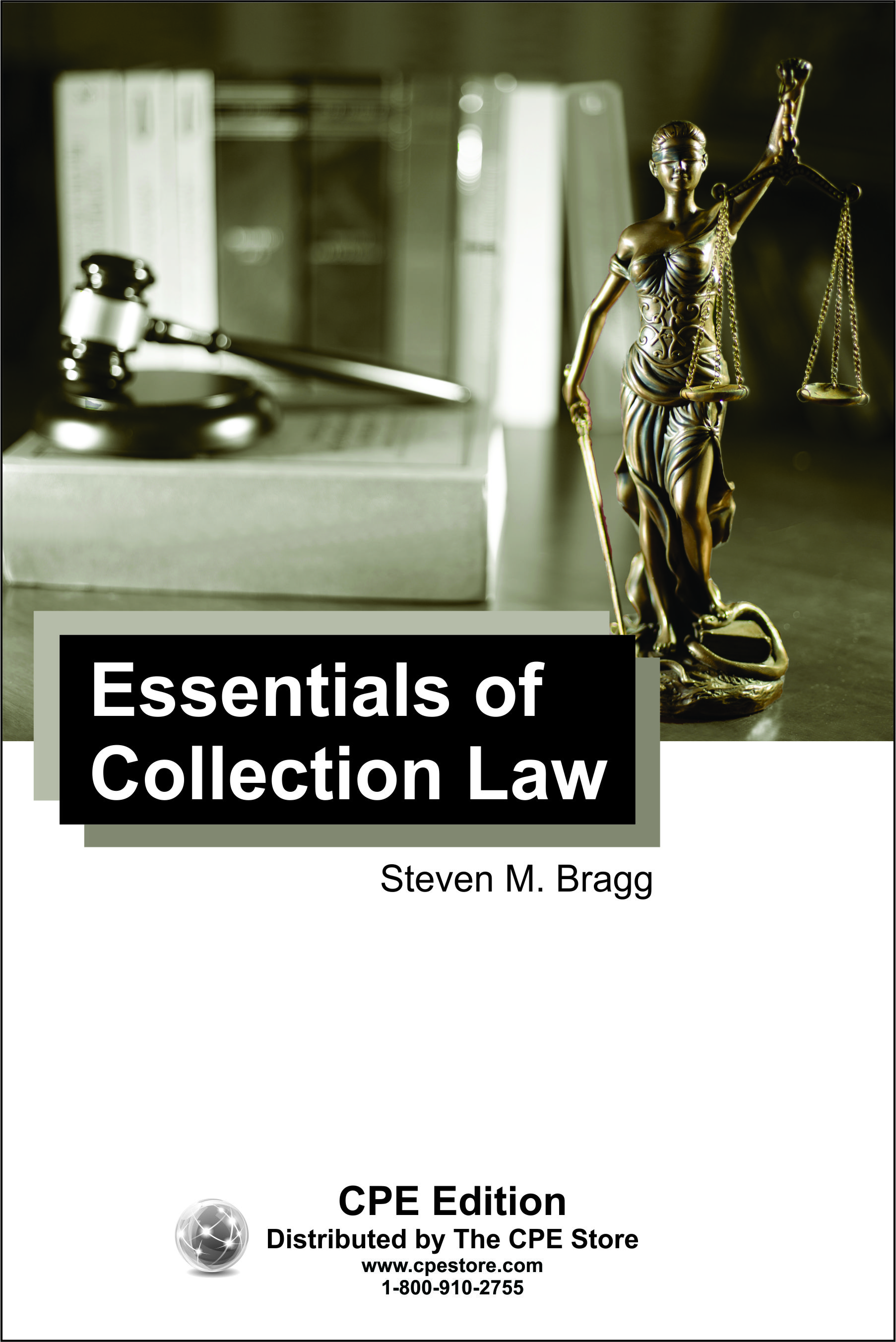
Course number: MM450501
A business engaged in debt collection activities must navigate a minefield of legal requirements for contacting debtors and repossessing assets. In the Essentials of Collection Law course, we address these issues, including sales contract requirements, the various laws pertaining to collections, security interests in personal property, vehicle repossessions, reclaiming assets from a bankrupt debtor, and much more. Course level: Basic. Prerequisites: None. Course includes integrated text and study guide, final exam, and grading service.NASBA field of study: Business Law Course credit: 4 hours
Printed Version$39
PDF$39
Colleague Test(s)$15
Contents
Essentials of Disability Insurance
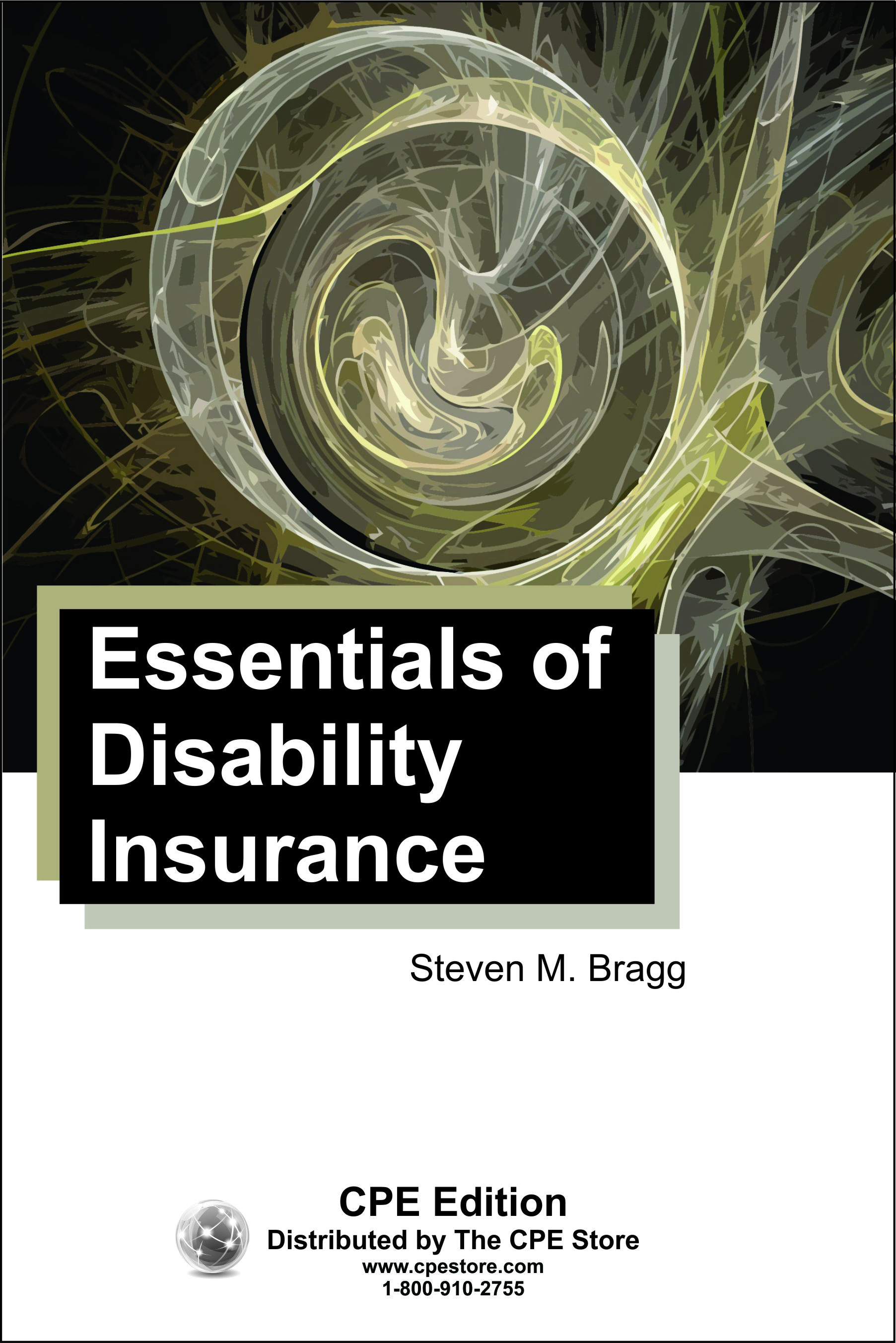
Course number: B471201
Disability insurance is both important and expensive, so it is critical to understand when you should obtain it, and how to tailor its provisions to your specific needs. In the Essentials of Disability Insurance course, we cover the circumstances under which you should (and should not) obtain this insurance, as well as the various policy components. We also address the factors impacting its cost, how to select both an insurance advisor and an insurer, and how to file a disability claim. In addition, we cover several disability insurance options that can keep your business running while you are disabled. In short, this course is designed to give you a thorough overview of the disability insurance concept. Course level: Basic. Prerequisites: None. Course includes integrated text and study guide, final exam and grading service.NASBA field of study: Specialized Knowledge Course credit: 1 hour
Printed Version$19
PDF$19
Colleague Test(s)$12
Contents
Essentials of Forensic Accounting
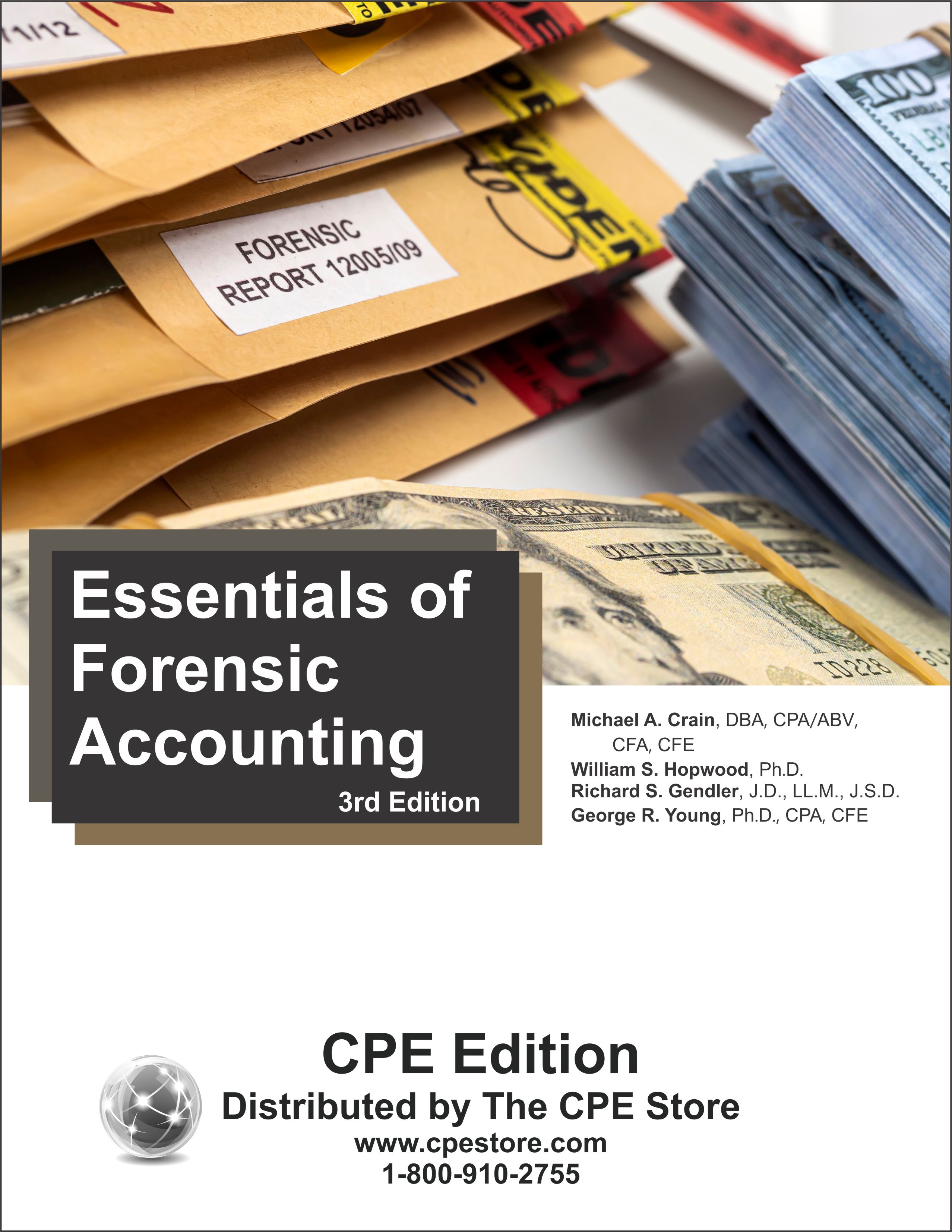
Course number: AA688803
This course covers everything you need to know about Forensic Accounting, with a heavy emphasis on the legal side. Topics include: the forensic accounting profession; civil and criminal procedure; evidence; discovery; litigation services; engagement and practice management; fraud prevention, detection and response; fraud schemes and applications; bankruptcy and related frauds; digital forensics; matrimonial forensics; financial statement misrepresentations; economic damages, and valuation fundamentals and applications. Course level: Basic. Prerequisites: None. Course includes integrated text and study guide, final exam, and grading service.NASBA field of study: Accounting Course credit: 36 hours
Printed Version$229
PDF$229
Colleague Test(s)$110
Contents
Estate Planning

Course number: FP533417
This course covers everything from the basics about wills and trusts to sophisticated tax-saving strategies. Get straightforward, plain-English explanations of practically every estate planning device available. Learn how to choose the right type of trust, avoid probate, provide for children, minimize gift and estate taxes, protect a business, deal with second or subsequent marriages and understand when to use a will. You’ll also learn how marital property is treated in community property states and in common law states; how to complete a property inventory worksheet; how to choose primary, alternate, and residuary beneficiaries; how to disinherit someone; and how to plan for simultaneous death. Includes sample estate plans. Note: Some of the material contained in the text is not valid in Louisiana. Course level: Basic. Prerequisites: None. Course includes integrated text and study guide, final exam, and grading service.NASBA field of study: Specialized Knowledge Course credit: 28 hours
Printed Version$136
PDF$136
Colleague Test(s)$85
Contents
Estate Planning Basics
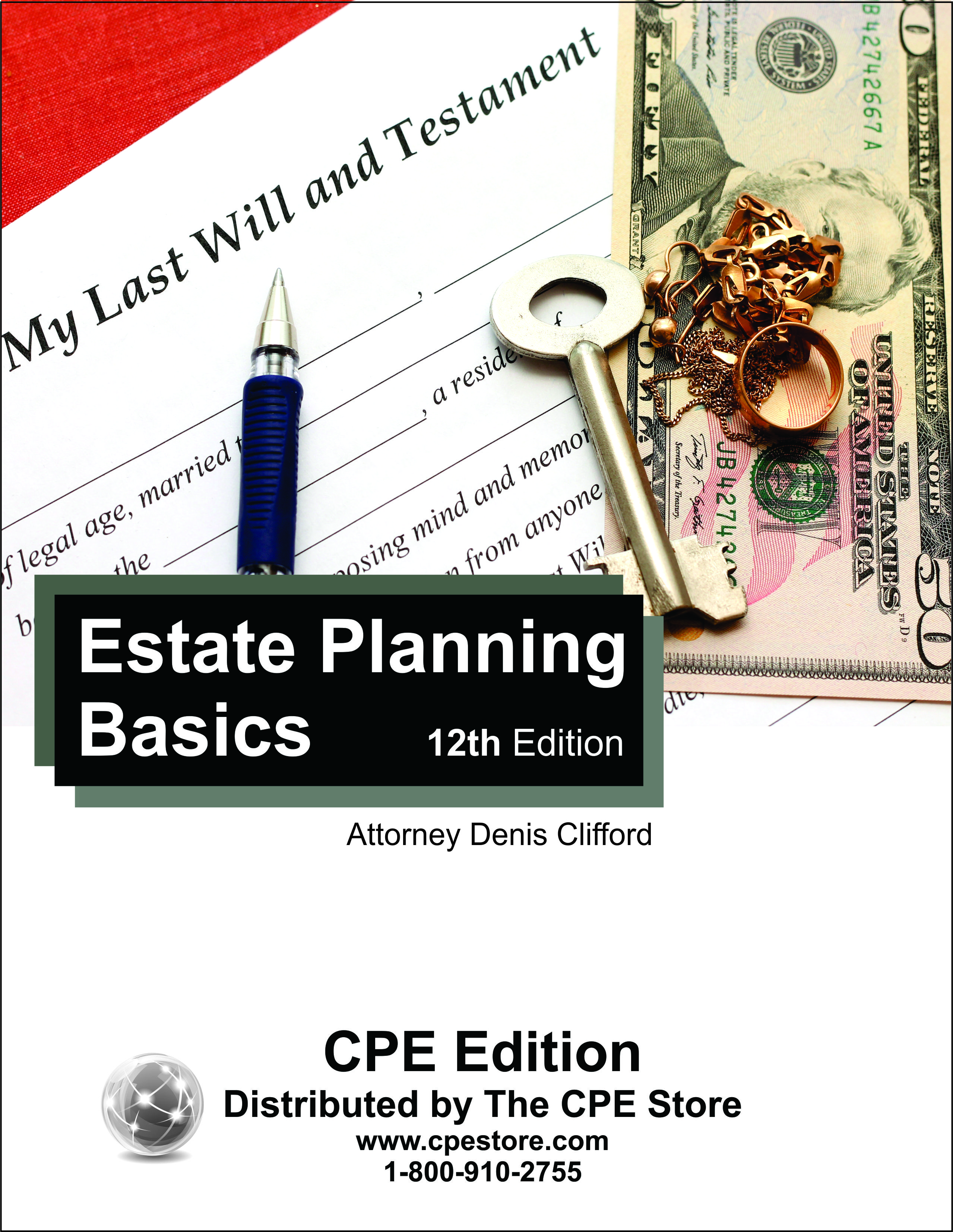
Course number: FP591912
Covers the need-to-know basics about wills, trusts, avoiding probate, and planning for incapacity. Course includes information on making a will or living trust, naming a guardian for your children, avoiding probate, choosing an executor, using durable powers of attorney, preparing a health care directive, and more. Course level: Basic. Prerequisites: None. Course includes integrated text and study guide, final exam, and grading service.NASBA field of study: Specialized Knowledge Course credit: 10 hours
Printed Version$69
PDF$69
Colleague Test(s)$30
Contents
Estate Planning Fundamentals
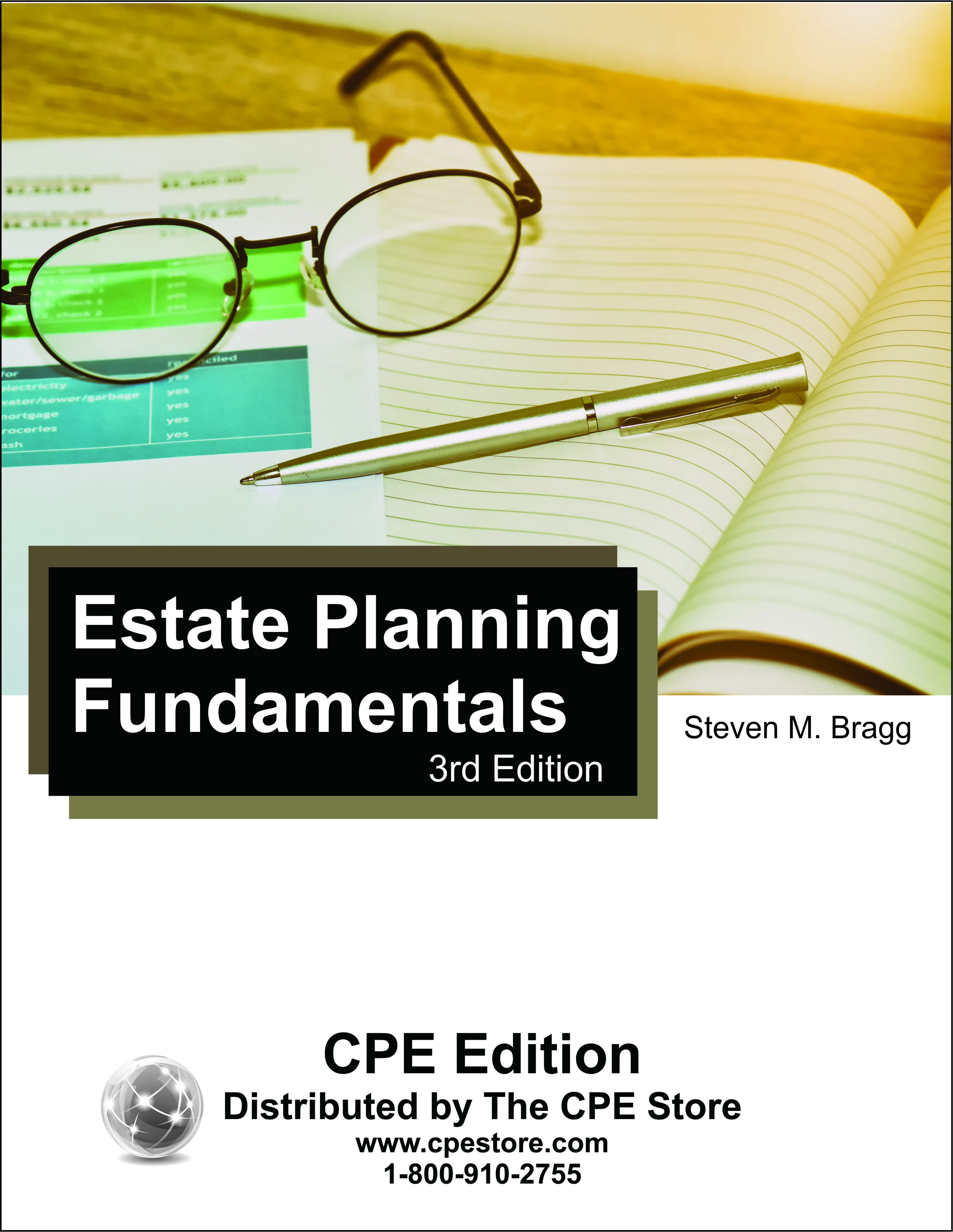
Course number: FP471203
There are many options for estate planning that can minimize taxes, while ensuring that assets are distributed in accordance with your specific wishes. These options are covered in detail in the Estate Planning Fundamentals course. It covers the essentials of wills, probate, living trusts, the pay-on-death option, gift taxes and estate taxes, as well as planning for personal incapacity and much more. Course level: Basic. Prerequisites: None. Course includes integrated text and study guide, final exam and grading service.NASBA field of study: Specialized Knowledge Course credit: 6 hours
Printed Version$59
PDF$59
Colleague Test(s)$20
Contents
Ethics for CPAs
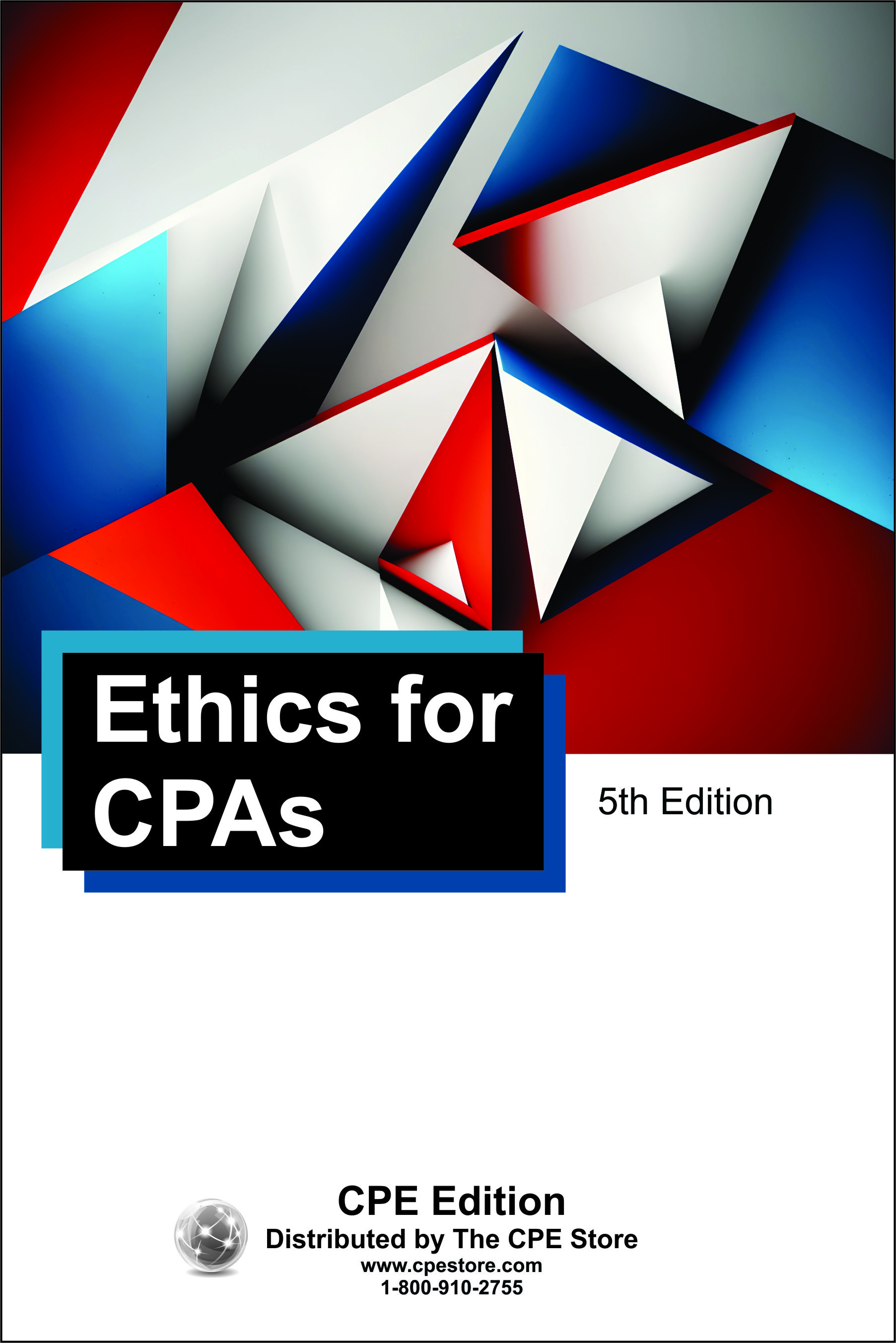
Course number: ETH8905
This course discusses the ethical concepts surrounding businesses, accountants, auditors, and tax professionals. Presented within the text are ethical surveys and statistics regarding misconduct in the workplace, corporate fraud, and tax fraud. Many of the principles and rules set forth for the accounting profession, along with the penalties for violating these rules, are provided. Also found throughout the text are court rulings in regards to: whistleblower retaliation, auditor violations, corporate fraud, and tax fraud. Course level: Basic. Prerequisites: None. Course includes integrated text and study guide, final exam, and grading service. Note: Course meets the ethics requirement for the following states: AK, AL, AR*, CA**, CO, CT, DC, HI, ID, IA, IL, IN, KS, KY, MA, MD, ME, MI, MN, MO, MT, NC, ND, NE, NH, NM, NV, OK, PA, RI, VT, WI, WV, and WV. (*AR requires 1 hour of state-specific; **CA also requires a state-approved course once every 6 years; this course does not meet that requirement). If there is any doubt as to acceptability for your specific requirements, please check with your State Board.NASBA field of study: Behavioral Ethics Course credit: 4 hours
Printed Version$49
PDF$49
Colleague Test(s)$35
Contents
Ethics for Florida CPAs
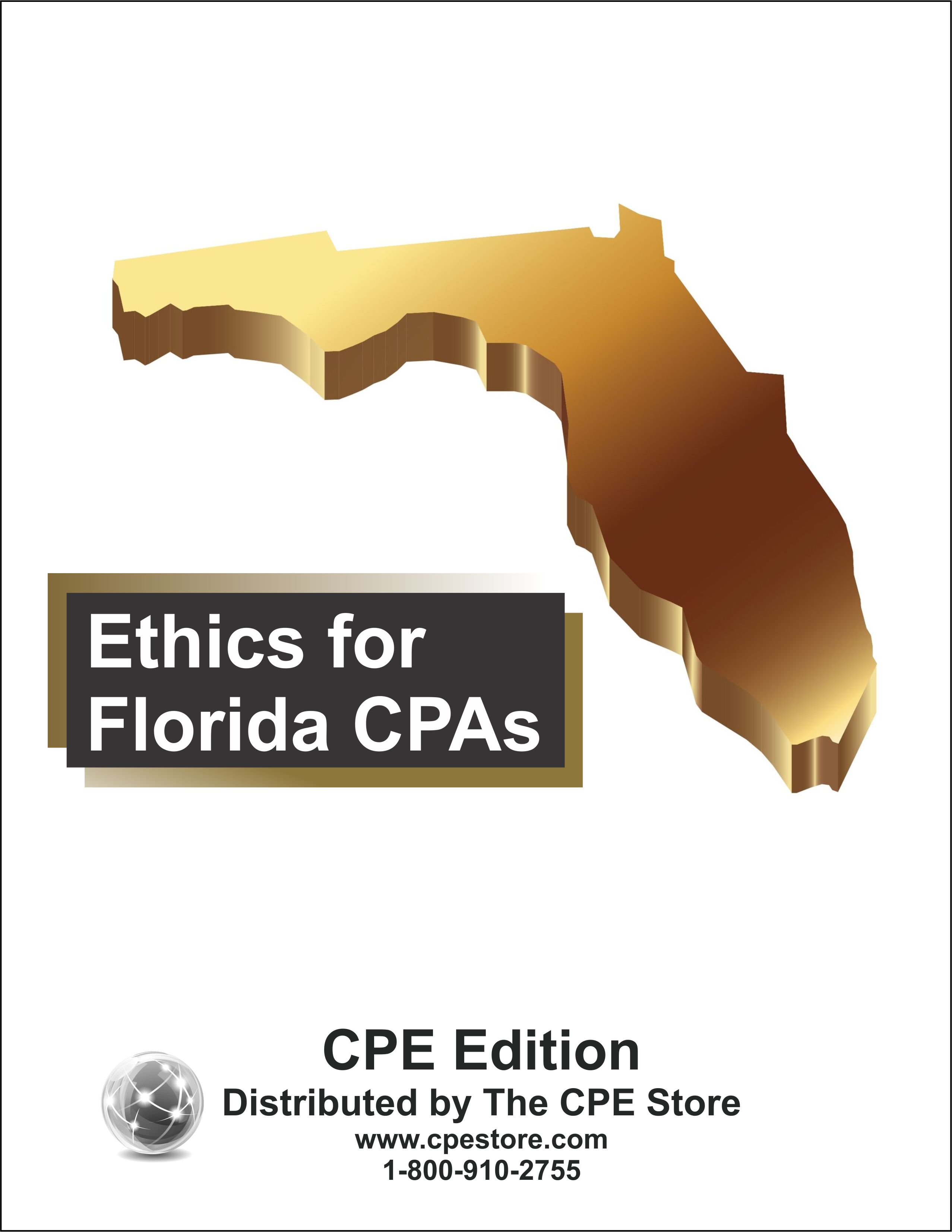
Course number: ETH061206
This course has been approved by the Florida Department of Business and Professional Regulation. It covers standards of professional conduct and business practices adhered to by accountants such as CPAs in order to enhance their profession and maximize idealism, justice and fairness when dealing with the public, clients and other members of their profession. It also presents an ethical overview, the AICPA Code of Professional Conduct and the threats and safeguards approach to coping with ethical dilemmas. Chapter 3 covers Florida Ethics, including a review of key sections within Chapter 61H1: Administrative Code, Chapter 473: Regulation of Professions and Occupations—Public Accountancy, and Chapter 455: Business and Professional Regulation: General Provisions. Course level: Basic. Prerequisites: None. Course includes integrated text and study guide, final exam, and grading service.NASBA field of study: Regulatory Ethics Course credit: 4 hours
Printed Version$49
PDF$49
Colleague Test(s)$35
Contents
Ethics for New York CPAs
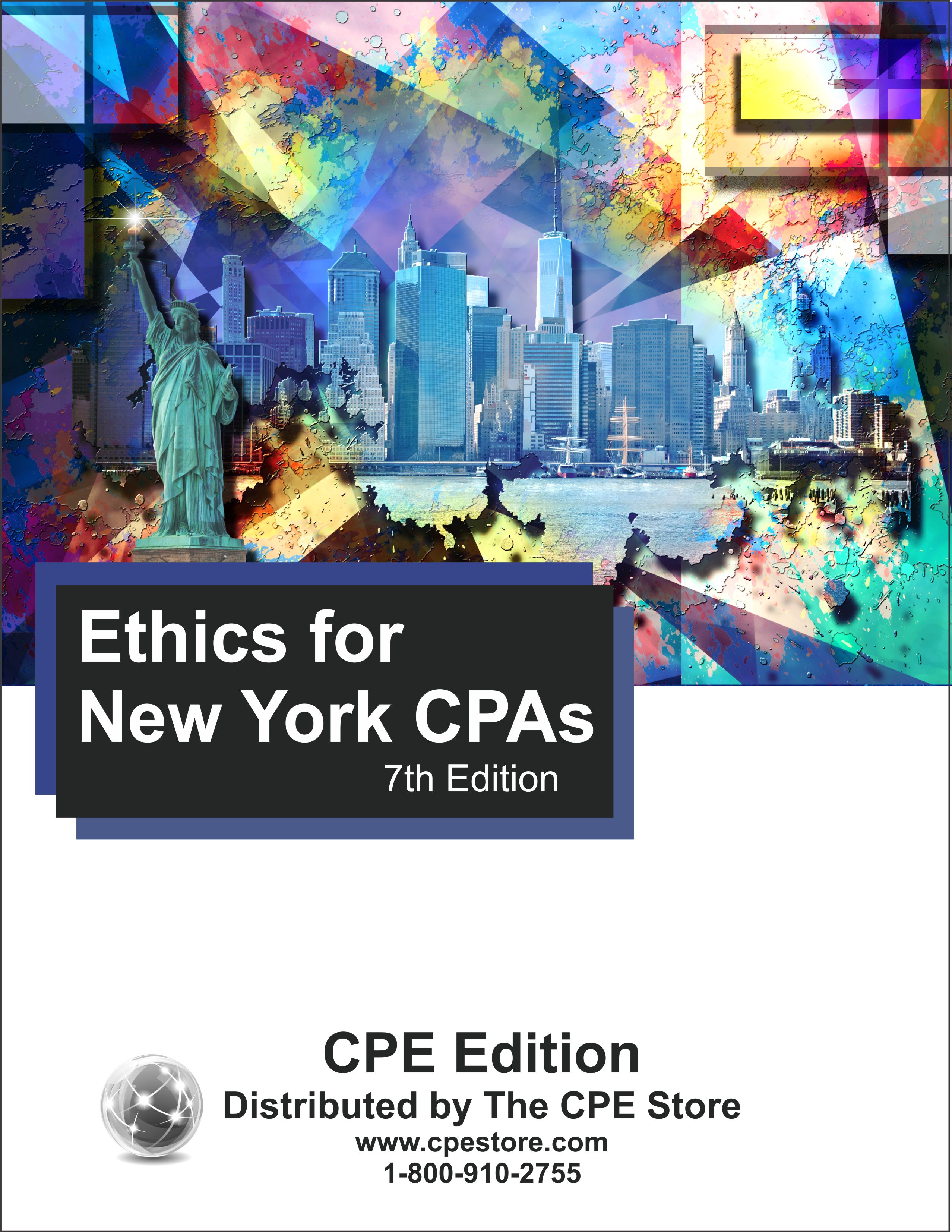
Course number: ETH142507
This course is approved to meet the 4 hour ethics CPE requirement for New York. Covers standards of professional conduct and business practices adhered to by CPAs in order to enhance their profession and maximize idealism, justice, and fairness when dealing with the public, clients and other members of their profession. It also presents an approach—the threats and safeguards approach—to coping with ethical dilemmas. Also included are some cases of AICPA ethics violations. Also covers the specific New York State Statutes, Code of Professional Conduct, and an overview of recent case studies pertaining to Board rules. Course level: Basic. Prerequisites: None. Course includes text, interactive study guide, final exam, and grading service.NASBA field of study: Regulatory Ethics Course credit: 4 hours
Printed Version$49
PDF$49
Colleague Test(s)$35
Contents
Ethics for Tax Professionals
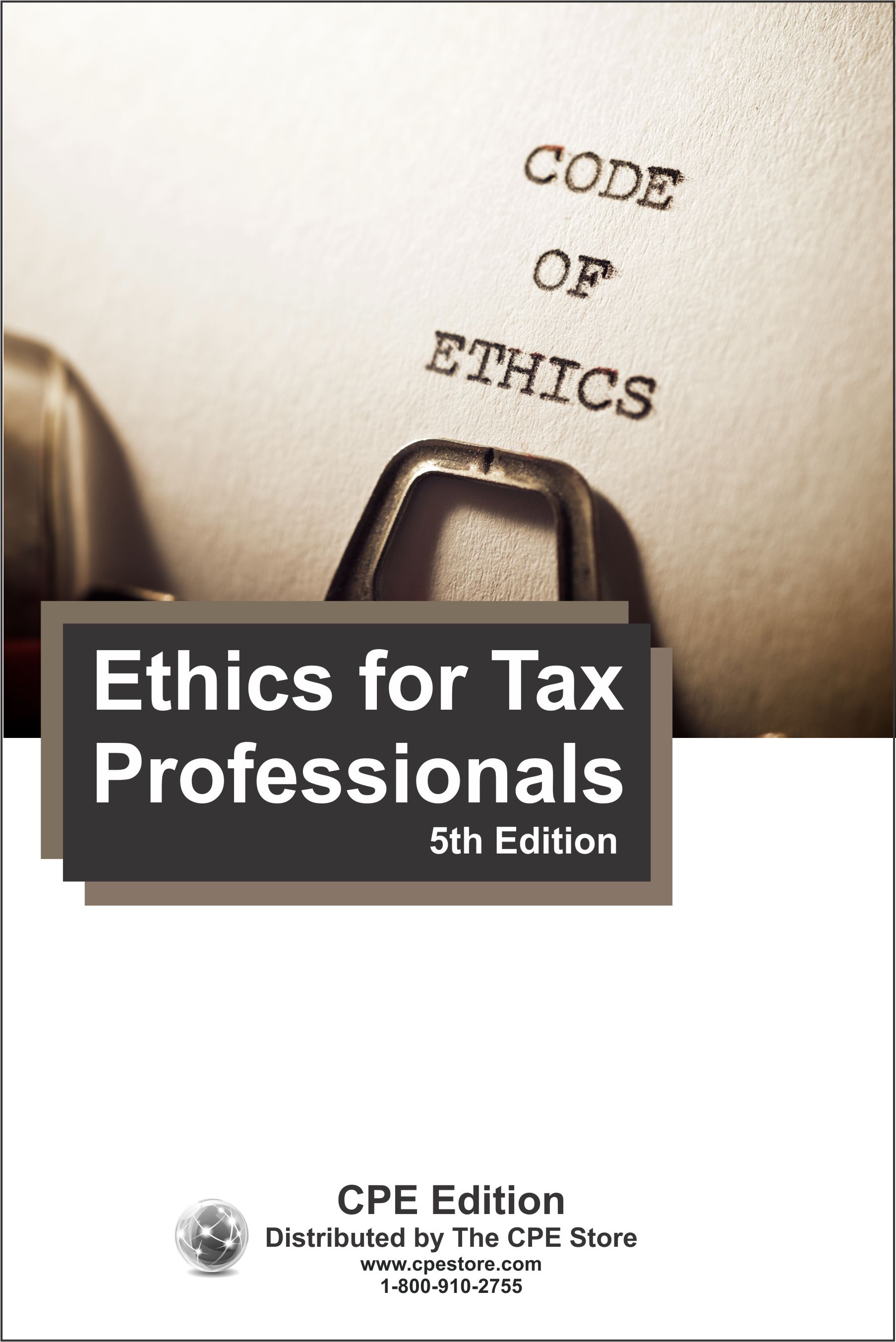
Course number: ETH050105
This course is designed to meet the 2 hour CPE requirement for Enrolled Agents and Other Tax Return Preparers (OTRPs). It covers topics from the Circular 230, such as the duties and restrictions relating to practice before the Internal Revenue Service and the sanctions for violation of the regulations. This course further outlines the tax practice standards issued by the AICPA, which include Standards for Tax Services No. 1 – No. 7. Also found throughout the course are recent court cases and investigations resulting from the unethical actions of tax practitioners. Course level: Basic. Prerequisites: None. Course includes integrated text and study guide, final exam, and grading service.NASBA field of study: Regulatory Ethics Course credit: 2 hours
Printed Version$29
PDF$29
Colleague Test(s)$20
Contents
Ethics for Utah CPAs
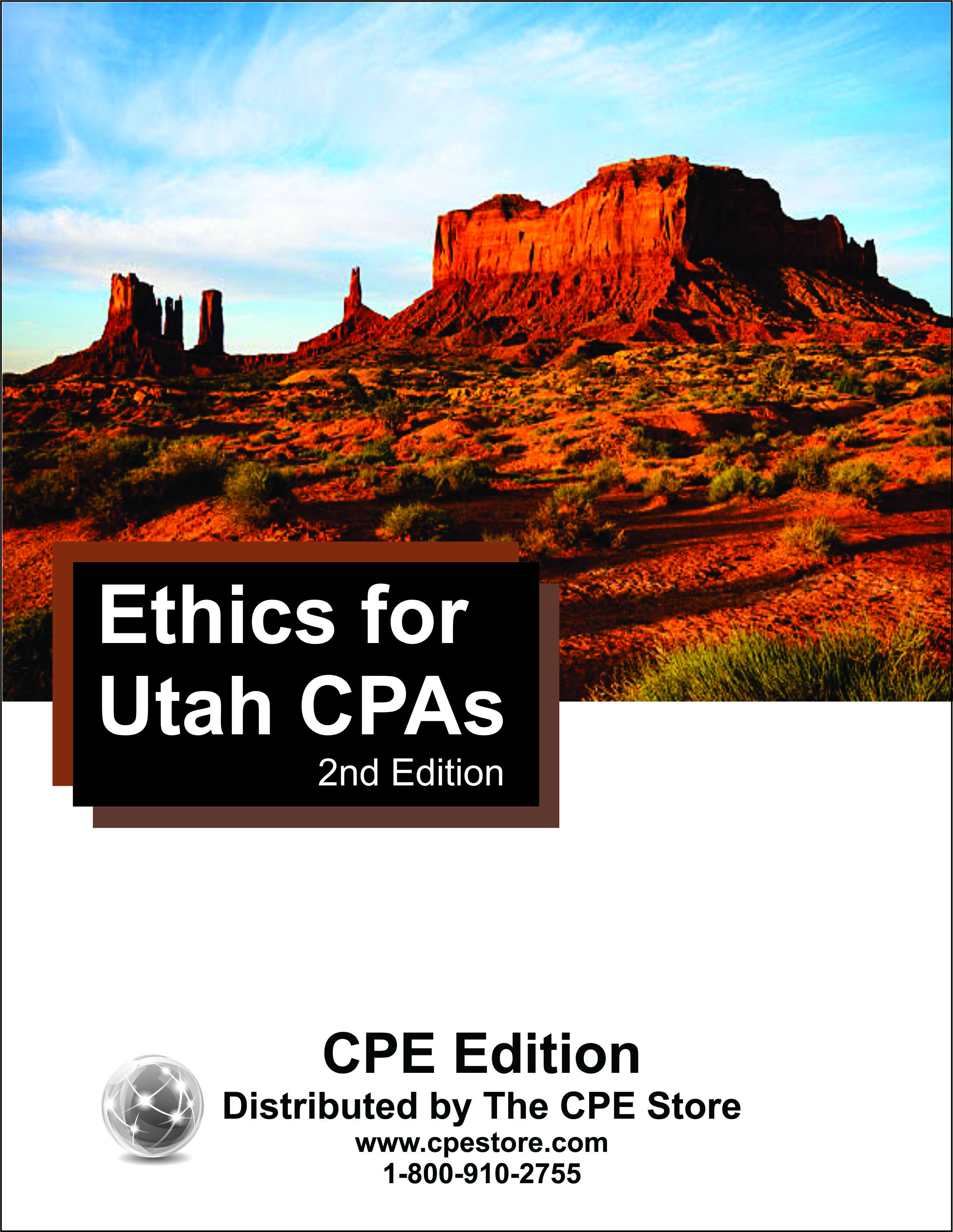
Course number: ETH212002
This is a 4 hour course for Utah covering standards of professional conduct and business practices adhered to by accountants such as CPAs in order to enhance their profession and maximize idealism, justice and fairness when dealing with the public, clients and other members of their profession. It also presents the AICPA Code of Professional Conduct and an approach—the threats and safeguards approach—to coping with ethical dilemmas. The course includes 1 CPE hour of education on the Utah Certified Public Accountant Licensing Act and Certified Public Accountant Licensing Act Rules, and 3 CPE hours of ethics. Course level: Basic. Prerequisites: None. Course includes integrated text and study guide, final exam, and grading service.NASBA field of study: Regulatory Ethics Course credit: 4 hours
Printed Version$49
PDF$49
Colleague Test(s)$35
Contents
Ethics for Washington CPAs 2025
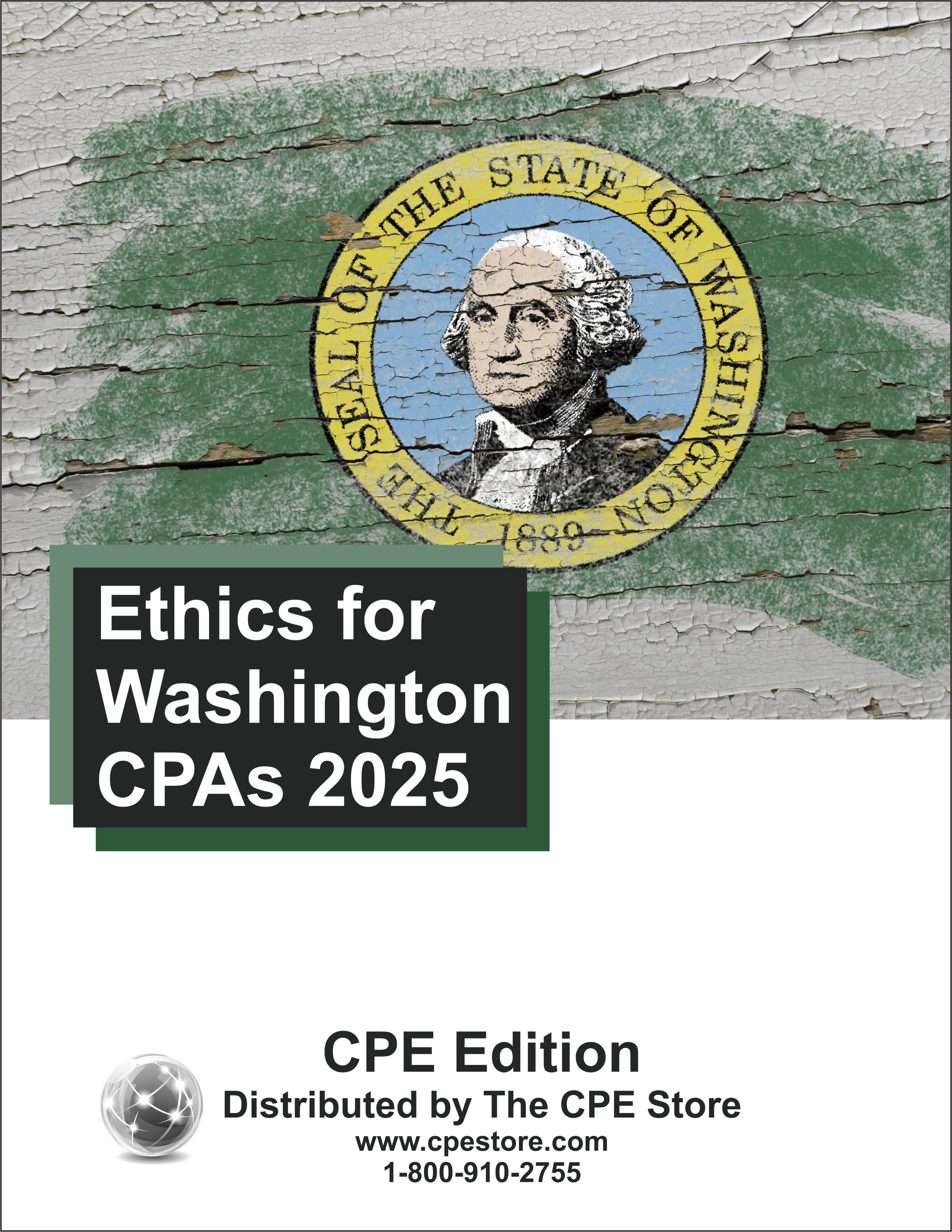
Course number: ETH730125
**FOR 2025** This is an ethics and regulations course for Washington CPAs covering standards of professional conduct and business practices adhered to by accountants in order to enhance their profession and maximize idealism, justice, and fairness when dealing with the public, clients and other members of their profession. It covers Washington State Board of Accountancy Statutes, Rules and Regulations, Policies, the AICPA Code of Professional Conduct, and the differences between Washington State law and the AICPA Code. After completing this course, participants will have an understanding of the laws and regulations in Washington State governing accountancy, where to access those laws and regulations, and an understanding of the scope and nature of those laws and requirements. Course level: Basic. Prerequisites: None. Course includes integrated text and study guide, final exam, and grading service. Note: Course is year-specific and must be completed during 2025.NASBA field of study: Regulatory Ethics Course credit: 4 hours
Printed Version$49
PDF$49
Colleague Test(s)$35
Contents
Ethics Training for Texas CPAs
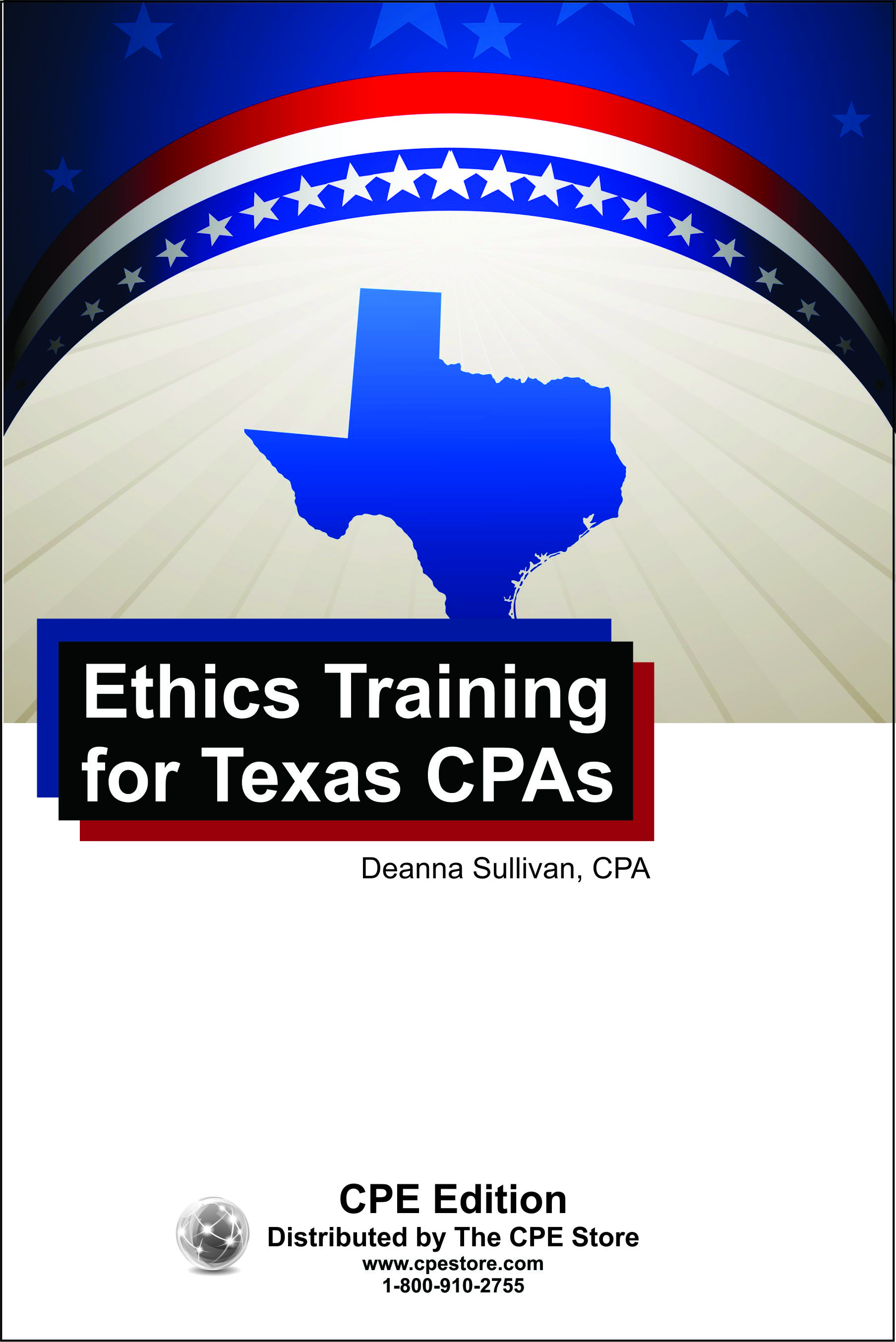
Course number: ETH202411
*** New course available *** See Managing Ethical Dilemmas for Texas CPAs Course credit: 4 hoursNot available
Excel Charts and Visualizations

Course number: CC410103
It can be difficult to convey the meaning derived from a spreadsheet, especially when there are large amounts of data involved. An excellent solution is to use the charts and other data visualization tools contained within Excel. In the Excel Charts and Visualizations course, we discuss how to create and modify charts, the many types of charts and when they are most applicable, advanced charting practices, sparkline graphics, custom formatting codes, shapes, icons, and dashboard concepts – everything you need to achieve the best possible presentations. Course level: Basic. Prerequisites: None. Course includes integrated text and study guide, final exam, and grading service.NASBA field of study: Computer Software & Applications Course credit: 2 hours
Printed Version$19
PDF$19
Colleague Test(s)$12
Contents
Excel Data Analysis Tools
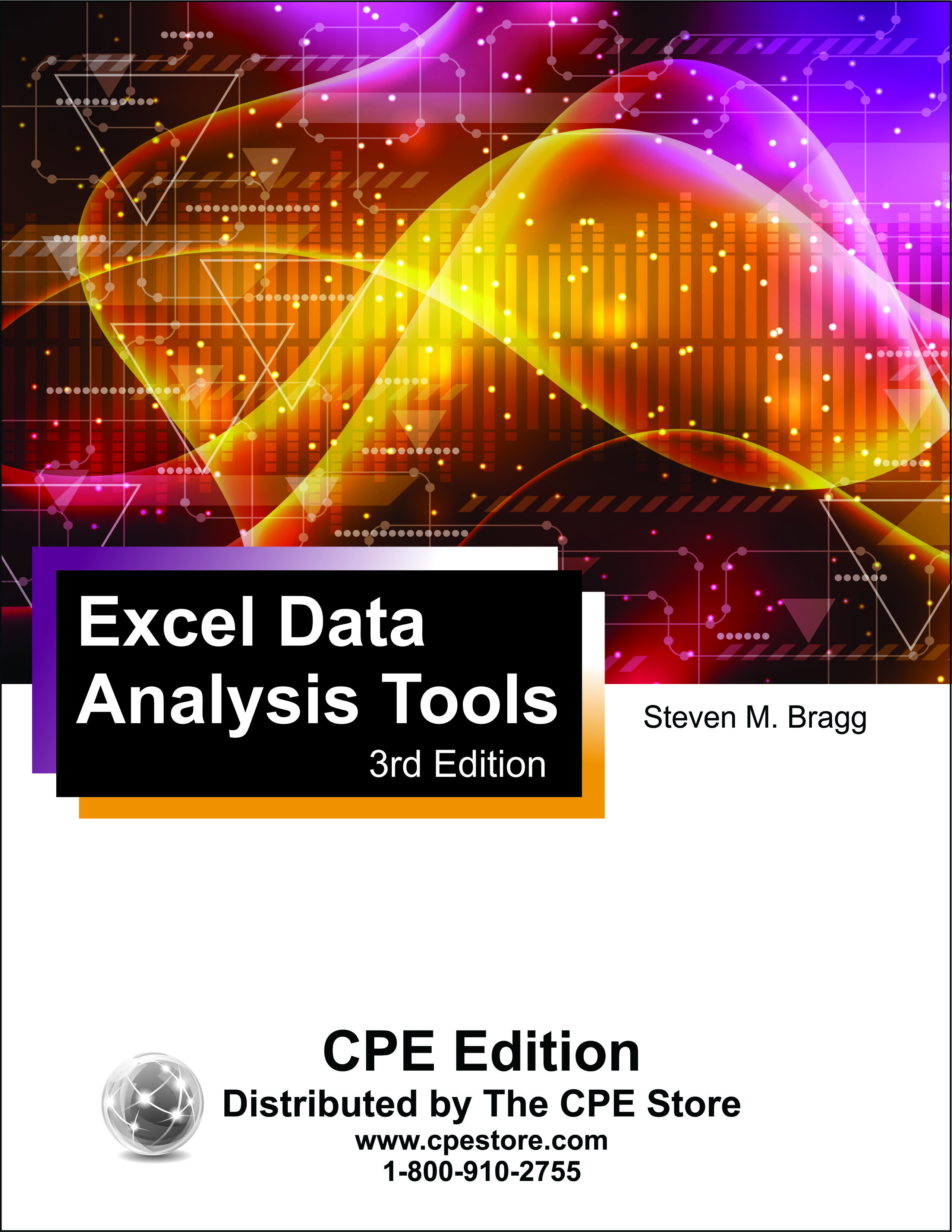
Course number: CC410303
It can be difficult to extract any meaningful information from the large amounts of data stored in an Excel worksheet, or to sort through multi-variable problems. The Excel Data Analysis Tools course provides a number of solutions to these issues by showing how to use PivotTables, what-if analysis, data tables, goal seeking, and the Scenario Manager and Solver tools. This course reveals how to extract the maximum amount of usable information from large data sets, as well as provide ready solutions to seemingly intractable analysis problems. Course level: Basic. Prerequisites: None. Course includes integrated text and study guide, final exam, and grading service.NASBA field of study: Computer Software & Applications Course credit: 2 hours
Printed Version$19
PDF$19
Colleague Test(s)$12
Contents
Excel Data Management
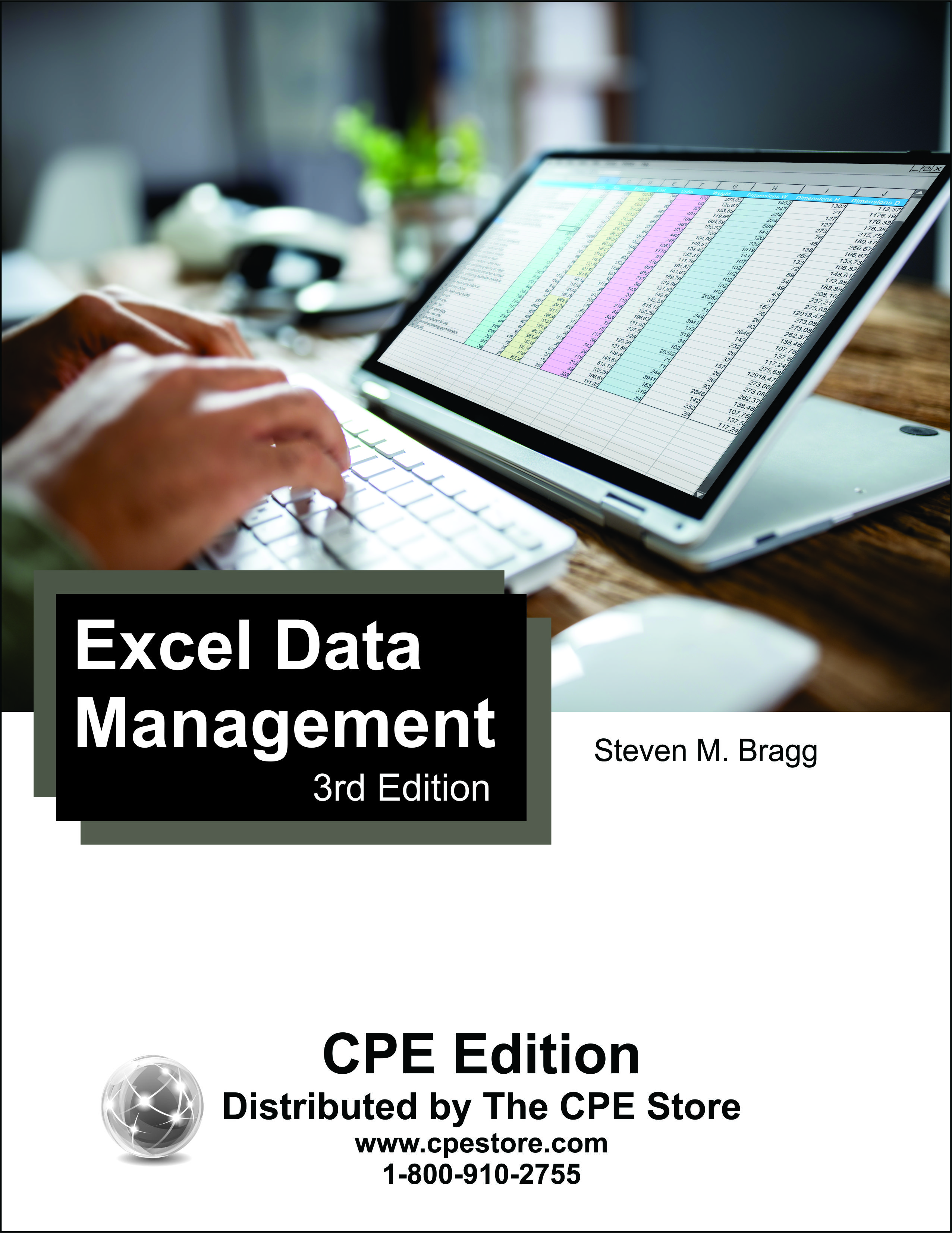
Course number: CC410503
A central concern when using Excel is whether the data being used is sufficiently clean and well-organized to be useful for further analysis. In the Excel Data Management course, we cover the importing of data from other sources, cleaning it, validating data at the point of data entry, protecting it from unauthorized changes, and organizing it properly. The outcome is much more reliable data, which improves the quality of any subsequent analyses conducted on the data. Course level: Basic. Prerequisites: None. Course includes integrated text and study guide, final exam, and grading service.NASBA field of study: Computer Software & Applications Course credit: 2 hours
Printed Version$19
PDF$19
Colleague Test(s)$12
Contents
Excel Formulas and Functions
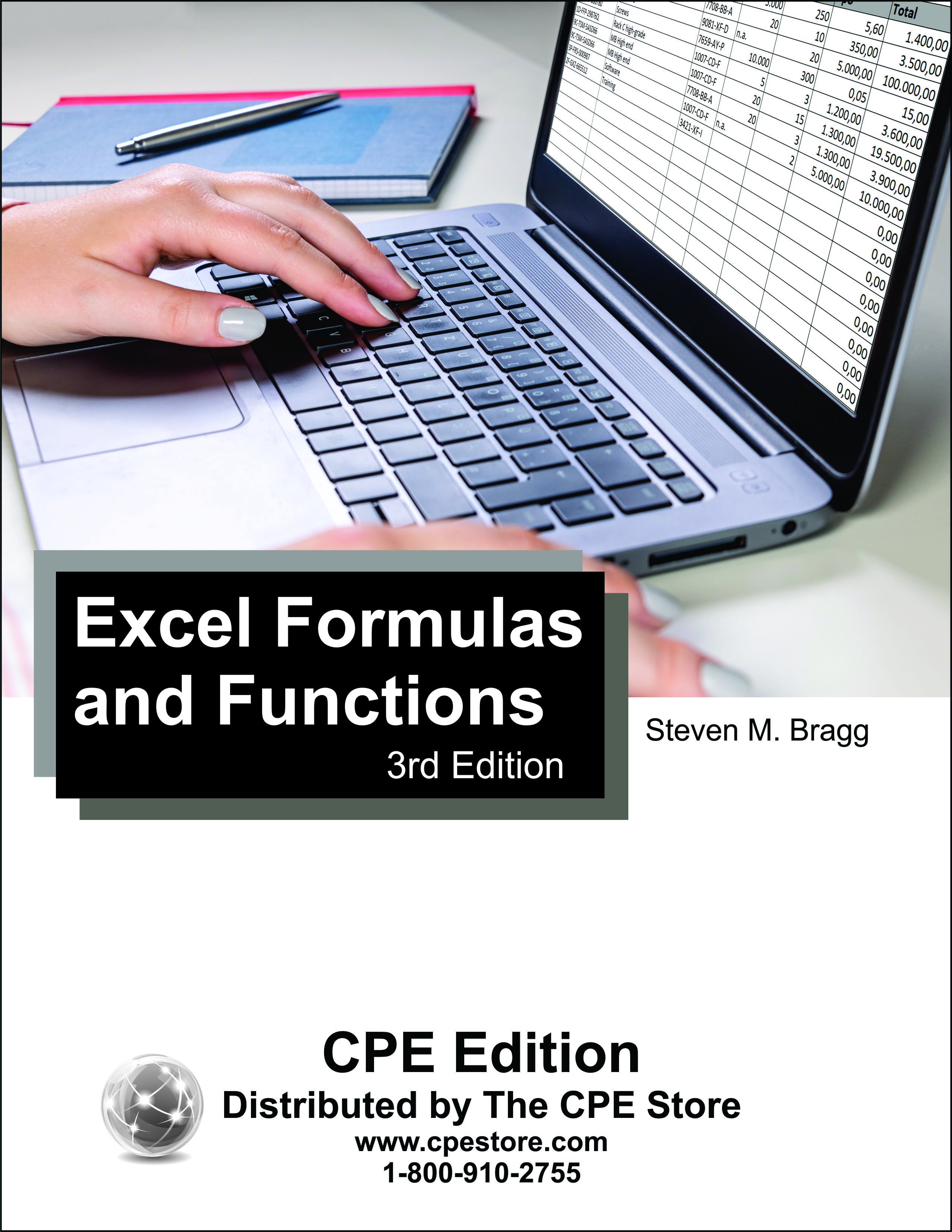
Course number: CC410703
Excel is an essential spreadsheet tool for the accountant. To wring the greatest possible use from it, one should have a detailed understanding of how to use formulas and functions. In the Excel Formulas and Functions course, we discuss the mechanics of constructing formulas and how to use many of the functions that apply to common business problems, such as net present value analysis, using date calculations, and calculating depreciation. The course also covers how to create error-free worksheets. Course level: Basic. Prerequisites: None. Course includes integrated text and study guide, final exam, and grading service.NASBA field of study: Computer Software & Applications Course credit: 3 hours
Printed Version$29
PDF$29
Colleague Test(s)$15
Contents
Fair Value Accounting
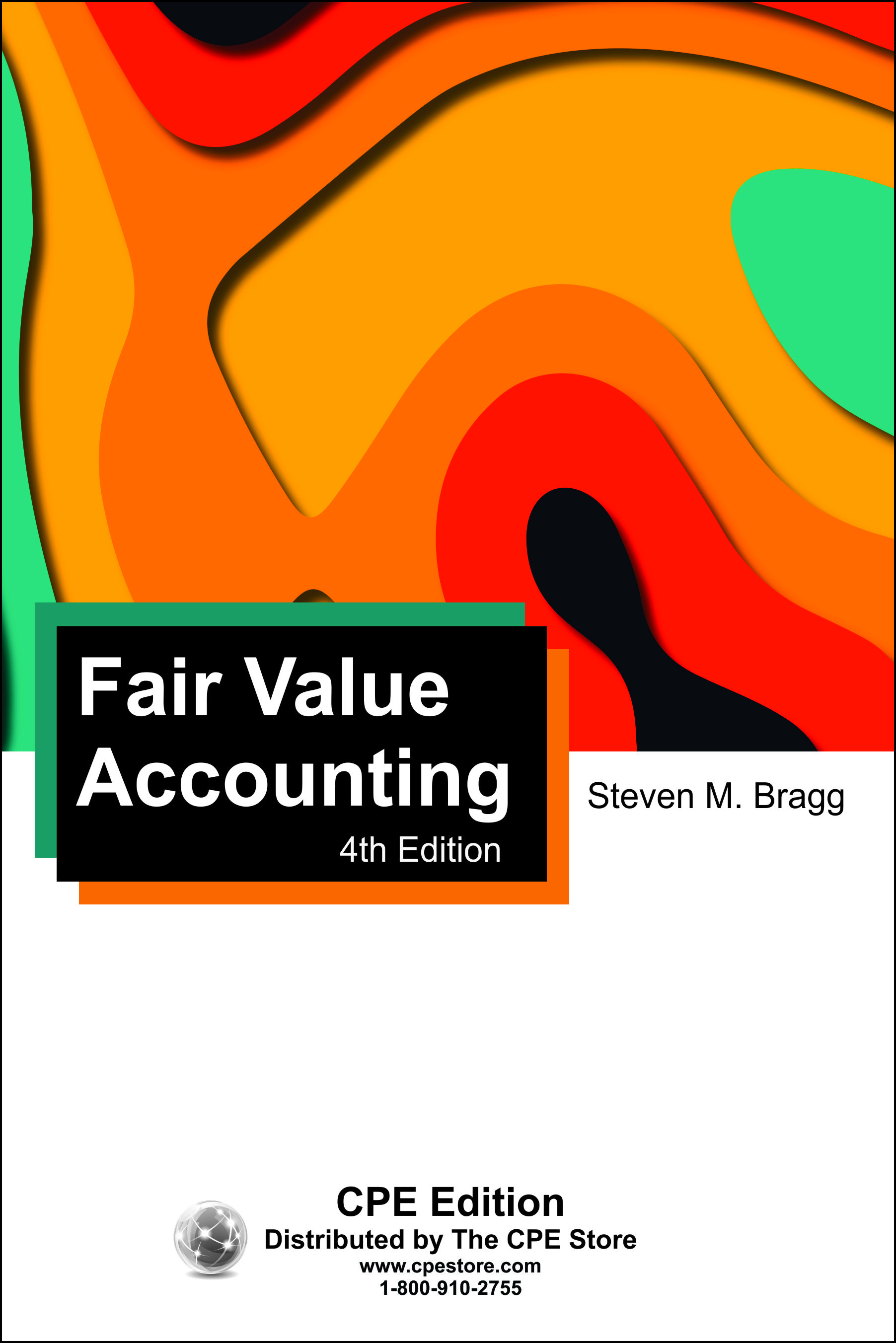
Course number: AA456704
Fair Value Accounting addresses all aspects of the GAAP requirement to report certain assets and liabilities at their fair values. This includes when fair value measurements should be performed, the parameters for measuring fair value, and how to disclose this information in the financial statements. The course also notes those situations in which fair value is used to evaluate whether assets have been impaired. Course level: Basic. Prerequisites: None. Course includes integrated text and study guide, final exam and grading service.NASBA field of study: Accounting Course credit: 2 hours
Printed Version$19
PDF$19
Colleague Test(s)$12
Contents
FASB Review
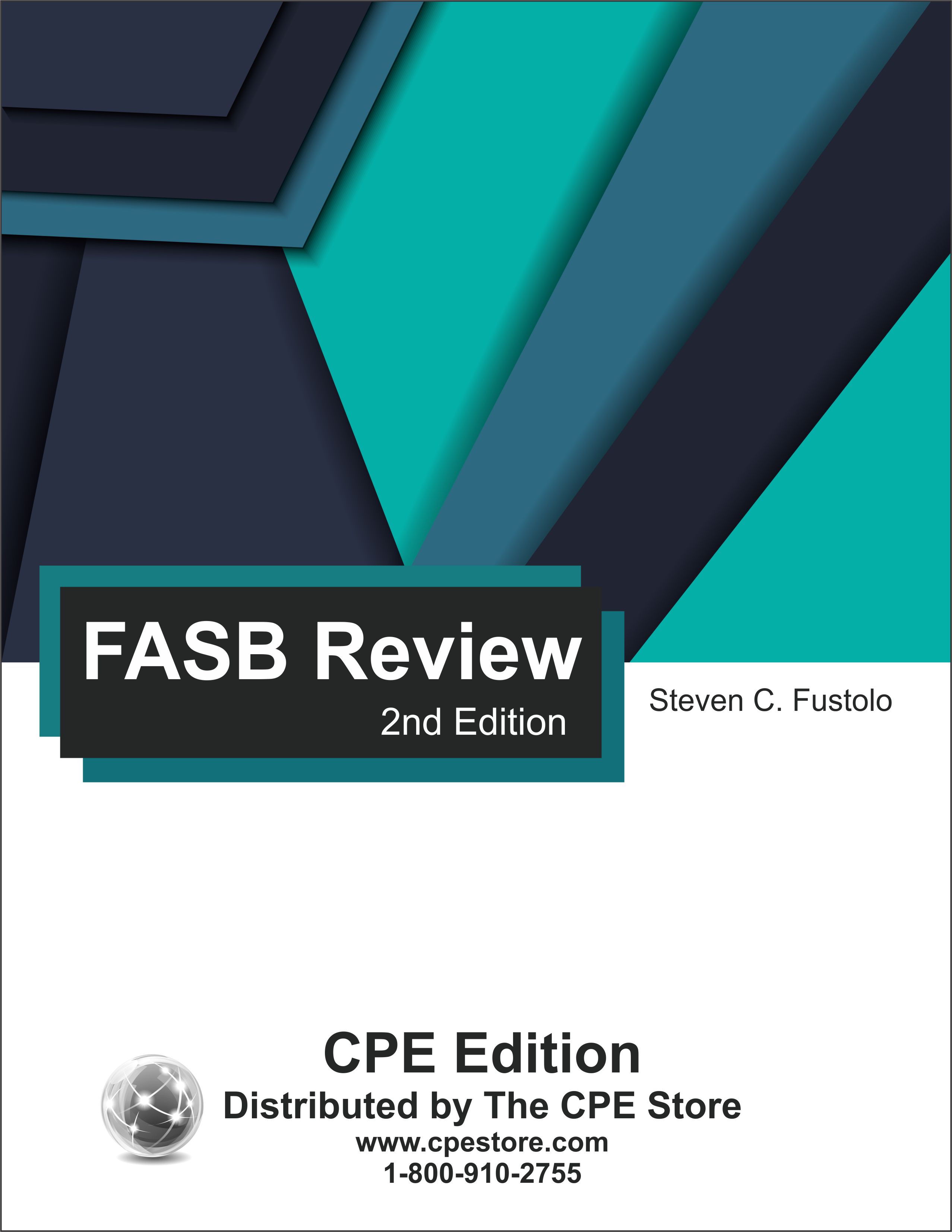
Course number: AA776102
The purpose of this course is to inform the reader of the various changes affecting accounting and financial reporting, as well as a review and recall of existing accounting standards. Topics include a summary of newly issued FASB statements, current and pending developments, the new lease standard, practice issues, a discussion of accounting and financial reporting issues related to post-COVID-19 economic issues, accounting and disclosures for the Employee Retention Credit (ERC) and Pass-Through Entity (PTE) tax, dealing with the forgiveness of PPP loans, and more. Course level: Basic. Prerequisites: None. Course includes integrated text and study guide, final exam, and grading service.NASBA field of study: Accounting Course credit: 16 hours
PDF$119
Colleague Test(s)$50
Contents
Financial Analysis
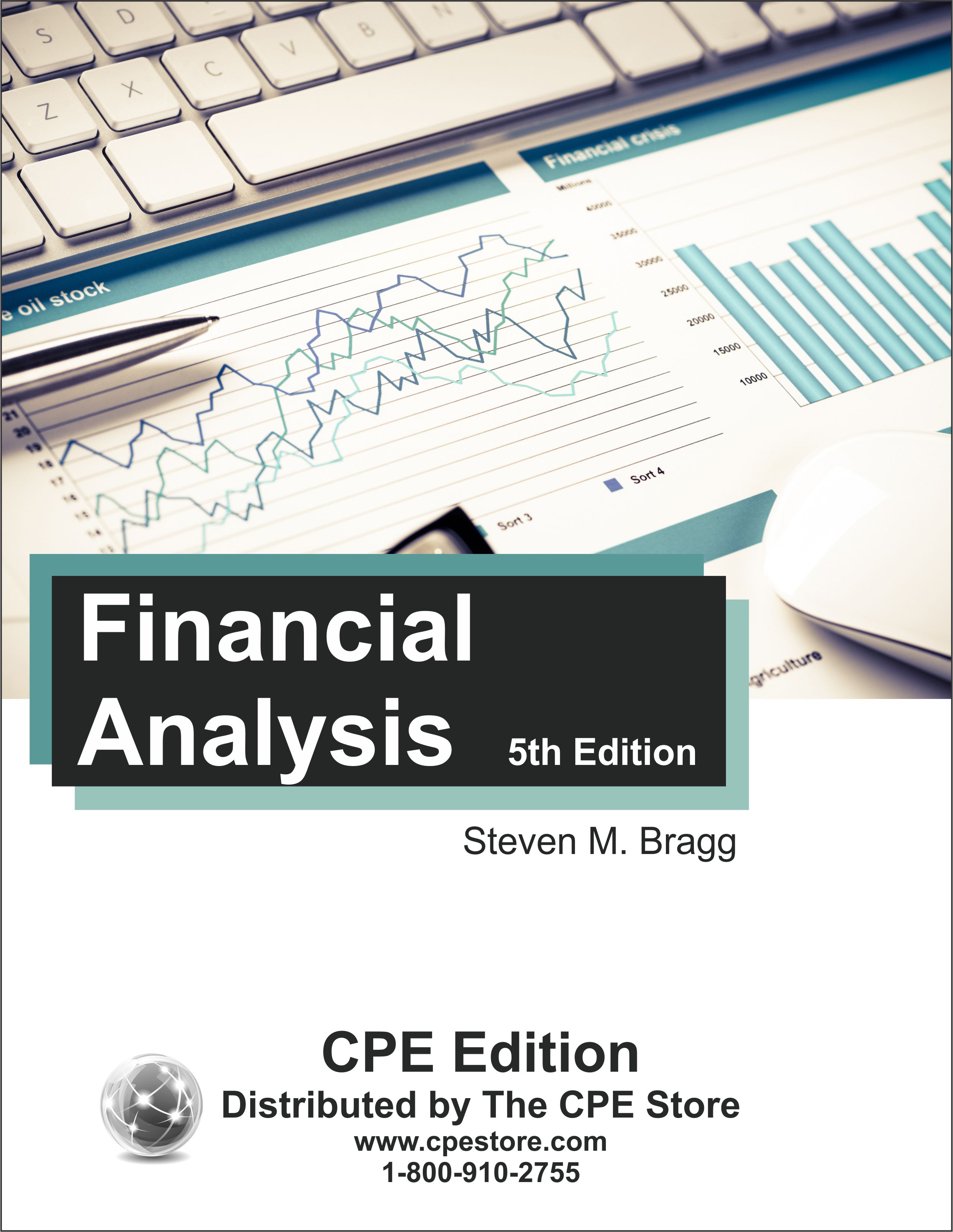
Course number: B436805
Financial Analysis describes how to extract meaningful information from the financial statements of a business. The course also delves into a number of analyses that can be used to improve business decisions, such as price optimization, constraint management, and credit granting. Another area addressed is financing, where the course covers financial leverage, capital structure, foreign exchange risk, and more. Other topics include financial forecasting, discounted cash flow analysis, and the valuation of acquisitions. Course level: Basic. Prerequisites: None. Course includes integrated text and study guide, final exam, and grading service.NASBA field of study: Finance Course credit: 20 hours
Printed Version$119
PDF$119
Colleague Test(s)$60
Contents
Financial Analysis, Modeling and Forecasting

Course number: B768904
This comprehensive course gives you every sales and financial forecasting formula and modeling technique you need to analyze your operation both as a whole and by segment. You will be provided with proven techniques that help you identify and fix problem areas, analysis techniques that help you evaluate proposals for profit potential, proven methods that improve the accuracy of your short- and long-term forecasting, analysis tools that help you better manage working capital, cash, and accounts receivable, plus much more. Also included are dozens of worked-out models and modeling techniques that simplify your most difficult business decisions and are easy to adapt to any computer spreadsheet program. This course supplies company accountants, treasurers, and CFOs with all the forecasting techniques needed to financially analyze a business as a whole or a segment. Course level: Basic. Prerequisites: None. Course includes integrated text and study guide, final exam, and grading service.NASBA field of study: Finance Course credit: 14 hours
Printed Version$99
PDF$99
Colleague Test(s)$40
Contents
Financial Forecasting and Modeling

Course number: B459203
The Financial Forecasting and Modeling course discusses the different types of forecasting methodologies, the situations in which they should be used, and how to construct them. The course also examines the layout and formulation of a financial model, and addresses specific issues within such a model, including the treatment of depreciation, debt, equity, and working capital. Further, the course describes the construction of short-term and longer-term cash forecasts, and concludes with a review of the Excel functions that can be used for financial forecasting and modeling. Course level: Intermediate. Prerequisites: A basic knowledge of Excel. Course includes integrated text and study guide, final exam and grading service.NASBA field of study: Finance Course credit: 5 hours
Printed Version$39
PDF$39
Colleague Test(s)$15
Contents
Fixed Asset Accounting
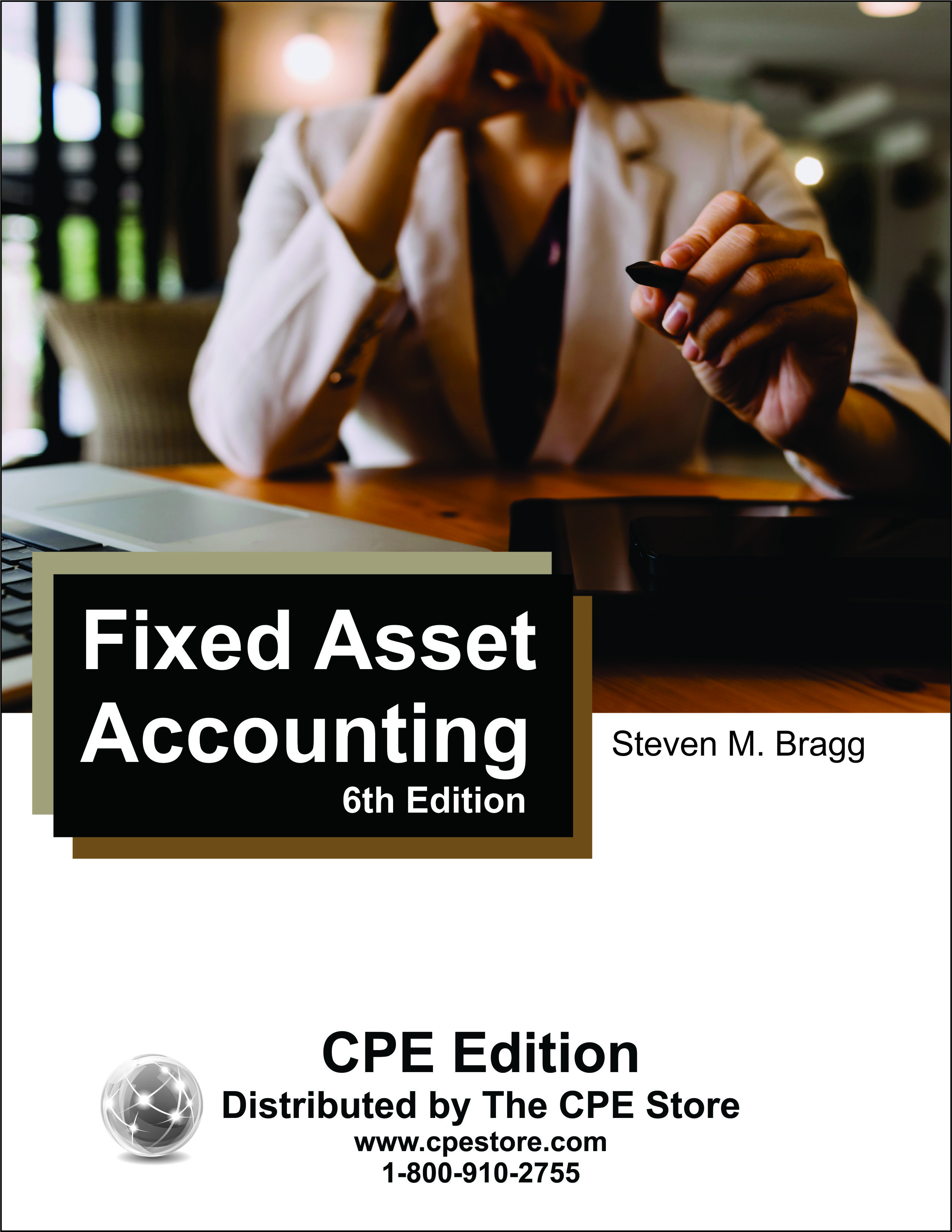
Course number: AA446806
Addresses the GAAP and IFRS accounting for all key fixed asset topics, including capital budgeting, interest capitalization, asset retirement obligations, depreciation, impairment, and disposal. The book delves into many other areas as well, including the record keeping, controls, policies and procedures, measurements, and auditing procedures related to fixed assets. Clear examples and tips are used to supplement the well-written text and accounting terms are conveniently defined within the chapters. Course level: Basic. Prerequisites: None. Course includes integrated text and study guide, final exam and grading service.NASBA field of study: Accounting Course credit: 12 hours
PDF$89
Colleague Test(s)$35
Contents
Foreign Currency Accounting

Course number: AA453704
Foreign Currency Accounting describes all accounting activities related to foreign currencies. There is complete coverage of the steps needed to convert foreign currency financial statements into the reporting currency of the parent entity, as well as the accounting for basic foreign exchange transactions and hedging activities. Related financial statement disclosures are also noted. In addition, the course addresses related topics, such as the additional steps required to close the books and internal auditing tasks related to foreign currencies. Course level: Basic. Prerequisites: None. Course includes integrated text and study guide, final exam and grading service.NASBA field of study: Accounting Course credit: 2 hours
Printed Version$19
PDF$19
Colleague Test(s)$12
Contents
Fraud Examination
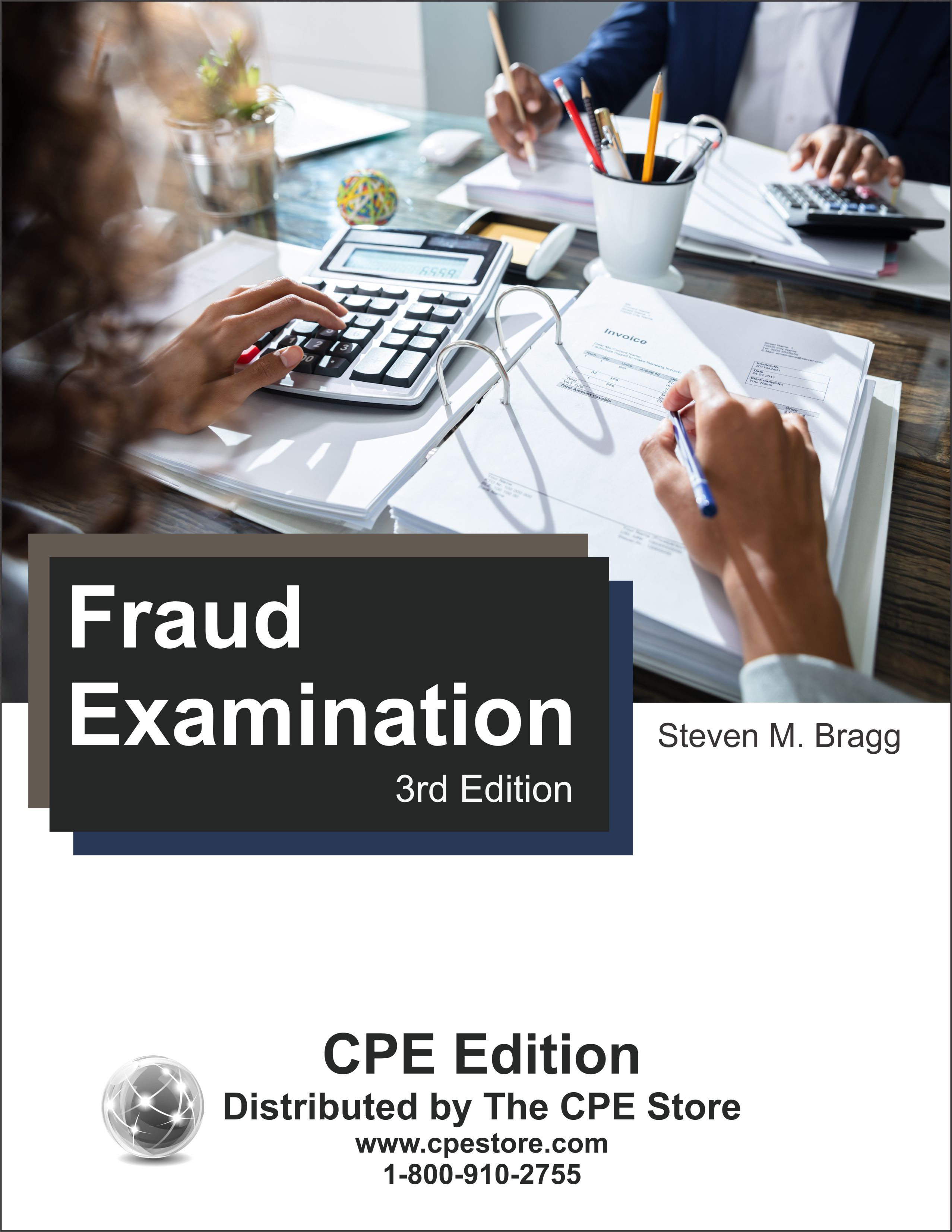
Course number: AA468103
This course is a practical reference for how to prevent, detect, and investigate fraud within a business. It can be used to identify the different types of fraud and construct an environment in which fraud is minimized. In addition, the book describes the many indicators of fraud, so that it can be detected early. The book also describes the process for investigating fraud, including interviewing techniques, document examination, and how to write a fraud report. Course level: Basic. Prerequisites: None. Course includes integrated text and study guide, final exam, and grading service.NASBA field of study: Accounting Course credit: 12 hours
Printed Version$89
PDF$89
Colleague Test(s)$35
Contents
Fraud Schemes
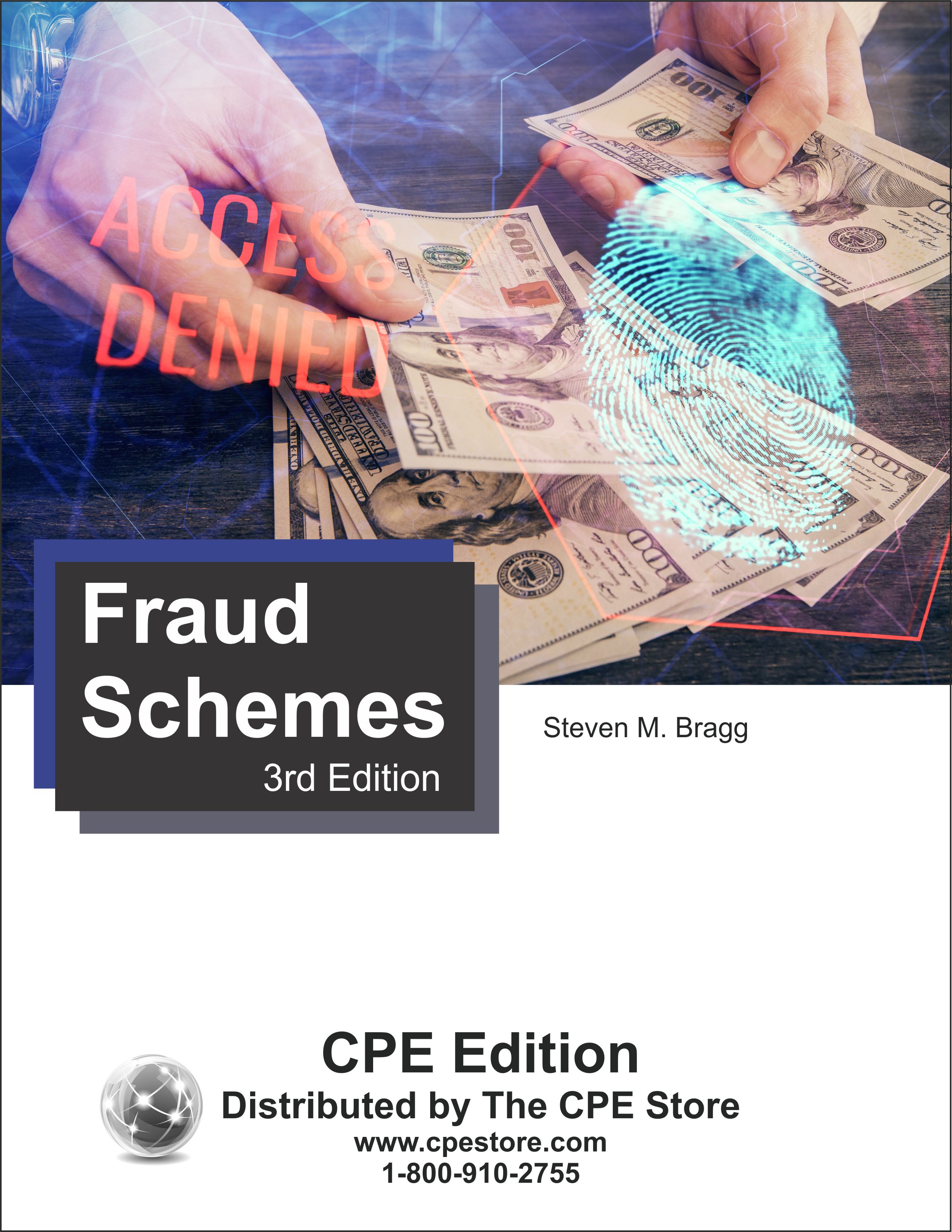
Course number: AA484503
Fraud schemes can threaten the financial stability of an organization. By understanding as much as possible about the nature of fraud, an organization can take steps to prevent it from occurring. Fraud Schemes serves as this necessary guidebook, describing the different types of fraud schemes that may be perpetrated against a business. The schemes are broken down into schemes by employees, financial statement fraud, and schemes by outsiders. Accompanying the descriptions of fraud schemes are discussions about how to minimize the effects of fraud on a business. Course level: Basic. Prerequisites: None. Course includes integrated text and study guide, final exam, and grading service.NASBA field of study: Auditing Course credit: 3 hours
Printed Version$29
PDF$29
Colleague Test(s)$15
Contents
Fraud: Ensuring Integrity in Financial Reporting
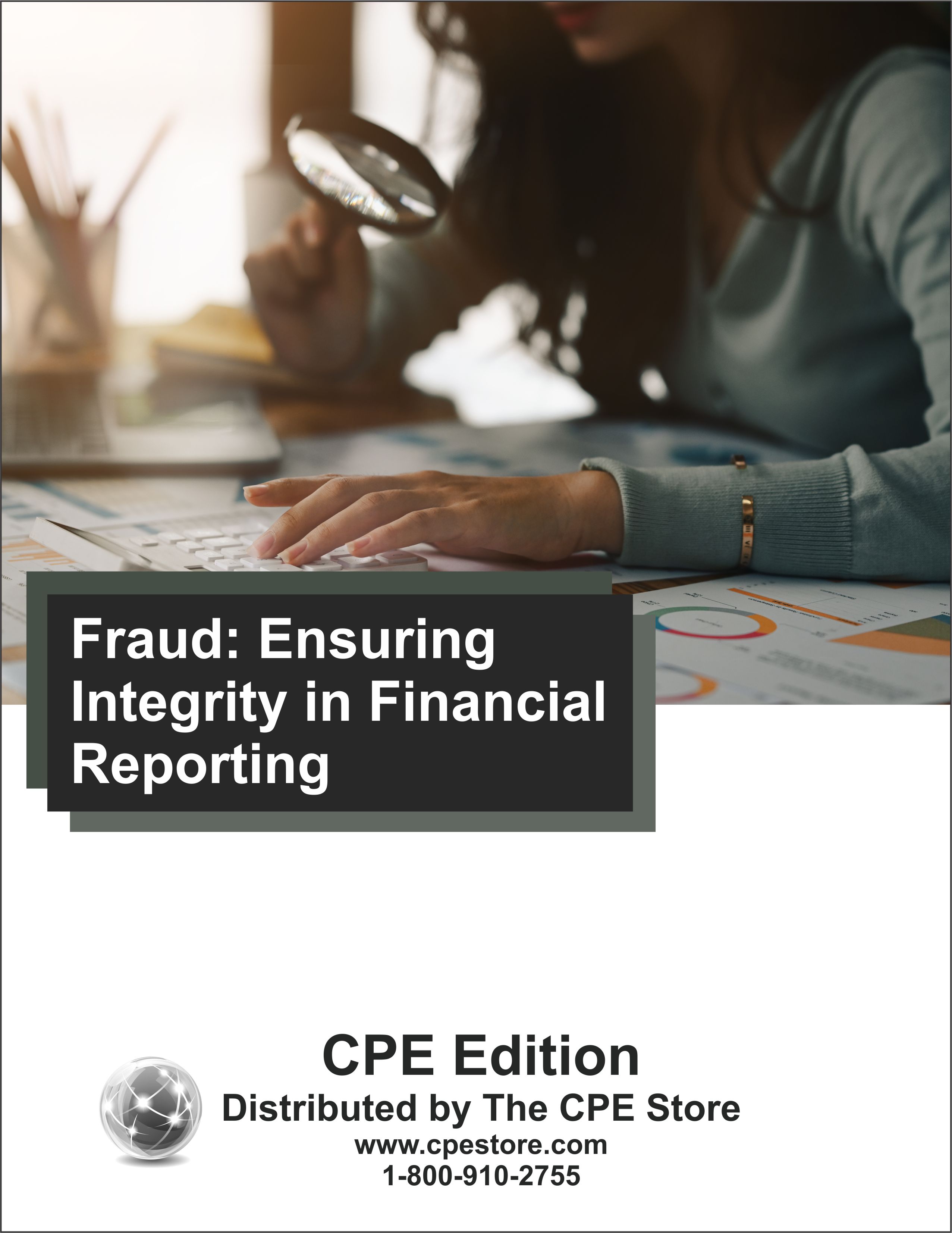
Course number: AA734501
A corporate scandal involves alleged or actual unethical behavior by people acting within or on behalf of a corporation. Since the turn of the century, the U.S. has seen some large corporate collapses and scandals due to shoddy and deceptive accounting practices. Many companies, shareholders and employees suffered as stock prices fell and reputations were tarnished when businesses conducted questionable practices. This course is divided into four parts with topics covering the identification of the common financial shenanigans demonstrated with a series of real-life cases and addressed ongoing financial reporting issues (e.g., restatements, SEC enforcement actions). It provides explanations of the basic accounting rules for stock-based compensation, identification of the regulations that protect investors from unethical business practices and the impact of Sarbanes-Oxley Act, including the creation of PCAOB, reforms of corporate America and improvements in audit quality. Additionally, this course discusses internal control reporting requirements, the role of the audit committee, disclosure controls, personal accountability and it demonstrates ways to promote high levels of accountability and transparency. It further explains the importance of business ethics and corporate social responsibility and discusses the role of good corporate governance in protecting shareholder value. Course level: Basic. Prerequisites: None. Course includes integrated text and study guide, final exam, and grading service.NASBA field of study: Accounting Course credit: 6 hours
PDF$59
Colleague Test(s)$20
Contents
Fundamentals of Accounts Payable
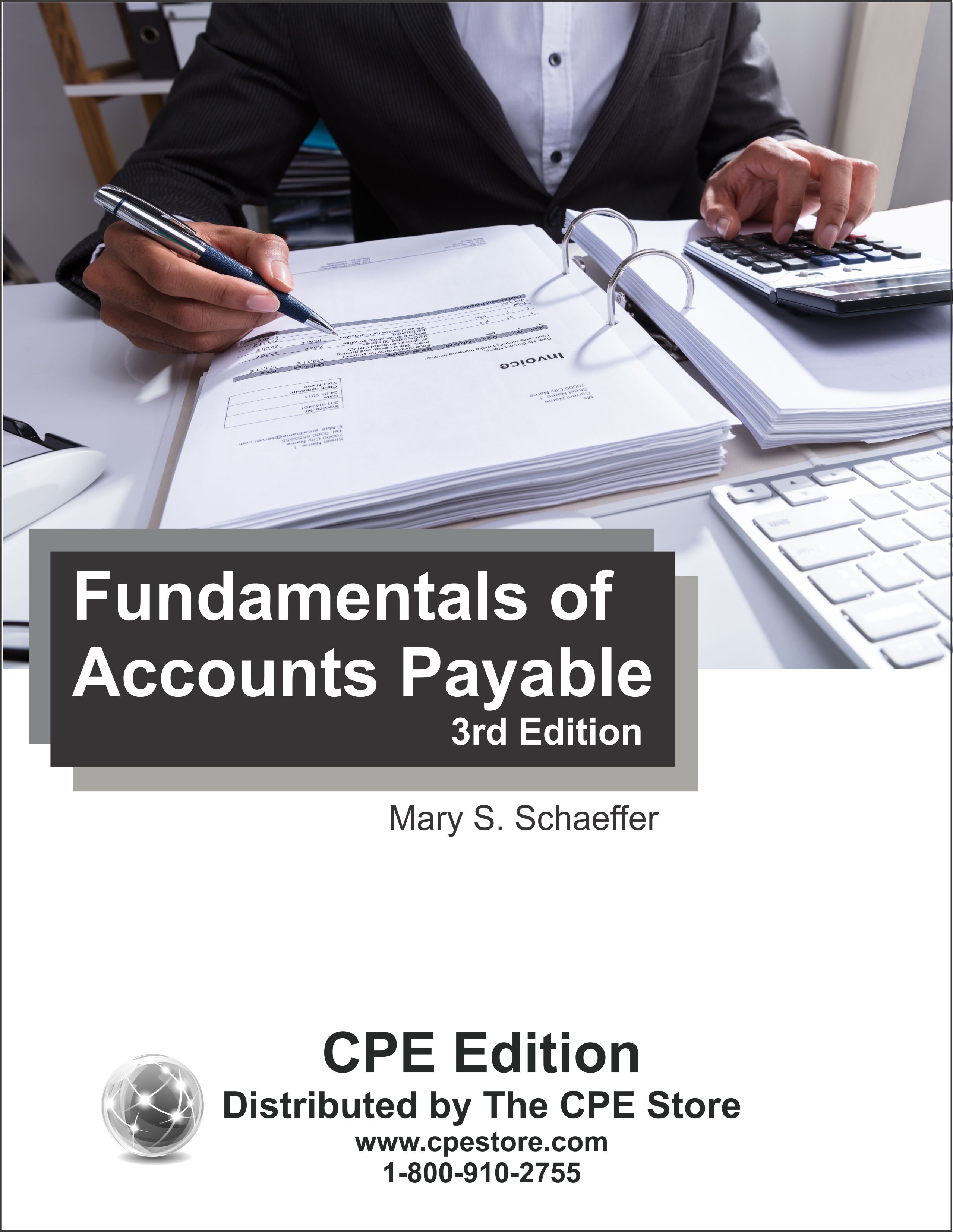
Course number: AA782203
Understanding the fundamentals of the accounts payable function is critical for any organization that wants to run an effective and efficient accounts payable function. Without this understanding, weak processes are permitted, making fraud easier to commit. Duplicate payments increase and the function is not cost-effective. This course presents information the professional can use to create a strong process and implement effective systems. Industry expert Mary Schaeffer shows auditors, controllers, and managers how proper processes in the accounts payable function strengthen controls and lead to an efficient and effective accounts payable function. Course level: Basic. Prerequisites: None. Course includes integrated text and study guide, final exam, and grading service.NASBA field of study: Accounting Course credit: 16 hours
Printed Version$119
PDF$119
Colleague Test(s)$50
Contents
GAAP Guidebook 2025
On Sale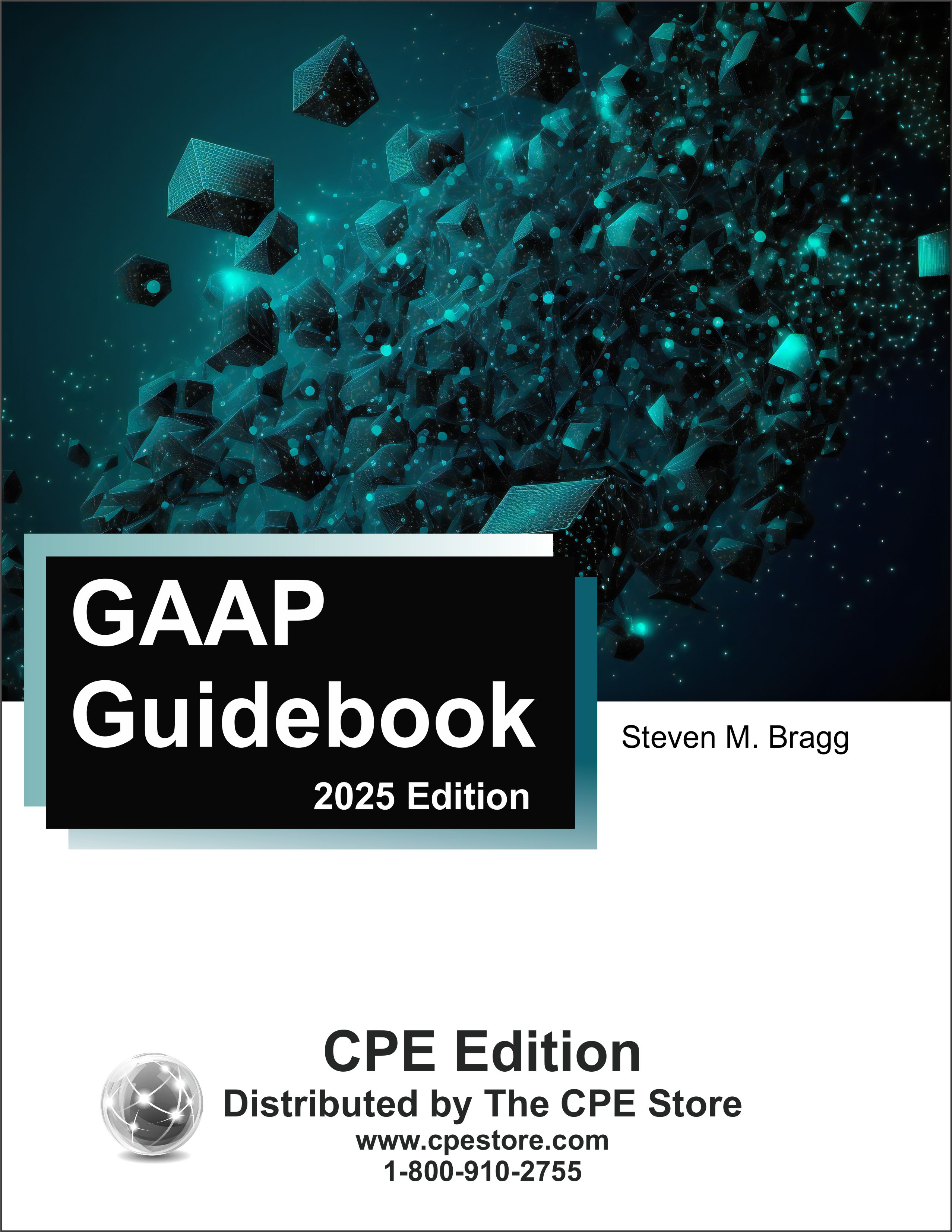
Course number: AA441125
This course provides a comprehensive overview of current GAAP. Includes presentation of financial statements, including the balance sheet, income statement, and statement of cash flows; notes to financial statements; accounting changes and error corrections; earnings per share calculations; interim reporting; risks and uncertainties; segment reporting; receivables; investments; inventory; deferred costs; intangibles; property, plant and equipment; depreciation; amortization; debt; contingencies; commitments; compensation; guarantees; equity; revenue recognition; foreign currency; leases; income taxes and more. Course level: Basic. Course includes integrated text and study guide, final exam, and grading service.NASBA field of study: Accounting Course credit: 30 hours
Printed Version$198
PDF$198
Colleague Test(s)$100
Contents
Getting Cash Out of Your Business

Course number: TAX769307
This course examines the various ideas, methods, and techniques capable of optimizing the overall compensation package for key employees and principals in small to medium sized businesses. Qualified and non-qualified deferred compensation, benefit targeting, insurance programs, statutory fringe benefits, interest free loans, and investment planning are investigated. Consideration is given to indirect compensation in the form of business entertainment, expense accounts, auto use, travel, and transportation. The new field of professional services is probed to provide tax, financial and estate planning to the key executive. Course level: Basic. Prerequisites: None. Course includes integrated text and study guide, final exam, and grading service.NASBA field of study: Taxes Course credit: 3 hours
Printed Version$29
PDF$29
Colleague Test(s)$15
Contents
Government Auditing Standards
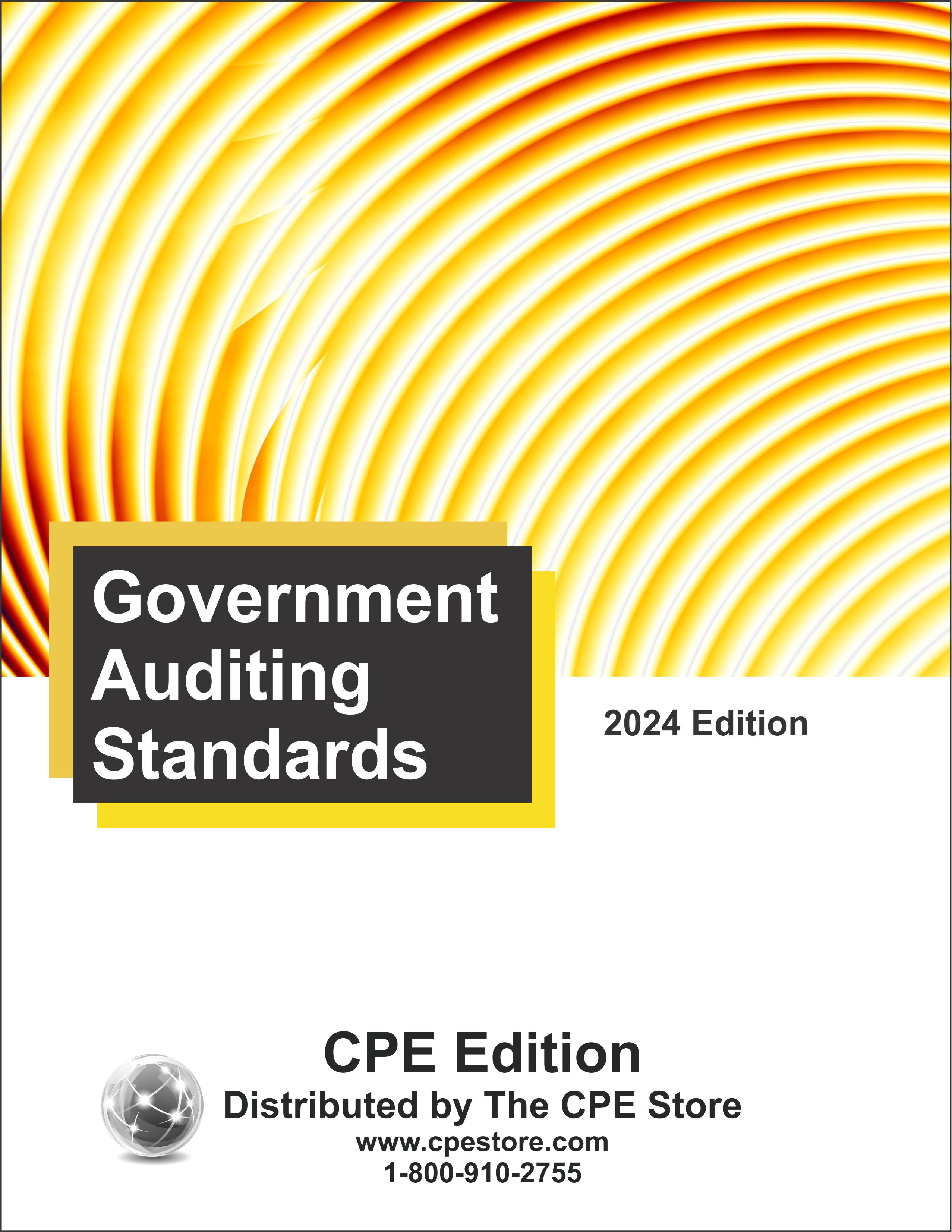
Course number: AA821424
Note: The 2024 Revision is effective for financial audits, attestation engagements, and reviews of financial statements for periods beginning on or after December 15, 2025, and for performance audits beginning on or after December 15, 2025. A system of quality management that complies with Government Auditing Standards is required to be designed and implemented by December 15, 2025. An audit organization should complete its evaluation of the system of quality management by December 15, 2026. Early implementation is permitted. Covers government auditing standards CPA firms are required to follow in audits of government organizations, programs, activities, and functions. Provides guidance on general standards, standards for financial audits, standards for attestation engagements, and field work and reporting standards for performance audits. CPAs use the yellow book for audits of nonprofit organizations, HUD projects, state and local government programs receiving federal funding, and more. Course level: Basic. Prerequisites: None. Course includes integrated text and study guide, final exam, and grading service.NASBA field of study: Auditing (Governmental) Course credit: 10 hours
Printed Version$79
PDF$79
Colleague Test(s)$30
Contents
Governmental Accounting
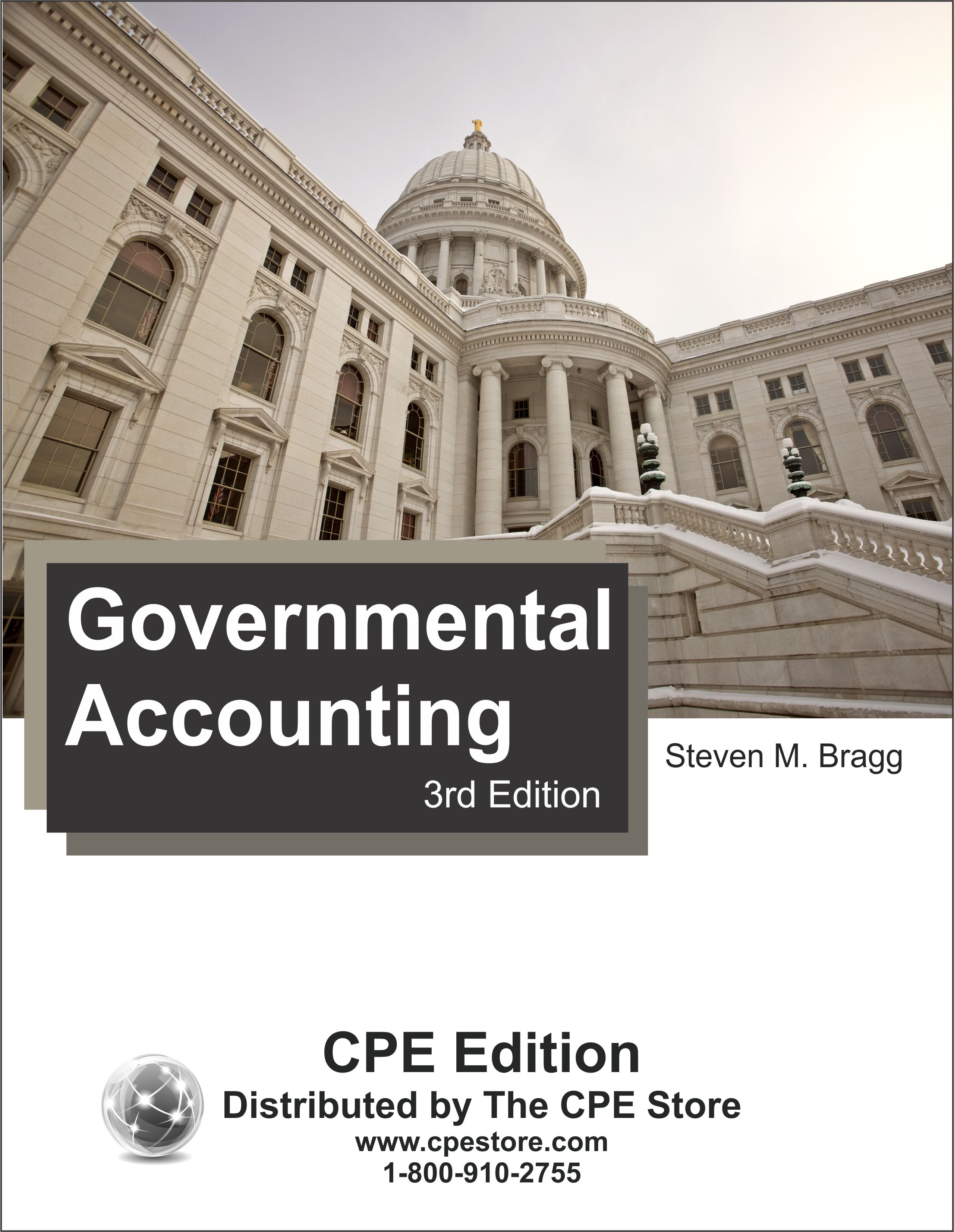
Course number: AA494903
The accounting used by government entities is substantially different from the accounting used by for-profit organizations. This course describes the unique aspects of governmental accounting, including the use of funds, the modified accrual basis of accounting, and many unique financial statement formats and disclosures. There is a strong emphasis on common accounting transactions, the comprehensive annual financial report, budgetary reporting, and nonexchange transactions. In short, Governmental Accounting is an essential desk reference for the professional accountant. Course level: Basic. Prerequisites: None. Course includes integrated text and study guide, final exam, and grading service.NASBA field of study: Accounting (Governmental) Course credit: 13 hours
PDF$99
Colleague Test(s)$40
Contents
Governmental GAAP 2023-2024
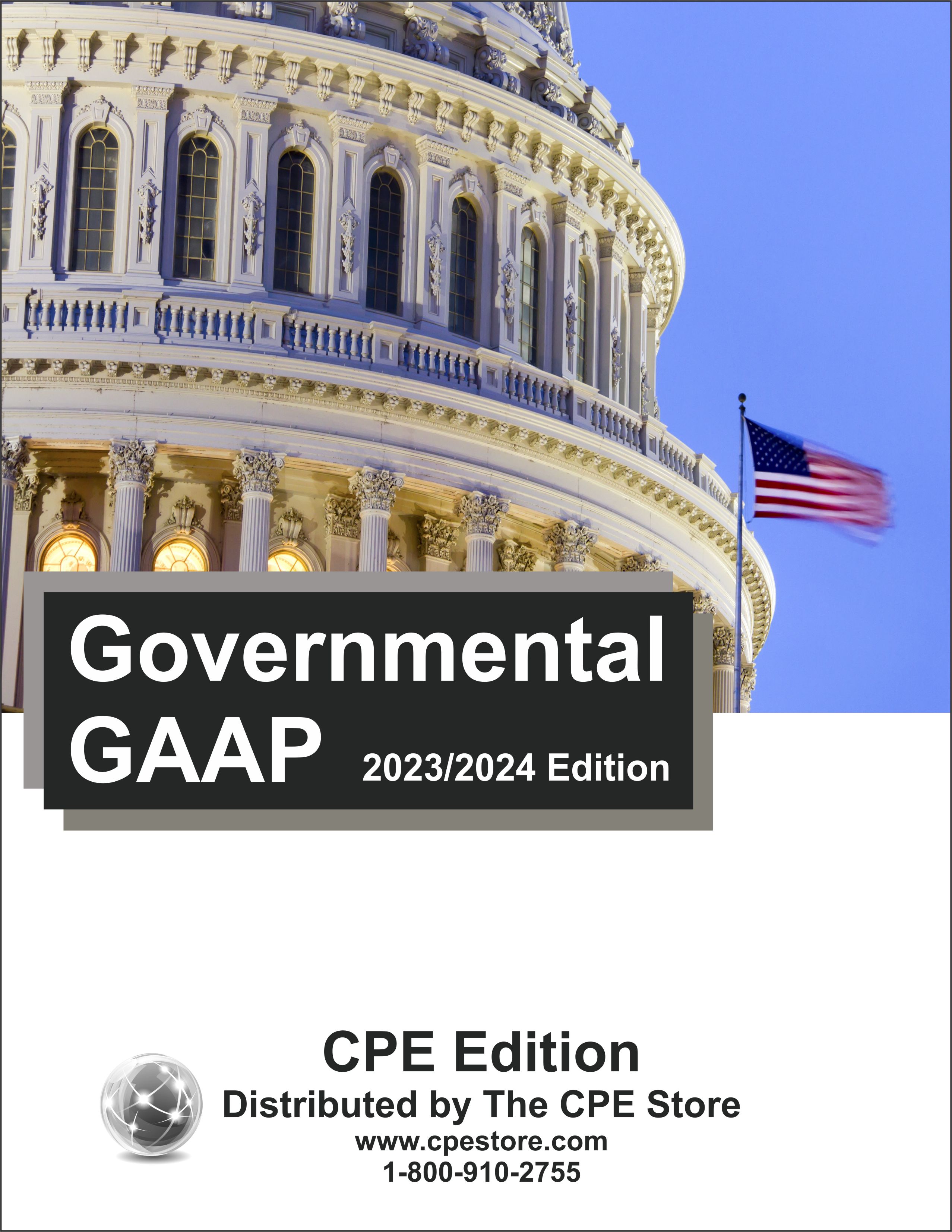
Course number: AA669124
Based on the Wiley GAAP for Governments text, this course provides the latest information on GAAP, with coverage designed specifically for government entities. Includes up-to-date implementation information and explanations of the important developments in governmental GAAP. Illustrations help provide a comprehensive guide to financial reporting for governments at the state and local level. Also includes thorough explanations and expert implementation advice. You will: get up to speed on the newest accounting pronouncements; understand how GAAP applies to government bodies and pension plans; study flowcharts, diagrams, and charts to gain a deeper understanding; and more. Course level: Basic. Prerequisites: None. Course includes integrated text and study guide, final exam, and grading service.NASBA field of study: Accounting (Governmental) Course credit: 40 hours
PDF$269
Colleague Test(s)$120
Contents
Guide to Family and Medical Leave

Course number: MM518506
The federal Family and Medical Leave Act (FMLA) helps employees balance the demands of work and family. But the law can be hard for employers to apply in the real world, especially when it comes to tracking intermittent leave, completing the proper paperwork, and determining eligibility for different types of leave. This course covers everything you need to know about the FMLA, whether your workers are on-site or remote. It will help you determine: who is eligible for leave, what types of leave are covered, how much leave employees may take, how to comply with notice and other paperwork requirements, and more. Covers all of the latest changes to the FMLA, including those related to the COVID-19 pandemic, as well as changes to state family and medical leave laws. Course level: Basic. Prerequisites: None. Course includes integrated text and study guide, final exam and grading service.NASBA field of study: Business Law Course credit: 18 hours
PDF$119
Colleague Test(s)$50
Contents
Guide to Tax Resolution
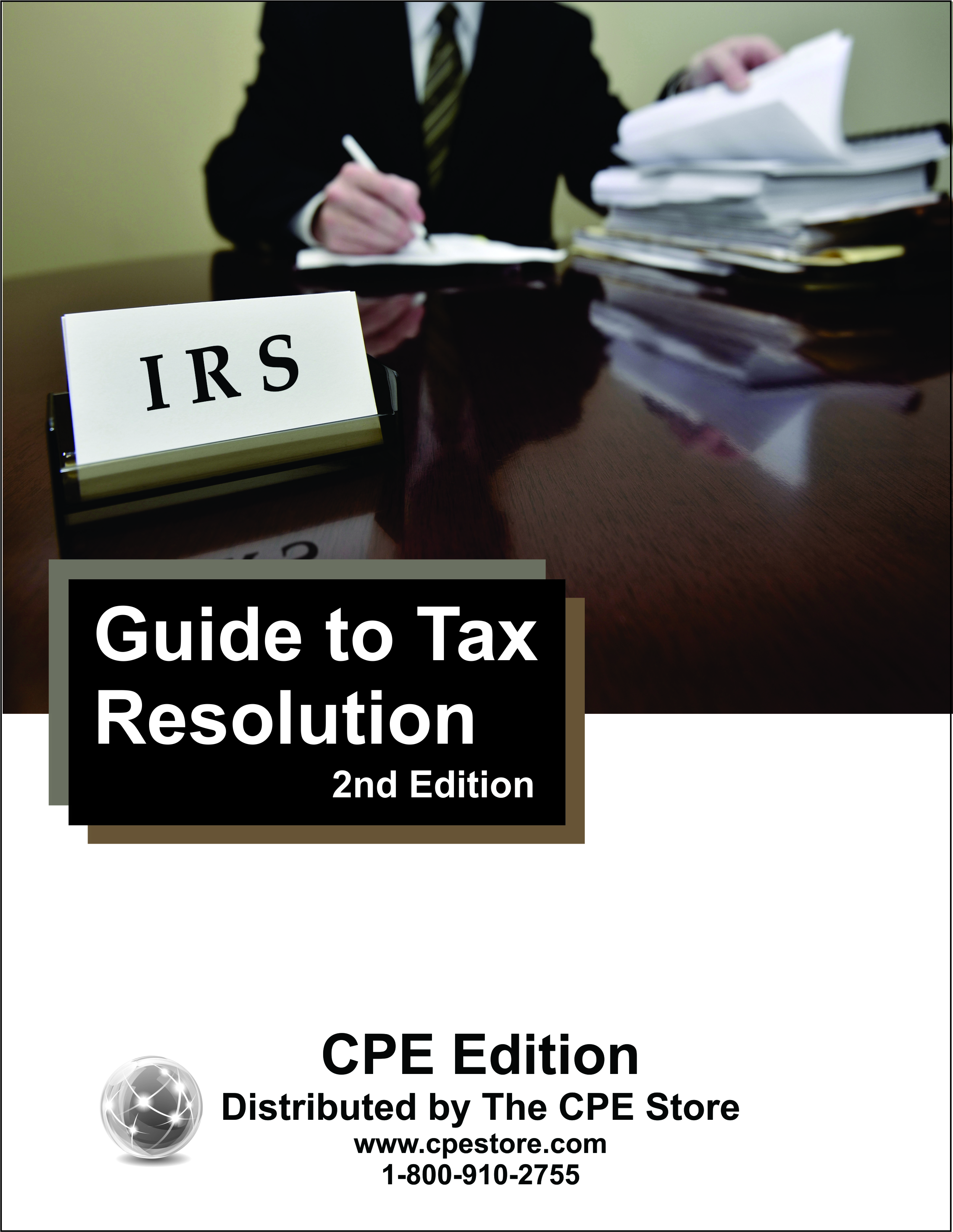
Course number: TAX794902
Tax resolution means providing solutions to businesses and individuals alike who find themselves in trouble with the IRS. To resolve tax matters with the IRS, the IRS’ Offer in Compromise (OIC) program encourages delinquent taxpayers to settle their back taxes, often for reduced amounts. The areas covered are: offers in compromise, wage garnishments, bankruptcy, installment arrangements, delinquent tax returns, IRS bank levies, Freedom of Information requests, IRS payment plans, payroll tax problems, IRS audits, penalty abatement, liens, collection appeals, IRS appeals, innocent spouse and expiration of statutes. Course level: Basic. Prerequisites: None. Course includes integrated text and study guide, final exam, and grading service. Course Category: Taxes Course credit: 6 hoursPrinted Version$59
PDF$59
Colleague Test(s)$20
Contents
Health Care Accounting
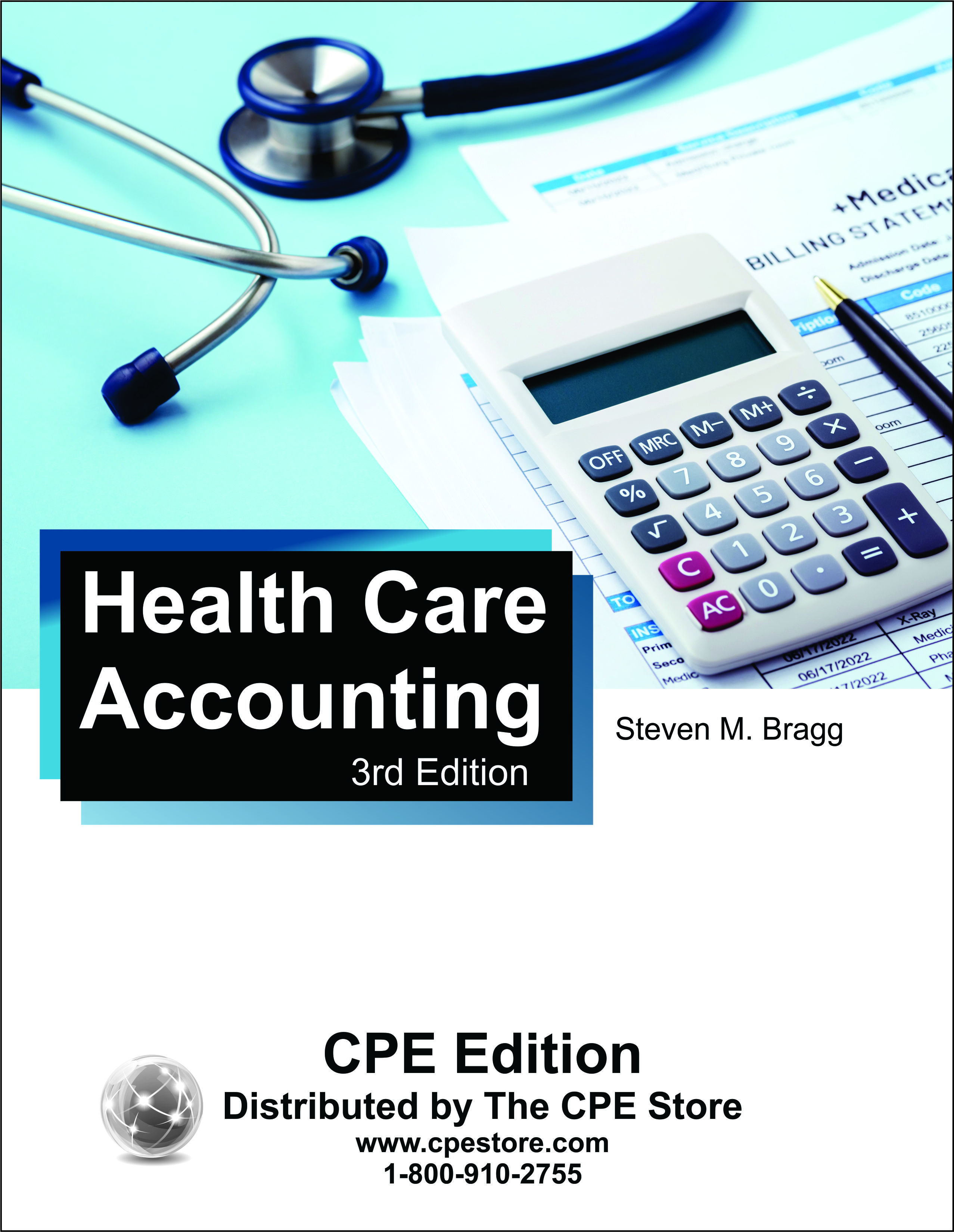
Course number: AA411403
This course discusses the accounting and financial reporting issues related to hospitals, medical group practices, nursing homes, and other health care entities. The course covers the basic system of accounting, financial reporting, and many practical topics for the accountant, including revenue recognition, payroll accounting, fixed asset accounting, debt liabilities, and more. Course level: Basic. Prerequisites: None. Course includes integrated text and study guide, final exam, and grading service.NASBA field of study: Accounting Course credit: 12 hours
Printed Version$89
PDF$89
Colleague Test(s)$35
Contents
Home Business Tax Deductions

Course number: TAX578221
This course provides in-depth coverage of write-offs for home offices, start-up and operating expenses, vehicles and travel, meals, health insurance and medical bills, inventory, equipment, and much more. Contains many interesting and relevant examples. It also provides basic information on how different business structures are taxed and how deductions work. Course level: Basic. Prerequisites: None. Course includes integrated text and study guide, final exam, and grading service.NASBA field of study: Taxes Course credit: 20 hours
Printed Version$129
PDF$129
Colleague Test(s)$60
Contents
Hospitality Accounting

Course number: AA452704
This course describes the essential accounting for anyone in the hospitality industry, which includes hotels, restaurants, spas, and similar businesses. The course familiarizes the accountant with basic concepts and then addresses the various types of financial statements and the accounting needed to construct them. More detailed financial accounting topics include payroll, fixed assets, and payables. There are also many managerial accounting topics, such as the construction of a budget, price formulation systems, cost-volume-profit analysis, and cash management. Course level: Basic. Prerequisites: None. Course includes integrated text and study guide, final exam and grading service.NASBA field of study: Accounting Course credit: 20 hours
Printed Version$139
PDF$139
Colleague Test(s)$60
Contents
How to Audit Cash
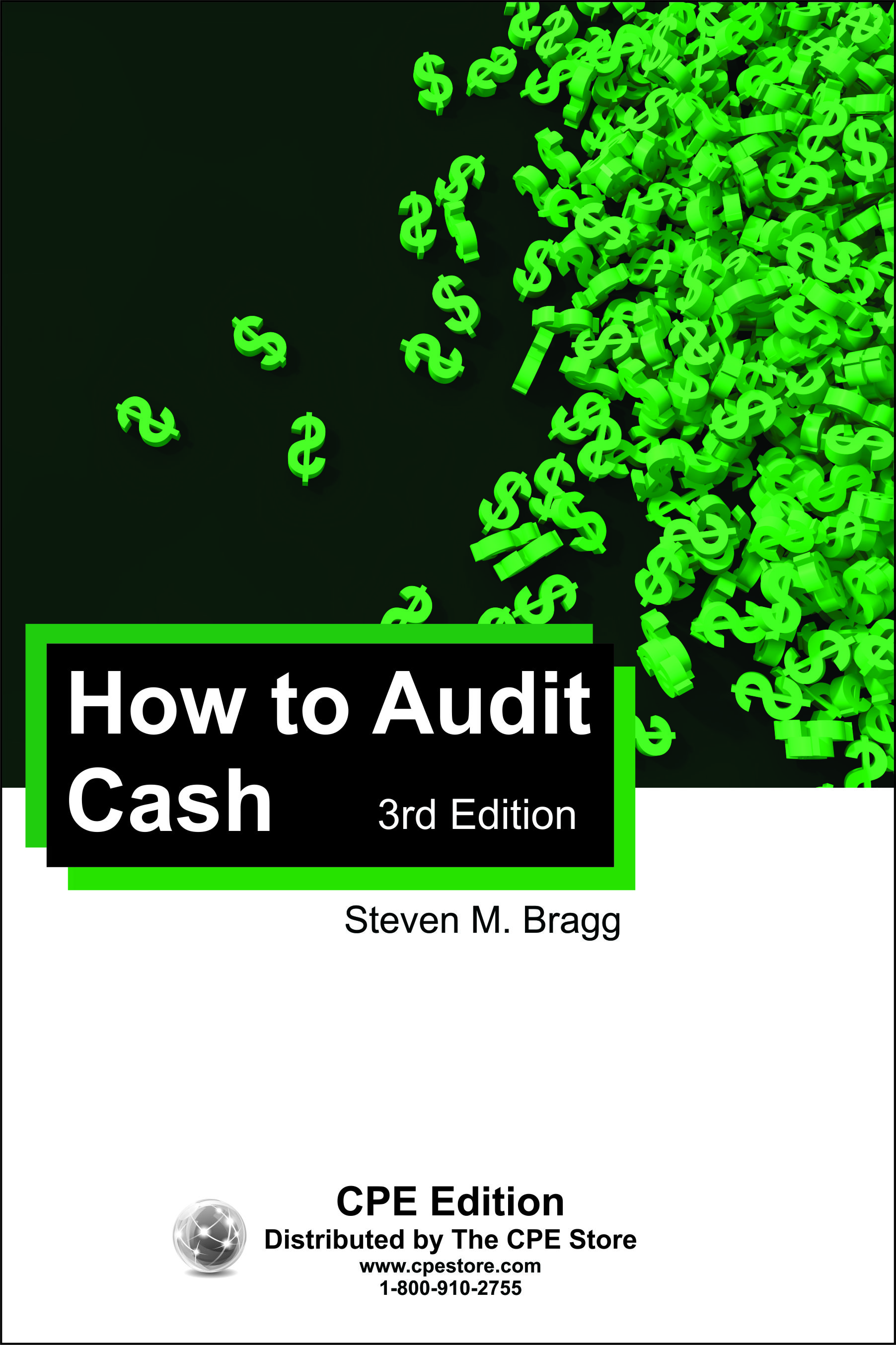
Course number: AA442203
This course clarifies for the auditor every action needed to audit cash. It describes the characteristics of cash from an auditing perspective, and then goes on to describe the activities required to audit a client’s cash accounts. The course contains extensive material about cash-related controls, fraud issues, and the construction of a bank reconciliation and a proof of cash. Course level: Basic. Prerequisites: None. Course includes integrated text and study guide, final exam, and grading service.NASBA field of study: Auditing Course credit: 1 hour
Printed Version$19
PDF$19
Colleague Test(s)$12
Contents
How to Audit Equity
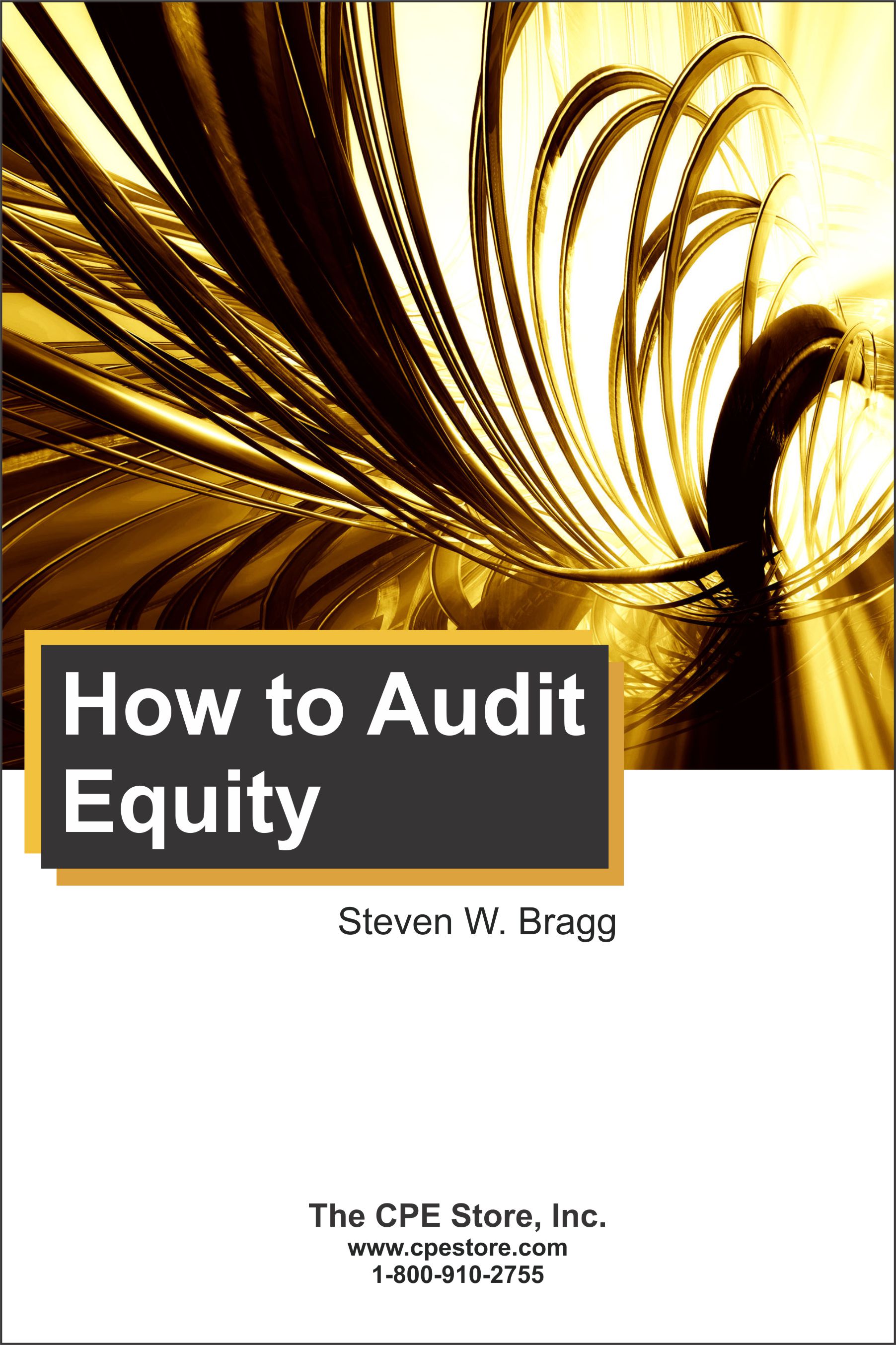
Course number: AA442301
This course clarifies for the auditor every action needed to audit equity. It describes the characteristics of equity from an auditing perspective, and then goes on to describe the activities required to audit the equity portion of the balance sheet. The course also covers the different types of controls that a firm can apply to its equity transactions. Background information concerning the accounting for equity is inserted into the text as needed. Course level: Basic. Prerequisites: None. Course includes integrated text and study guide, final exam, and grading service.NASBA field of study: Auditing Course credit: 1 hour
Printed Version$19
PDF$19
Colleague Test(s)$12
Contents
How to Audit Fixed Assets
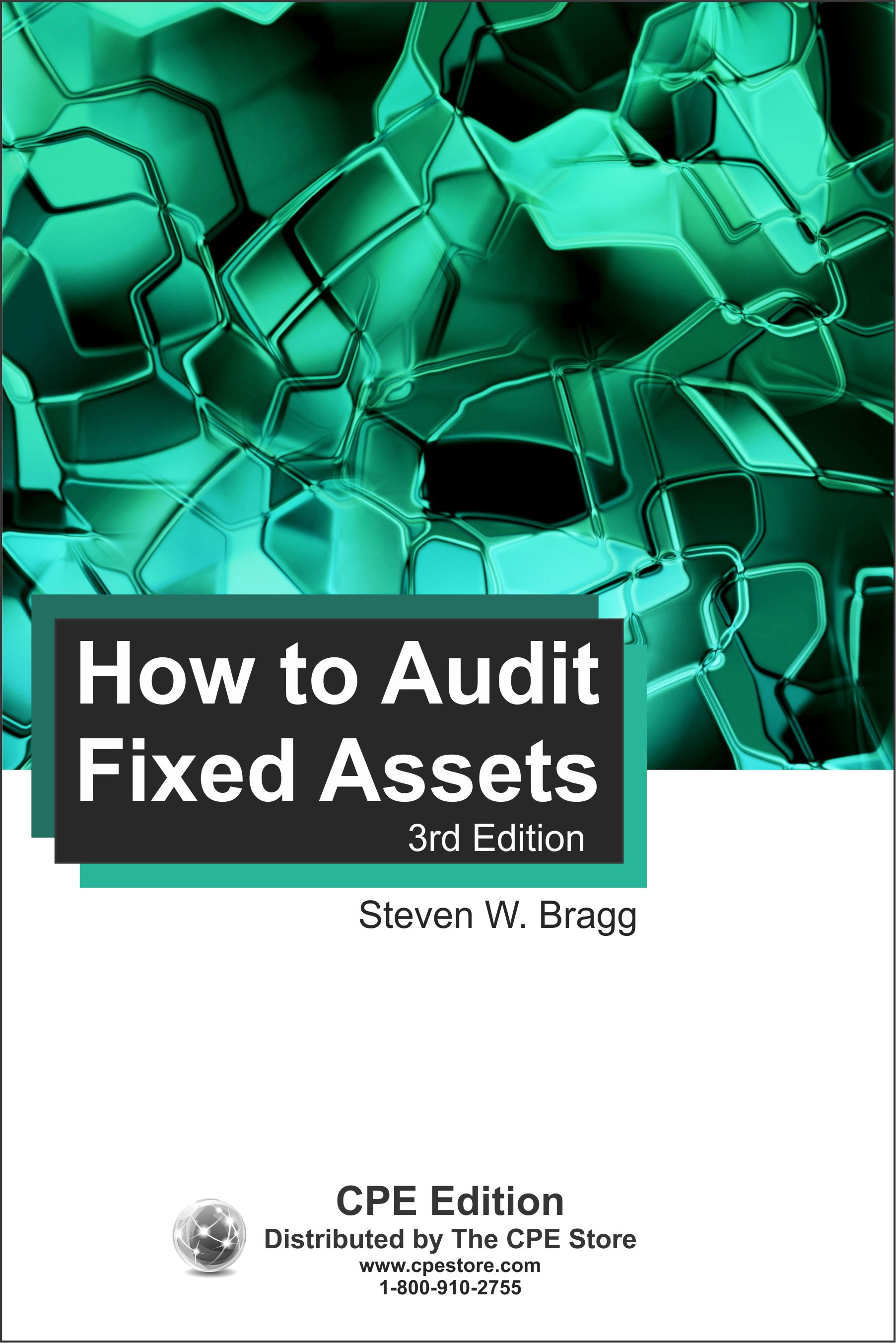
Course number: AA442403
This course clarifies for the auditor every action needed to audit fixed assets. It describes the characteristics of fixed assets from an auditing perspective, and then goes on to describe the activities required to audit both tangible and intangible fixed assets. The course also covers the auditing of depreciation, as well as asset impairment losses. Further, the course materials note several issues that can assist in the planning for an audit of fixed assets. Background information concerning the accounting for fixed assets is inserted into the text as needed. Course level: Basic. Prerequisites: None. Course includes integrated text and study guide, final exam, and grading service.NASBA field of study: Auditing Course credit: 2 hours
Printed Version$19
PDF$19
Colleague Test(s)$12
Contents
How to Audit for Fraud
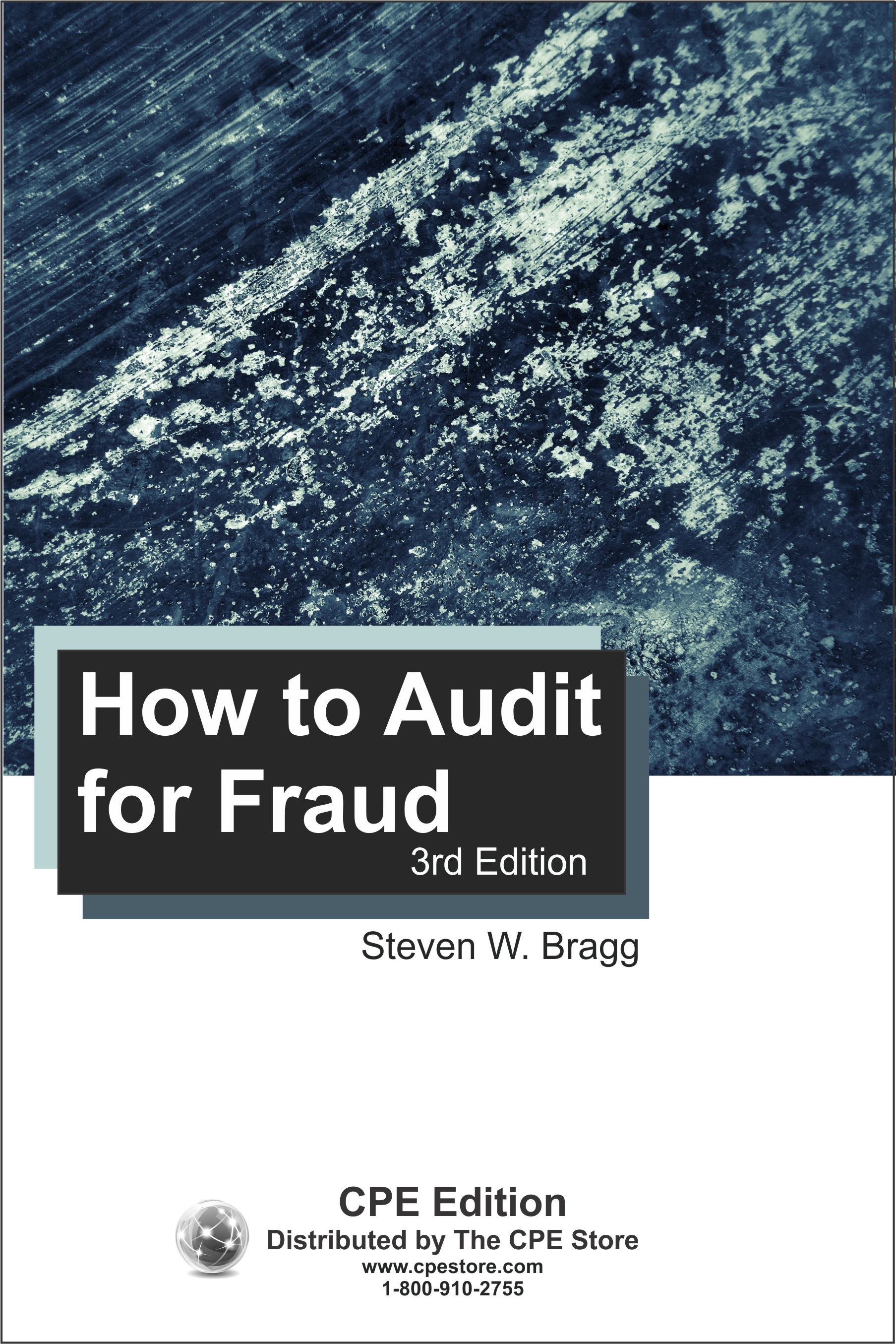
Course number: AA442603
This course shows the auditor how to detect fraud. It does so by discussing fraud risk indicators and other clues indicating the presence of fraud, and itemizes the many extended audit procedures that can be used to detect traces of fraud. The course also notes who is responsible for fraud prevention and detection, and covers the different ways in which financial statements can be fraudulently misstated. Course level: Basic. Prerequisites: None. Course includes integrated text and study guide, final exam, and grading service.NASBA field of study: Auditing Course credit: 3 hours
Printed Version$29
PDF$29
Colleague Test(s)$15
Contents
How to Audit Inventory
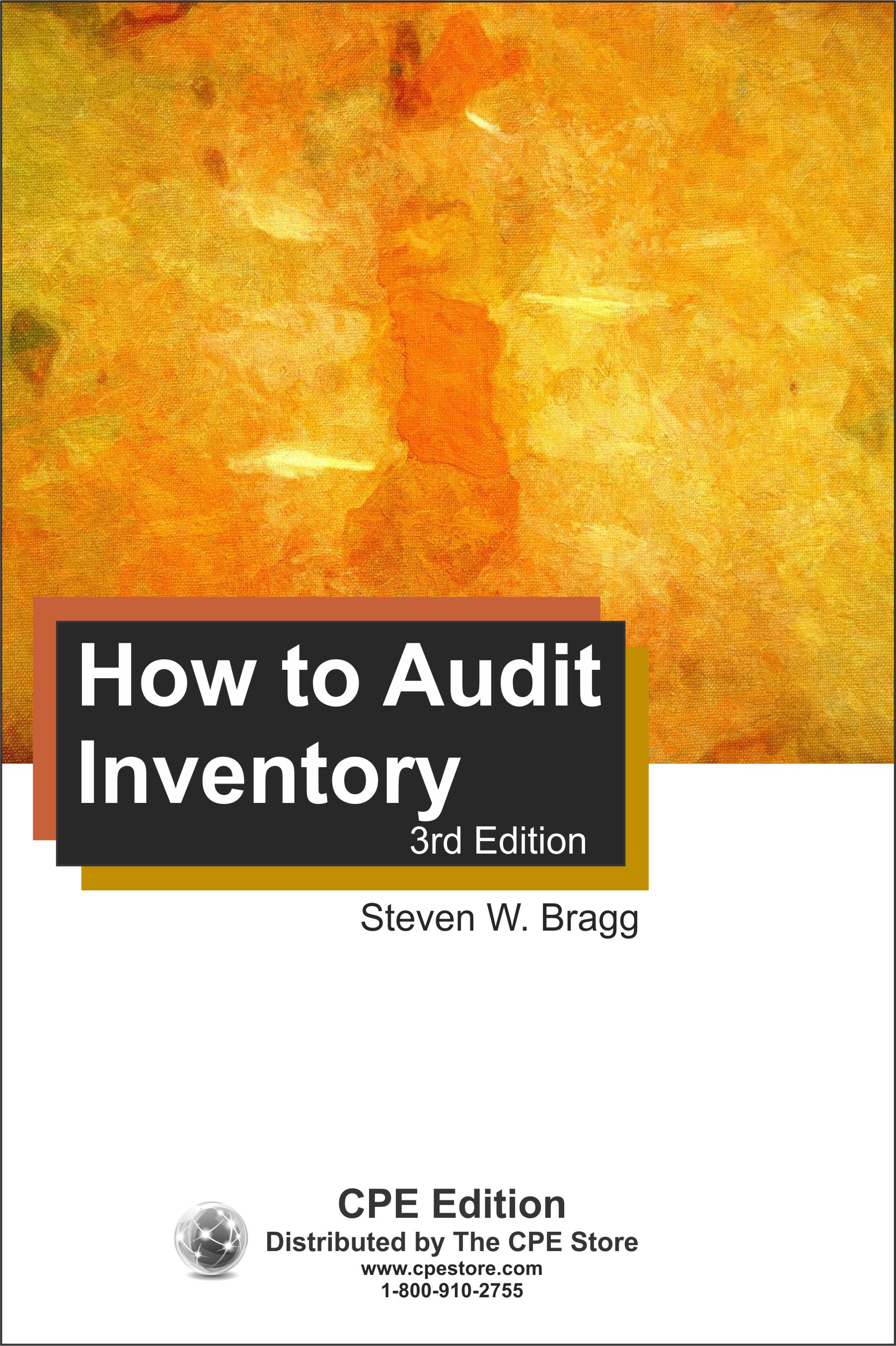
Course number: AA442803
This course clarifies for the auditor every action needed to audit inventory. It describes the characteristics of inventory from an auditing perspective, and then goes on to describe the steps required to audit inventory. Background information concerning inventory is also included, such as physical inventory counts, the lower of cost or market rule, and inventory cost layering. Course level: Basic. Prerequisites: None. Course includes integrated text and study guide, final exam, and grading service.NASBA field of study: Auditing. Course credit: 2 hours
Printed Version$19
PDF$19
Colleague Test(s)$12
Contents
How to Audit Liabilities
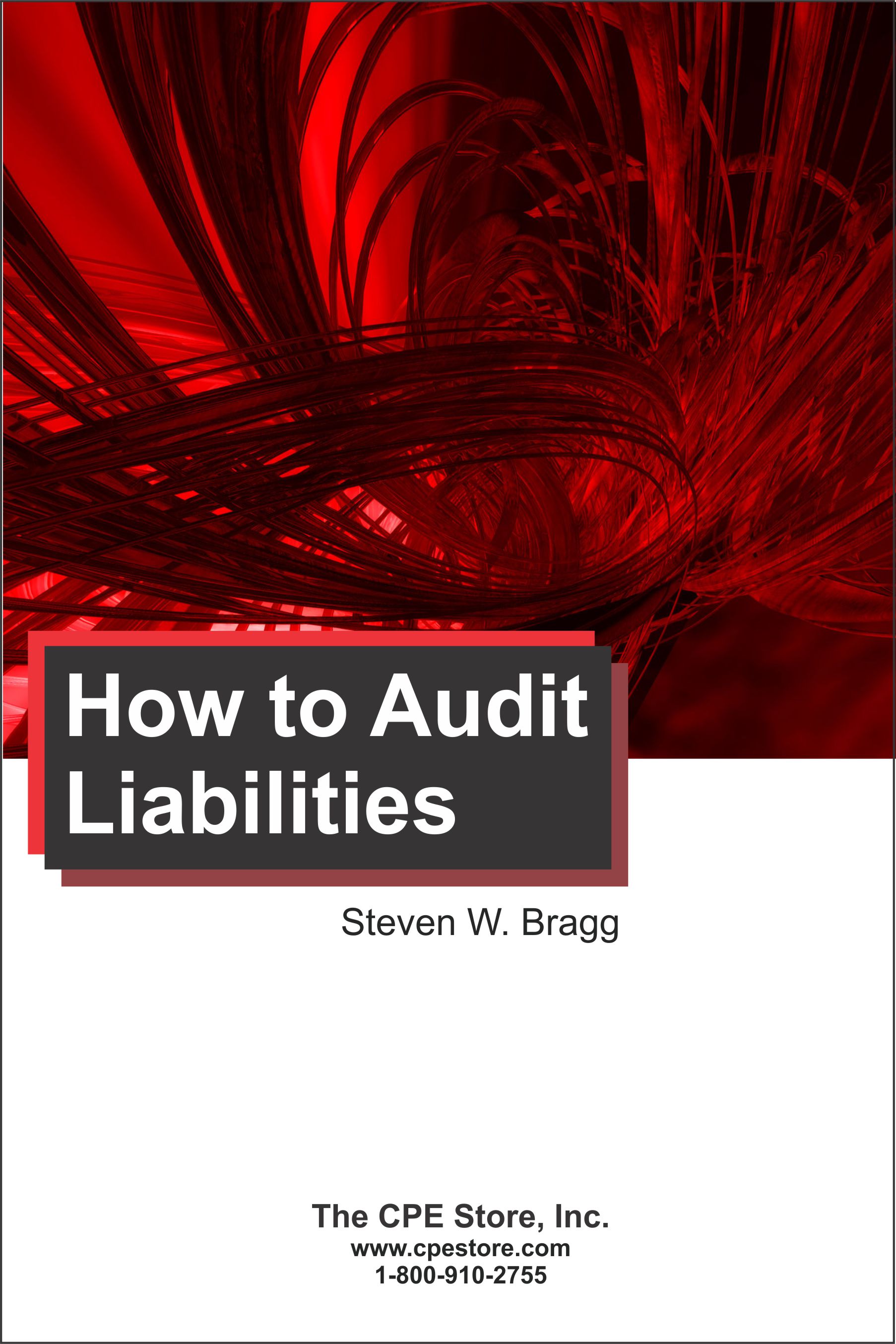
Course number: AA442901
This course clarifies for the auditor every action needed to audit liabilities. It describes the characteristics of liabilities from an auditing perspective, and then goes on to describe the steps required to audit many types of liabilities, including accounts payable, accrued liabilities, and debt. There is a particular emphasis on the search for unrecorded liabilities. Background information concerning the accounting for liabilities is inserted into the text as needed. Course level: Basic. Prerequisites: None. Course includes integrated text and study guide, final exam, and grading service.NASBA field of study: Auditing Course credit: 1 hour
Printed Version$19
PDF$19
Colleague Test(s)$12
Contents
How to Audit Receivables
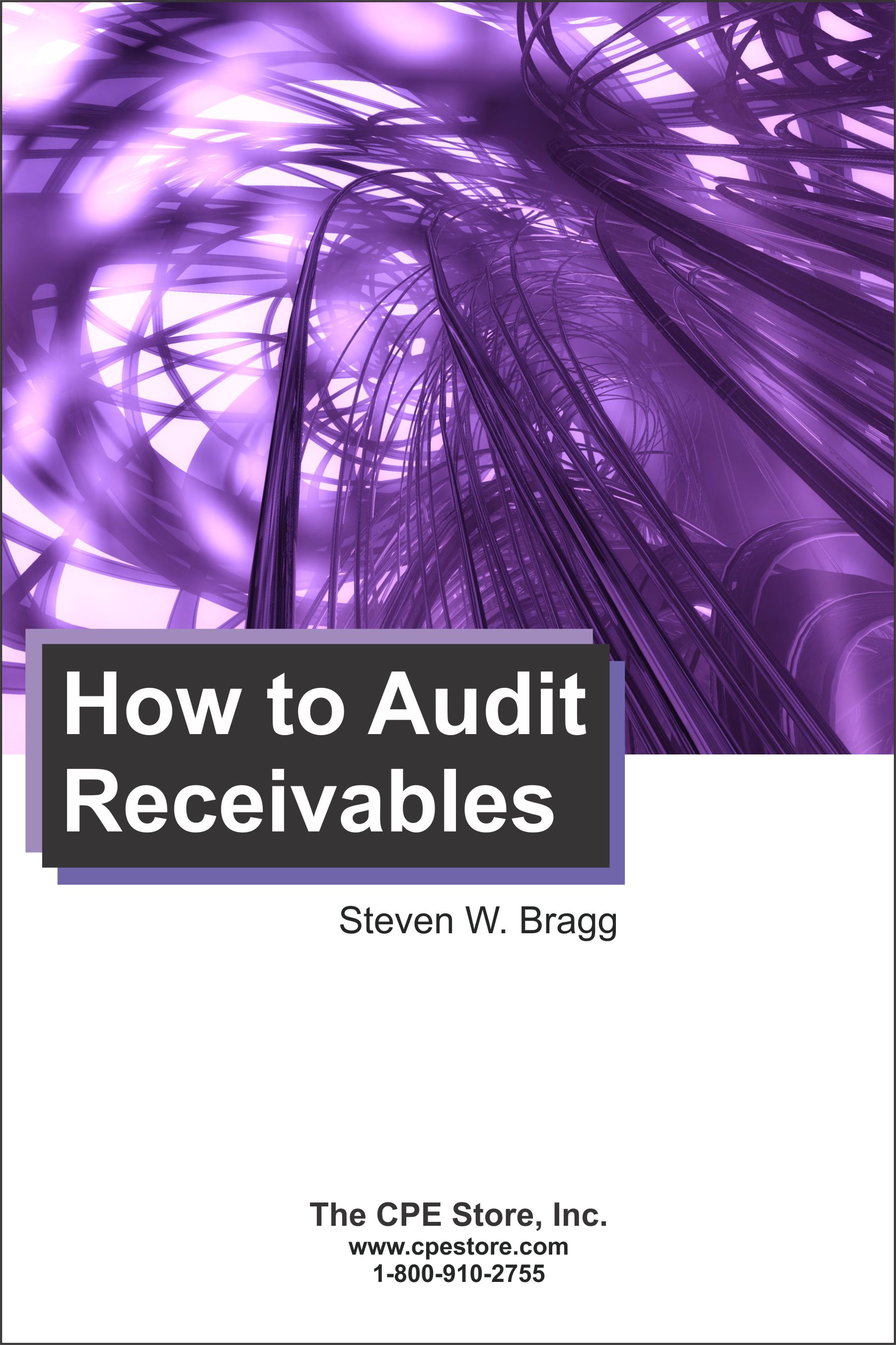
Course number: AA443101
This course clarifies for the auditor every action needed to audit receivables. It describes the characteristics of receivables from an auditing perspective, and then goes on to describe the steps required to audit receivables. Background information concerning receivables is also included, such as the allowance for doubtful accounts, accounting for notes receivable, receivable fraud, and receivable controls. Course level: Basic. Prerequisites: None. Course includes integrated text and study guide, final exam, and grading service.NASBA field of study: Auditing Course credit: 2 hours
Printed Version$19
PDF$19
Colleague Test(s)$12
Contents
How to Audit Revenue
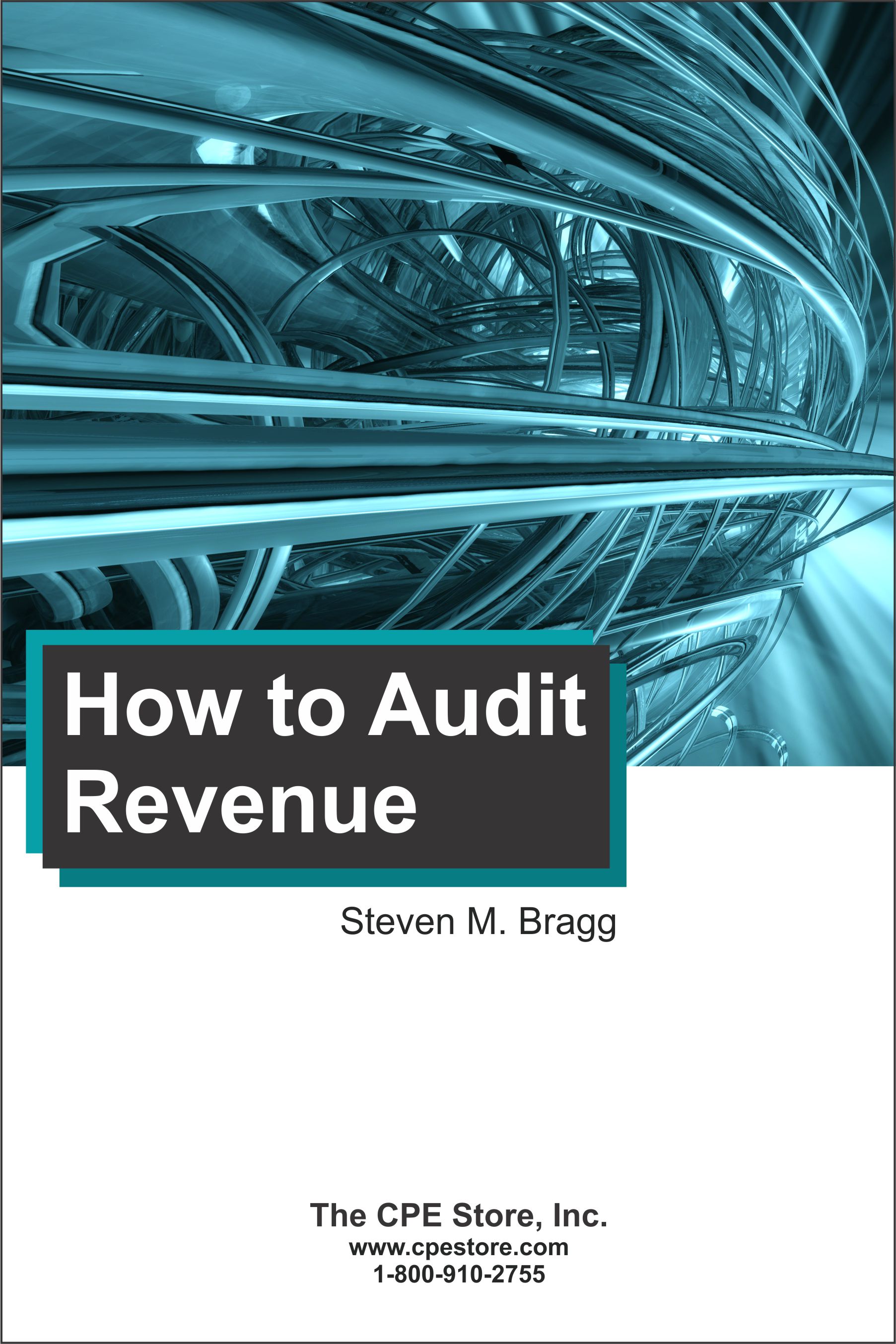
Course number: AA489401
This course clarifies for the auditor every action needed to audit revenue. It describes the characteristics of revenue from an auditing perspective, and then goes on to describe the steps required to audit revenue. Background information concerning revenue recognition is also included, such revenue recognition rules, consignment arrangements, customer acceptance issues, revenue fraud, and revenue controls. Course level: Basic. Prerequisites: None. Course includes integrated text and study guide, final exam, and grading service.NASBA field of study: Auditing Course credit: 2 hours
Printed Version$19
PDF$19
Colleague Test(s)$12
Contents
How to Conduct an Audit Engagement
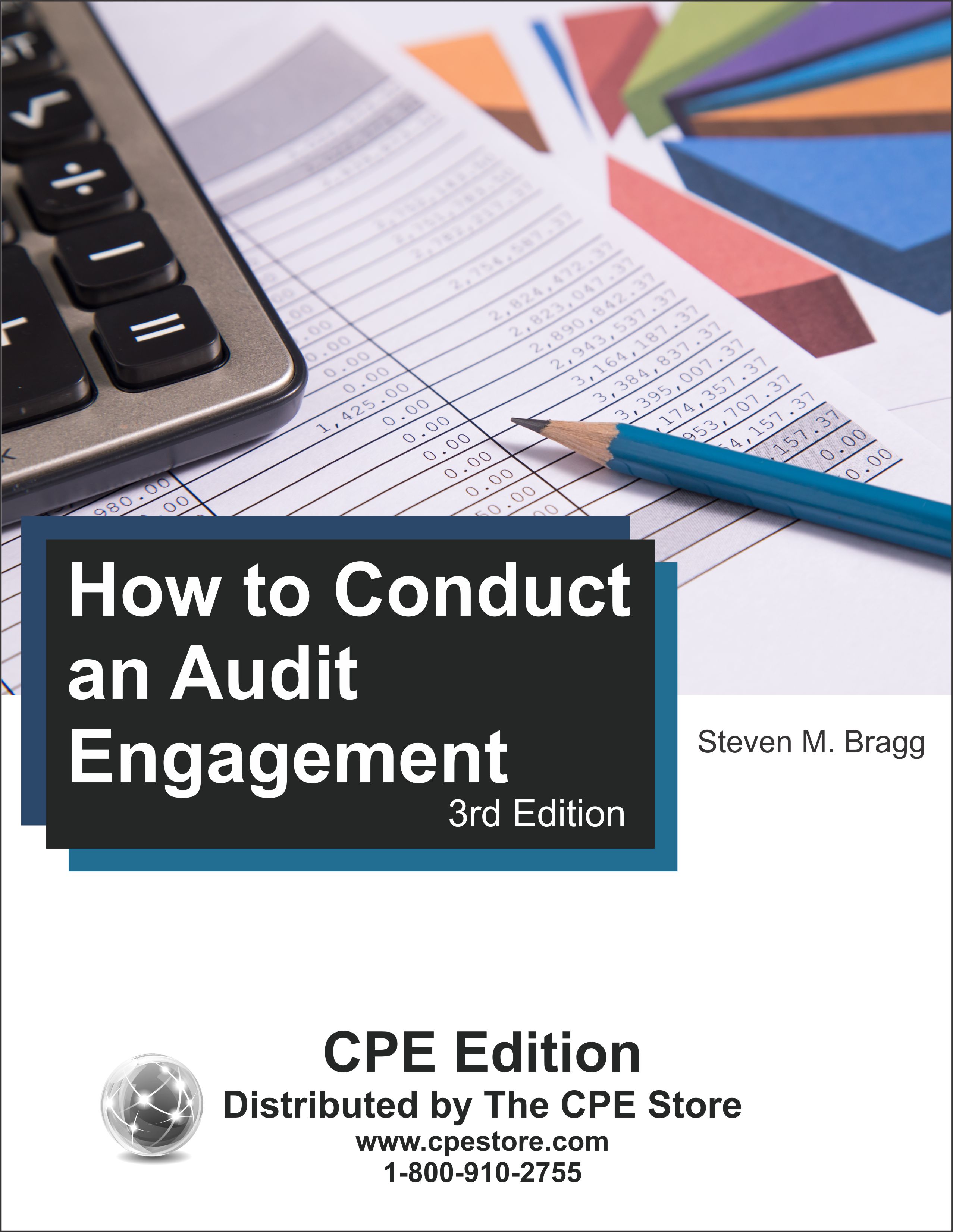
Course number: AA421403
The auditor needs to conduct audits as efficiently and thoroughly as possible. In How to Conduct an Audit Engagement, we describe every aspect of an audit engagement, including the engagement letter, audit planning, audit sampling, audit evidence, fraud considerations, audit documentation, auditor reports, and much more. Throughout, there is an emphasis on the practical aspects of auditing. This course is derived in part from the Statements on Auditing Standards. Course level: Basic. Course includes integrated text and study guide, final exam, and grading service.NASBA field of study: Auditing Course credit: 17 hours
Printed Version$119
PDF$119
Colleague Test(s)$50
Contents
How to Run a Meeting
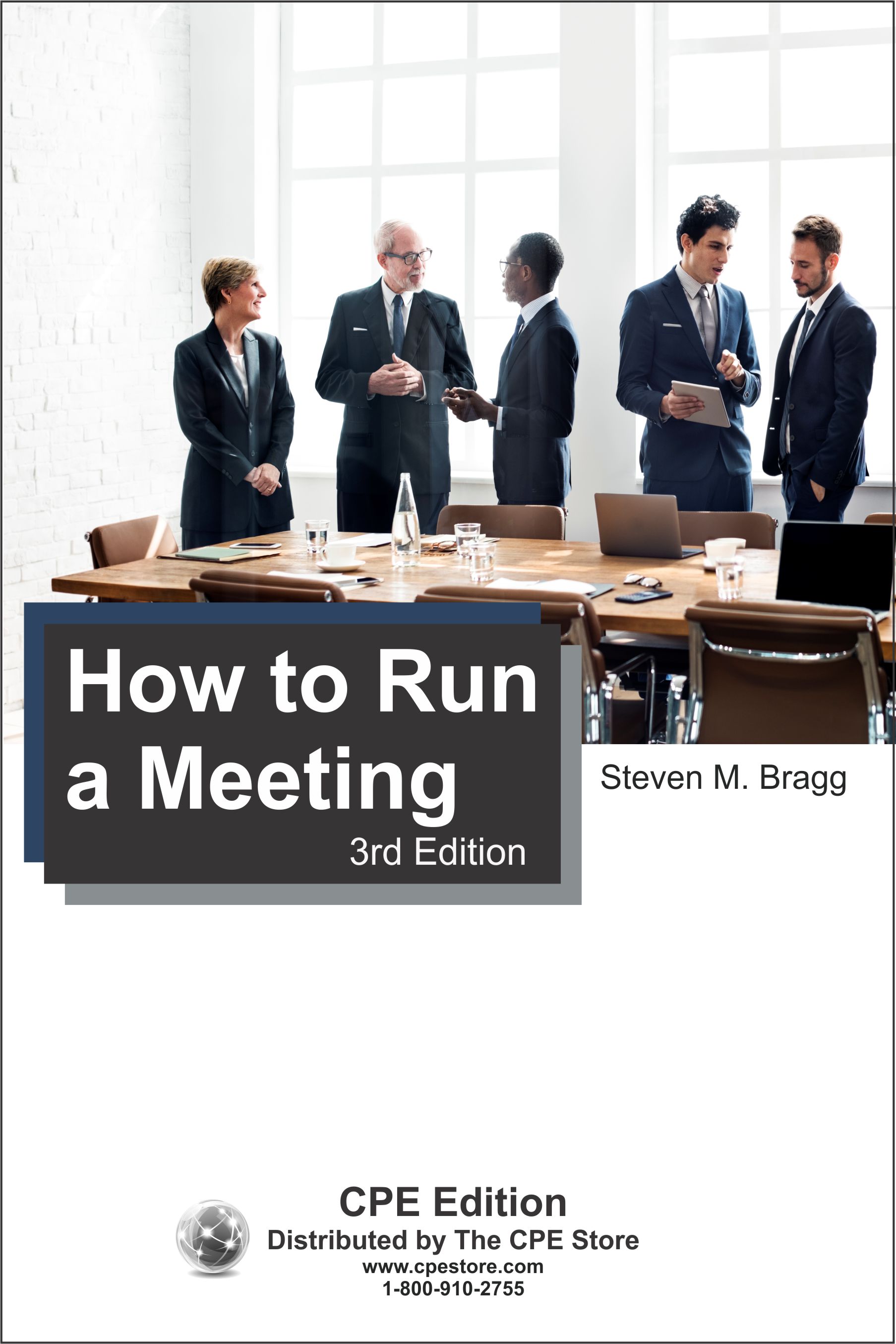
Course number: PD479903
This course discusses the sequence of events that should be followed to ensure that a meeting is successful. It also notes the different types of decision-making processes that can be used in a meeting, as well as the attributes of the ideal meeting leader. The course covers numerous other topics, including dealing with problem employees and the best meeting room layout. Course level: Basic. Prerequisites: None. Course includes integrated text and study guide, final exam, and grading service.NASBA field of study: Personal Development Course credit: 2 hours
Printed Version$19
PDF$19
Colleague Test(s)$12
Contents
Human Resources Guidebook
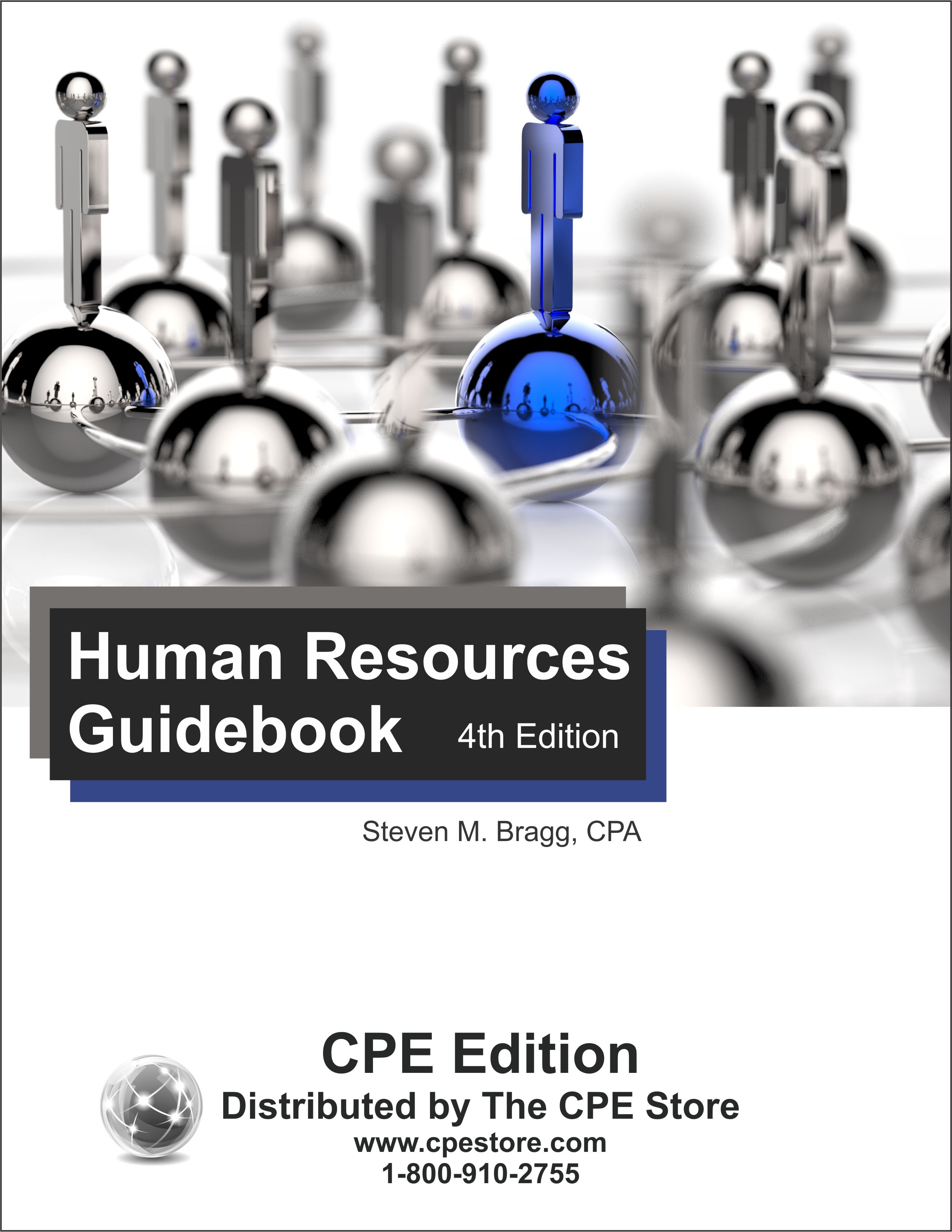
Course number: MM476504
This course describes how to plan for the appropriate staffing and skill levels in a business, as well as how to design jobs and tailor recruiting campaigns to attract the correct types of candidates. There is extensive coverage of employee development, including career development, training programs, and succession planning. The course also notes the many types of compensation and benefits, as well as their tax implications, and finishes with coverage of legal issues, including discrimination, related laws, and records management requirements. Course level: Basic. Prerequisites: None. Course includes integrated text and study guide, final exam, and grading service.NASBA field of study: Personnel/Human Resources Course credit: 18 hours
Printed Version$109
PDF$109
Colleague Test(s)$50
Contents
Identity Theft

Course number: MM717101
Identity theft is a common type of fraud. Anyone can be targeted; from a household or a business, to a nation. Identity theft impacts not just the victims, but their families, friends, employers, and the organizations involved. There is a need for better education and awareness regarding the threat of identity theft. This course explains what identity theft is and how federal laws protect victims of identity theft. It discusses how criminals steal identities and addresses common schemes they use. It also helps you recognize warning signs and identify methods that secure your identity. Finally, the course discusses how businesses and organizations protect personal information collected and respond to data breaches. Real-life cases and tips to protect yourself against identity theft are included. Course level: Basic. Prerequisites: None. Course includes integrated text and study guide, final exam and grading service.NASBA field of study: Business Law Course credit: 4 hours
Printed Version$39
PDF$39
Colleague Test(s)$15
Contents
Implementing the New Lease Standard ASU 2016-02
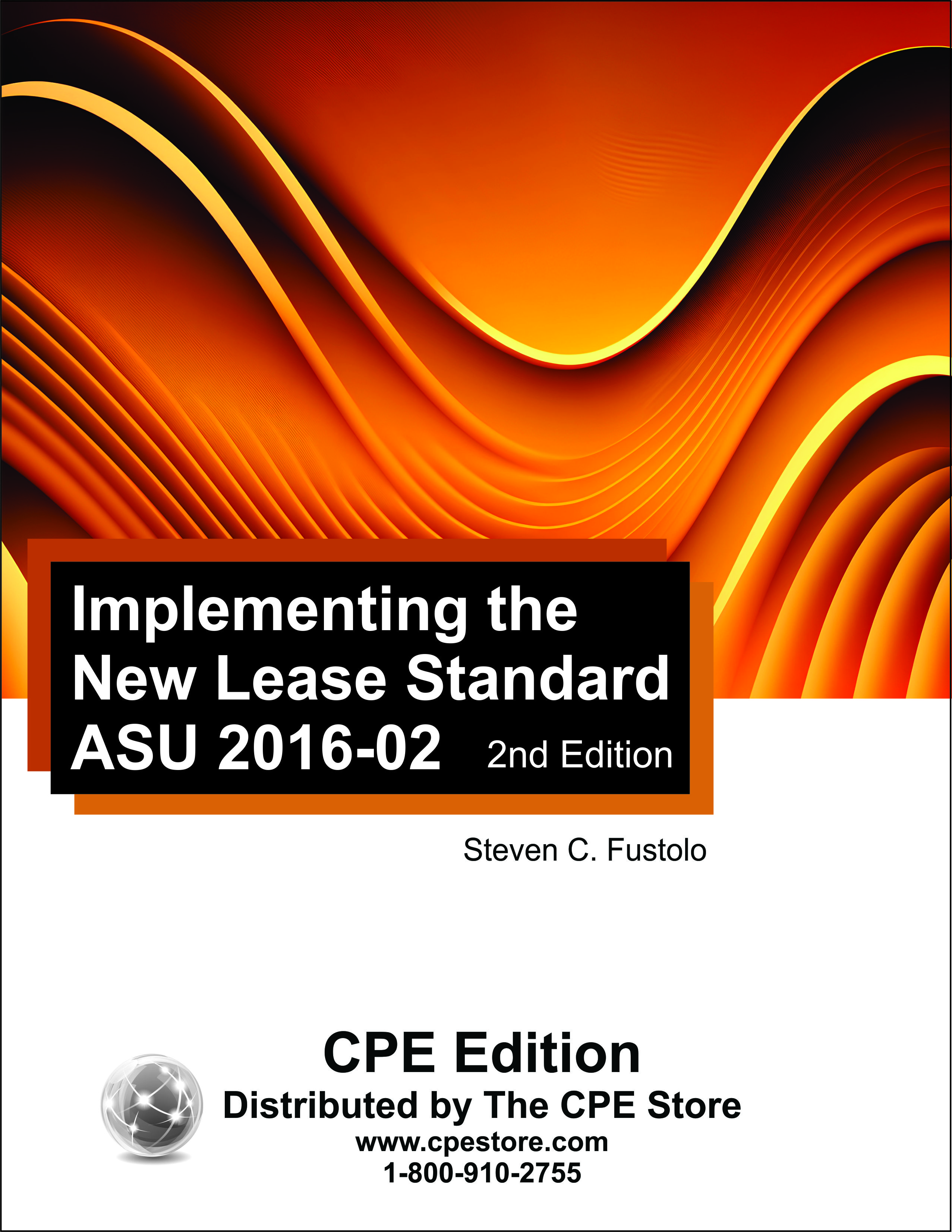
Course number: AA751902
The purpose of this course is to review the changes made to lease accounting by ASU 2016-02, Leases, (as further amended by ASU 2018-01, Land Easement—Practical Expedient for Transition to Topic 842), and numerous other amendments, and to establish the principles that lessees and lessors shall apply to report useful information to users of financial statements about the amount, timing, and uncertainty of cash flows arising from a lease. Topics include a review of the new rules for lessees and lessors, the types of leases, how to account for the balance sheet, income statement and cash flows statement impacts of different types of leases, the implementation requirements, and more. Course level: Basic. Prerequisites: None. Course includes integrated text and study guide, final exam, and grading service.NASBA field of study: Accounting Course credit: 8 hours
Printed Version$69
PDF$69
Colleague Test(s)$25
Contents
Income Statement: Accounting and Reporting
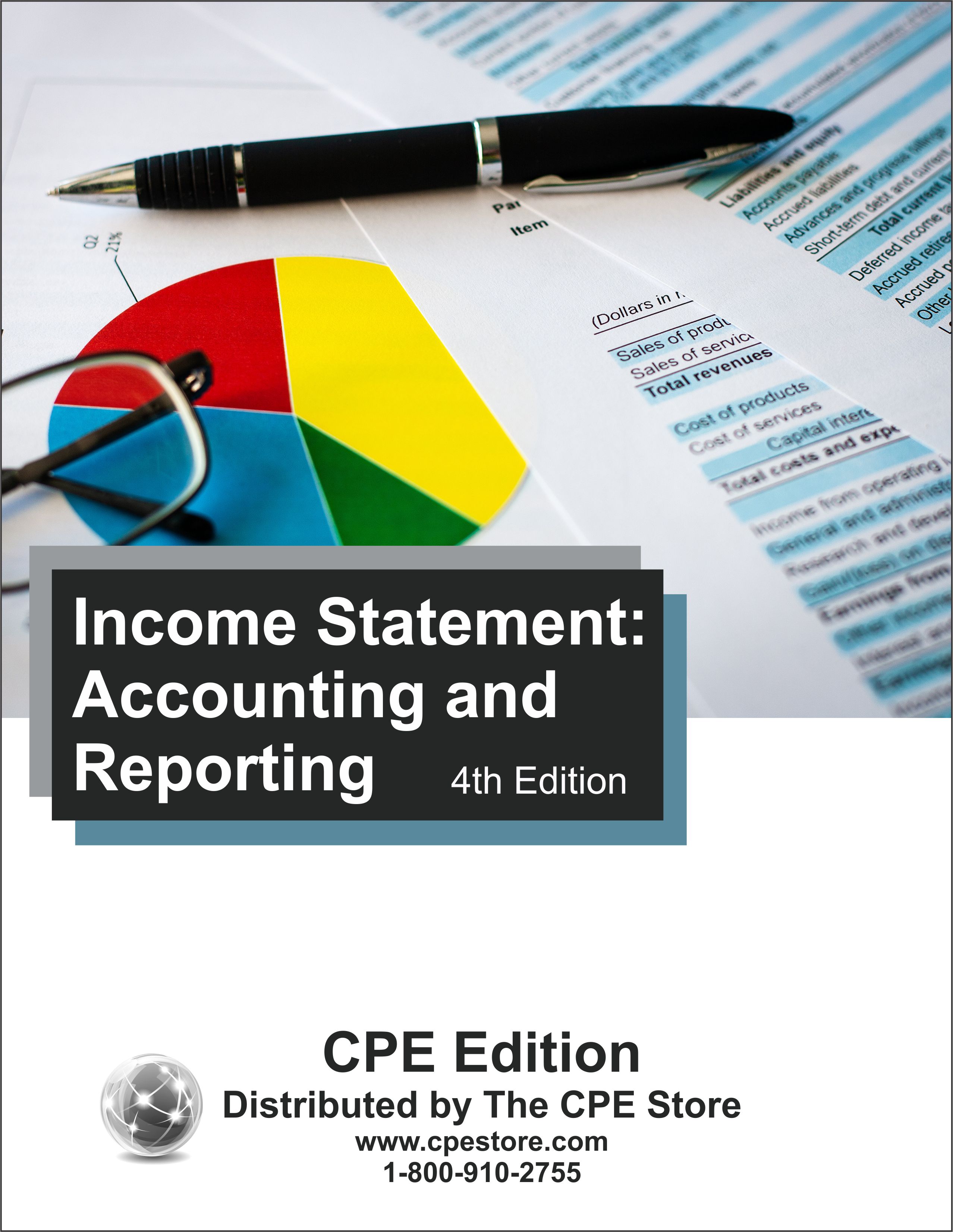
Course number: AA775504
This course addresses income statement accounting and reporting. It discusses a variety of accounting issues surrounding income statement items and related information, the format of the income statement, major income statement categories, unusual and nonrecurring items, discontinued operations, research and development costs, deferred compensation arrangements, share-based payments, compensation expense arising under a stock option plan, insurance costs, and earnings per share (EPS) calculation. Course level: Basic. Prerequisites: None. Course includes integrated text and study guide, final exam, and grading service.NASBA field of study: Accounting Course credit: 4 hours
Printed Version$39
PDF$39
Colleague Test(s)$15
Contents
Individual Retirement Accounts

Course number: TAX811107
Individual retirement accounts are investing tools that permit individuals to set aside money for retirement in a way that is preferential from a tax standpoint. This course will review the following types of IRA accounts: Traditional IRAs, Roth IRAs, SIMPLE IRAs and SEP IRAs. It will describe who is allowed to open and contribute to an IRA account during the tax year; identify when contributions are deductible and when they are not deductible; describe the time allowed to roll over distributions and the ramifications of not completing rollovers within the allotted time; and finally, describe when taxpayers are permitted to take distributions from an IRA account. Course level: Basic. Prerequisites: None. Course includes integrated text and study guide, final exam, and grading service.NASBA field of study: Taxes Course credit: 4 hours
Printed Version$39
PDF$39
Colleague Test(s)$15
Contents
Information Security for CPAs
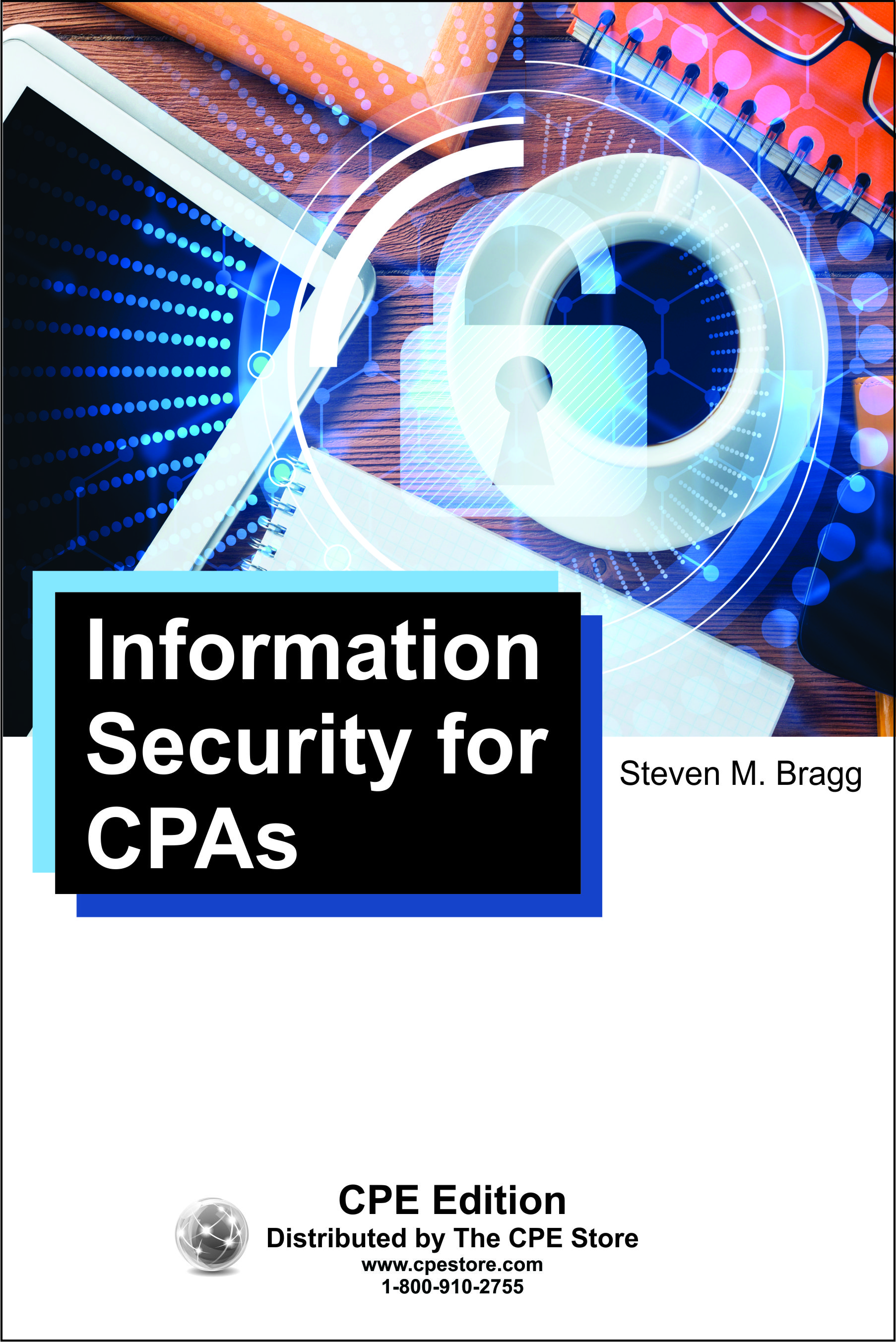
Course number: CC410901
Hackers have many methods for breaking through the security surrounding a CPA firm’s information systems. The Information Security for CPAs course describes the ways in which hackers can attack a computer system, as well as the many ways in which a CPA firm can protect its systems from attack. The course also addresses the FTC Safeguards Rule, which applies to tax return preparers. Course level: Basic. Prerequisites: None. Course includes integrated text and study guide, final exam, and grading service.NASBA field of study: Information Technology Course credit: 1 hour
Printed Version$19
PDF$19
Colleague Test(s)$12
Contents
Internal Auditing Guidebook
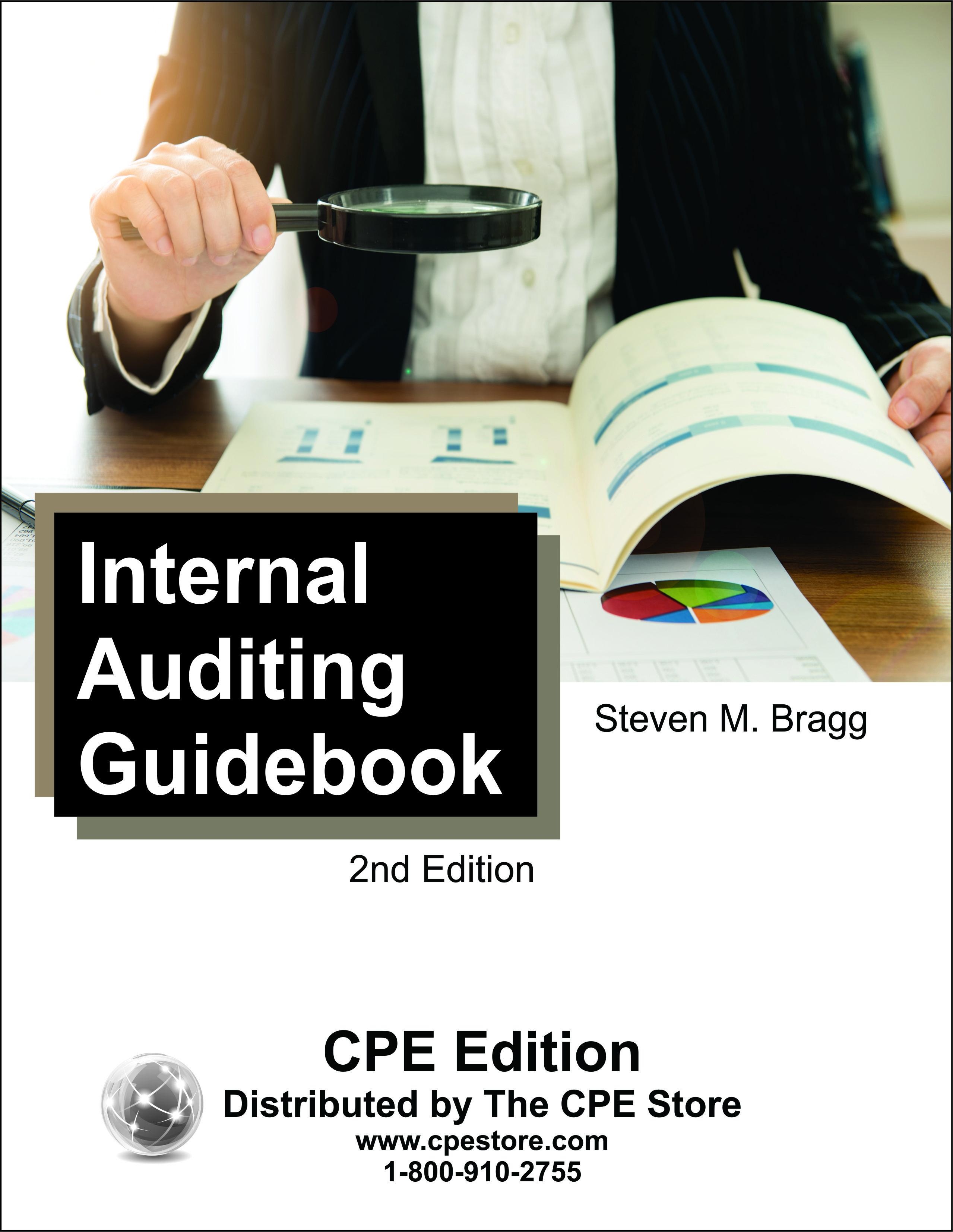
Course number: AA422102
A successful internal audit program is an essential tool for determining how well an organization’s processes and controls are functioning. It can identify high-risk areas and determine how well existing controls are mitigating risks. In the Internal Auditing Guidebook, we cover all aspects of the internal auditing function, including governance, risk management, internal controls, fraud prevention and detection, audit evidence, audit sampling, data analytics, how to conduct engagements, and much more. This course is designed to assist in the development of a fine-tuned internal audit department that can help to minimize risks and provide valuable consulting advice to every area of a business. Course level: Basic. Prerequisites: None. Course includes integrated text and study guide, final exam, and grading service.NASBA field of study: Auditing Course credit: 10 hours
PDF$79
Colleague Test(s)$30
Contents
Internal Control and Anti-Fraud Program for the Small Business
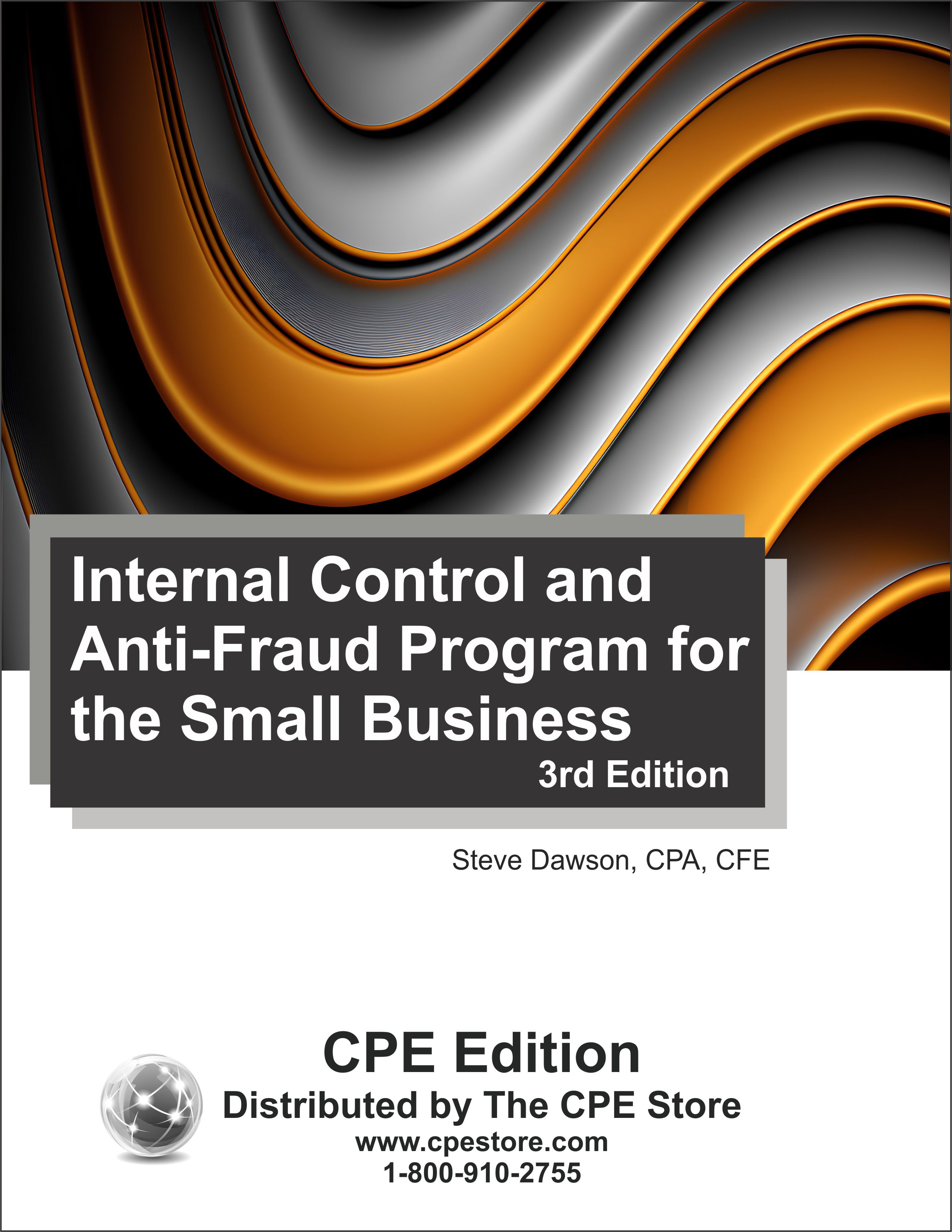
Course number: AA666503
This course is a practical guide to protection for businesses NOT subject to the Sarbanes-Oxley Act. It is geared specifically toward private, non-public small businesses and their unique needs in the realm of fraud protection. Covering all elements of an internal control structure applicable to the small business community, this course provides a step-by-step roadmap for designing and implementing an effective, efficient internal control structure/anti-fraud program tailored to your business’s particular needs. Case studies are used throughout to illustrate internal control weaknesses and the fraud that can result, and follow-up analysis describes the controls that would have reduced the probability of fraud had they been in place. You’ll learn how to analyze your company’s internal control issues, and implement a robust system for fraud prevention. The step-by-step internal control program includes the following: understanding the five elements of internal control, avoiding gaps in protection with relevant controls, designing the ultimate anti-fraud program, and implementing internal control tailored to your needs. Course level: Basic. Prerequisites: None. Course includes integrated text and study guide, final exam, and grading service.NASBA field of study: Auditing Course credit: 7 hours
Printed Version$69
PDF$69
Colleague Test(s)$20
Contents
Internal Control and Fraud Detection
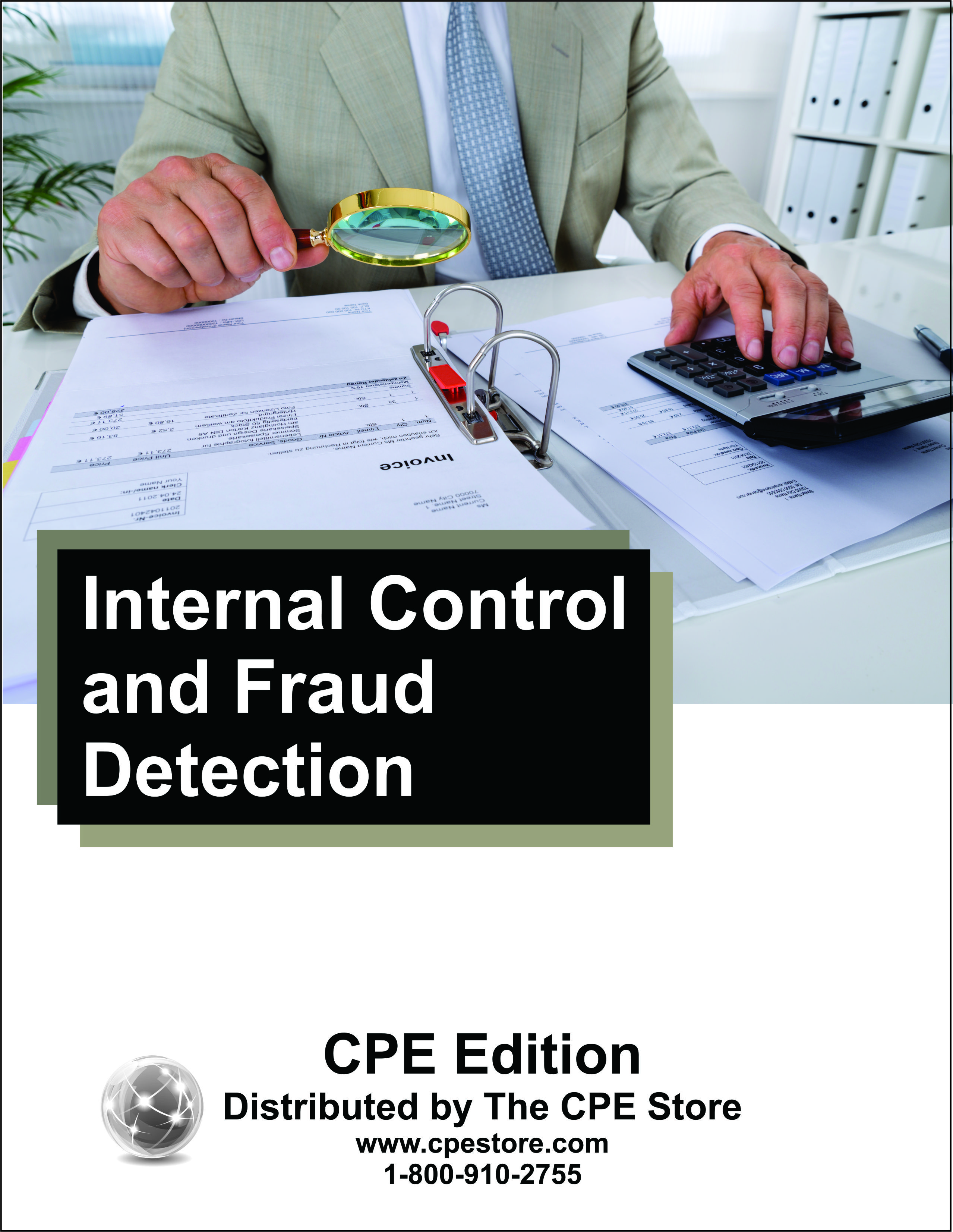
Course number: AA762402
This course presents the principles of internal control to help readers understand the nature and context of control, such as limitations of internal controls, the most recognized controls frameworks (e.g. COSO Framework, Green Book), and some common and important control procedures. It also includes steps on how to identify risks and controls, advice on how to assess the adequacy of controls, a discussion of how to reach a fair assessment, and documentation requirements for evidences of effective controls. In addition, the course discusses requirements related to performing an integrated audit: SAS 130 and AS No. 2201. Although these auditing rules are mandatory for external auditors and not for management, management should give consideration to following the approach described in these requirements. Includes an illustration of potential internal controls weaknesses involving accounting and financial reporting cycles, along with examples of compensating controls. It provides sample audit programs of key processes. It also incorporates appendices including: an example of management internal control report, a SOX Section 404 management compliance checklist, financial reporting controls and information systems checklist for each key cycle (e.g. revenue, inventory, financing), and a computer applications checklist. Course level: Basic. Prerequisites: None. Course includes integrated text and study guide, final exam, and grading service.NASBA field of study: Auditing Course credit: 8 hours
Printed Version$69
PDF$69
Colleague Test(s)$25
Contents
International Accounting 2025

Course number: AA432025
International accounting standards are used as the basis for financial reporting outside of the United States. The original documents are lengthy and difficult to research. The International Accounting course solves this problem by condensing the key elements of the standards into a single volume. This course describes the key elements of each accounting topic, how accounting information is to be disclosed, and where to look in the source documents for additional information. The text contains hundreds of practical examples that show how to apply international accounting standards to real-world situations, as well as sample journal entries and usage tips. In short, International Accounting serves as a handy reference for accountants who need quick answers to difficult problems. Course level: Basic. Prerequisites: None. Course includes integrated text and study guide, final exam and grading service.NASBA field of study: Accounting Course credit: 25 hours
Printed Version$169
PDF$169
Colleague Test(s)$75
Contents
Interpretation of Financial Statements
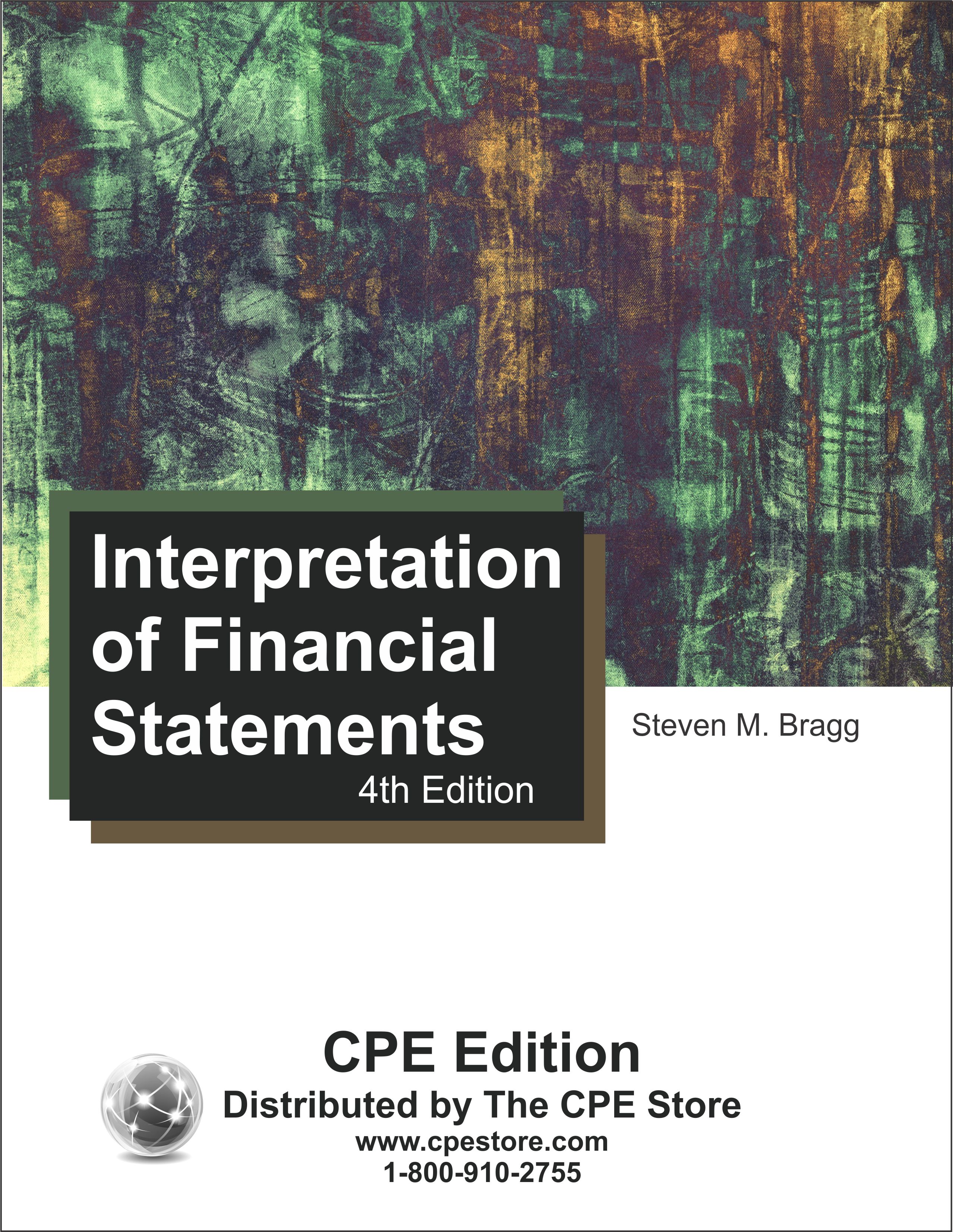
Course number: B473504
This course describes the structure of the financial statements, notes a number of tools for extracting information from the statements, and provides a wealth of additional insights into the reasons for the presence of or changes in certain numbers within the statements. Course level: Basic. Prerequisites: None. Course includes integrated text and study guide, final exam and grading service.NASBA field of study: Finance Course credit: 11 hours
Printed Version$89
PDF$89
Colleague Test(s)$35
Contents
Introduction to Excel
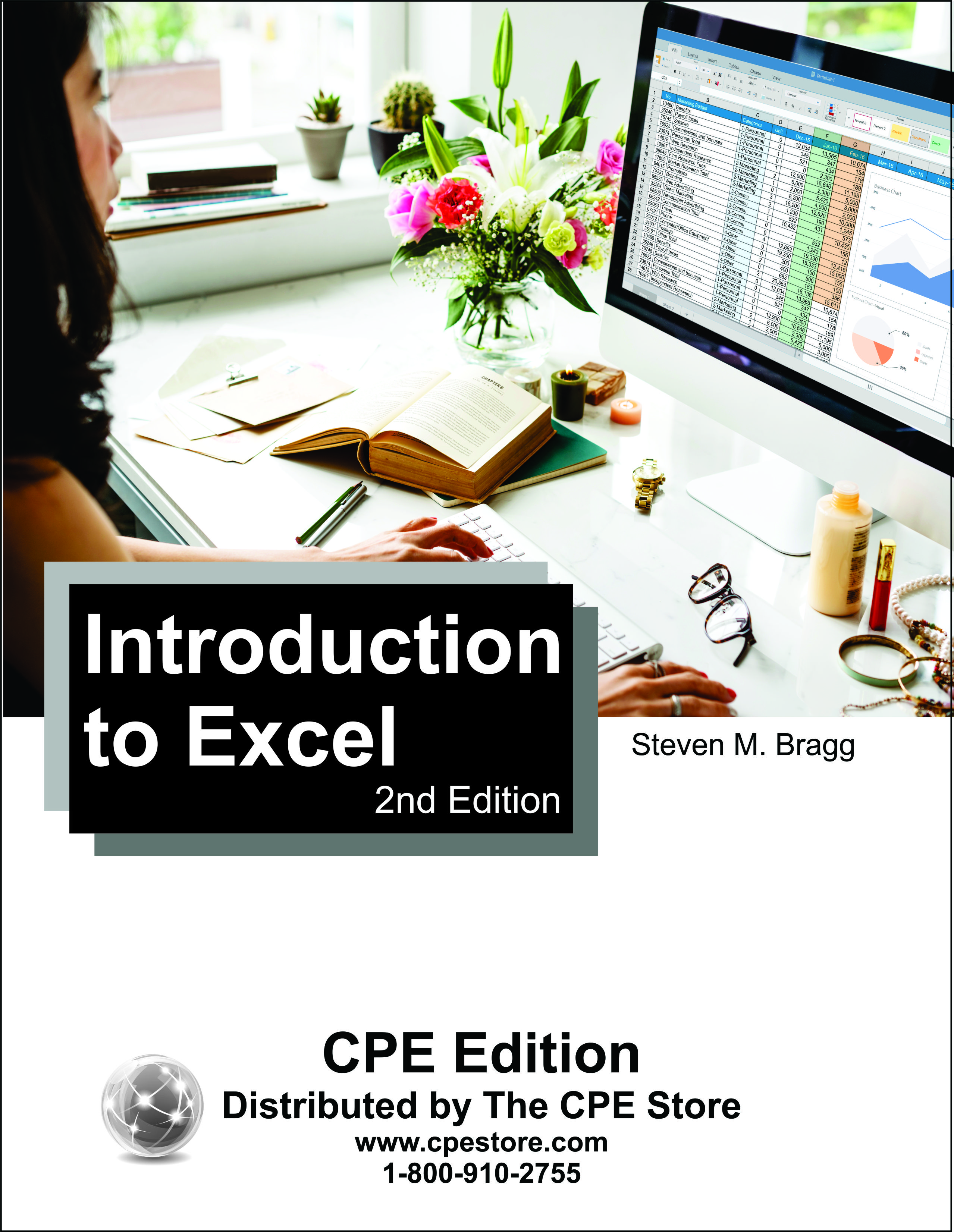
Course number: CC411202
Excel is one of the primary tools of the accountant. It is needed for many accounting activities, such as tracking the contents of accounts and conducting financial analyses. However, Excel is a massive program with hundreds of commands and quirky formatting options. In Introduction to Excel, we cover the basics of setting up and populating an Excel worksheet, as well as producing well-organized outputs. Topics covered include the menu system, formatting, named styles, templates, and a variety of printing options. Course level: Basic. Prerequisites: None. Course includes integrated text and study guide, final exam, and grading service.NASBA field of study: Computer Software & Applications Course credit: 3 hours
Printed Version$29
PDF$29
Colleague Test(s)$15
Contents
Introduction to Investing

Course number: FP623801
This course delivers straightforward, digestible lessons in the investment rules and principles you need to follow to mitigate risk and realize long-term success in the markets. You will learn how to: focus on the long-term and ignore short-term market fluctuations and movements; use employer-sponsored plans to supercharge your savings and returns and minimize your taxes; understand crucial investment subjects, like diversification, rebalancing, dollar-cost averaging, and indexing. Topics include discussions about saving, index bonds, diversification, asset allocation, retirement, rebalancing, dollar-cost averaging, investment mistakes, and more. Course level: Basic. Prerequisites: None. Course includes integrated text and study guide, final exam and grading service.NASBA field of study: Specialized Knowledge Course credit: 4 hours
Printed Version$39
PDF$39
Colleague Test(s)$15
Contents
Investing Guidebook

Course number: FP471303
It can be difficult to earn a consistent return on your invested funds. In the Investing Guidebook, we cover how to set up a structured approach to investing that improves your ability to gain a good return on your investments. It addresses the basic investment types, the sequence of investing activities, individual retirement accounts, and how to invest in stocks, bonds, and funds. It also reveals a number of ways to extract useful information from company financial statements, and how to measure your investing performance. The tips included in this course can be of great assistance in improving your investing skill. Course level: Basic. Prerequisites: None. Course includes integrated text and study guide, final exam, and grading service.NASBA field of study: Specialized Knowledge Course credit: 7 hours
Printed Version$59
PDF$59
Colleague Test(s)$20
Contents
Investing in Income Properties

Course number: FP675703
This course will help you understand real estate investment using a straightforward approach and easy-to-understand explanations. The course explains: the Big Six formula; how to find the right property; using your IRA to invest; the benefit of leverage; overcoming fear; real estate vs. stocks; how to convert rentals to condos; financing options, types of income properties, and much more. Course level: Basic. Prerequisites: None. Course includes integrated text and study guide, final exam, and grading service.NASBA field of study: Finance Course credit: 12 hours
PDF$79
Colleague Test(s)$35
Contents
IRS Collections and Installment Arrangements
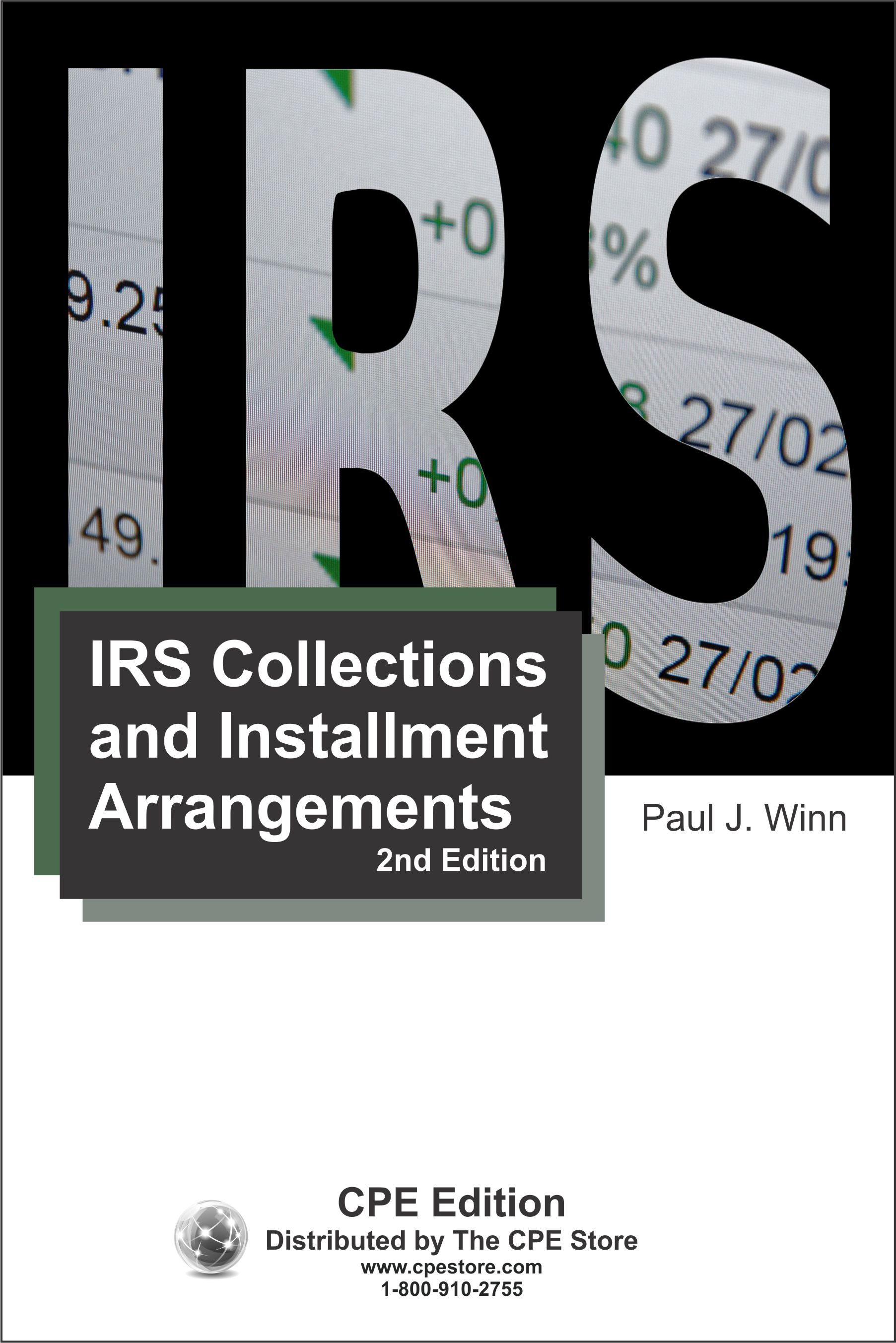
Course number: TAX923502
This course addresses the taxpayer’s rights when dealing with the IRS’s enforcement of tax collection. It outlines the various tax collection methods, billing processes, payment arrangements, statute of limitations on tax collection, as well as the methods of getting rid of a tax lien. The course further illustrates the processes of challenging the IRS’s decisions through a Collection Due Process (CDP) hearing, a Collection Appeals Program (CAP) or by mediation. Course level: Basic. Prerequisites: None. Course includes integrated text and study guide, final exam, and grading service.NASBA field of study: Taxes Course credit: 2 hours
Printed Version$19
PDF$19
Colleague Test(s)$12
Contents
IRS Criminal Investigations
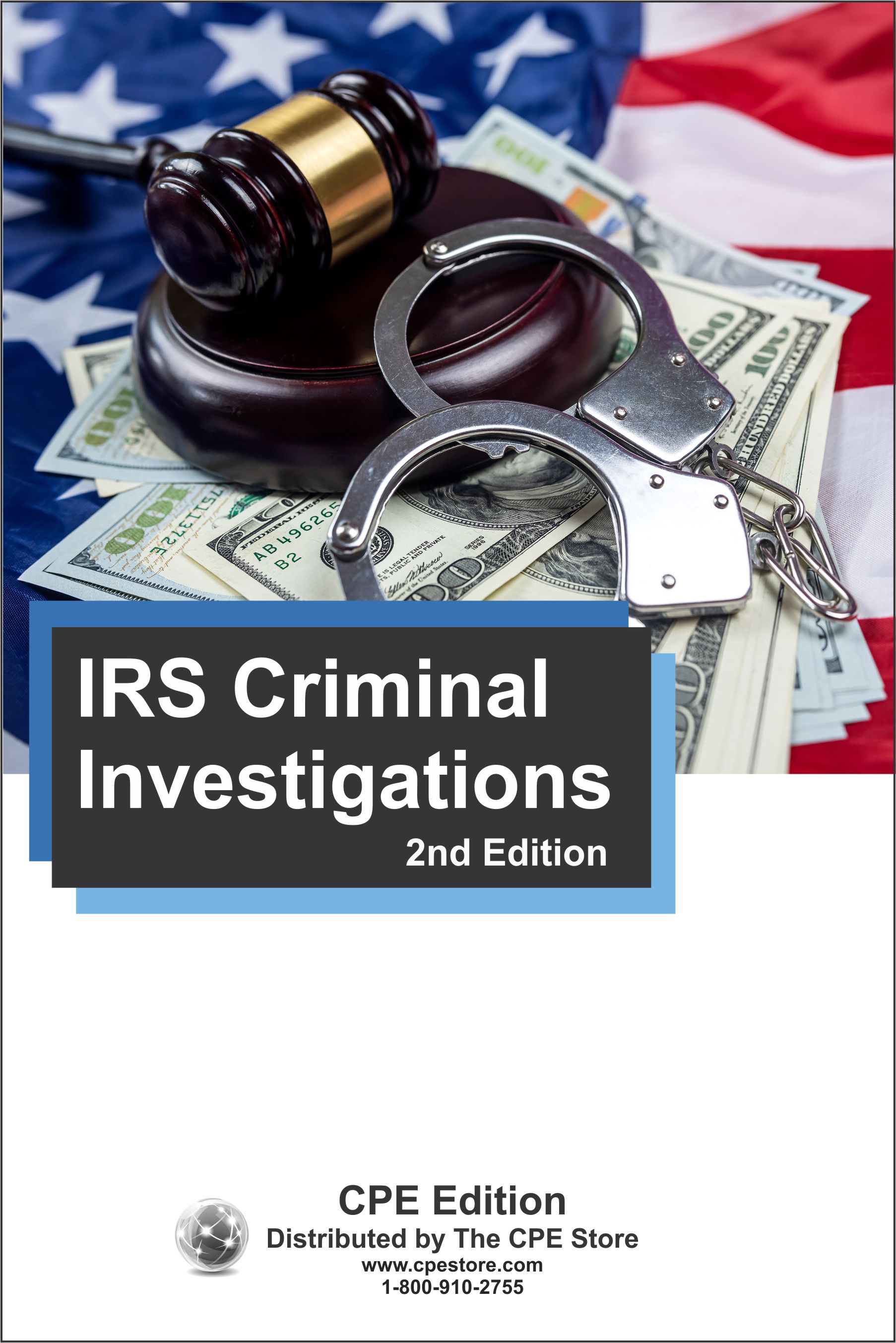
Course number: TAX798802
The IRS Criminal Investigation (CI) division investigates crimes involving tax fraud, narcotics trafficking, money laundering, public corruption, healthcare fraud, identity theft, and more. This course covers the details of the CI’s programs and the criminal investigation results presented in their 2023 annual report. Specifics regarding the Voluntary Disclosure Practice, the civil penalties resulting from voluntary disclosure, and the process of reporting individuals or businesses for tax violations are provided. The CI’s top 10 criminal cases for 2023, along with other significant cases involving corporate fraud, money laundering, false tax claims and credits, tax refund schemes, cybercrime and cryptocurrency, and tax return preparer schemes are also discussed. Course level: Basic. Prerequisites: None. Course includes integrated text and study guide, final exam and grading service.NASBA field of study: Taxes Course credit: 2 hours
Printed Version$19
PDF$19
Colleague Test(s)$12
Contents
Keeping Taxpayer Data Secure

Course number: MM928101
In this course, tax preparers are introduced to the problem of cybercrime and its costs, offered methods that can be expected to reduce the chances of becoming a cybercrime victim, and informed of proper steps to take if they do become victims of cybercrime. This course examines cybercrime and discusses the extent of the cybercrime problem, potential costs to a tax preparer whose taxpayer data have been breached, best practices a tax preparer should implement to avoid becoming a victim of cyber crime, and what actions to take if taxpayer data has been breached. Course level: Basic. Course includes integrated text and study guide, final exam, and grading service.NASBA field of study: Business Management & Organization Course credit: 3 hours
Printed Version$29
PDF$29
Colleague Test(s)$15
Contents
Law Firm Accounting
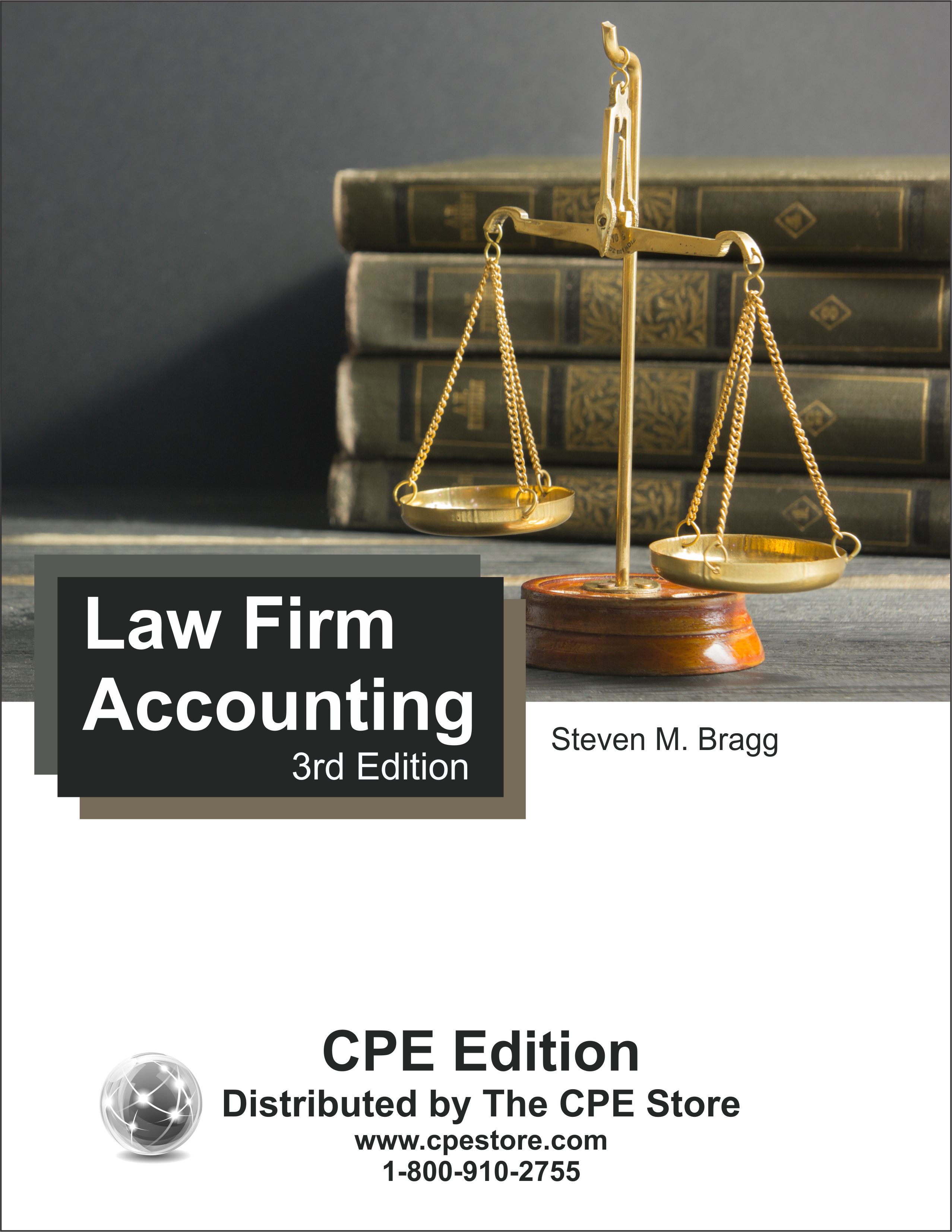
Course number: AA441503
A law firm has a number of unique accounting requirements. It is strongly focused on the proper identification of chargeable hours, correctly structured billings, distributable income calculations, partner accounts, practice group reporting, realization rates, and much more. Law Firm Accounting provides the accountant with the information needed to set up a charge code system, account for ongoing business transactions, prepare financial statements, and issue a broad array of reports that are specifically targeted at the needs of a law firm. In short, it addresses every aspect of the accounting for a law firm. Course level: Basic. Prerequisites: None. Course includes integrated text and study guide, final exam and grading service.NASBA field of study: Accounting Course credit: 3 hours
Printed Version$29
PDF$29
Colleague Test(s)$15
Contents
Lean Accounting
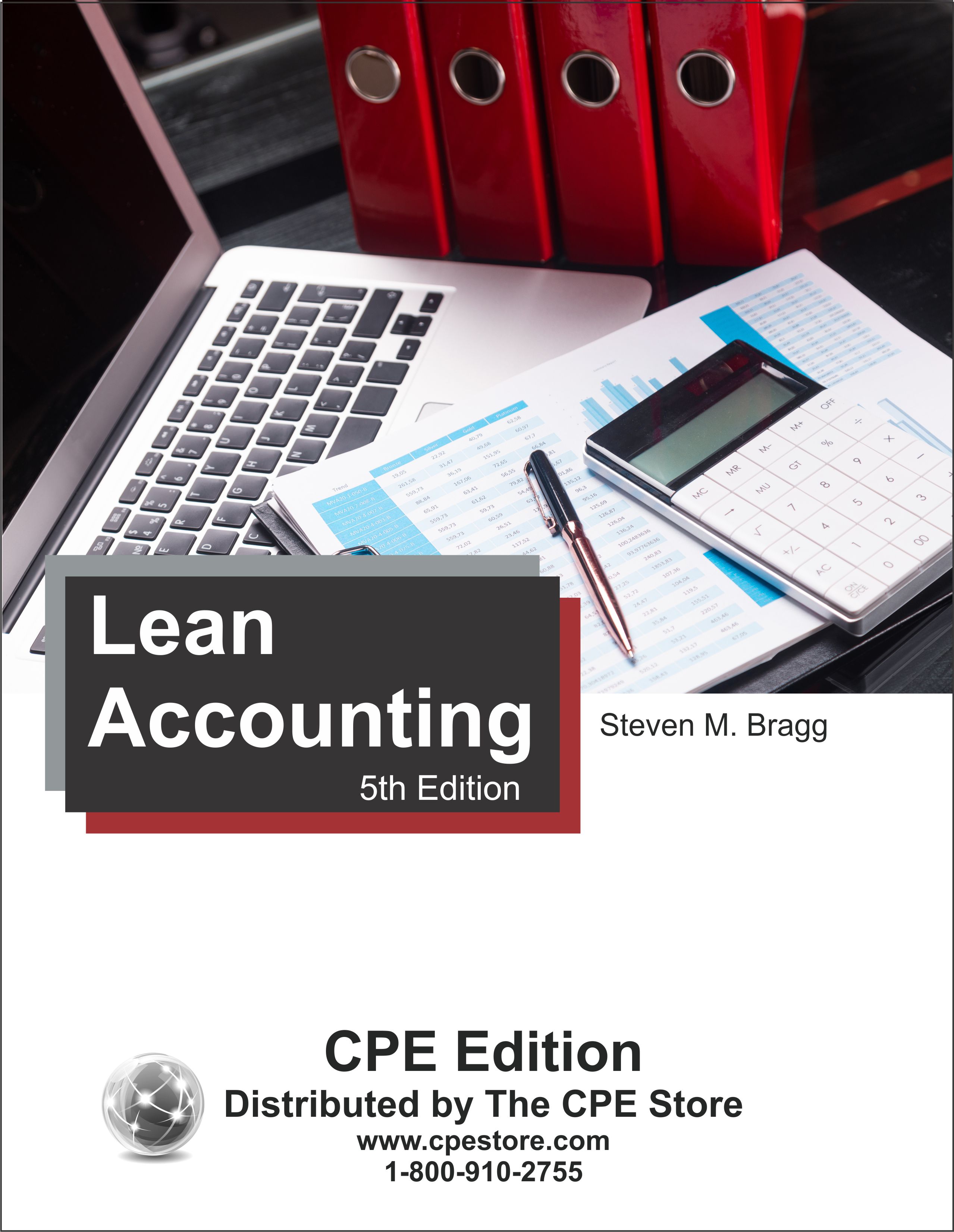
Course number: AA484605
There are massive differences between the efficiency and effectiveness of average accounting departments and those that operate at a world-class level. The key difference is having a lean focus on how the operation is constructed and operated. This course reveals how to streamline the accounting department with over 150 improvement tips for billing, collections, cost accounting, fixed assets, payables, payroll, inventory, budgeting, general ledger, financial statement production, and more. Course level: Basic. Prerequisites: None. Course includes integrated text and study guide, final exam and grading service.NASBA field of study: Accounting Course credit: 15 hours
Printed Version$109
PDF$109
Colleague Test(s)$45
Contents
LLC or Corporation?
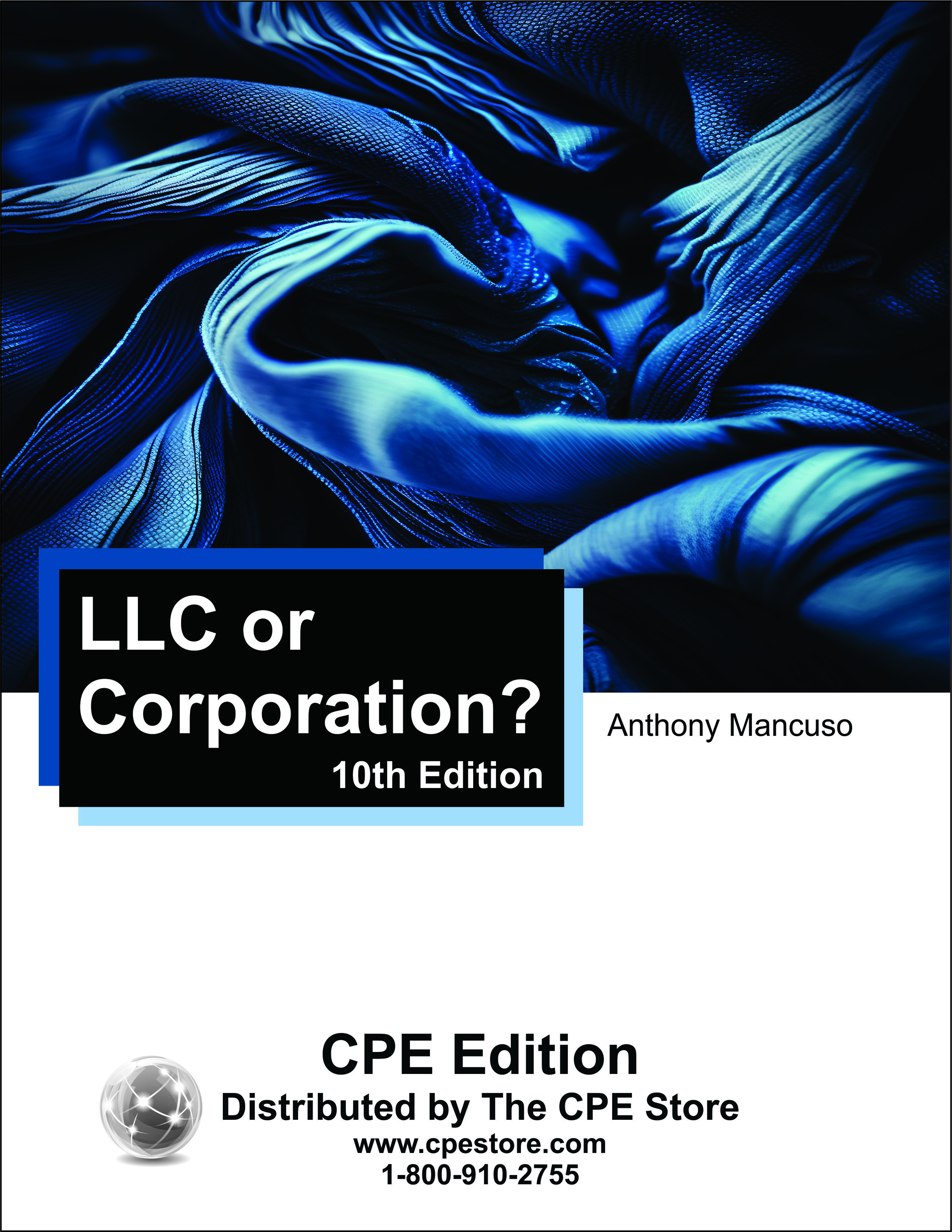
Course number: TAX572210
This course covers all aspects of the choice of entity decision, including personal liability concerns, money issues, concerns of doing business out-of-state, converting a partnership or a sole proprietorship to another entity, converting an LLC to another entity, converting, dissolving or selling a corporation, and much more. The text also provides conversion and formation scenarios that provide a real-world look at all the options available. It is better to get all the facts and make an informed decision up-front than expend an excess of time and effort cleaning up after a mistaken choice later. Course level: Basic. Prerequisites: None. Course includes integrated text and study guide, final exam and grading service.NASBA field of study: Taxes Course credit: 12 hours
PDF$79
Colleague Test(s)$35
Contents
Long-Term Care

Course number: B477414
This course helps you understand the alternatives to nursing facilities and shows you how to find the best care you can afford. Covers: evaluating long-term care insurance, arranging home care, exploring options beyond nursing homes, choosing a nursing facility, getting the most out of Medicare, Medicaid and other benefit programs, protecting your assets, preventing elder fraud, and more. Course level: Basic. Prerequisites: None. Course includes integrated text and study guide, final exam, and grading service.NASBA field of study: Specialized Knowledge Course credit: 16 hours
Printed Version$109
PDF$109
Colleague Test(s)$50
Contents
Managing Ethical Dilemmas for Texas CPAs
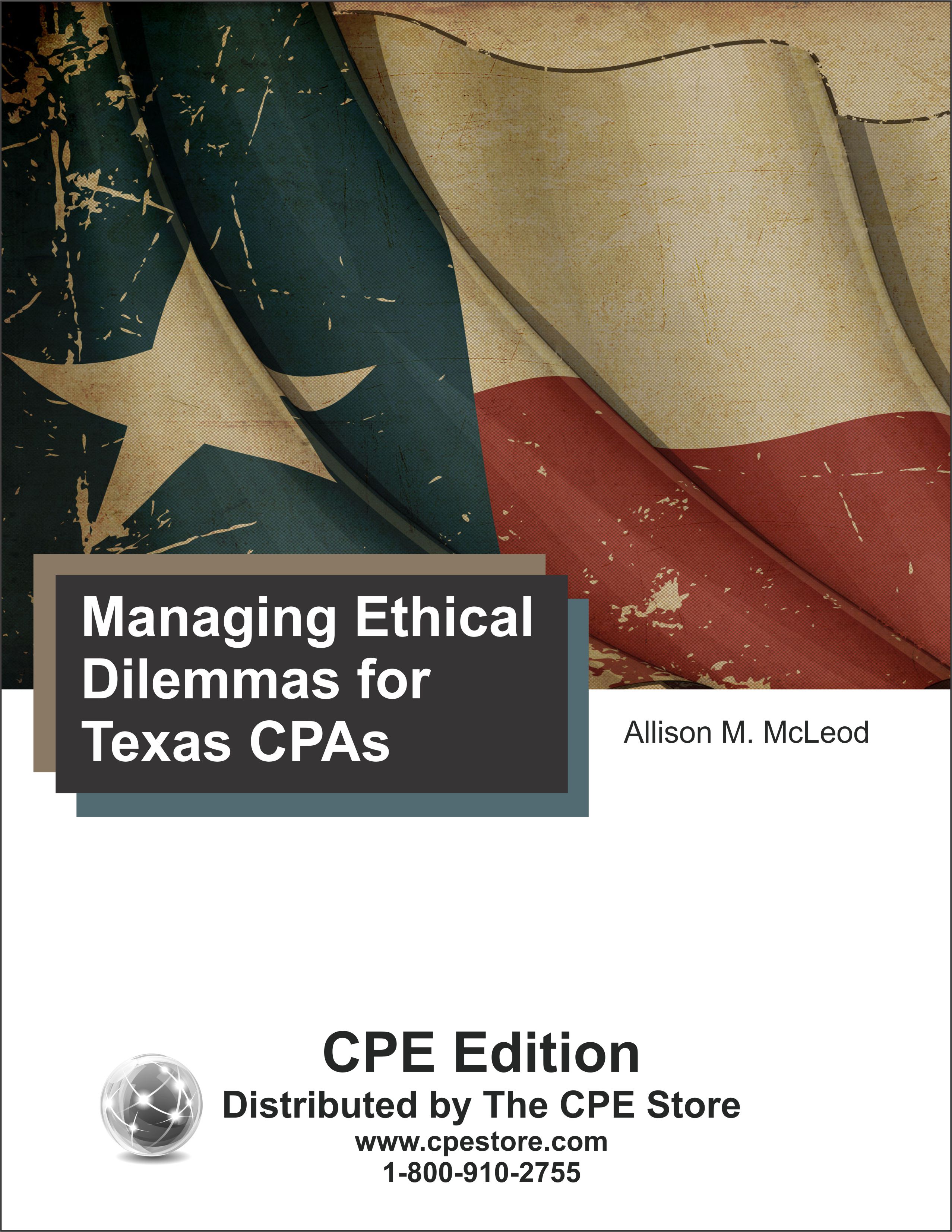
Course number: ETH208401
This course, approved by the Texas State Board of Public Accountancy, is designed to meet the 4 hour ethics CPE requirement for Texas. This course is designed to educate licensees in the ethics of professional accounting as Texas CPAs, to convey the intent of the Texas Rules of Professional Conduct and the AICPA Code of Professional Conduct in the performance of professional accounting services/work, and to assist the Texas CPA in applying ethical judgment in interpreting the rules and determining public interest. It also reviews and discusses the Texas Rules of Professional Conduct and their implications for persons in a variety of practices. Course level: Basic. Prerequisites: None. Course includes integrated text and study guide, final exam, and grading service.NASBA field of study: Regulatory Ethics Course credit: 4 hours
Printed Version$49
PDF$49
Colleague Test(s)$35
Contents
Materiality in a Review of Financial Statements (SSARS 25)
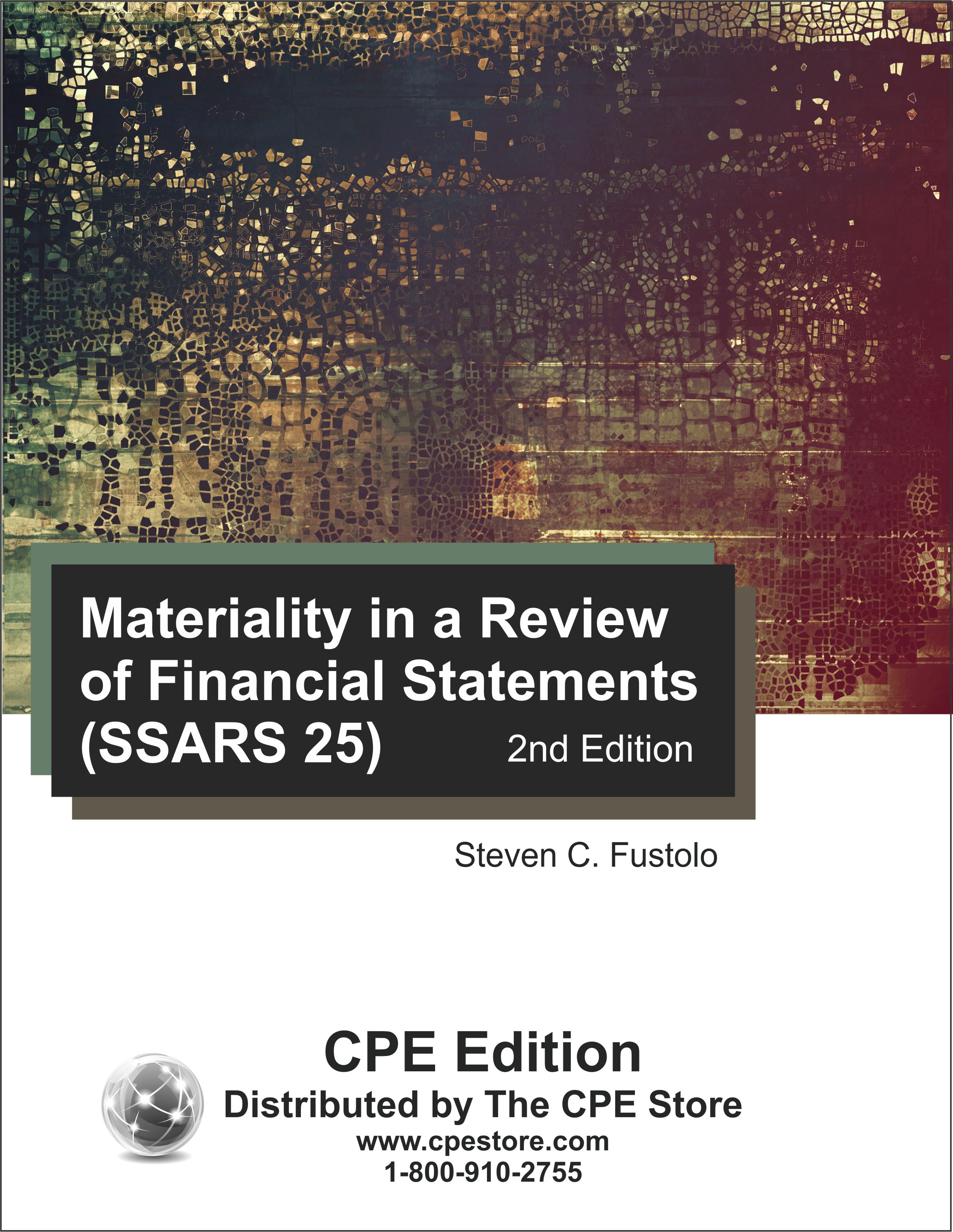
Course number: AA771302
The purpose of this course is to inform the reader of the various changes made to the compilation and review codification by the issuance of SSARS No. 25, Materiality in a Review of Financial Statements and Adverse Conclusions, include changes made to AR-C 60—General Principles, AR-C 70—Preparation of Financial Statements, AR-C 80—Compilation Engagements, and AR-C 90—Review of Financial Statements. Topics include expanding use of the disclaimer report in a preparation engagement, changes involving the reporting on the contractual basis of accounting, new requirements to define materiality in a review engagement, expanded inquiries and management representations in a review engagement, the new modified conclusion (qualified and adverse conclusion) reporting changes, guidance on going concern in a review engagement, and more. Includes updates based on SSARS 26. Course level: Basic. Prerequisites: None. Course includes integrated text and study guide, final exam, and grading service.NASBA field of study: Auditing Course credit: 4 hours
Printed Version$39
PDF$39
Colleague Test(s)$15
Contents
MBA Guidebook
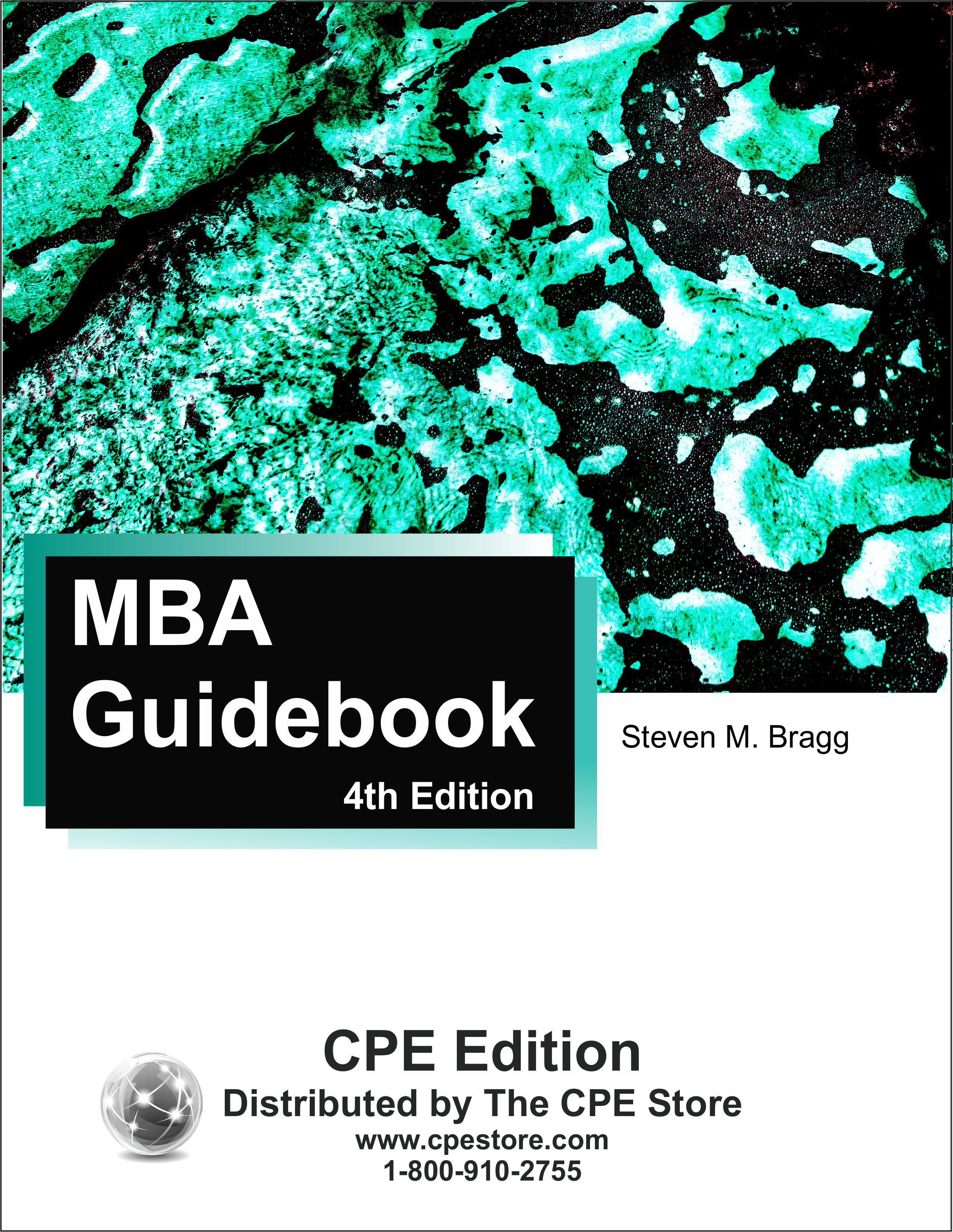
Course number: B468204
This course describes the essentials of the core topics covered in a top-tier MBA program. The intent is to give the user a broad understanding of the key concepts needed to run a business—in one comprehensive course. Topics covered include sales and marketing, operations management, product development, risk management, business valuation, capital structure analysis, and the interpretation of financial statements. Course level: Basic. Prerequisites: None. Course includes integrated text and study guide, final exam, and grading service.NASBA field of study: Management Services Course credit: 23 hours
Printed Version$139
PDF$139
Colleague Test(s)$70
Contents
Negotiation

Course number: MM473803
The Negotiation course provides an overview of the negotiation process. It introduces the basic negotiation concepts, including the best alternative to a negotiated agreement, the reservation price, and the zone of possible agreement. The course also notes the differences between distributive and integrative negotiations. It addresses the characteristics of a negotiator, how to prepare for a negotiation, and the types of tactics that can be used in a negotiation. Attention is also paid to dealing with failing negotiations, negotiations with employees and suppliers, and how to measure the effectiveness of negotiations. Course level: Basic. Prerequisites: None. Course includes integrated text and study guide, final exam, and grading service.NASBA field of study: Business Management & Organization. Course credit: 5 hours
Printed Version$39
PDF$39
Colleague Test(s)$20
Contents
Nonprofit Accounting
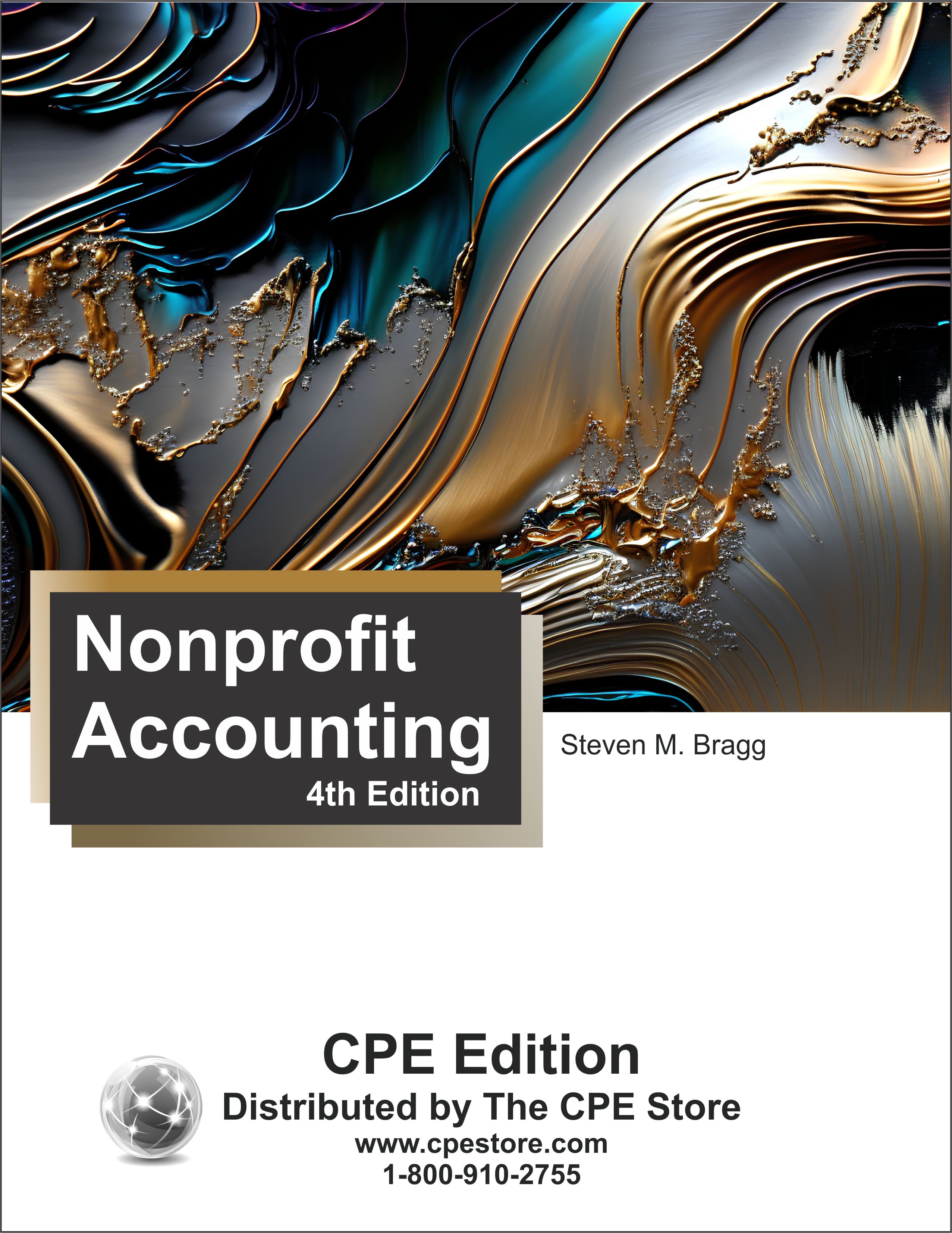
Course number: AA475104
This course provides guidance in how to create and operate a nonprofit accounting system, close the books, and produce financial statements – all while operating in accordance with the unique nonprofit accounting standards. Coverage of accounting standards includes revenue recognition, joint costs, split-interest agreements, and mergers and acquisitions. The course also describes detailed systems of control, budgeting, and ratio analysis to maintain a proper level of control over funds. Course level: Basic. Prerequisites: None. Course includes integrated text and study guide, final exam and grading service.NASBA field of study: Accounting Course credit: 16 hours
Printed Version$119
PDF$119
Colleague Test(s)$50
Contents
Ohio Professional Standards and Responsibilities
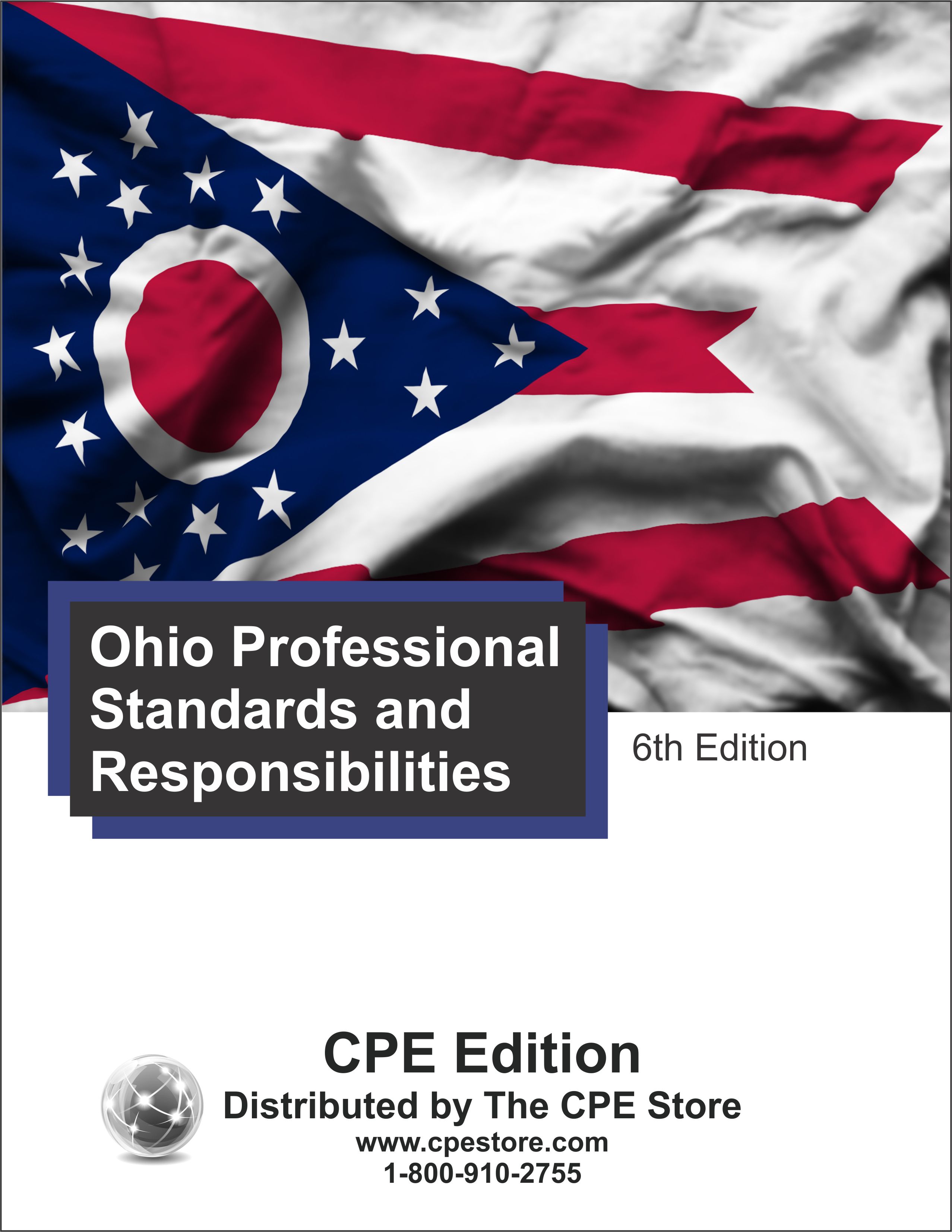
Course number: ETH150806
This course has been approved by the Ohio Board and contains an overview of ethical concepts, surveys relating to employee misconduct, recent accounting fraud cases, an outline of large corporate accounting scandals, pertinent sections from the Sarbanes-Oxley Act of 2002, Chapter 4701—Accountancy Board Law, Chapter 4701-11—Ohio State Board of Accountancy Ethical Standards, and the AICPA Code of Professional Conduct. Some of the topics discussed in this course are: the retention and maintenance of work papers, the requirements for maintaining an active registration when using the title of designation, the rules regarding commissions and referral fees, confidential information, contingent fees, acts discreditable, along with the public expectations of the responsibilities of CPAs, and the enforcement of rules on ethics. Course level: Basic. Prerequisites: None. Course includes integrated text and study guide, final exam, and grading service.NASBA field of study: Regulatory Ethics Course credit: 3 hours
Printed Version$39
PDF$39
Colleague Test(s)$25
Contents
Oil and Gas Accounting

Course number: AA486502
Oil and gas operations have some of the most unique accounting issues found in any industry. Oil and Gas Accounting delves into acquisition, exploration, development, and production activities, covering many industry-specific accounting issues. Topics covered include the successful efforts method, full cost method, reserve reporting, the unit of production method, severance taxes, take-or-pay arrangements, transfers of mineral interests, and joint interest accounting, as well as industry-specific controls that should be installed. In short, this is the essential oil and gas desk reference for the accountant. Course level: Basic. Prerequisites: None. Course includes integrated text and study guide, final exam and grading service.NASBA field of study: Accounting Course credit: 9 hours
PDF$69
Colleague Test(s)$30
Contents
Optimal Accounting for Cash
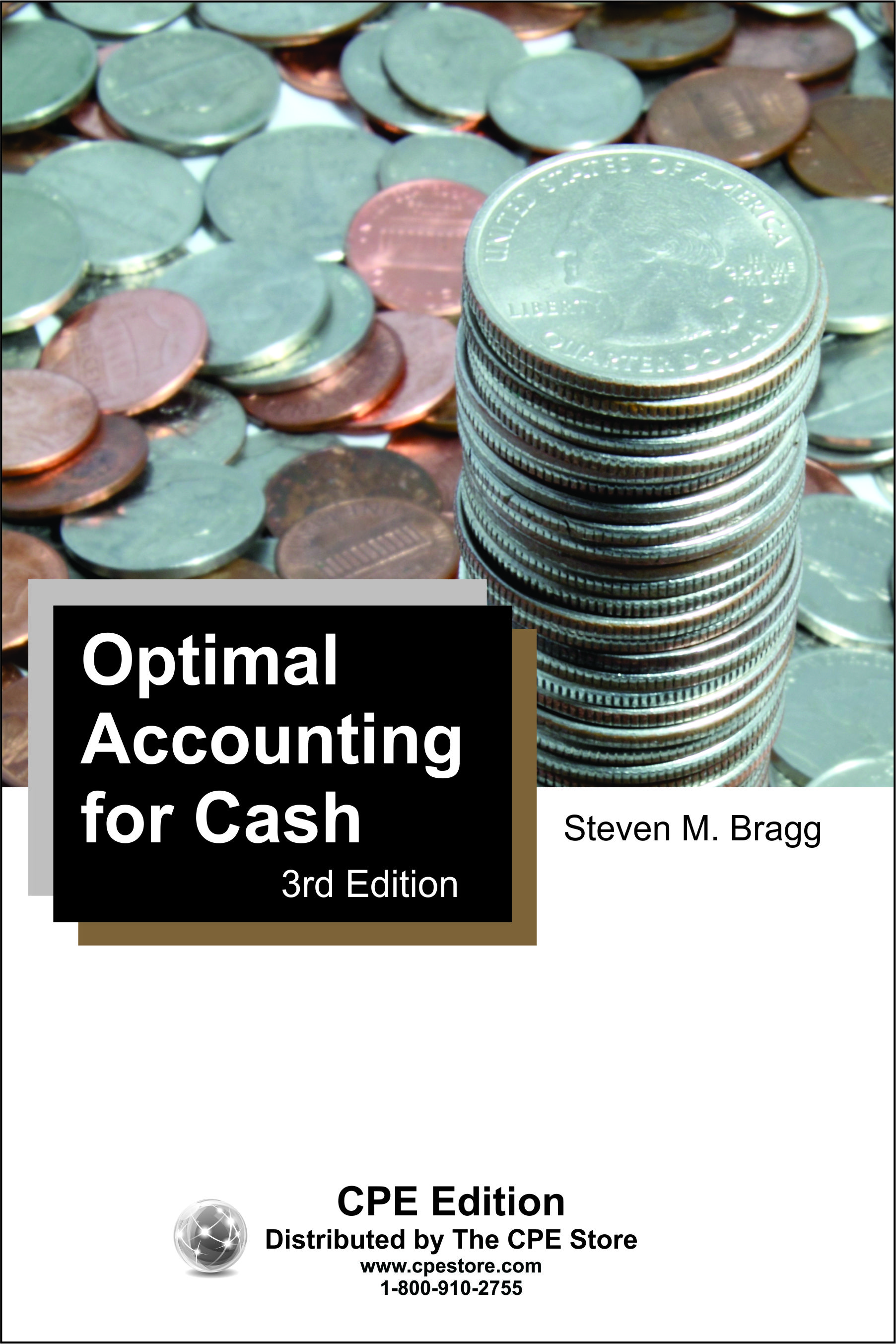
Course number: AA401103
The processing of checks and cash is one of the most inefficient processes in a business, since it is blanketed by the controls needed to minimize theft. Optimal Accounting for Cash shows how to sidestep these inefficient processes by taking a different approach to the handling of checks and cash. The course also covers the most essential controls needed to minimize the theft of cash, and notes how these changes impact the annual audit, closing the books, and instances of fraud. Course level: Basic. Prerequisites: None. Course includes integrated text and study guide, final exam and grading service.NASBA field of study: Accounting Course credit: 1 hour
Printed Version$19
PDF$19
Colleague Test(s)$12
Contents
Optimal Accounting for Payables
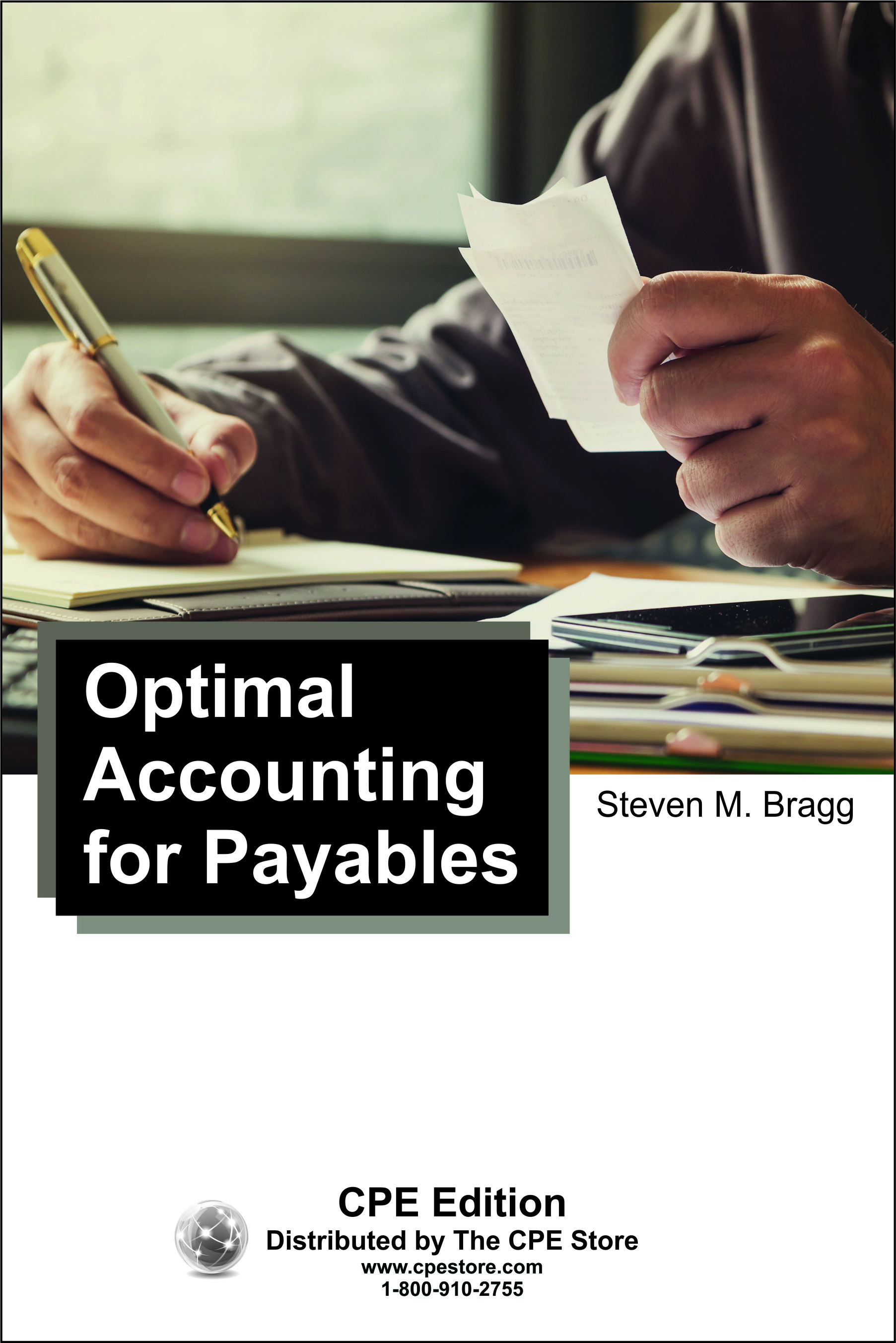
Course number: AA402201
The recordation and payment of accounts payable is a deeply inefficient process. Optimal Accounting for Payables shows how to enhance the basic process, as well as how to sidestep portions of it entirely. The result is a much more efficient and effective payables function. The course also notes the impact of these changes on closing the books, fraud, and the annual audit. Course level: Basic. Prerequisites: None. Course includes integrated text and study guide, final exam and grading service.NASBA field of study: Accounting Course credit: 1 hour
Printed Version$19
PDF$19
Colleague Test(s)$12
Contents
Partnership Accounting
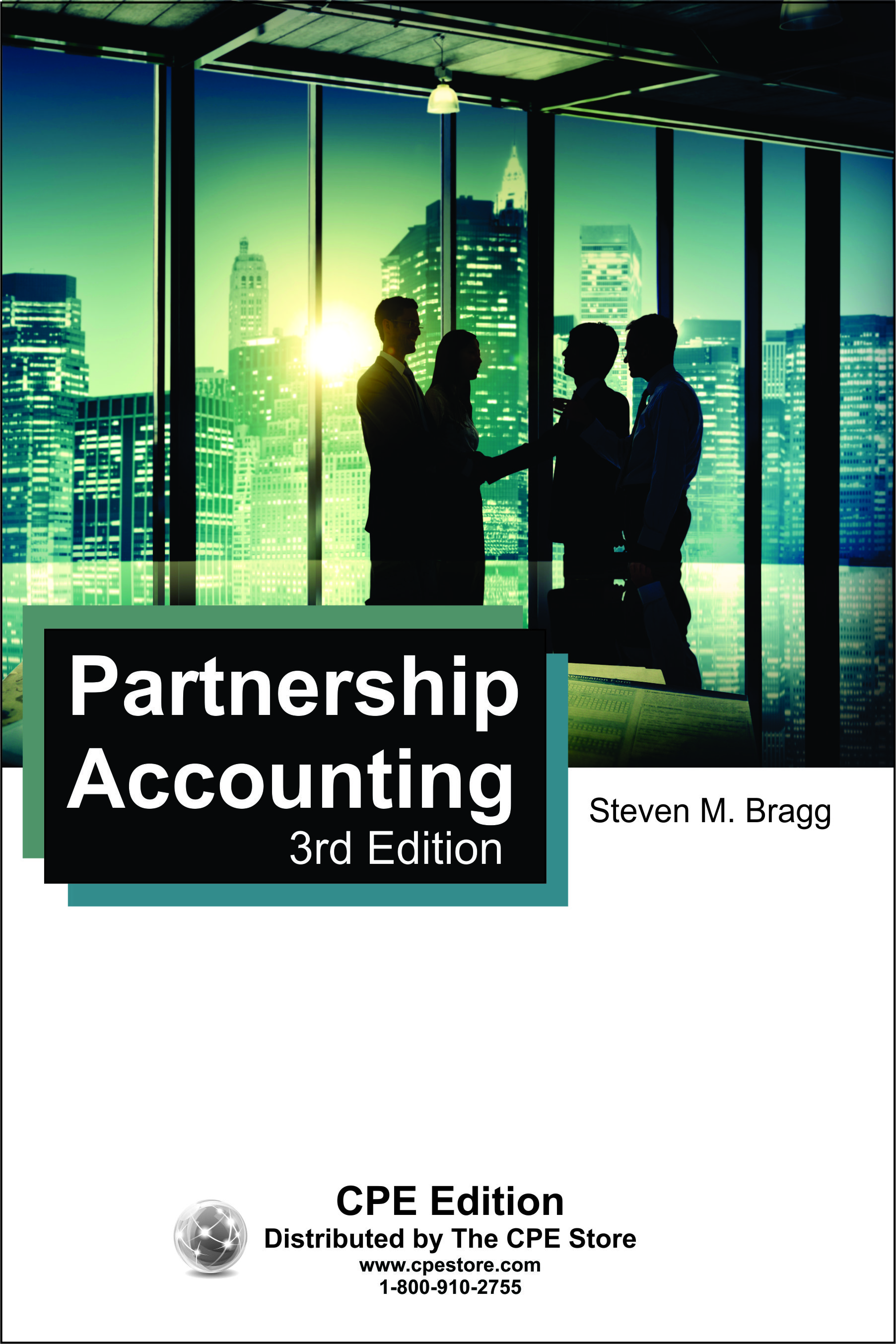
Course number: AA468403
The Partnership Accounting course focuses on the accounting for all types of transactions that are unique to a partnership. The discussion includes the contribution of funds to a partnership, capital accounts, the allocation of profits and losses to partners, the admission of a new partner into a partnership, and the liquidation of a partnership. Course level: Basic. Prerequisites: None. Course includes integrated text and study guide, final exam, and grading service.NASBA field of study: Accounting Course credit: 1 hour
Printed Version$19
PDF$19
Colleague Test(s)$12
Contents
Partnership Tax Guide
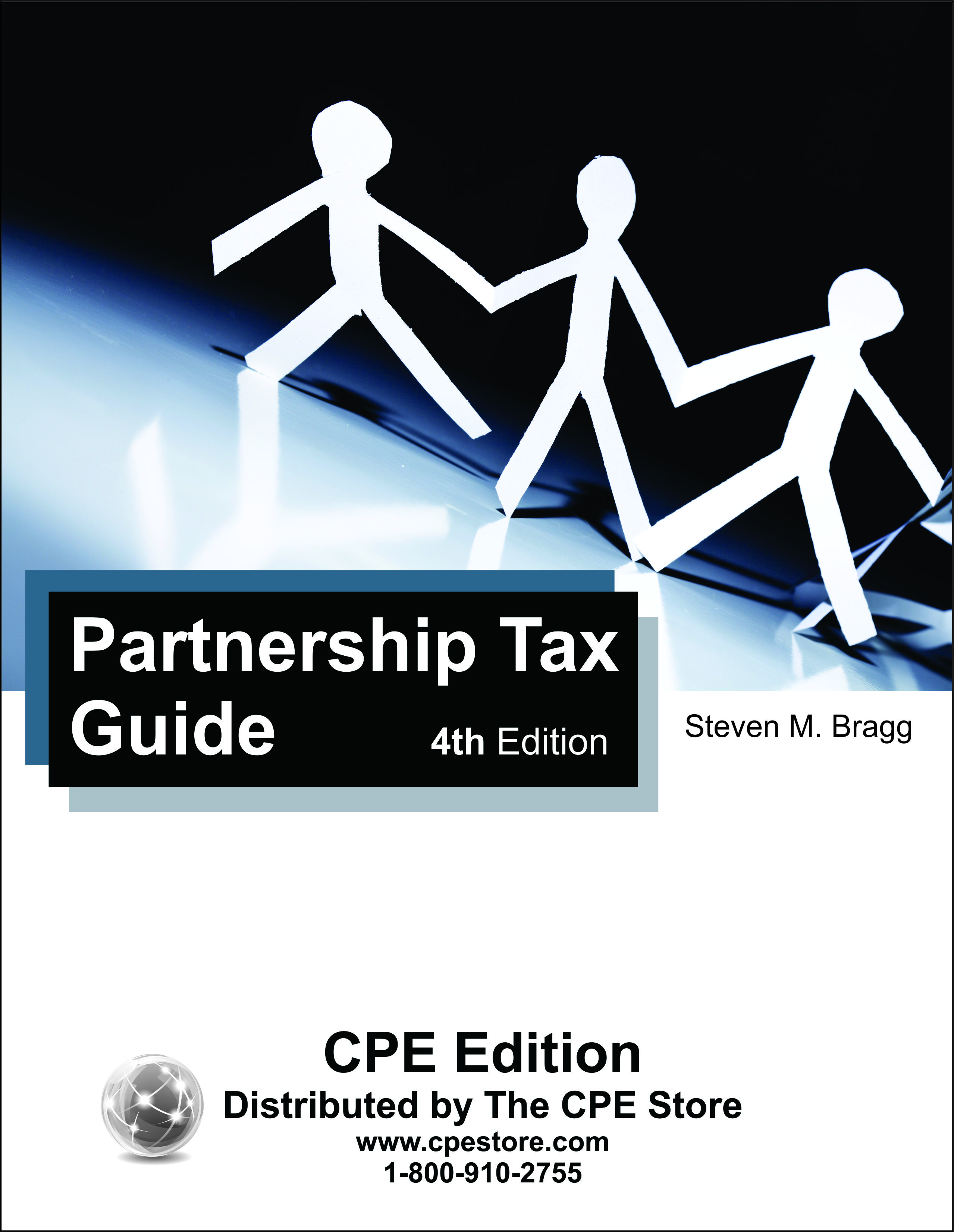
Course number: TAX440504
The tax law related to partnerships is complex. The Partnership Tax Guide course provides clarity by clearly stating the essential rules relating to the creation, operation, and liquidation of partnerships. Key topics covered include basic partnership concepts, basis, the sale of partnership interests, partnership terminations, partnership income and expenses, disguised sales, and anti-abuse rules. In short, this course presents a compact discussion of the essential issues related to partnership taxation. Course level: Basic. Prerequisites: None. Course includes integrated text and study guide, final exam and grading service.NASBA field of study: Taxes Course credit: 2 hours
Printed Version$19
PDF$19
Colleague Test(s)$12
Contents
Payables Management
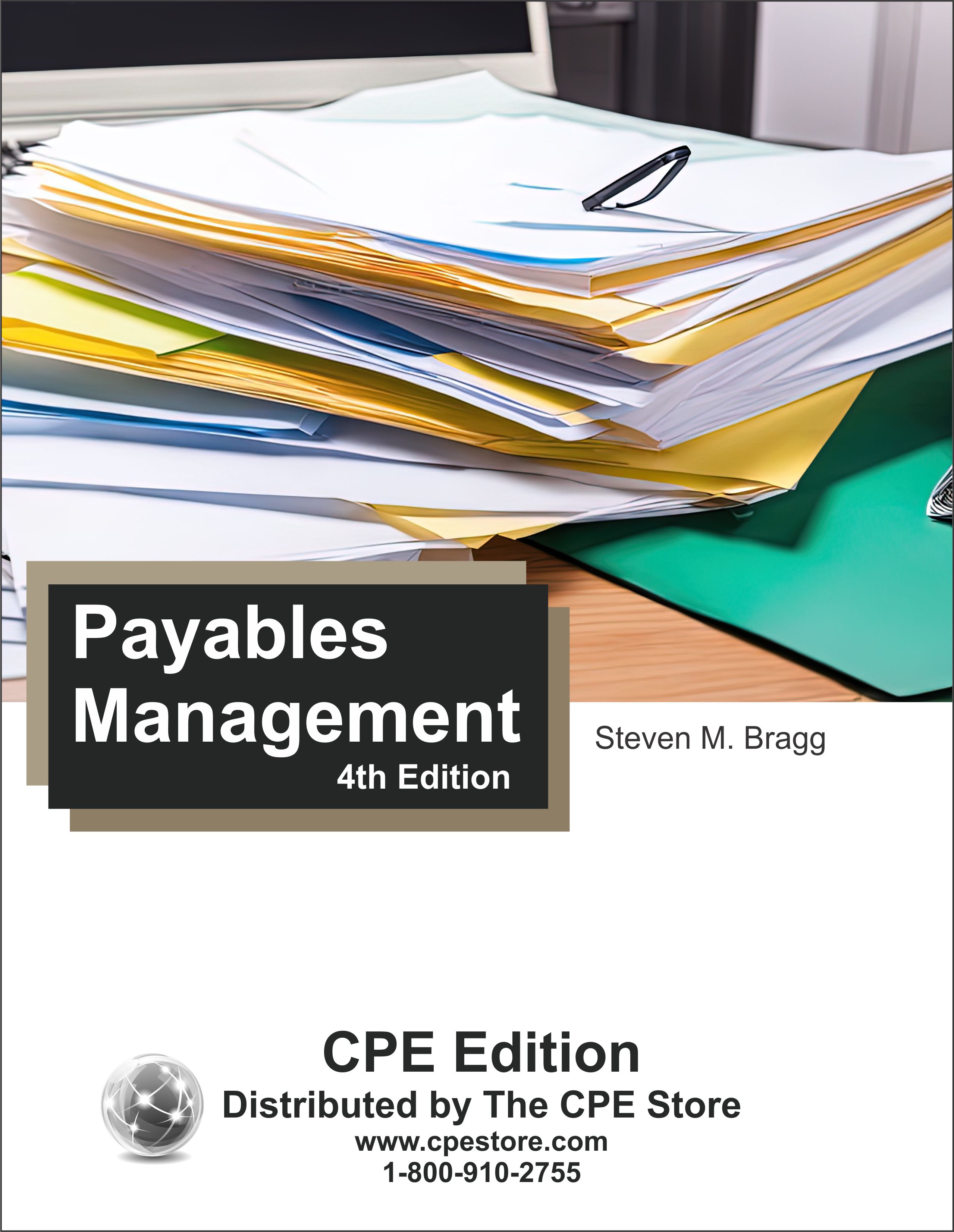
Course number: AA449804
Proper management of the accounts payable function calls for a comprehensive knowledge of transaction flows, controls, and the latest technology. The Payables Management course delves into these topics in detail, addressing the accounting for each type of payables transaction, control systems, use taxes, payables fraud, record keeping, unclaimed property reporting, measurement systems, and more. Course level: Basic. Prerequisites: None. Course includes integrated text and study guide, final exam and grading service.NASBA field of study: Accounting Course credit: 10 hours
Printed Version$79
PDF$79
Colleague Test(s)$30
Contents
Payroll Management
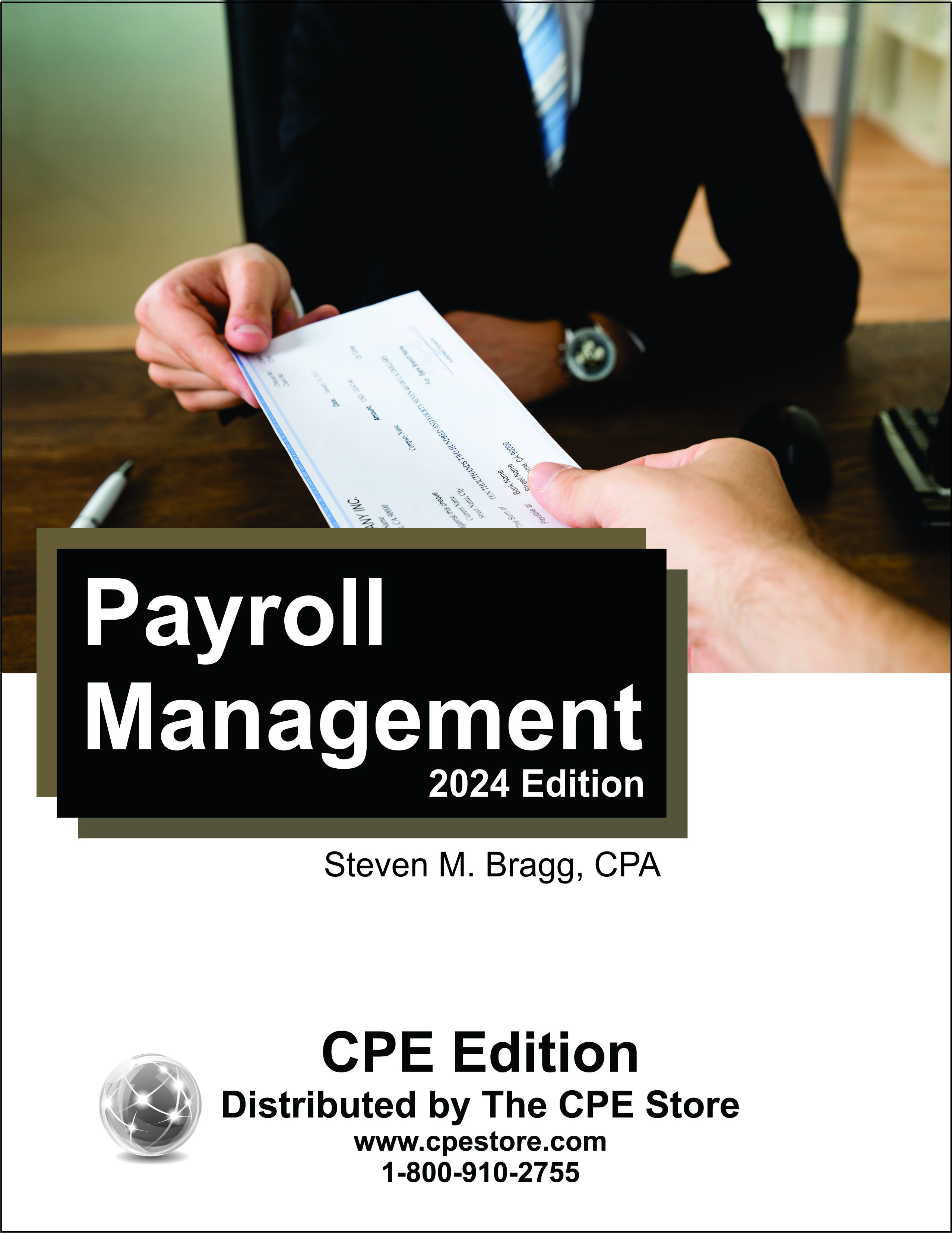
Course number: B469524
This course makes the job of the payroll department easier by clearly defining the most efficient and effective means for running the department, while also addressing the following topics: whether an individual is an employee, how to track employee time worked, how to calculate all types of employee earnings, how to process tax withholdings and other deductions, how and when to remit taxes to the government, how to select the best method for paying employees, how to complete and submit government forms, how to set up a payroll recordkeeping system, which procedures and controls to install for payroll processes, and how to measure the performance of the department. An appendix contains the due dates for key filings and remittances to the federal government. Course level: Basic. Prerequisites: None. Course includes integrated text and study guide, final exam and grading service.NASBA field of study: Management Services Course credit: 15 hours
Printed Version$109
PDF$109
Colleague Test(s)$45
Contents
Performance Appraisal Best Practices
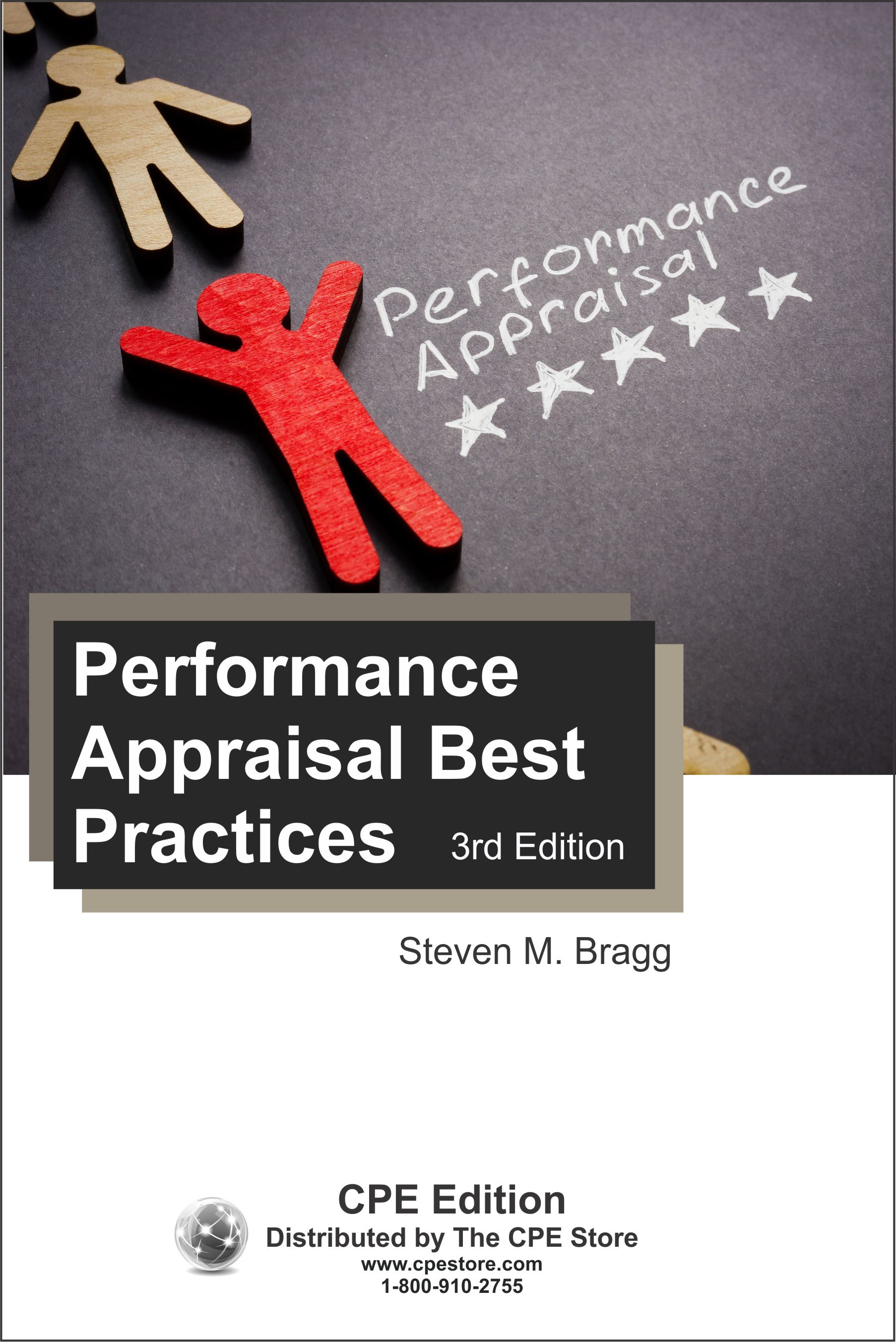
Course number: MM483603
Managers need to provide fair and accurate performance appraisals to their employees, but the result is sometimes muddled and stressful. The Performance Appraisals course provides guidance by describing every step in the appraisal process, including preparatory work by the manager and employee, the performance discussion, and how to handle the more difficult topics. The course also addresses the performance appraisal review form and the development plan, as well as the different types of performance review models and the situations in which they are most applicable. In addition, it describes how to mitigate some negative aspects of the process. In short, the course can be used to create a more effective and less stressful performance evaluation process. Course level: Basic. Prerequisites: None. Course includes integrated text and study guide, final exam, and grading service.NASBA field of study: Personnel/Human Resources Course credit: 2 hours
Printed Version$19
PDF$19
Colleague Test(s)$12
Contents
Personal Financial Planning for Accountants

Course number: FP769707
This course teaches you all the major areas in personal financial planning, including planning and managing personal finances, making purchase decisions, insuring resources, investing financial resources, and controlling your financial future. Covers time value calculations, banking, budgeting, career planning, insurance, home buying, consumer credit cards and money management, investment planning, retirement planning, and estate planning. Course level: Basic. Prerequisites: None. Course includes integrated text and study guide, final exam, and grading service.NASBA field of study: Specialized Knowledge Course credit: 25 hours
Printed Version$149
PDF$149
Colleague Test(s)$75
Contents
Practice Before the IRS
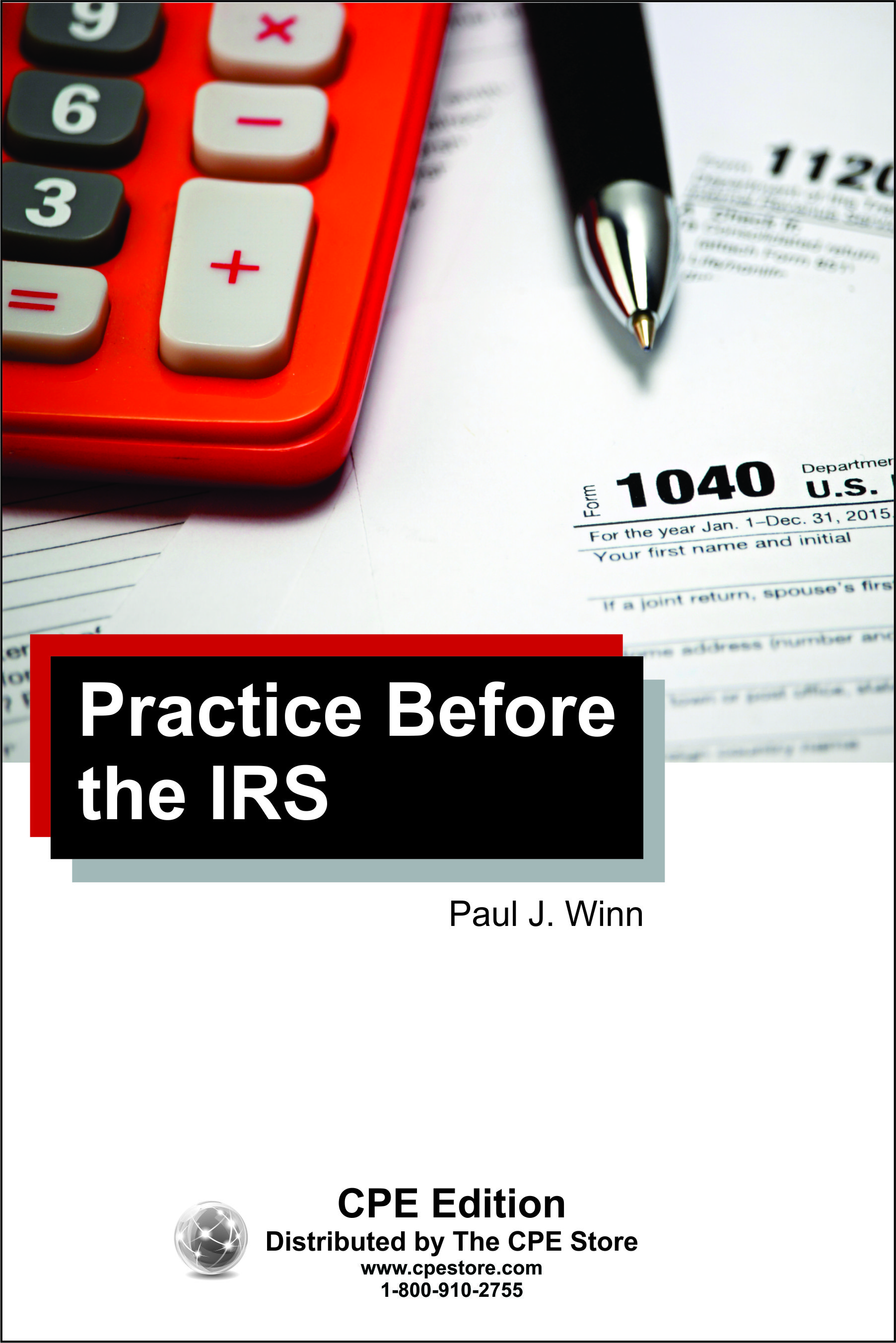
Course number: ETH920501
This course is designed to meet the 2 hour CPE requirement for Enrolled Agents and Other Tax Return Preparers (OTRPs). Despite predictably frequent calls for simplifying the U.S. Tax Code and the 2017 passage of the Tax Cuts and Jobs Act (TCJA), it becomes increasingly complex over time. At its more than 3% annual growth in size since 1945, it was projected to exceed 96,000 pages by the year 2020. Because of the enormity of the Code and its complexity, taxpayers often seek the assistance of knowledgeable professionals to represent them with respect to tax and other matters before the IRS. However, the ability to represent a client before the IRS is, with certain exceptions, extremely limited. This course will look at the important subject of client representation before the IRS. Practice Before the IRS addresses the nature of practice before the IRS, identifies those permitted to engage in such practice and examines the power of attorney under which a taxpayer authorizes another to engage in it on his or her behalf. Course level: Basic. Prerequisites: None. Course includes integrated text and study guide, final exam, and grading service.NASBA field of study: Regulatory Ethics Course credit: 2 hours
Printed Version$29
PDF$29
Colleague Test(s)$20
Contents
Preparing 2024 Business Tax Returns
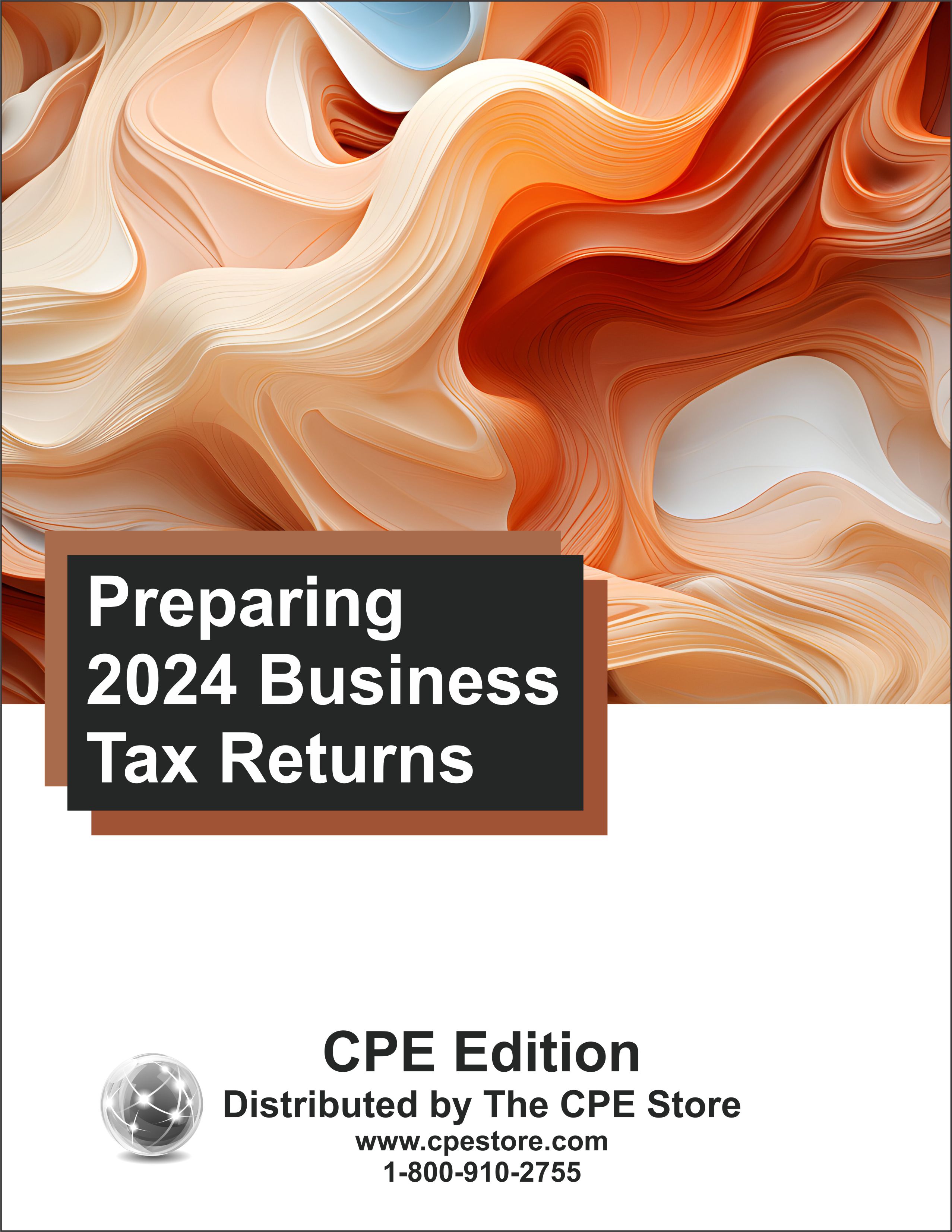
Course number: TAX2520
Preparing 2024 Business Tax Returns covers everything you need to know about corporations, partnerships, LLCs, exempt organizations, accounting periods and methods, business expenses, capitalized costs, amortization, depletion and depreciation. Also covers bad debts, calculating gain and loss, installment sales, passive activities, Section 179 deductions, and more. This course is available for 20, 25, 30 or 40 hours of continuing education credit. We have divided the information in the text into 8 separate modules. If you order our 20-hour course, you will complete any 4 modules to receive your CPE credit; if you order our 25-hour course, you will complete any 5 modules; if you order our 30-hour course, you will complete any 6 modules; and if you order our 40-hour course, you will complete all 8 modules. Regardless of which course you order, you will receive the text, a complete copy of the test booklet (including all 8 modules), and our grading service. Prerequisites: None. Course Level: Basic. Course includes integrated text and study guide, final exam, and grading service.NASBA field of study: Taxes Course credit: 20 hours
Printed Version$129
PDF$129
Colleague Test(s)$60
Contents
Preparing 2024 Business Tax Returns
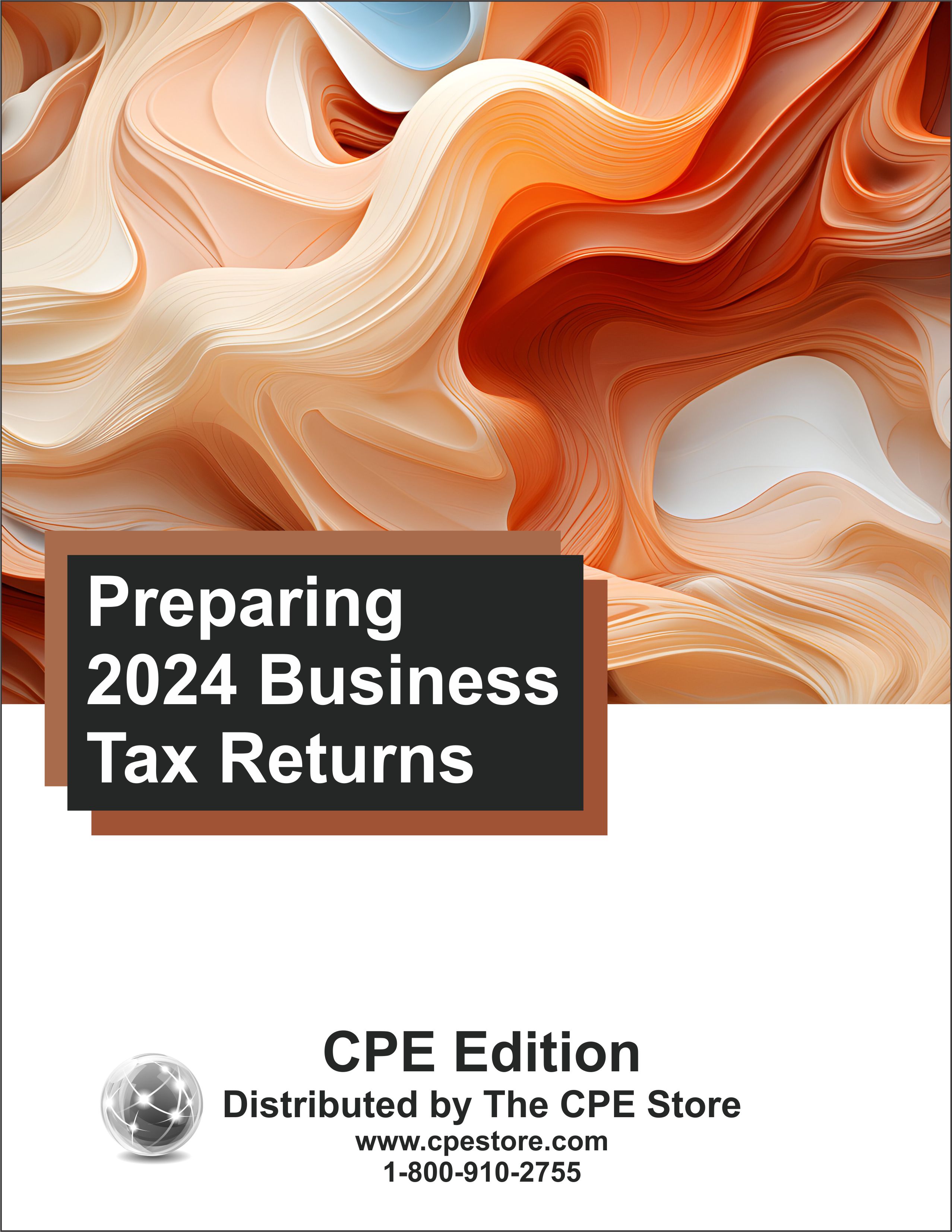
Course number: TAX2525
Preparing 2024 Business Tax Returns covers everything you need to know about corporations, partnerships, LLCs, exempt organizations, accounting periods and methods, business expenses, capitalized costs, amortization, depletion and depreciation. Also covers bad debts, calculating gain and loss, installment sales, passive activities, Section 179 deductions, and more. This course is available for 20, 25, 30 or 40 hours of continuing education credit. We have divided the information in the text into 8 separate modules. If you order our 20-hour course, you will complete any 4 modules to receive your CPE credit; if you order our 25-hour course, you will complete any 5 modules; if you order our 30-hour course, you will complete any 6 modules; and if you order our 40-hour course, you will complete all 8 modules. Regardless of which course you order, you will receive the text, a complete copy of the test booklet (including all 8 modules), and our grading service. Prerequisites: None. Course Level: Basic. Course includes integrated text and study guide, final exam, and grading service.NASBA field of study: Taxes Course credit: 25 hours
Printed Version$149
PDF$149
Colleague Test(s)$75
Contents
Preparing 2024 Business Tax Returns
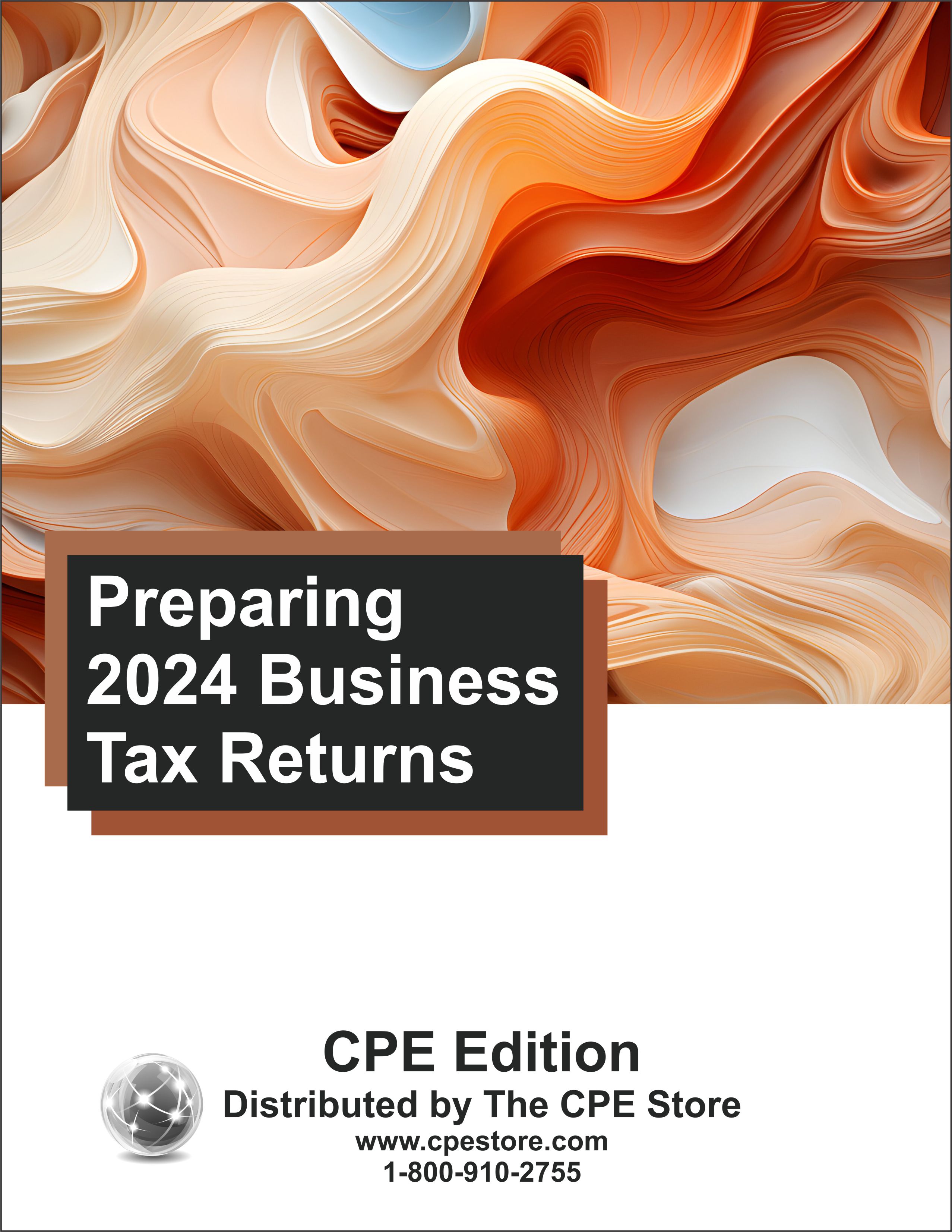
Course number: TAX2530
Preparing 2024 Business Tax Returns covers everything you need to know about corporations, partnerships, LLCs, exempt organizations, accounting periods and methods, business expenses, capitalized costs, amortization, depletion and depreciation. Also covers bad debts, calculating gain and loss, installment sales, passive activities, Section 179 deductions, and more. This course is available for 20, 25, 30 or 40 hours of continuing education credit. We have divided the information in the text into 8 separate modules. If you order our 20-hour course, you will complete any 4 modules to receive your CPE credit; if you order our 25-hour course, you will complete any 5 modules; if you order our 30-hour course, you will complete any 6 modules; and if you order our 40-hour course, you will complete all 8 modules. Regardless of which course you order, you will receive the text, a complete copy of the test booklet (including all 8 modules), and our grading service. Prerequisites: None. Course Level: Basic. Course includes integrated text and study guide, final exam, and grading service.NASBA field of study: Taxes Course credit: 30 hours
Printed Version$189
PDF$189
Colleague Test(s)$90
Contents
Preparing 2024 Business Tax Returns
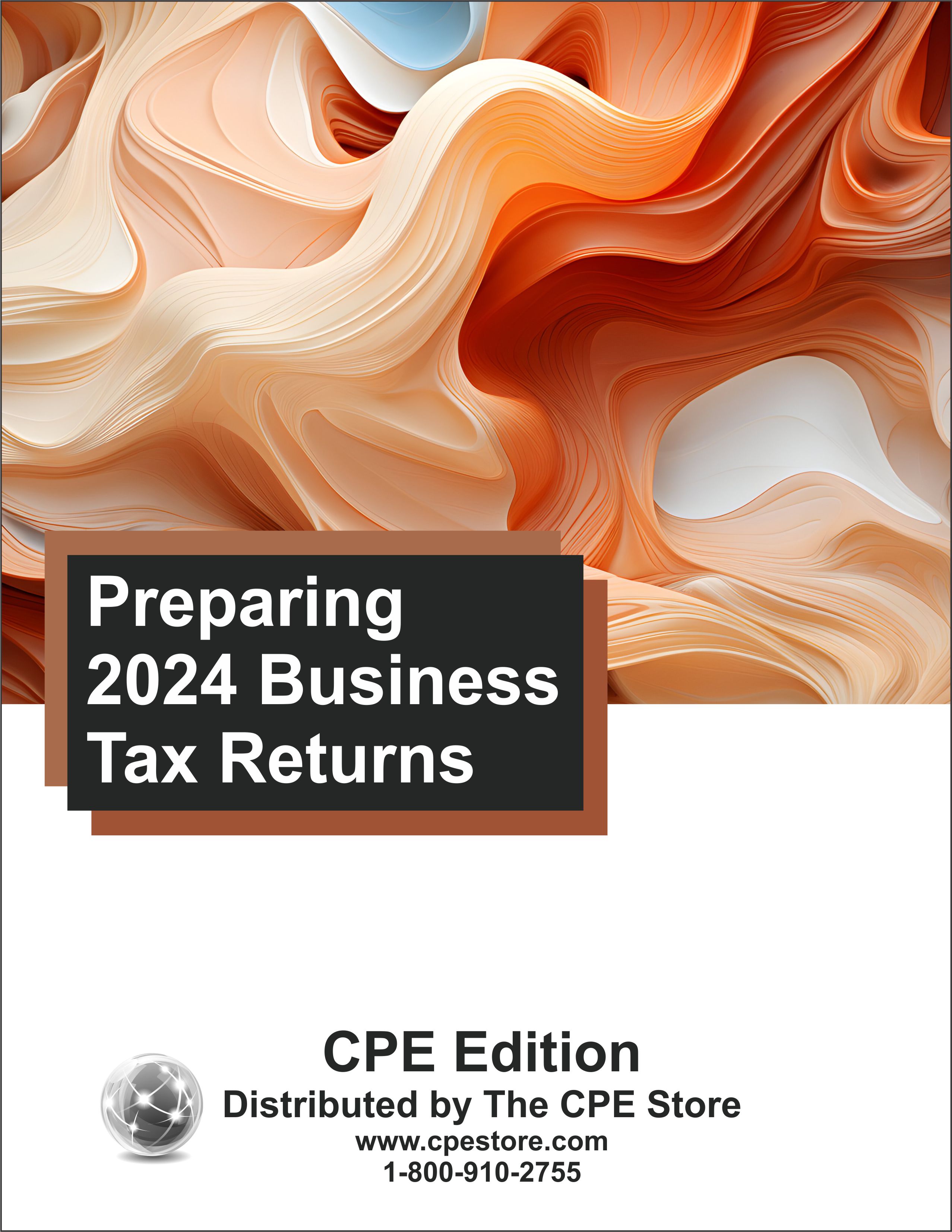
Course number: TAX2540
Preparing 2024 Business Tax Returns covers everything you need to know about corporations, partnerships, LLCs, exempt organizations, accounting periods and methods, business expenses, capitalized costs, amortization, depletion and depreciation. Also covers bad debts, calculating gain and loss, installment sales, passive activities, Section 179 deductions, and more. This course is available for 20, 25, 30 or 40 hours of continuing education credit. We have divided the information in the text into 8 separate modules. If you order our 20-hour course, you will complete any 4 modules to receive your CPE credit; if you order our 25-hour course, you will complete any 5 modules; if you order our 30-hour course, you will complete any 6 modules; and if you order our 40-hour course, you will complete all 8 modules. Regardless of which course you order, you will receive the text, a complete copy of the test booklet (including all 8 modules), and our grading service. Prerequisites: None. Course Level: Basic. Course includes integrated text and study guide, final exam, and grading service.NASBA field of study: Taxes Course credit: 40 hours
Printed Version$229
PDF$229
Colleague Test(s)$120
Contents
Preparing 2024 Individual Income Tax Returns
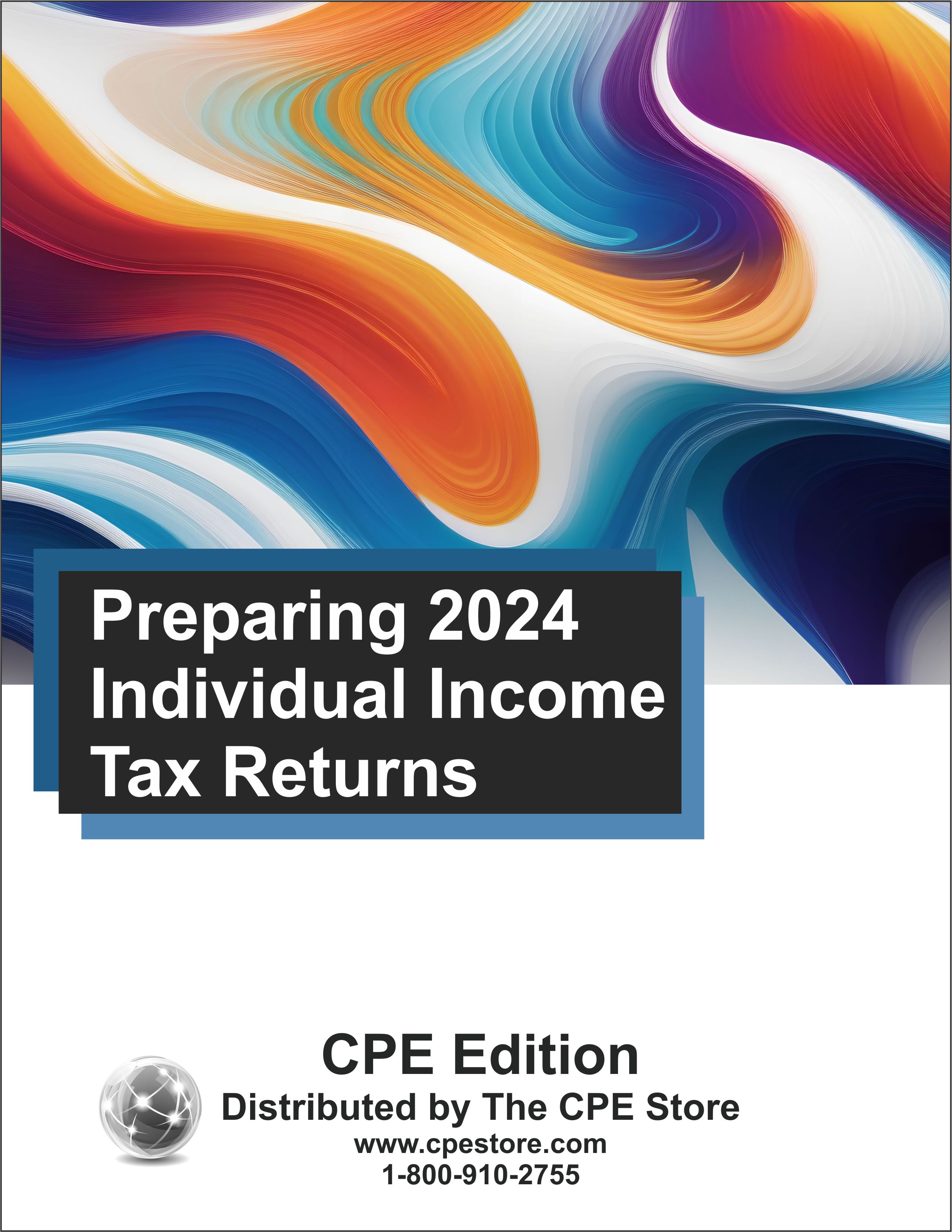
Course number: TAX24920
This course includes information on dependents; withholding; estimated tax; income - including wages, tips, interest, dividends, rentals, retirement plans, pensions, annuities, and Social Security; basis of property; property sales, including personal residences; itemized deductions; car expenses; credits - including child care, education, and earned income; the qualified business income deduction; and much more. This course is available for 20, 25, 30 or 40 hours of continuing education credit. We have divided the information in the text into 8 separate modules. If you order our 20-hour course, you will complete any 4 modules to receive your CPE credit; if you order our 25-hour course, you will complete any 5 modules; if you order our 30-hour course, you will complete any 6 modules; and if you order our 40-hour course, you will complete all 8 modules. Regardless of which course you order, you will receive the text, a complete copy of the test booklet (including all 8 modules), and our grading service. Prerequisites: None. Course Level: Basic. Course includes integrated text and study guide, final exam, and grading service.NASBA field of study: Taxes Course credit: 20 hours
Printed Version$129
PDF$129
Colleague Test(s)$60
Contents
Preparing 2024 Individual Income Tax Returns
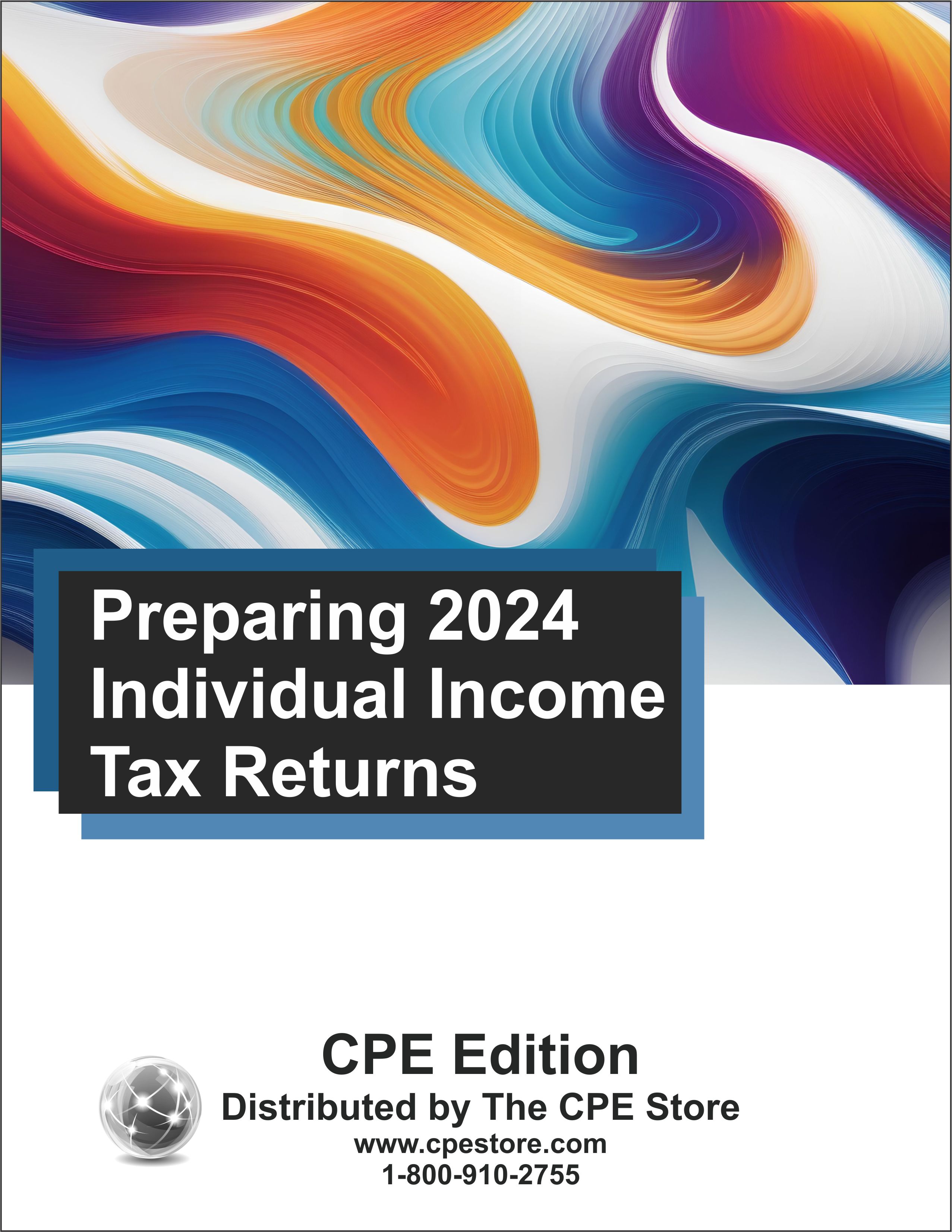
Course number: TAX24925
This course includes information on dependents; withholding; estimated tax; income - including wages, tips, interest, dividends, rentals, retirement plans, pensions, annuities, and Social Security; basis of property; property sales, including personal residences; itemized deductions; car expenses; credits - including child care, education, and earned income; the qualified business income deduction; and much more. This course is available for 20, 25, 30 or 40 hours of continuing education credit. We have divided the information in the text into 8 separate modules. If you order our 20-hour course, you will complete any 4 modules to receive your CPE credit; if you order our 25-hour course, you will complete any 5 modules; if you order our 30-hour course, you will complete any 6 modules; and if you order our 40-hour course, you will complete all 8 modules. Regardless of which course you order, you will receive the text, a complete copy of the test booklet (including all 8 modules), and our grading service. Prerequisites: None. Course Level: Basic. Course includes integrated text and study guide, final exam, and grading service.NASBA field of study: Taxes Course credit: 25 hours
Printed Version$149
PDF$149
Colleague Test(s)$75
Contents
Preparing 2024 Individual Income Tax Returns
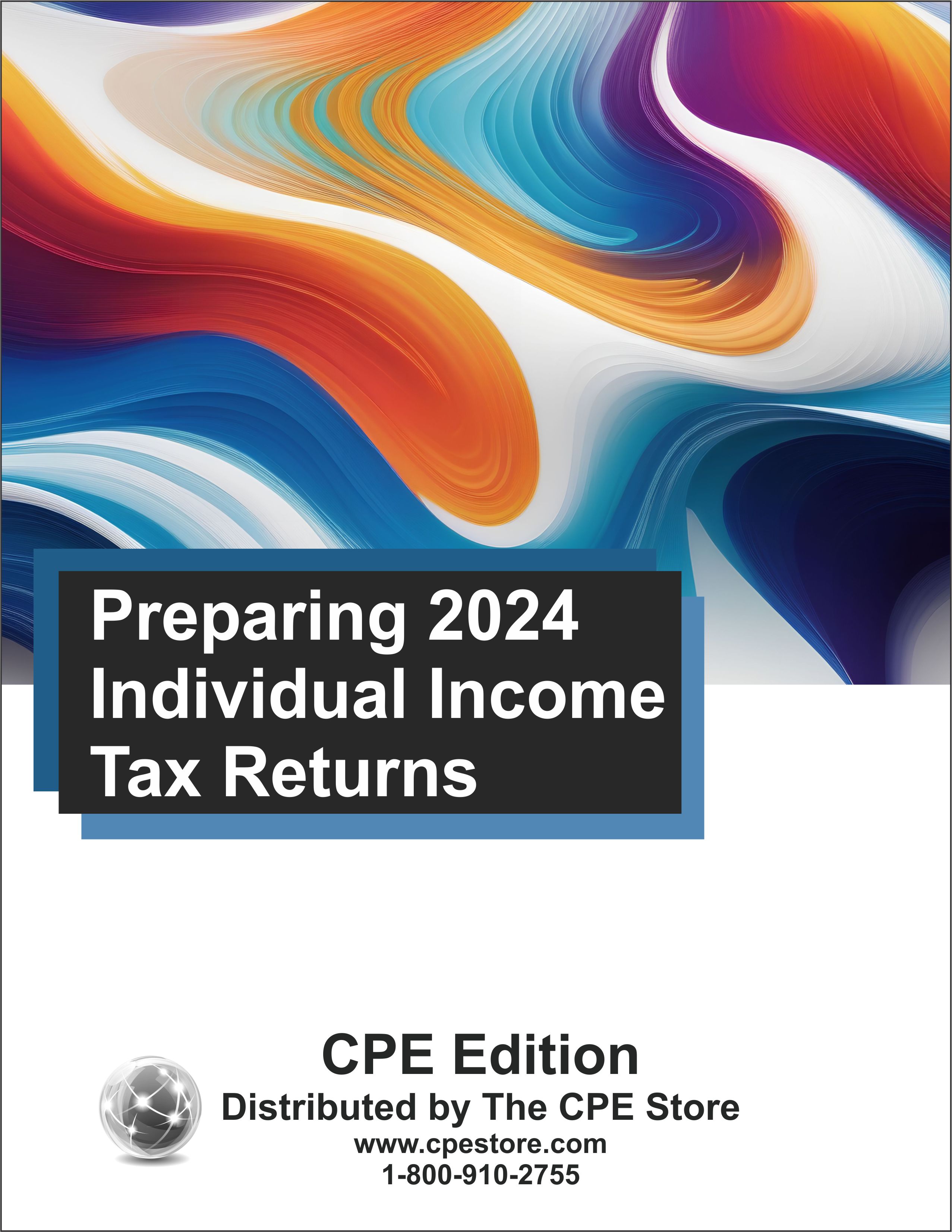
Course number: TAX24930
This course includes information on dependents; withholding; estimated tax; income - including wages, tips, interest, dividends, rentals, retirement plans, pensions, annuities, and Social Security; basis of property; property sales, including personal residences; itemized deductions; car expenses; credits - including child care, education, and earned income; the qualified business income deduction; and much more. This course is available for 20, 25, 30 or 40 hours of continuing education credit. We have divided the information in the text into 8 separate modules. If you order our 20-hour course, you will complete any 4 modules to receive your CPE credit; if you order our 25-hour course, you will complete any 5 modules; if you order our 30-hour course, you will complete any 6 modules; and if you order our 40-hour course, you will complete all 8 modules. Regardless of which course you order, you will receive the text, a complete copy of the test booklet (including all 8 modules), and our grading service. Prerequisites: None. Course Level: Basic. Course includes integrated text and study guide, final exam, and grading service.NASBA field of study: Taxes Course credit: 30 hours
Printed Version$189
PDF$189
Colleague Test(s)$90
Contents
Preparing 2024 Individual Income Tax Returns
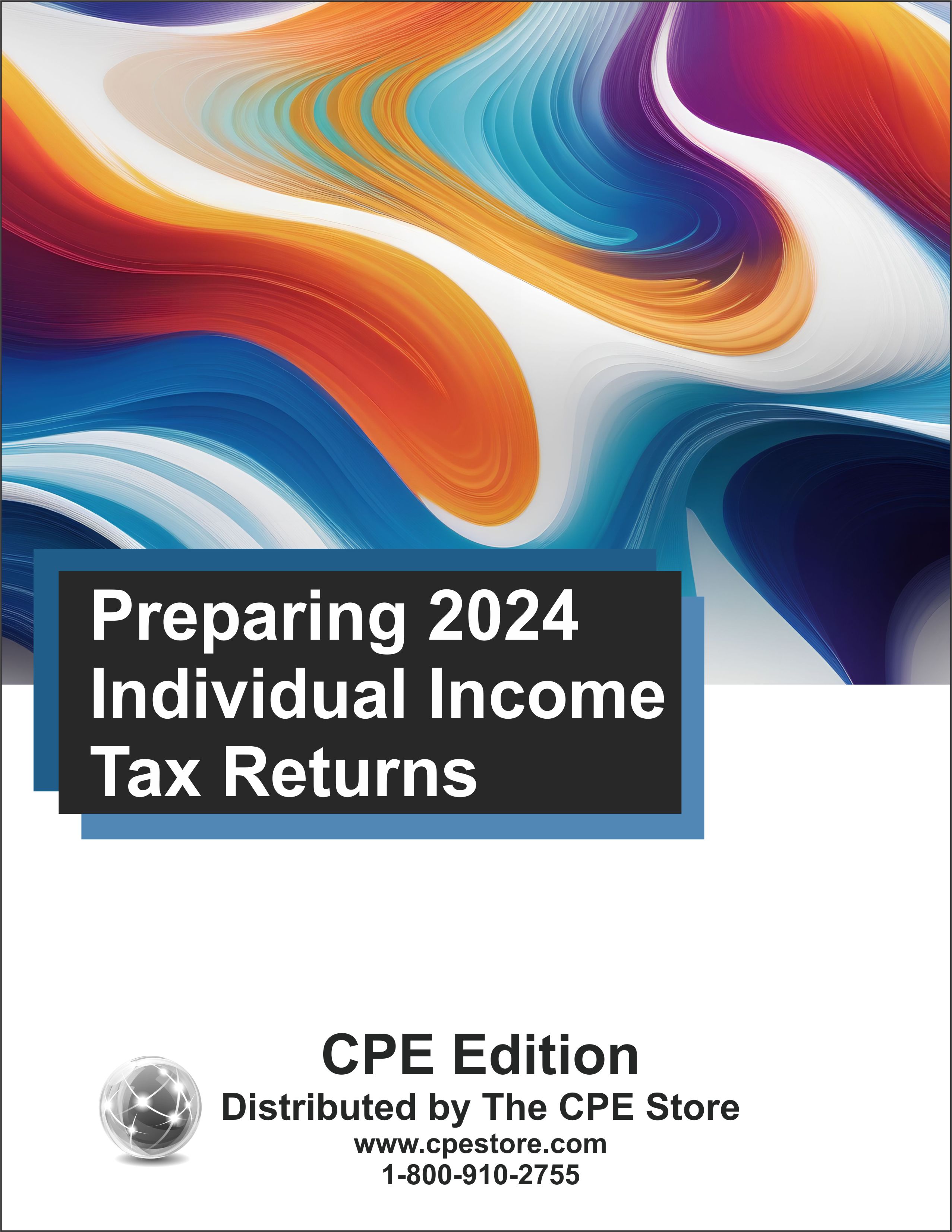
Course number: TAX24940
This course includes information on dependents; withholding; estimated tax; income - including wages, tips, interest, dividends, rentals, retirement plans, pensions, annuities, and Social Security; basis of property; property sales, including personal residences; itemized deductions; car expenses; credits - including child care, education, and earned income; the qualified business income deduction; and much more. This course is available for 20, 25, 30 or 40 hours of continuing education credit. We have divided the information in the text into 8 separate modules. If you order our 20-hour course, you will complete any 4 modules to receive your CPE credit; if you order our 25-hour course, you will complete any 5 modules; if you order our 30-hour course, you will complete any 6 modules; and if you order our 40-hour course, you will complete all 8 modules. Regardless of which course you order, you will receive the text, a complete copy of the test booklet (including all 8 modules), and our grading service. Prerequisites: None. Course Level: Basic. Course includes integrated text and study guide, final exam, and grading service.NASBA field of study: Taxes Course credit: 40 hours
Printed Version$229
PDF$229
Colleague Test(s)$120
Contents
Principles of Wealth Management

Course number: FP973402
Principles of Wealth Management examines the financial planning discipline, including Its need, as evidenced by the U.S. poverty rate, the U.S. savings rate, the lack of financial retirement readiness and the ever-increasing cost of higher education. The course details the principal steps in developing a financial plan, the critical issues in managing and protecting wealth, the products and concepts available to implement wealth management objectives and their tax treatment. Course level: Basic. Prerequisites: None. Course includes integrated text and study guide, final exam, and grading service.NASBA field of study: Specialized Knowledge Course credit: 10 hours
Printed Version$69
PDF$69
Colleague Test(s)$30
Contents
Project Accounting
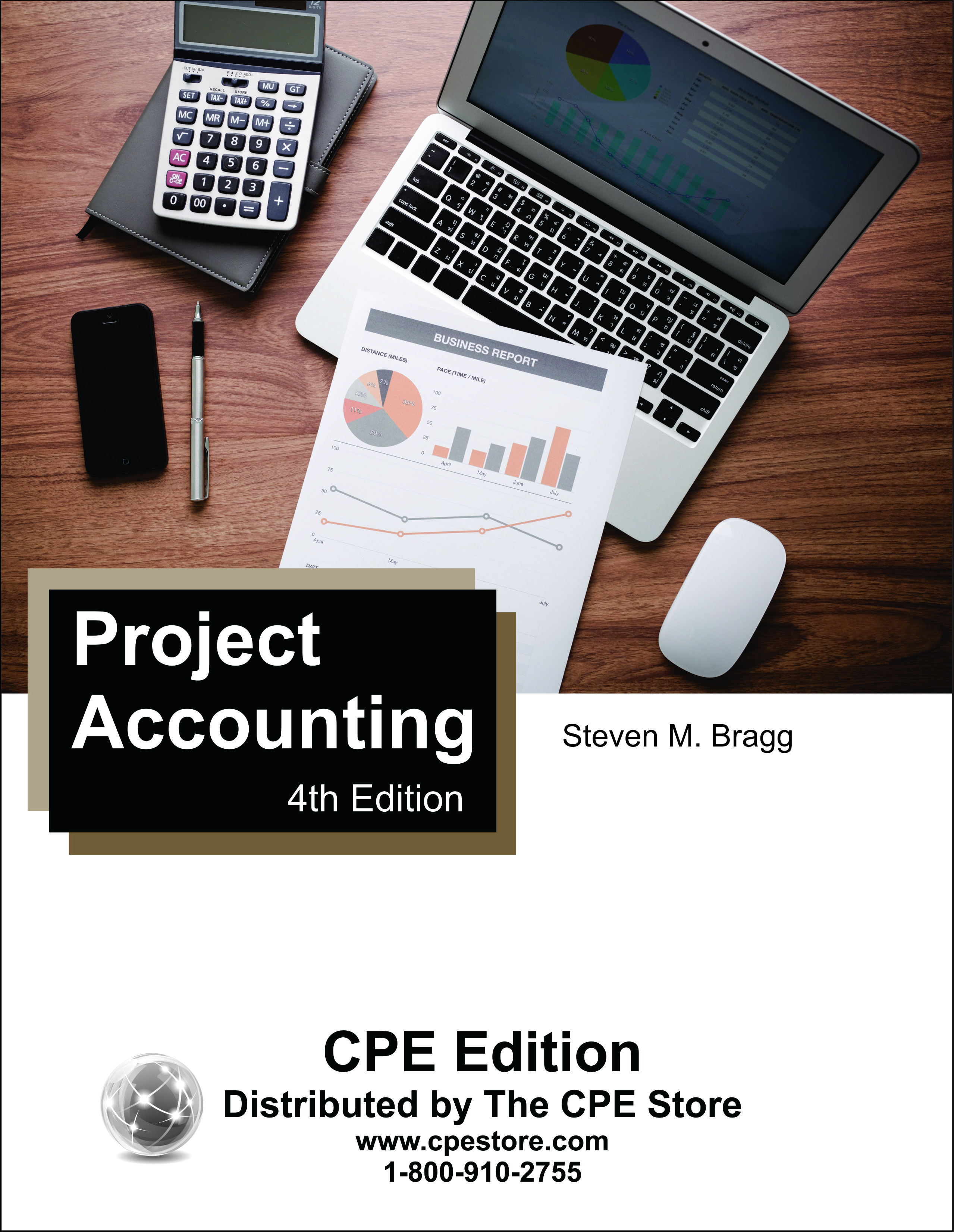
Course number: AA451304
Accounting for a major project presents the accountant with a multitude of difficult accounting issues. The Project Accounting course shows how to deal with these concerns by describing the ideal cost collection system and how to record expenses and revenues within it. The course also addresses the management of change orders, allowances, and contingencies, while noting the impact of GAAP requirements on specific project issues, including interest capitalization and the treatment of research and development costs. The controls and measurements used for projects are also discussed. The broad range of topics covered make this course an essential tool for the project accountant. Course level: Basic. Prerequisites: None. Course includes integrated text and study guide, final exam, and grading service.NASBA field of study: Accounting Course credit: 3 hours
Printed Version$29
PDF$29
Colleague Test(s)$15
Contents
Project Management
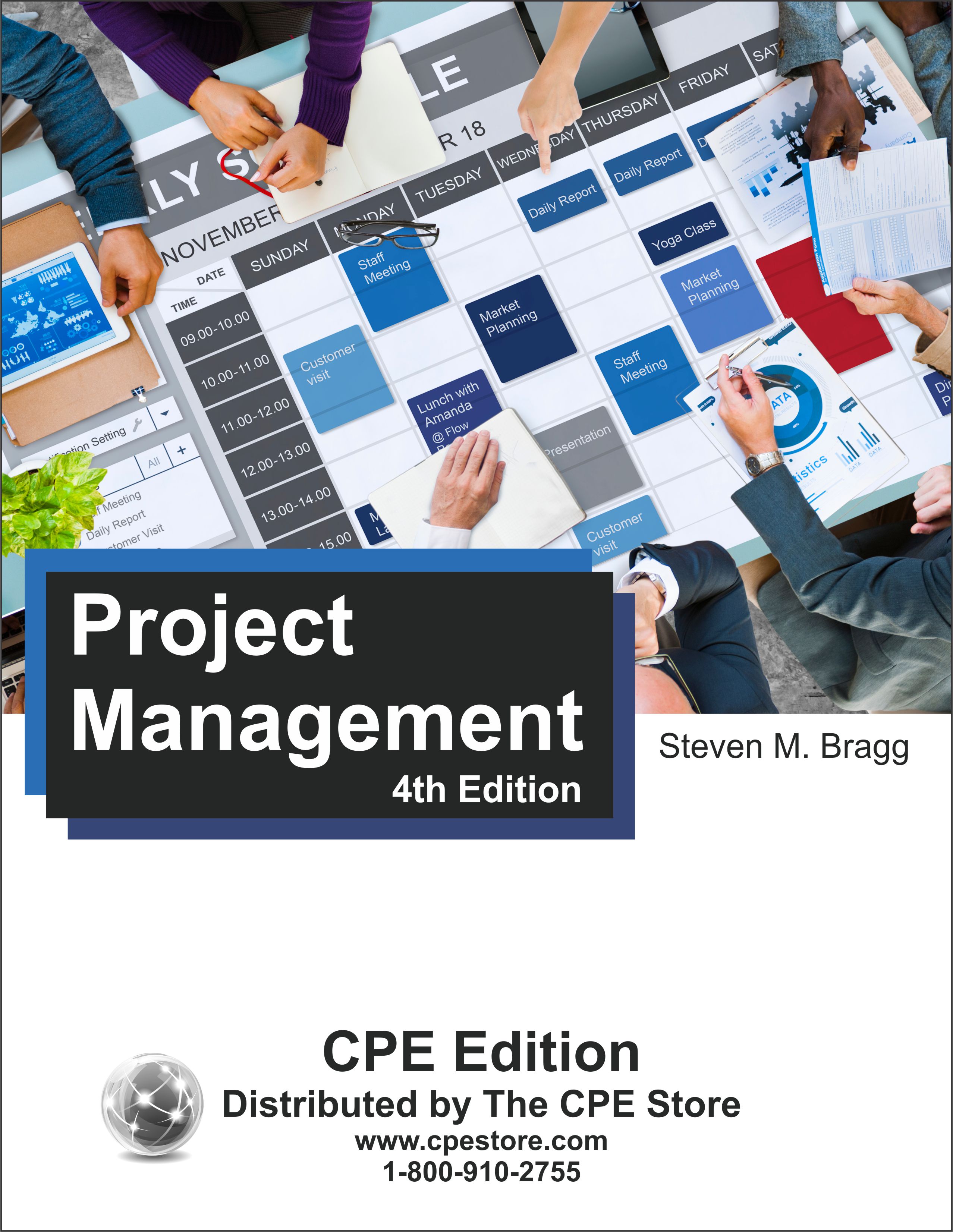
Course number: MM473304
This course discusses all aspects of project management. It explores how projects are initiated, evaluated, and selected. It also addresses all phases of project planning, the use of CPM and PERT to schedule tasks, and how to make trade-offs between the various project constraints. The course tackles many other subjects as well, including change management, project estimating, risk management, reporting, and project management at the enterprise level. The course also delves into the intricacies of team development and management. In total, the course is intended to introduce the topic to a new project manager, as well as to refine the skills of a more experienced one. Course level: Basic. Prerequisites: None. Course includes integrated text and study guide, final exam, and grading service.NASBA field of study: Management Services Course credit: 14 hours
Printed Version$99
PDF$99
Colleague Test(s)$40
Contents
Real Estate Accounting
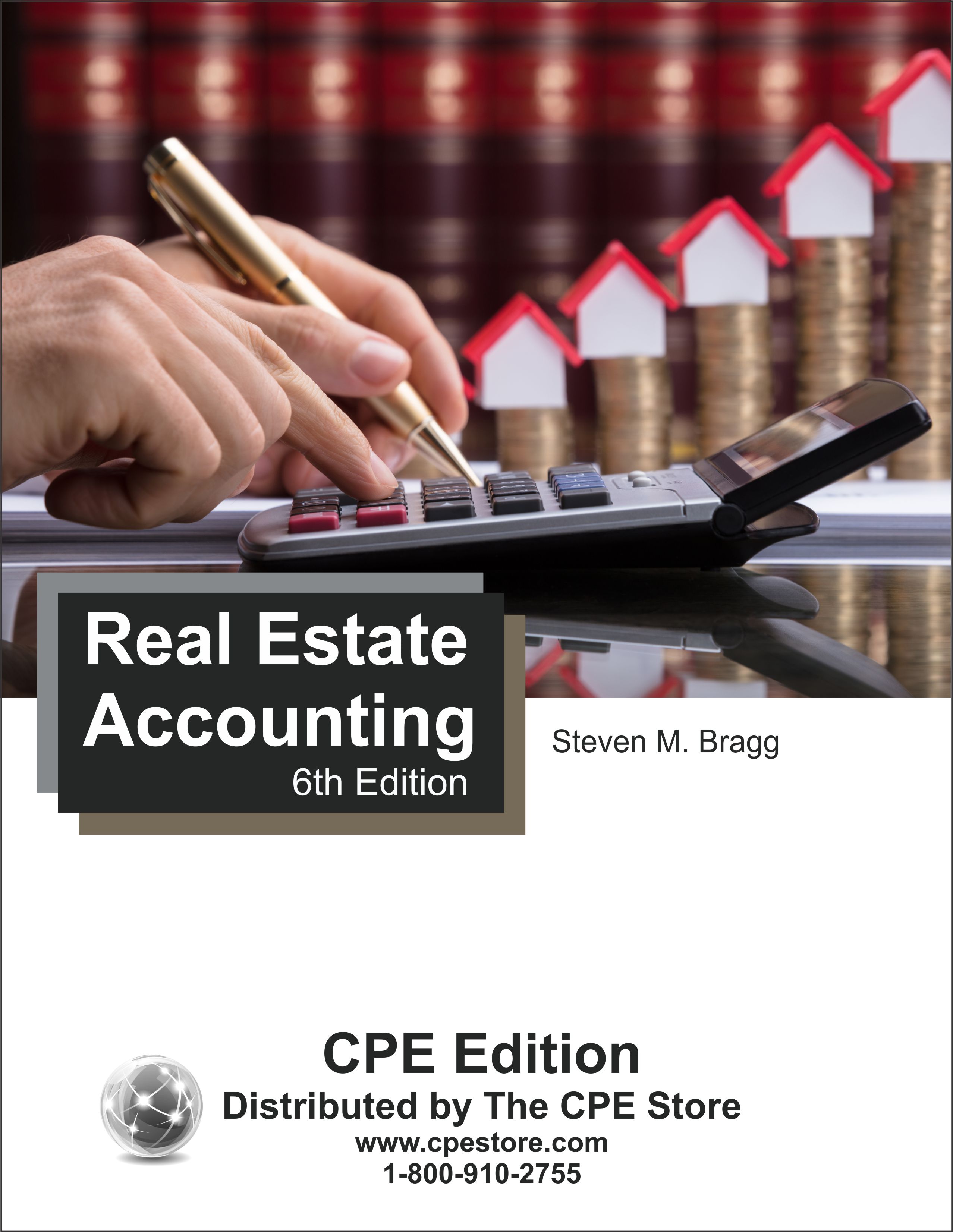
Course number: AA456406
This course describes the accounting to be used for all types of real estate transactions, such as retail land sales, real estate sales, property exchanges, and the sale of time-share intervals. It also reveals the related financial statement presentations and accompanying disclosures. In addition, the course describes the accounting related to the rental of property, and investments in real estate ventures. Course level: Basic. Prerequisites: None. Course includes integrated text and study guide, final exam and grading service.NASBA field of study: Accounting Course credit: 10 hours
Printed Version$79
PDF$79
Colleague Test(s)$30
Contents
Real Estate Financing and Investing

Course number: FP790803
This course covers both financing and investing in real estate. The first section deals with two major aspects of real estate financing: (1) financial instruments and (2) the means of financing. It examines the financial side of the lending process. The second section deals with investing in real estate. Topics include: the advantages and pitfalls of real estate investing, how to value an income-producing property, how to use leverage and increase return, and buying a home. Course Level: Basic. Prerequisites: None. Course includes integrated text and study guide, final exam, and grading service.NASBA field of study: Specialized Knowledge Course credit: 6 hours
Printed Version$59
PDF$59
Colleague Test(s)$20
Contents
Real Estate Investing

Course number: FP471401
Investing in real estate can be an extremely profitable endeavor, but only if you know the pitfalls to avoid. In the Real Estate Investing course, we discuss every aspect of locating, evaluating, purchasing, financing, and operating an investment property. Topics covered include conducting a local market analysis, analyzing leases, valuing a property, and how to conduct due diligence. The course also addresses the tax aspects of real estate investing, including like-kind exchanges, installment sales, and the tax basis of property. Course level: Basic. Prerequisites: None. Course includes integrated text and study guide, final exam, and grading service.NASBA field of study: Specialized Knowledge Course credit: 7 hours
Printed Version$59
PDF$59
Colleague Test(s)$20
Contents
Real Estate Tax Guide
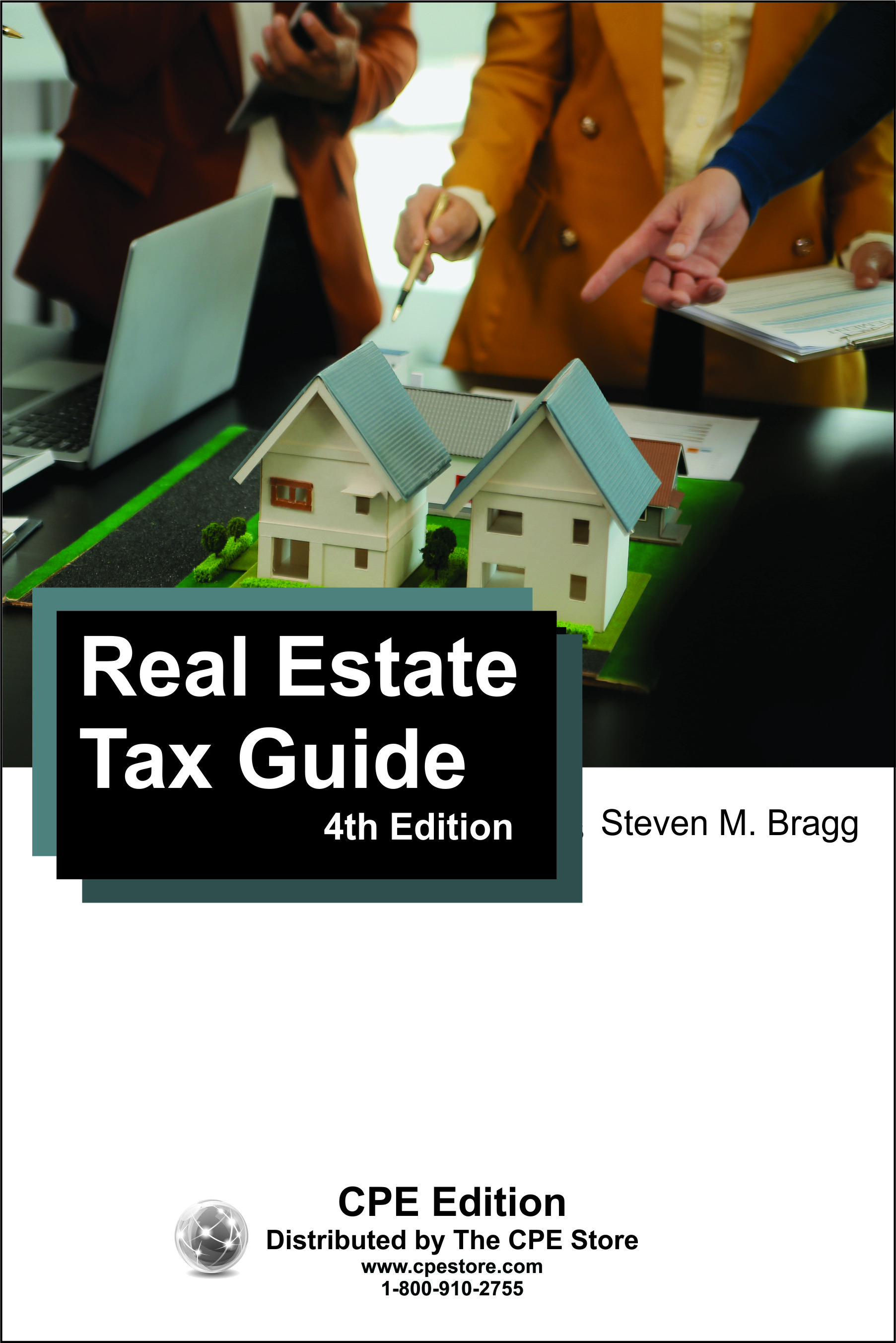
Course number: TAX440104
Tax regulations are a key part of the real estate business. One must understand the impact of taxes on every aspect of property acquisitions, use, and dispositions in order to maximize profits. In the Real Estate Tax Guide, we address the essential elements of the tax code as they pertain to real estate, to give users a grounding in the issues that can impact their operational decisions. Topics covered include basis, development costs, operating expenses, financing issues, landlord and tenant transactions, passive activity losses, foreclosures, property exchanges, installment sales, and much more. Course level: Basic. Prerequisites: None. Course includes integrated text and study guide, final exam and grading service.NASBA field of study: Taxes Course credit: 3 hours
Printed Version$29
PDF$29
Colleague Test(s)$15
Contents
Records Management
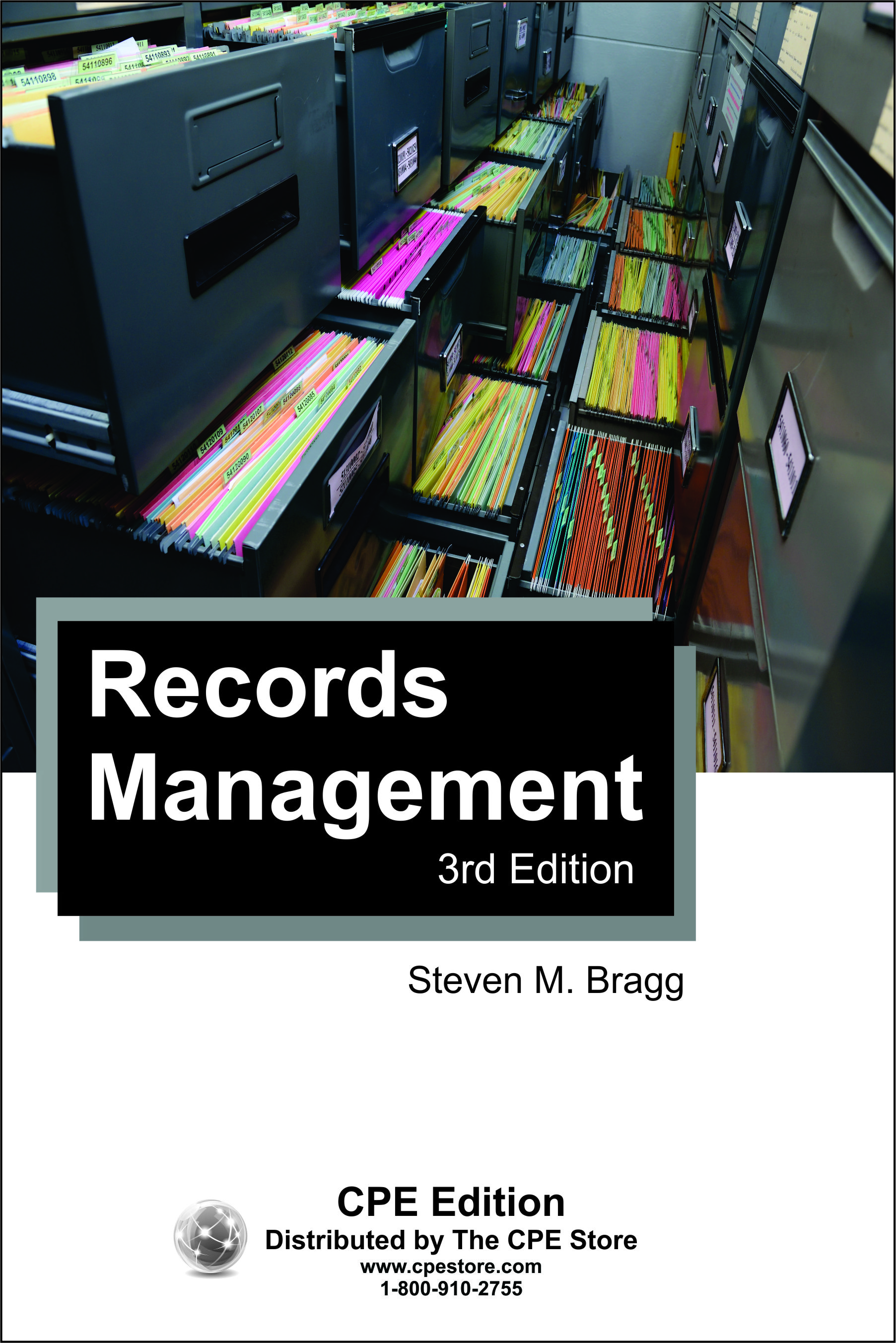
Course number: B464403
The Records Management course describes the types of records, the record life cycle, record formats, and the concept of information governance. The course then delves into the use of alphabetic storage, numeric storage, and geographic storage, along with a variety of records management best practices and a discussion of records retention. The course concludes with coverage of electronic records management, including such topics as the different types of electronic media, record safety, and the mitigation of catastrophic record damage. The course is intended for anyone who wants a solid grounding in the concepts of record management. Course level: Basic. Prerequisites: None. Course includes integrated text and study guide, final exam, and grading service.NASBA field of study: Business Management & Organization Course credit: 3 hours
Printed Version$29
PDF$29
Colleague Test(s)$15
Contents
Recruiting and Hiring
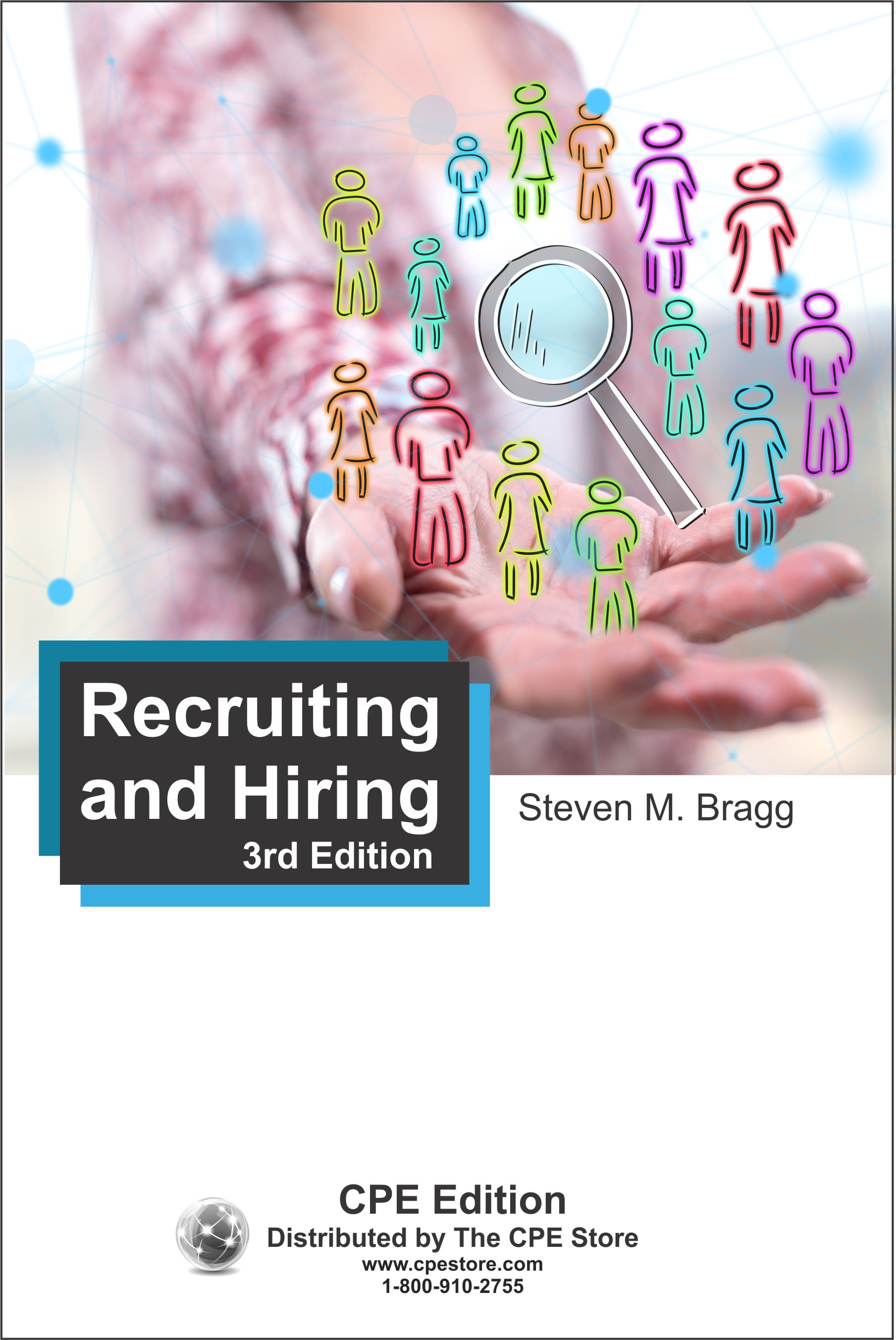
Course number: MM462203
This course shows how to create a job specification, and the many methods available for locating the most highly qualified candidates for a position. The course also describes general hiring principles, preliminary screening activities, how to conduct an interview, and the best way to manage the reference checking process. The course also notes how to evaluate candidates, describes the job offer, addresses how to handle counteroffers, and several related topics. Course level: Basic. Prerequisites: None. Course includes integrated text and study guide, final exam, and grading service.NASBA field of study: Personnel/Human Resources Course credit: 4 hours
Printed Version$39
PDF$39
Colleague Test(s)$15
Contents
Rental Real Estate Deductions

Course number: TAX578821
If you or your clients own rental property, you should be taking advantage of the many tax write-offs available. This book explains how to maximize your deductions. Find out how to: fill out IRS Schedule E, take real estate tax credits, figure out if an expense is a repair (deductible) or an improvement (depreciable), maximize your depreciation deductions, deduct losses arising from real estate ownership, keep proper tax records, deduct home office, travel, casualty losses and much more. The course is comprehensive yet easy to read and jam-packed with interesting and relevant examples. Course level: Basic. Prerequisites: None. Course includes integrated text and study guide, final exam and grading service.NASBA field of study: Taxes Course credit: 20 hours
Printed Version$129
PDF$129
Colleague Test(s)$60
Contents
Retail Management

Course number: MM450701
In the Retail Management course, we address every aspect of the management of a retail business, including strategic planning, how to determine the best store locations, merchandise optimization, and price setting. The course also addresses the organizational structure of a retailer, which promotions to employ, and how to measure financial and operational results. In short, this course is intended to be the go-to guide for anyone who wants to start up a retail business or improve the operations of an existing one. Course level: Basic. Prerequisites: None. Course includes integrated text and study guide, final exam, and grading service.NASBA field of study: Business Management and Organization Course credit: 14 hours
Printed Version$99
PDF$99
Colleague Test(s)$40
Contents
Retirement Plans for Small Businesses

Course number: TAX795505
In this course various retirement plans are considered in detail and compared with other plans. This course discusses factors that influence the decisions about the optimal plan for a business including available tax credits. Regular 401(k) plans are not analyzed in this course because they are subject to greater reporting requirements and potentially onerous nondiscrimination testing. Additionally, this course does not include a detailed analysis of retirement plan distributions or rollovers. Course level: Basic. Prerequisites: None. Course includes integrated text and study guide, final exam, and grading service.NASBA field of study: Taxes Course credit: 2 hours
Printed Version$19
PDF$19
Colleague Test(s)$12
Contents
Revenue Management
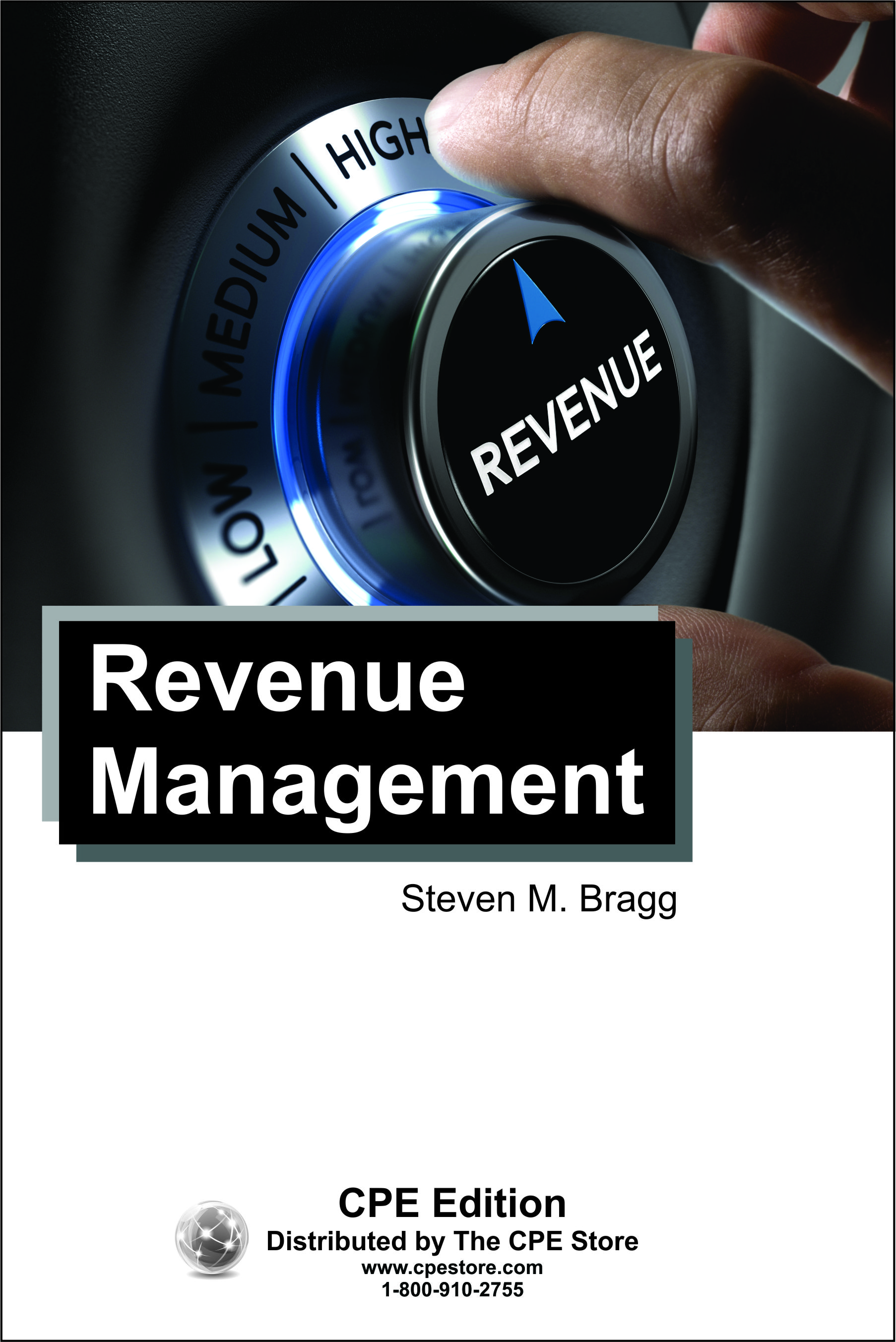
Course number: B403201
This course shows how to increase revenues and profits by adjusting the prices offered to customers. It does so by addressing both the overall pricing strategy of a business and the many day-to-day pricing tactics that can be employed within that overall strategy. Examples of revenue management tactics are bundling and unbundling, dynamic pricing, overbooking, reference pricing, and special financing offers. The course goes on to describe rate fences and other tools to keep discount offers away from full-price customers, as well as revenue management complications and the long-term effects of these activities. In total, the course presents the user with a multitude of options to consider for enhancing the financial performance of a business. Course level: Basic. Prerequisites: None. Course includes integrated text and study guide, final exam, and grading service.NASBA field of study: Finance Course credit: 3 hours
Printed Version$29
PDF$29
Colleague Test(s)$12
Contents
Revenue Recognition
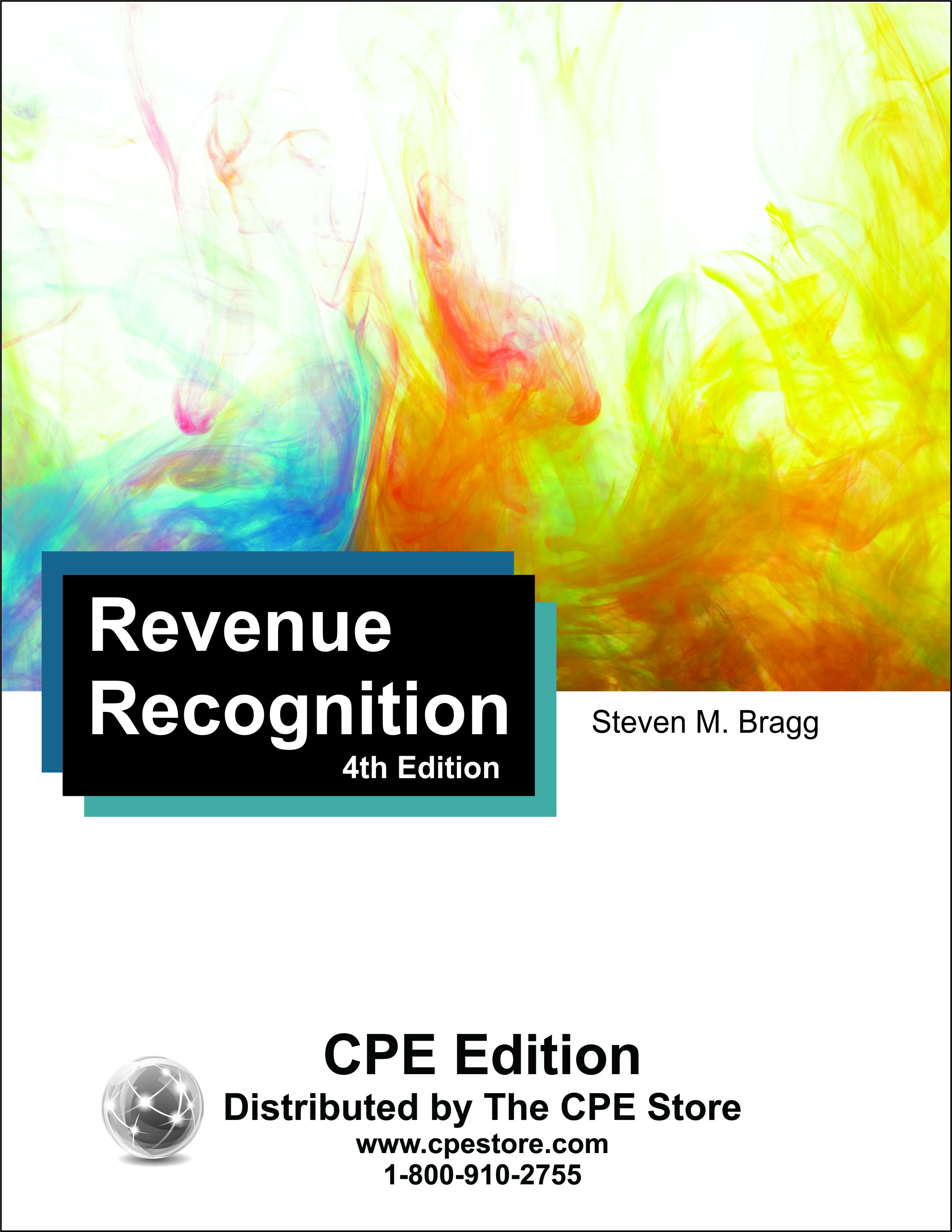
Course number: AA476604
The recognition of revenue is among the most misunderstood areas of accounting, leading to ongoing arguments between management and auditors about how to account for various sales transactions. Revenue Recognition brings clarity to the topic by focusing on Topic 606, Revenue from Contracts with Customers, which describes the five-step process for recognizing many types of revenue. The discussion includes the establishment of a contract, the determination of performance obligations, and how to set and allocate prices. The course covers many ancillary topics as well, including the treatment of variable consideration, noncash consideration, price discounts, subsequent price changes, consignments, licensing, repurchase agreements, disclosures, and more. In short, when there is an issue about revenue recognition, consult this course. Course level: Basic. Prerequisites: None. Course includes integrated text and study guide, final exam and grading service.NASBA field of study: Accounting Course credit: 4 hours
Printed Version$39
PDF$39
Colleague Test(s)$15
Contents
Revenue Standard ASC 606
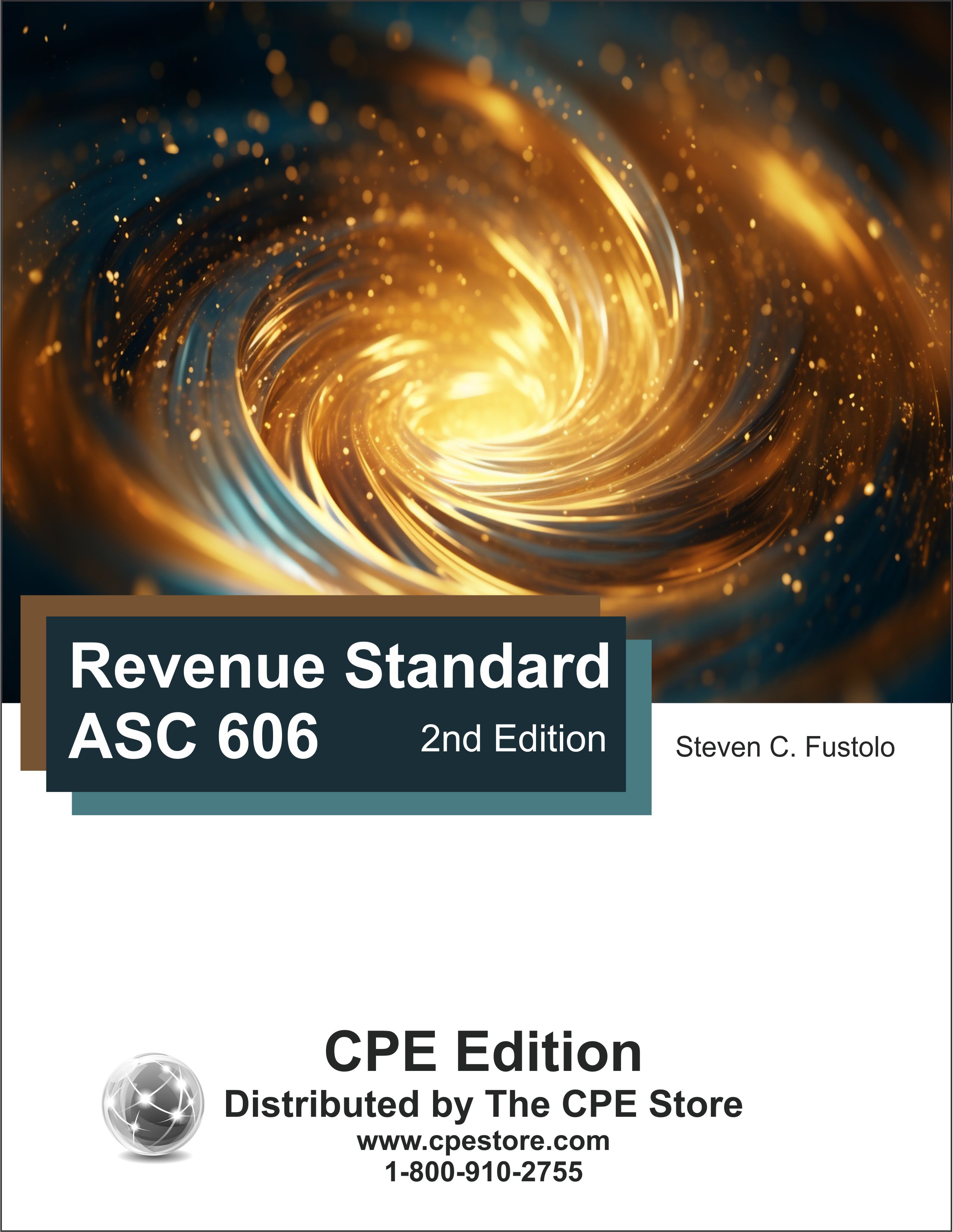
Course number: AA764502
The objective of this course is to address the new revenue standard in ASC 606, Revenue from Contracts with Customers, and its related updates, and provide guidance to nonpublic (private) entities who implemented the standard in 2020 and are continuing to experience post-implementation issues. Topics include and overview of the new standard and its core principle, an analysis of each of the five steps required in the revenue model, selected issues encompassing principal versus agent considerations, dealing with warranties, bill-and-hold arrangements, and consignment transaction. The course also addresses how to account for contract costs, financial statement presentation of revenue-related accounts, disclosures, and transition methods and guidance. Course level: Basic. Prerequisites: None. Course includes integrated text and study guide, final exam, and grading service.NASBA field of study: Accounting Course credit: 8 hours
Printed Version$69
PDF$69
Colleague Test(s)$25
Contents
Sales and Use Tax Accounting
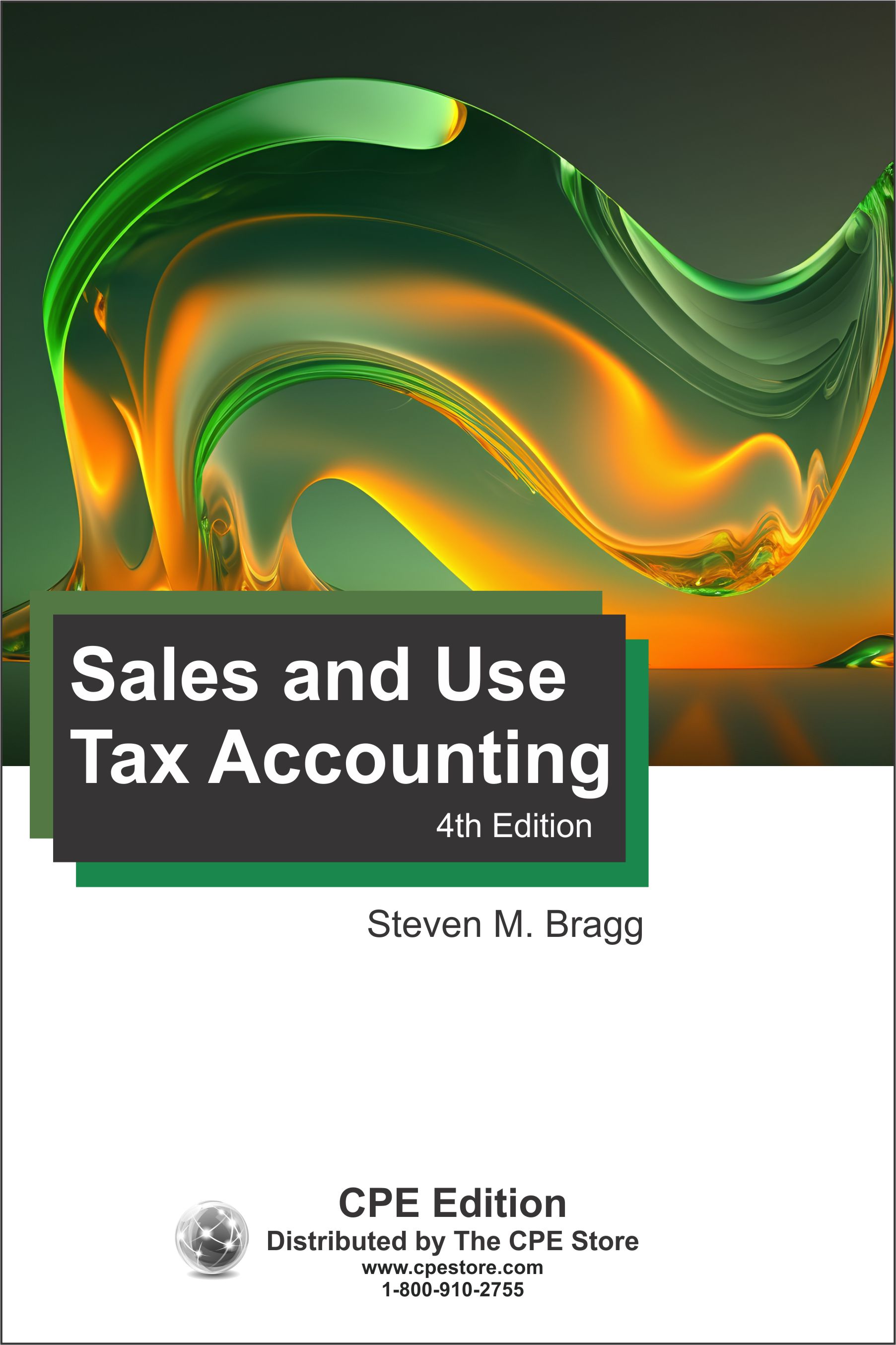
Course number: AA475404
The Sales and Use Tax Accounting course discusses when sales and use taxes should be applied to a transaction. The course addresses the calculation of these taxes, when exemptions may apply, how to remit tax receipts to the government, and how to present the related tax liability in the financial statements. The course also covers many special situations, such as dealing with over- or under-collections of sales taxes, private letter rulings, sales tax holidays, and how to deal with a sales tax audit. Course level: Basic. Prerequisites: None. Course includes integrated text and study guide, final exam, and grading service.NASBA field of study: Accounting Course credit: 2 hours
Printed Version$19
PDF$19
Colleague Test(s)$12
Contents
Section 199A Pass-Through Deduction
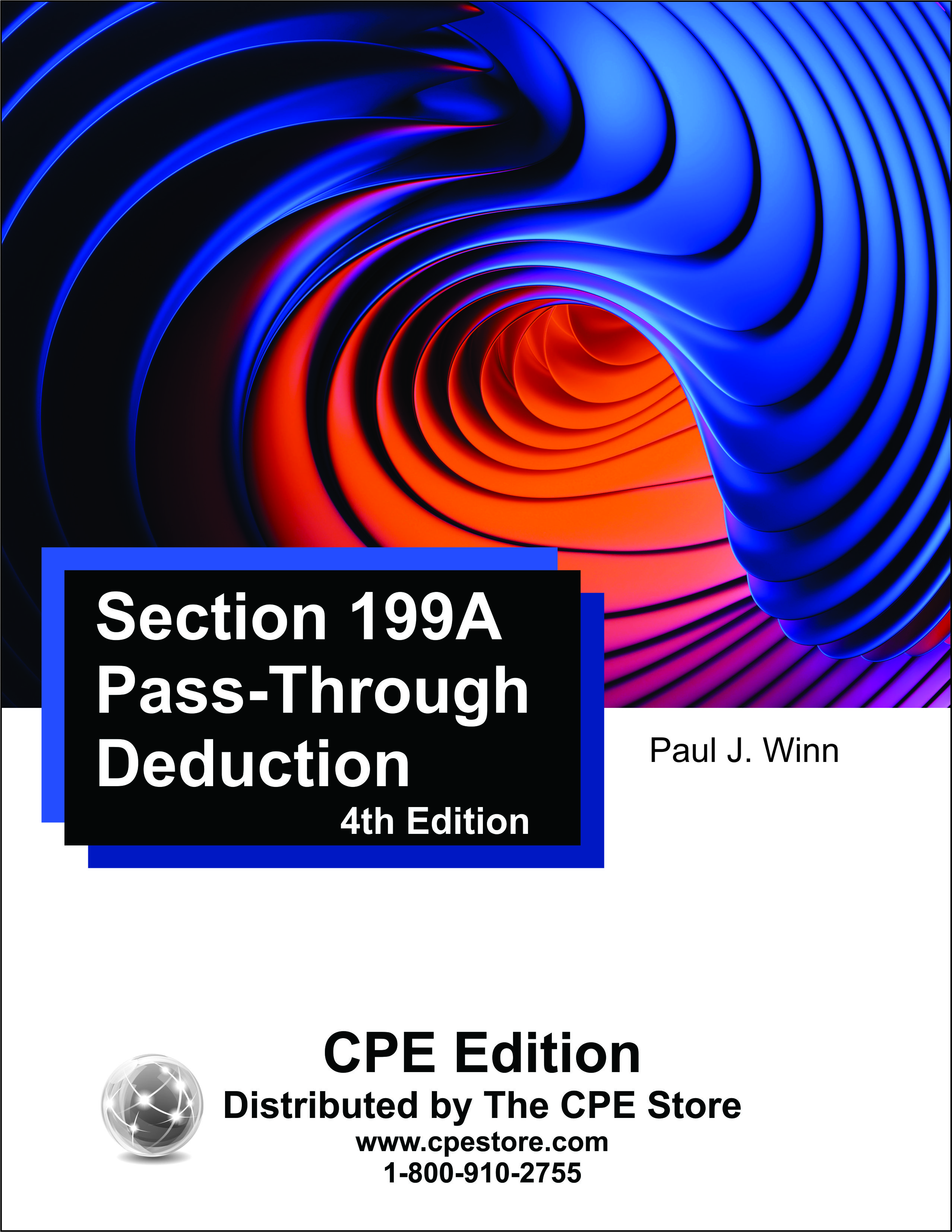
Course number: TAX924404
This course examines the pass-through deduction authorized under § 199A of the TCJA. The text is conceptually divided into three sections. First, calculation of the pass-through deduction for business owners whose taxable income does not exceed a threshold amount set by statute; second, calculation of the pass-through deduction for business owners whose taxable income is greater than the threshold; and finally, calculation of the pass-through deduction for business owners whose taxable income is greater than the threshold and whose businesses are considered specified service trades or businesses (SSTBs). The final chapter examines each of the business categories that are considered specified service trades or businesses and identifies those businesses that might appear to be placed in those categories, but which would not be deemed SSTBs. Course level: Basic. Prerequisites: None. Course includes integrated text and study guide, final exam and grading service.NASBA field of study: Taxes Course credit: 4 hours
Printed Version$39
PDF$39
Colleague Test(s)$15
Contents
Sexual Harassment Awareness (Illinois)
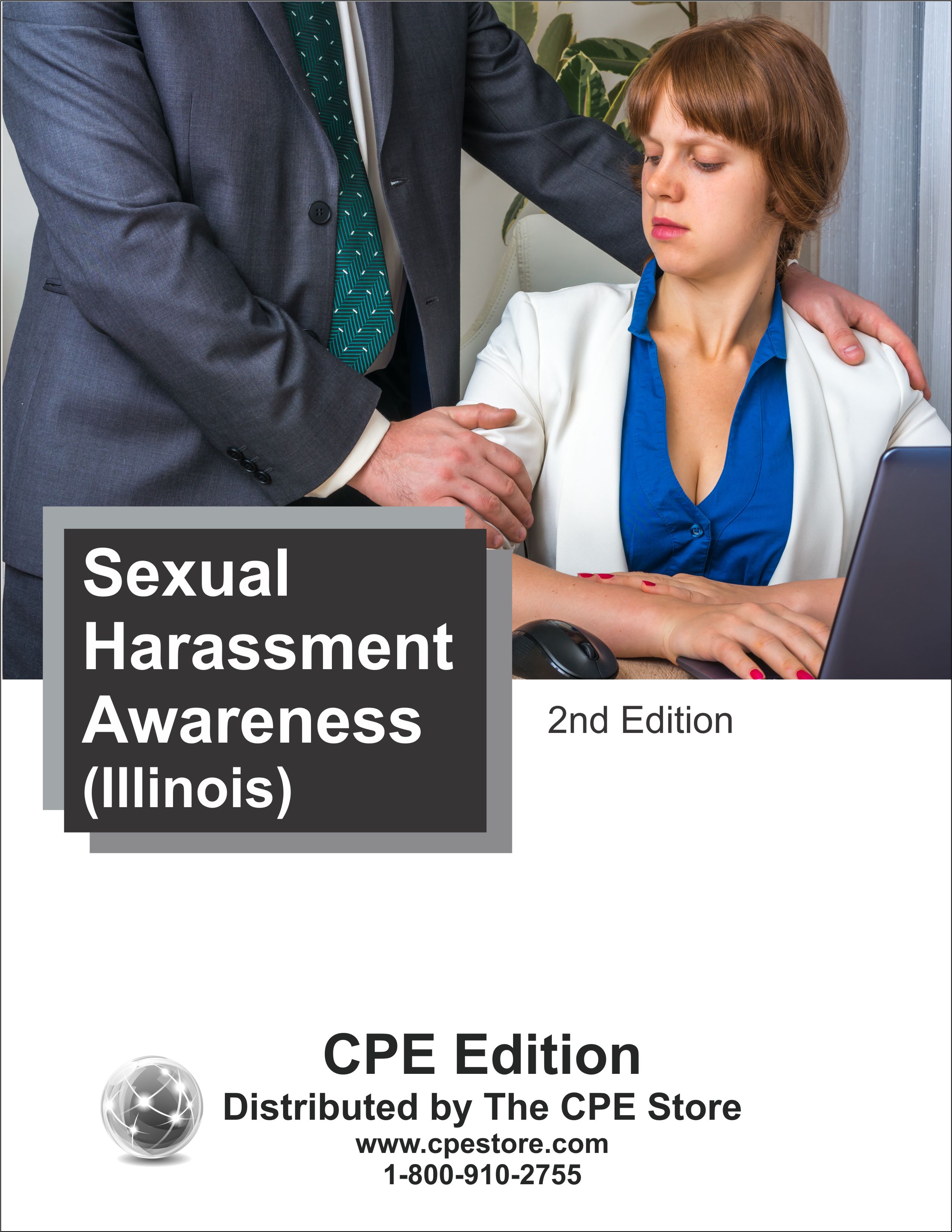
Course number: MM711102
Sexual harassment is a frequently discussed topic in employee relations. The Illinois Department of Financial and Professional Regulation adopted Administrative Rules 68 Ill. Adm. Code 1130.400, which requires licensed CPAs in Illinois to complete one hour of sexual harassment prevention training in order to be eligible for license renewal. This course fulfills the 1 CPE sexual harassment training credit requirement for Illinois licensed CPAs. It includes an explanation of relevant federal and Illinois statutory provisions concerning sexual harassment and remedies available to victims of sexual harassment, discusses types of sexual harassment, provides examples of conduct considered unlawful sexual harassment, and identifies employers’ responsibilities in the prevention, investigation, and corrective measures of sexual harassment under Illinois laws. Course level: Basic. Prerequisites: None. Course includes integrated text and study guide, final exam, and grading service.NASBA field of study: Business Law Course credit: 1 hour
Printed Version$19
PDF$19
Colleague Test(s)$15
Contents
Sexual Harassment Awareness (Illinois)

Course number: MM711102
Sexual harassment is a frequently discussed topic in employee relations. The Illinois Department of Financial and Professional Regulation adopted Administrative Rules 68 Ill. Adm. Code 1130.400, which requires licensed CPAs in Illinois to complete one hour of sexual harassment prevention training in order to be eligible for license renewal. This course fulfills the 1 CPE sexual harassment training credit requirement for Illinois licensed CPAs. It includes an explanation of relevant federal and Illinois statutory provisions concerning sexual harassment and remedies available to victims of sexual harassment, discusses types of sexual harassment, provides examples of conduct considered unlawful sexual harassment, and identifies employers’ responsibilities in the prevention, investigation, and corrective measures of sexual harassment under Illinois laws. Course level: Basic. Prerequisites: None. Course includes integrated text and study guide, final exam, and grading service.NASBA field of study: Business Law Course credit: 1 hour
Printed Version$19
PDF$19
Colleague Test(s)$15
Contents
Small Business Tax Deductions
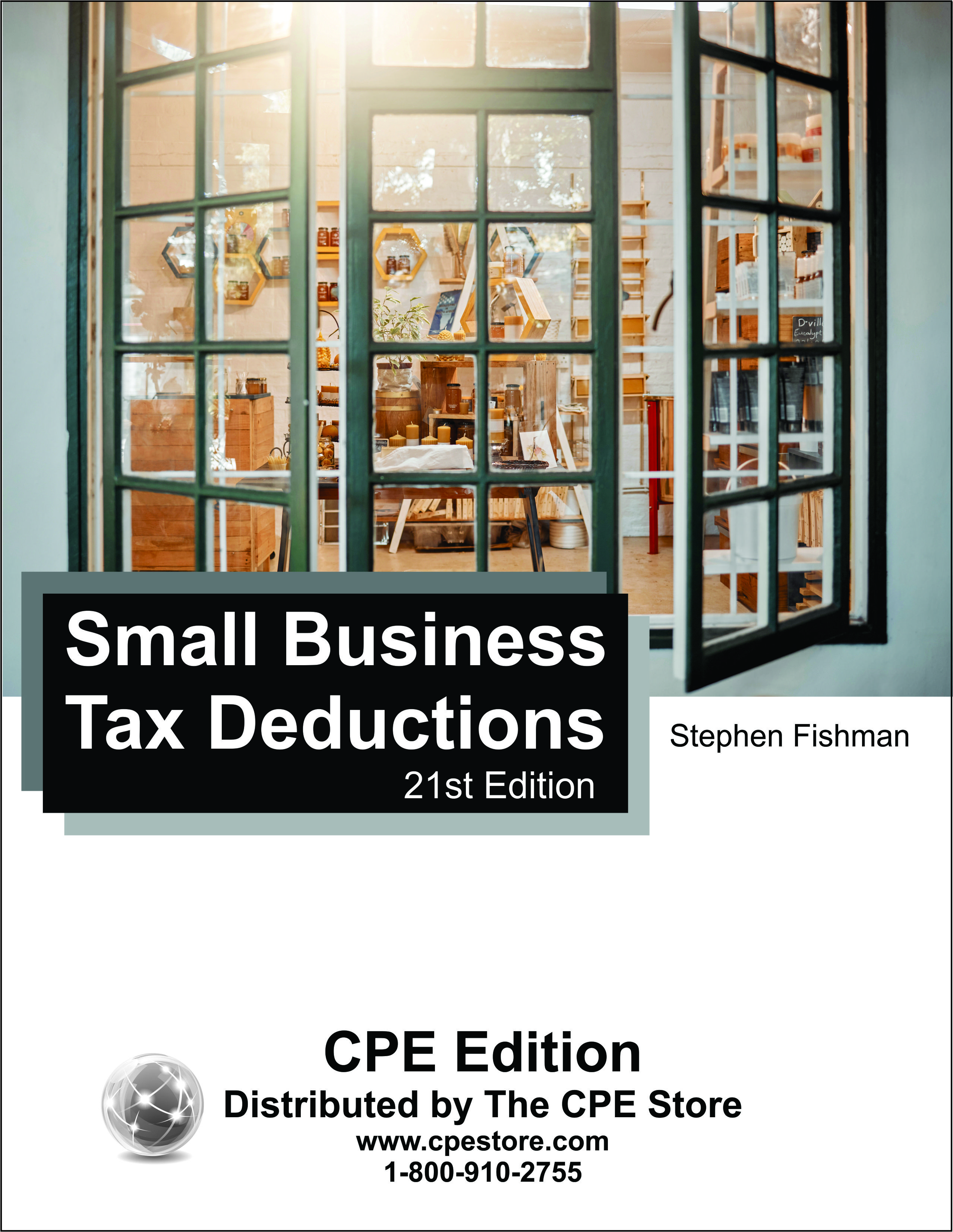
Course number: TAX578421
The fastest way for any small business to make more money is to pay less to the IRS. This course will show you how to maximize the business deductions you are entitled to. The book is organized into practical categories featuring common deductions, including start-up expenses, operating expenses, health deductions, vehicles, travel, meals, inventory, equipment and many more. Whether a business is just starting or well established, this course will provide valuable information. Course level: Basic. Prerequisites: None. Course includes integrated text and study guide, final exam, and grading service.NASBA field of study: Taxes Course credit: 18 hours
Printed Version$119
PDF$119
Colleague Test(s)$50
Contents
Small Business Tax Guide
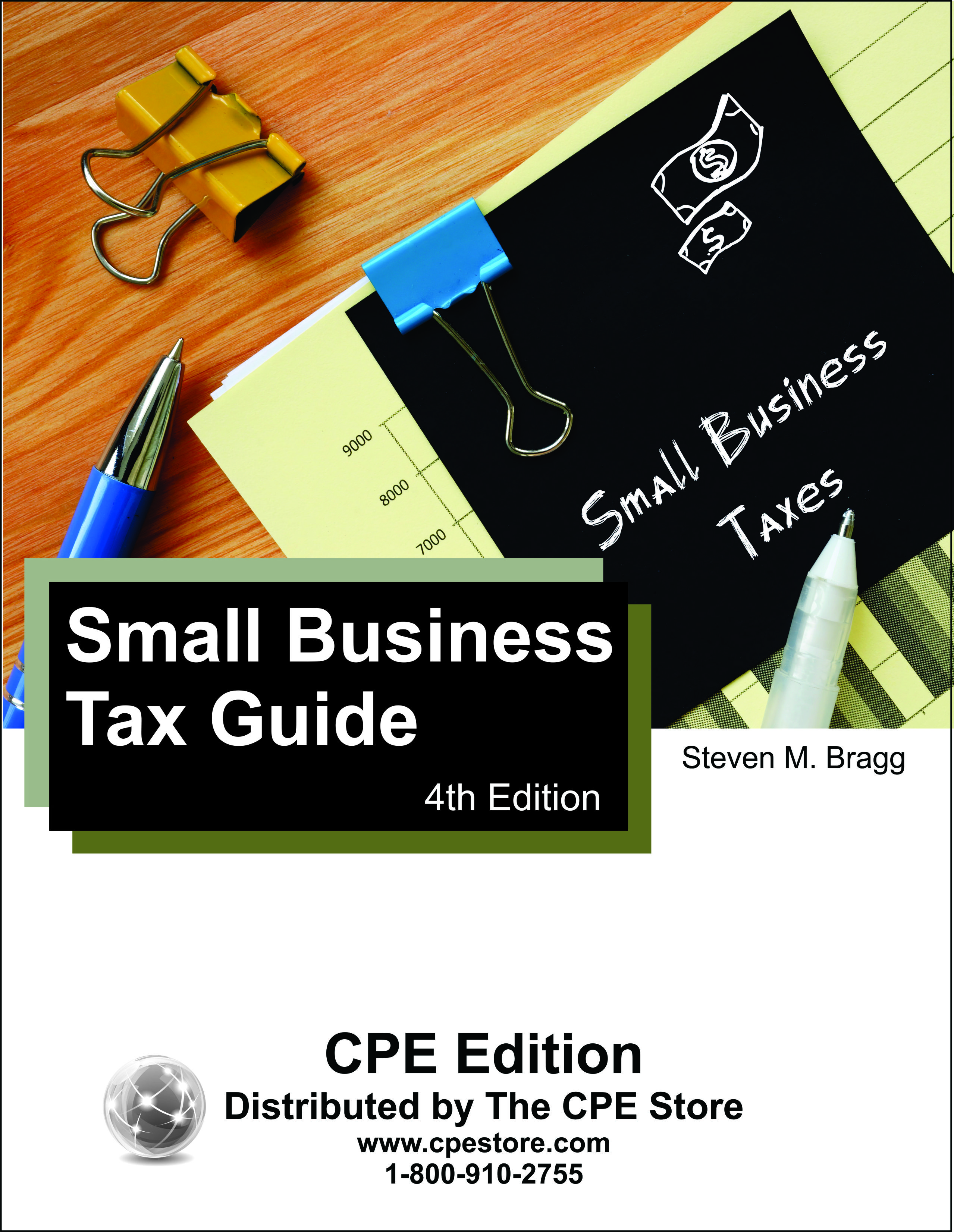
Course number: TAX440204
The owner of a small business who has a reasonable knowledge of tax issues can save a substantial amount of money. The Small Business Tax Guide keeps you informed of the tax rules, so that you can take advantage of what the law allows. To this end, the Guide covers such matters as vehicle expense deductions, accelerated depreciation, payroll tax requirements, the deductibility of fringe benefits, the home office deduction, tax considerations for a family business, and much more. Course level: Basic. Prerequisites: None. Course includes integrated text and study guide, final exam and grading service.NASBA field of study: Taxes Course credit: 10 hours
Printed Version$69
PDF$69
Colleague Test(s)$30
Contents
Social Security, Medicare and Pensions

Course number: FP573330
Help your clients get the most retirement and pension income and the best medical coverage. This course will teach you: the basic premises of Social Security; the specific requirements for qualifying to receive retirement, disability, dependents and survivors benefits; what work credits are; how benefits are calculated; how working while receiving benefits will affect the amount of benefits; how to appeal any denied claims; how to fill out and file every important document; how to define the “break-even point”; what SSI considers counted income and not counted income; what SSI considers assets and not counted assets; how to differentiate between immediate annuity and deferred annuity; how to figure the amount of federal CSRS or FERS retirement annuities; and much more. Course level: Basic. Prerequisites: None. Course includes integrated text and study guide, final exam, and grading service.NASBA field of study: Specialized Knowledge Course credit: 20 hours
Printed Version$129
PDF$129
Colleague Test(s)$60
Contents
Stand Up to the IRS

Course number: TAX571215
This course shows you how to help your clients challenge tax bills; remove tax penalties; get a long-term payment plan for a tax bill; gather documentation for an audit; appeal audit findings; determine if their tax debt can be eliminated through bankruptcy; stop IRS wage and property seizures; and get help from the IRS Ombudsman. The text includes all the forms necessary for dealing with the IRS and representing your clients in Tax Court. Also includes confidential forms used by the IRS during audits and collection interviews. Course level: Basic. Prerequisites: None. Course includes integrated text and study guide, final exam, and grading service.NASBA field of study: Taxes Course credit: 20 hours
PDF$119
Colleague Test(s)$60
Contents
Standards for Accounting and Review Services (SSARS 21-26)
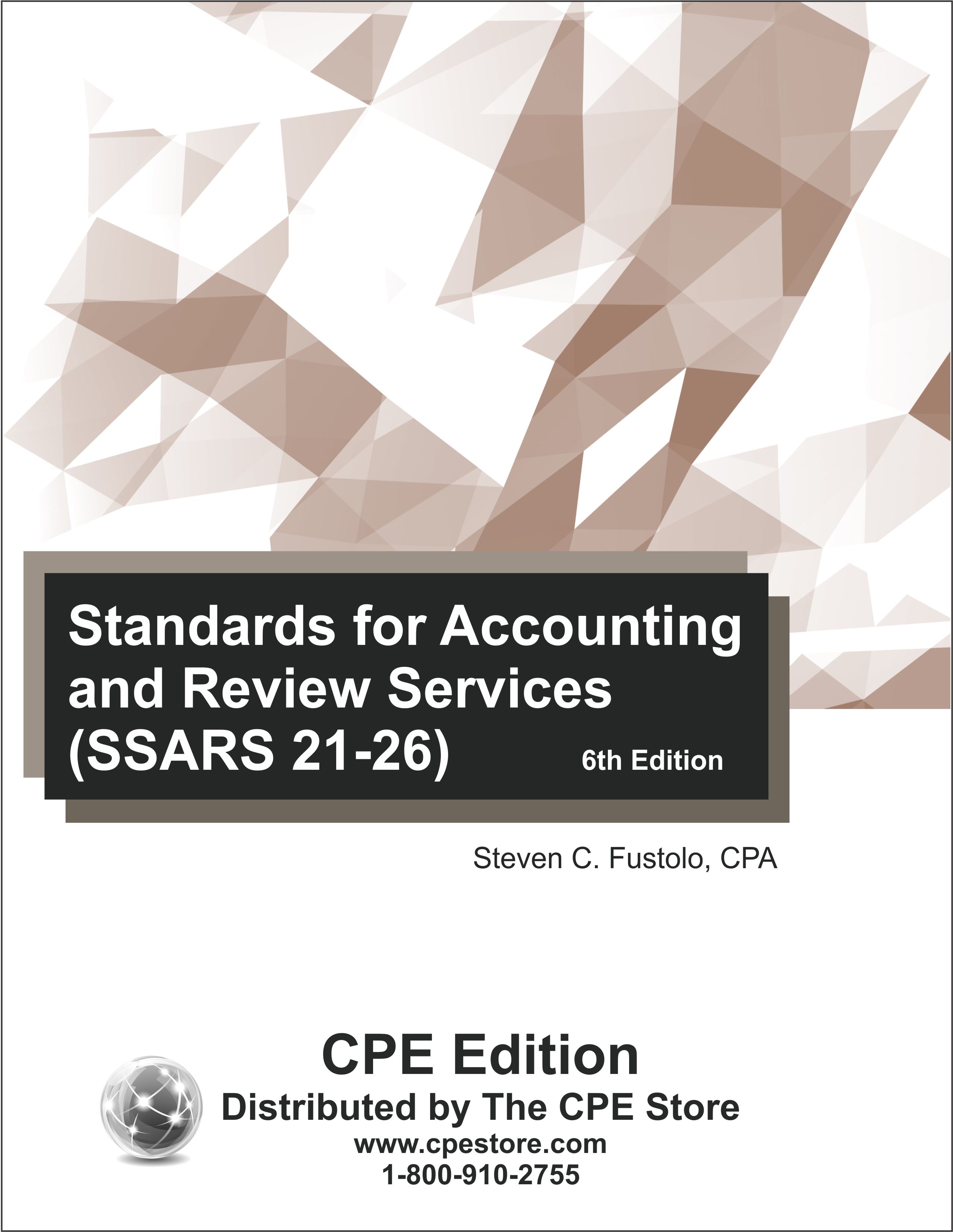
Course number: AA752106
The purpose of this course is to inform the reader of the various changes made to the compilation and review codification by SSARS No. 21 as amended by SSARS No. 22, Compilation of Pro Forma Financial Information, SSARS No. 23, Omnibus Statement on Standards for Accounting and Review Services—2016, SSARS No. 24, Omnibus Statement on Standards for Accounting and Review Services—2018, SSARS No. 25, Materiality in a Review of Financial Statements and Adverse Conclusions, and SSARS No. 26: Quality Management for an Engagement Conducted in Accordance With Statements on Standards for Accounting and Review Services. The course addresses the three types of engagements that can be performed under the SSARSs: a preparation of financial statements engagement, a compilation engagement, and a review engagement. Course level: Basic. Prerequisites: None. Course includes integrated text and study guide, final exam, and grading service.NASBA field of study: Auditing Course credit: 10 hours
PDF$79
Colleague Test(s)$30
Contents
Starting and Building a Nonprofit

Course number: B575510
With practical advice, legal information, tips and step-by-step instructions, this course will help you get your nonprofit up and running—and keep it going! You’ll learn how to: develop a strategic plan and budget; recruit and manage board members, employees and volunteers; market your organization to your target audience; raise money online through crowdfunding and other sites; build a website and use social media and networking sites; adopt policies that are legally sound; and much more. Course level: Basic. Prerequisites: None. Course includes integrated text and study guide, final exam, and grading service.NASBA field of study: Specialized Knowledge Course credit: 24 hours
Printed Version$139
PDF$139
Colleague Test(s)$70
Contents
Starting and Running a Small Business

Course number: B580818
This course teaches all the legalities of starting and running a small business. You will discover how to raise start-up money, decide between an LLC or other business structure, save on business taxes, get licenses and permits, choose the right insurance, negotiate contracts and leases, avoid problems if you’re buying a franchise, hire and manage employees and independent contractors, attract and keep customers (and get paid on time), and limit your liability and protect your personal assets. Course level: Basic. Prerequisites: None. Course includes integrated text and study guide, final exam, and grading service.NASBA field of study: Business Law Course credit: 32 hours
Printed Version$179
PDF$179
Colleague Test(s)$95
Contents
Statement of Cash Flows
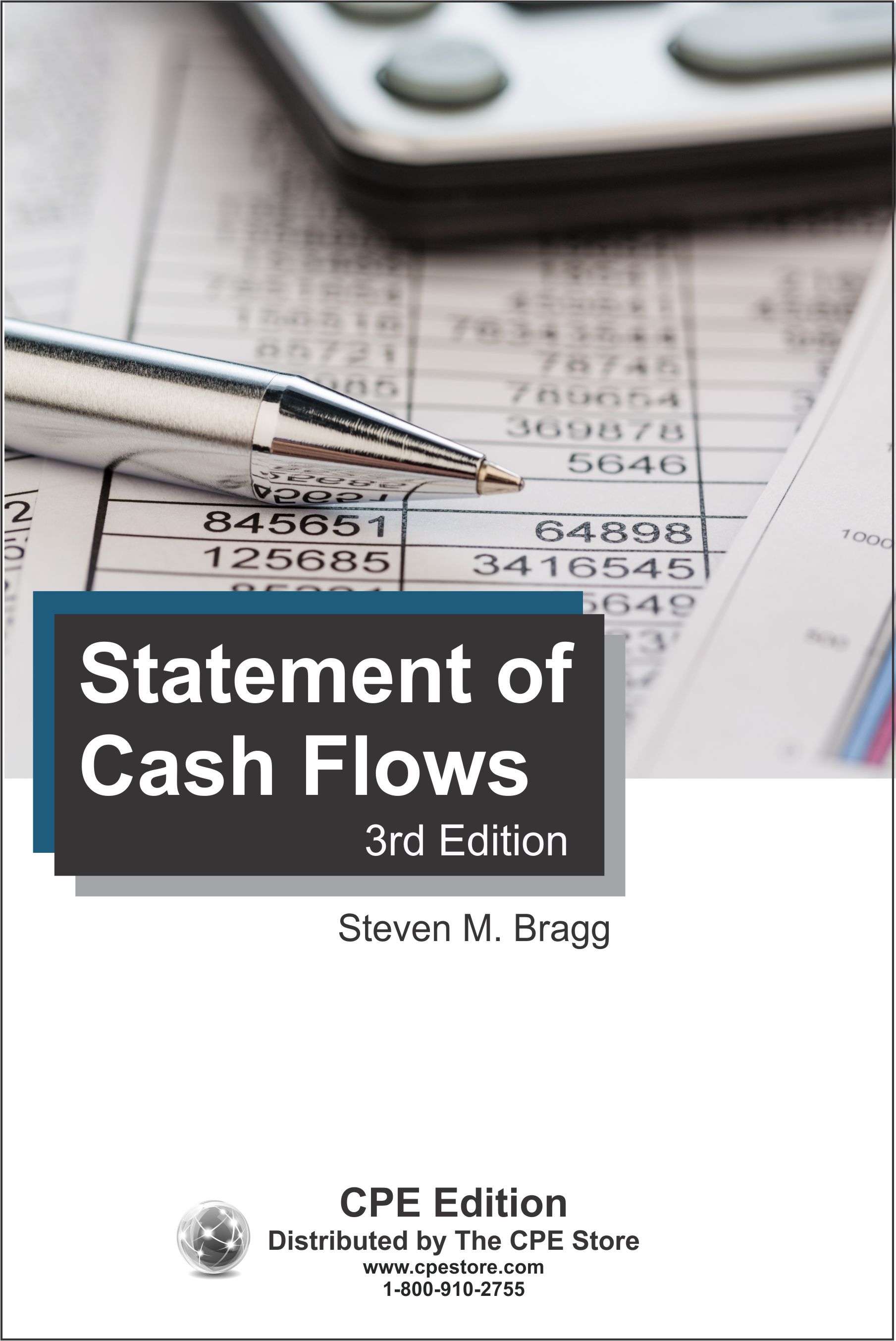
Course number: AA462303
The Statement of Cash Flows course describes the objectives of the statement of cash flows, the different presentation methods that can be used, and how to prepare it. The course also notes the presentation treatment of many special situations, data collection issues, and the disclosure requirements for related information. In addition, the course describes several key cash flow analyses, including how to interpret the statement of cash flows. Course level: Basic. Prerequisites: None. Course includes integrated text and study guide, final exam, and grading service.NASBA field of study: Accounting Course credit: 2 hours
Printed Version$19
PDF$19
Colleague Test(s)$12
Contents
Succession Planning
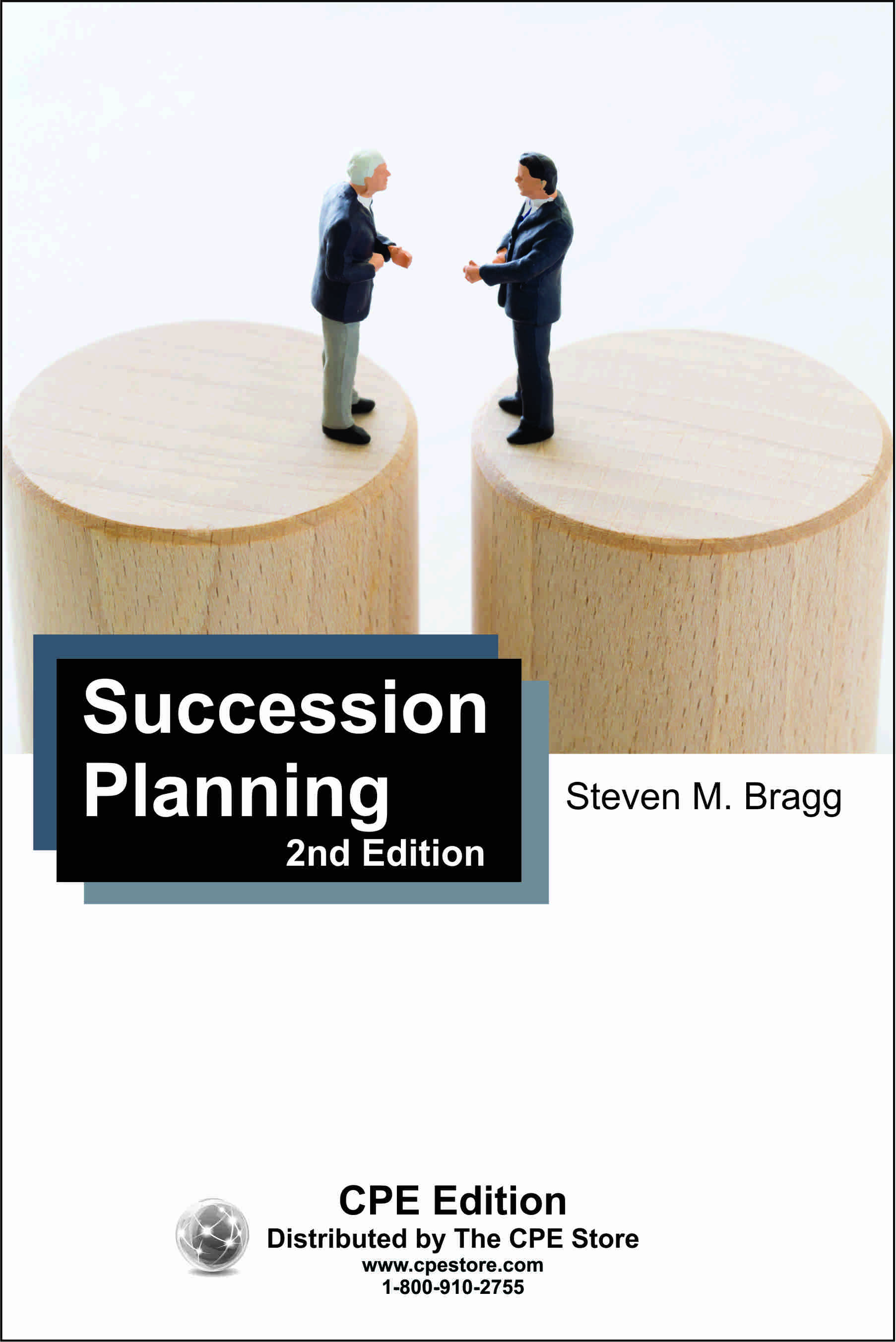
Course number: MM484402
The Succession Planning course describes every aspect of succession planning – its advantages, the steps involved in operating the program, and ways to enhance its effectiveness. The course also addresses training systems for employees targeted for advancement, special issues related to succession planning for the chief executive officer position, and the measurements that can be used to determine the performance of the program. Course level: Basic. Prerequisites: None. Course includes integrated text and study guide, final exam, and grading service.NASBA field of study: Personnel/Human Resources Course credit: 3 hours
Printed Version$29
PDF$29
Colleague Test(s)$15
Contents
Taking Money Out of Retirement Plans

Course number: TAX586516
Covers the rules, taxes, and potential penalties associated with withdrawing funds from retirement plans. Offers details on early distributions used to pay higher-education expenses or health-insurance premiums, distributions you must take during your lifetime (when they begin, how they are computed, what happens if your beneficiary changes), and distributions made after an account holder dies. Helpful appendices include relevant IRS forms, notices, and schedules, as well as life-expectancy tables. Course level: Basic. Prerequisites: None. Course includes integrated text and study guide, final exam, and grading service.NASBA field of study: Taxes Course credit: 14 hours
Printed Version$99
PDF$99
Colleague Test(s)$45
Contents
Tax Basics for Small Business
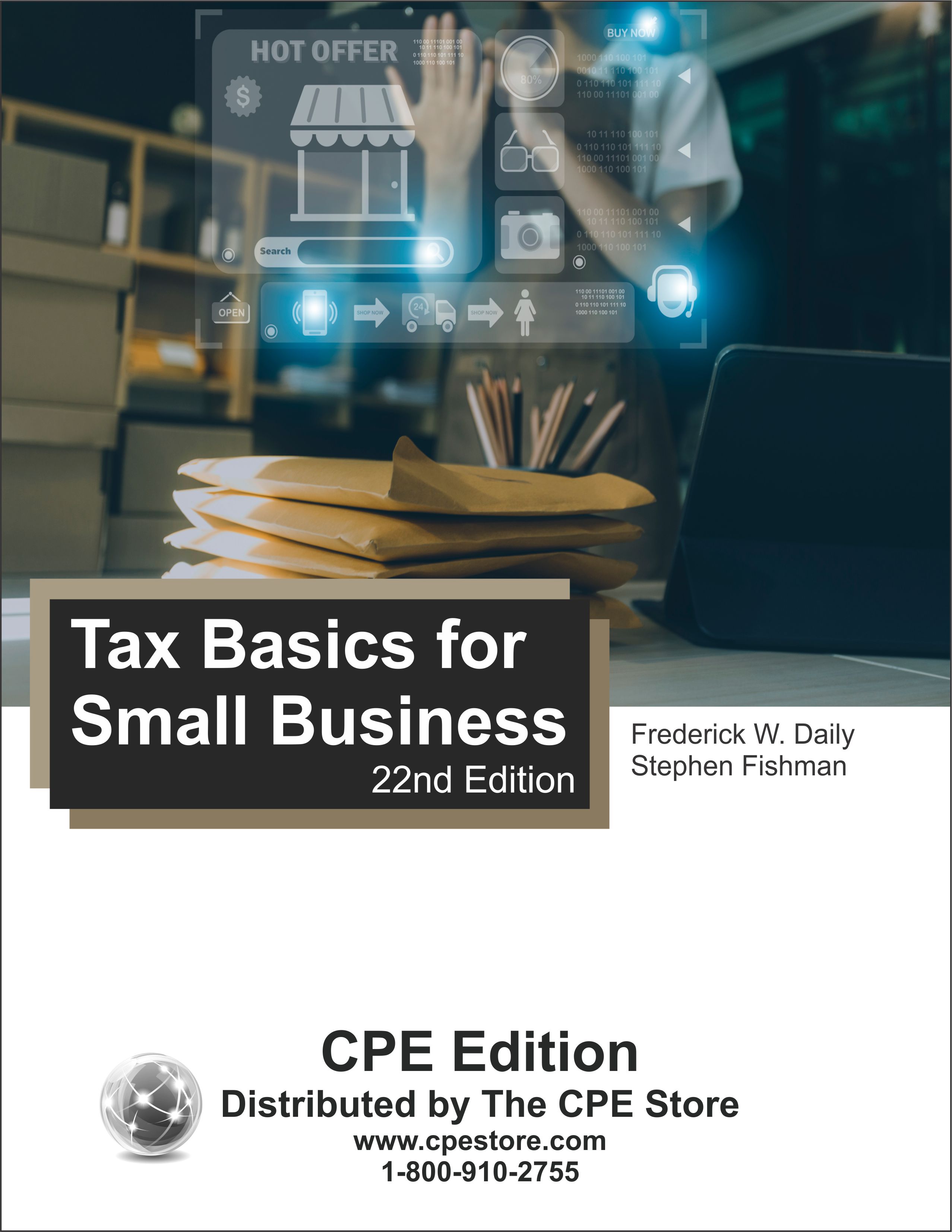
Course number: TAX543522
This course is ideal for the CPA looking to expand into the tax field. Provides an excellent overview of tax-deductible expenses, depreciation and payroll taxes. Also covers choosing the right business form (S Corp, C Corp, LLC, etc), fringe benefits, buying or selling a business and dealing with the IRS. Course level: Very Basic. Prerequisites: None. Course includes integrated text and study guide, final exam, and grading service.NASBA field of study: Taxes Course credit: 22 hours
PDF$129
Colleague Test(s)$65
Contents
Tax Basics for Small Business

Course number: TAX543523
Course credit: hoursNot available
Tax Basis of Assets
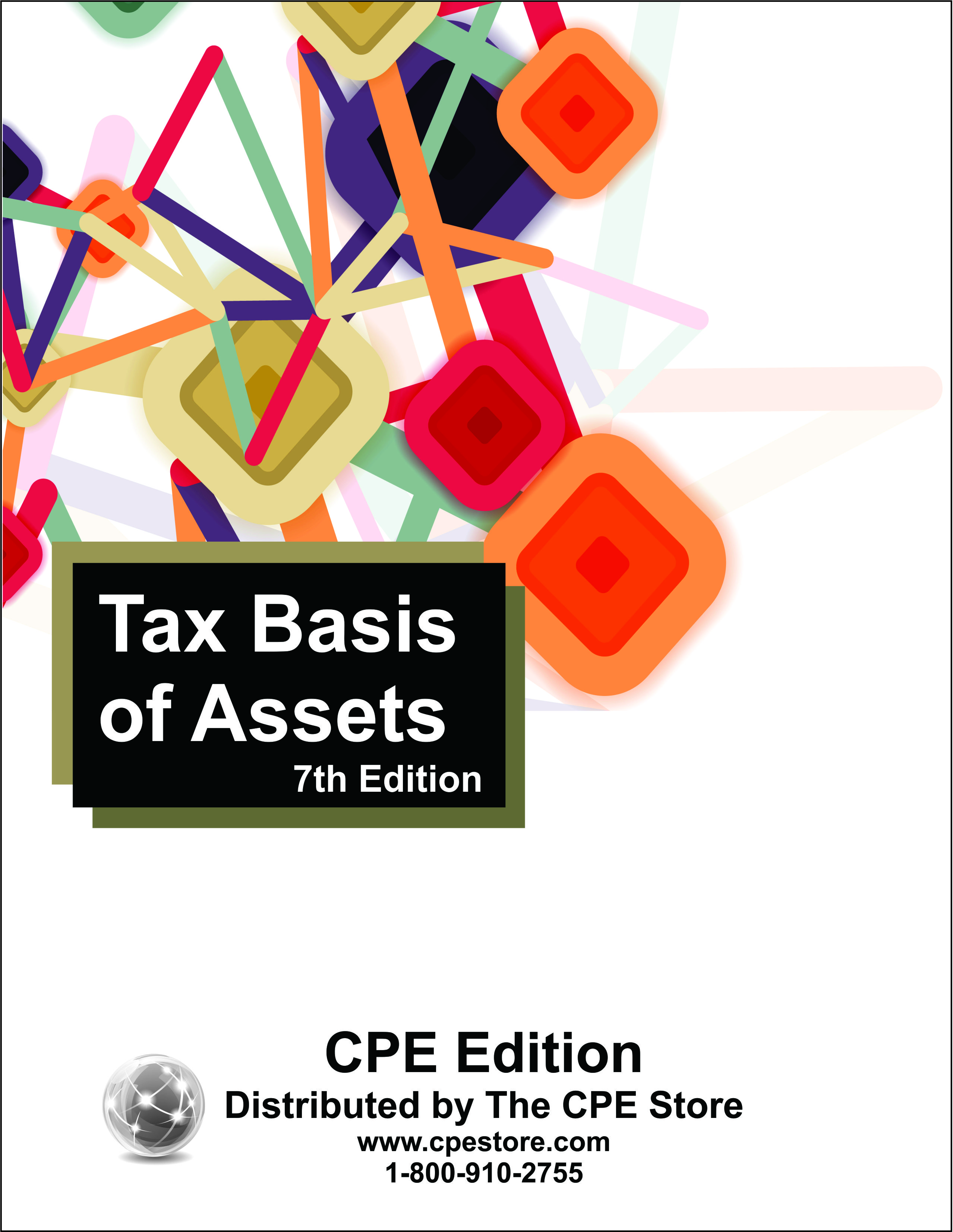
Course number: TAX751707
The basis of property is used to figure depreciation, amortization, depletion, and casualty losses. It is also used to figure gain or loss on dispositions of property. This course will show you how to calculate cost basis, adjusted basis, and basis other than cost. Includes information on stocks, bonds, real property, business assets, and intangible assets. Also covers the uniform capitalization rules and will also show you how to allocate basis when a group of assets or a trade or business is acquired. Course level: Basic. Prerequisites: None. Course includes integrated text and study guide, final exam, and grading service.NASBA field of study: Taxes Course credit: 5 hours
Printed Version$49
PDF$49
Colleague Test(s)$15
Contents
Tax Deductions for Professionals
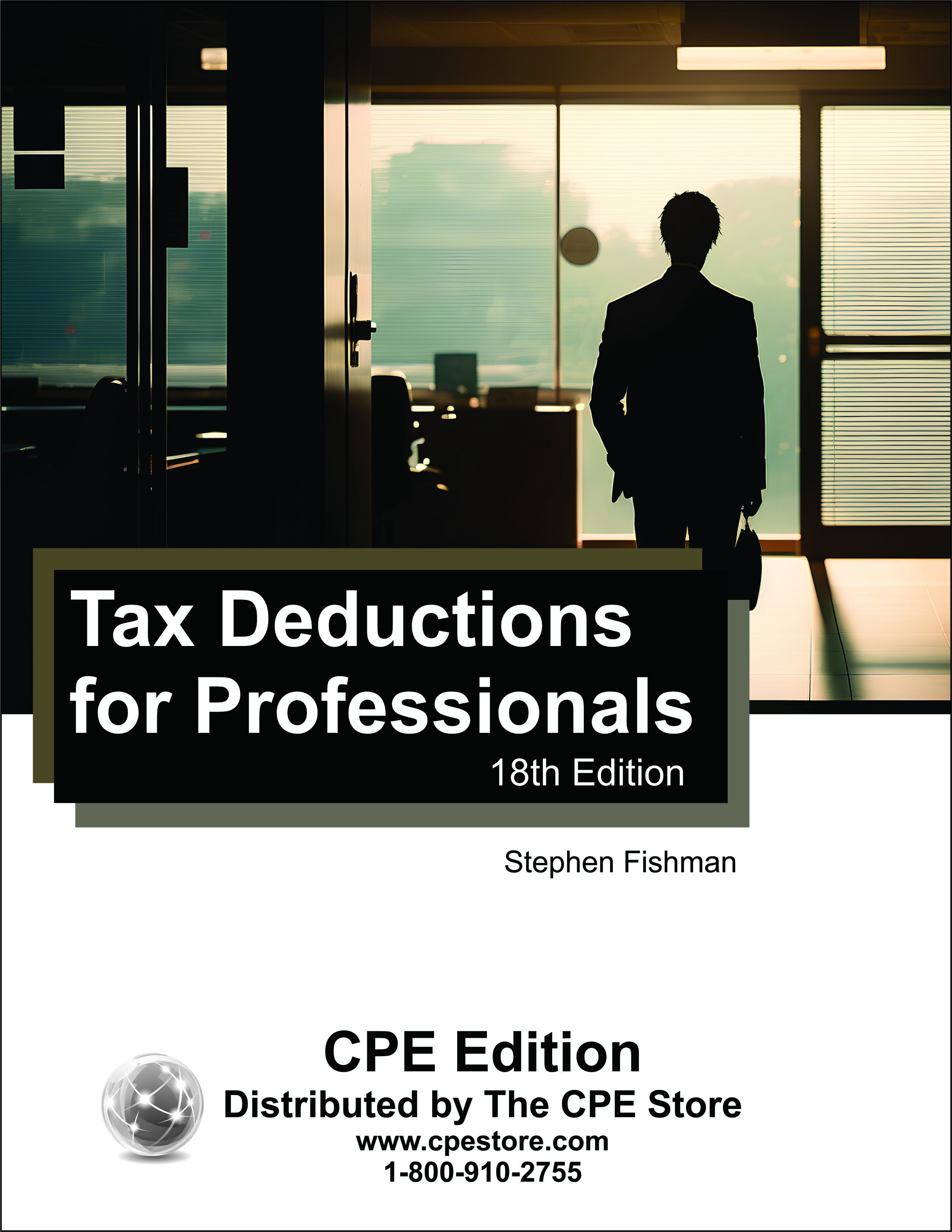
Course number: TAX579918
This comprehensive course covers common deductions for professionals, including start-up and operating expenses, the pass-through deduction, health deductions, vehicles and travel, home office, deducting long-term assets, and many more. In addition, it can help you choose the best legal structure for your practice. Also covers putting money into retirement accounts, the tax implications of owning the building you work in, and deducting the cost of continuing education, professional fees, and other expenses. Course level: Basic. Prerequisites: None. Course includes integrated text and study guide, final exam, and grading service.NASBA field of study: Taxes Course credit: 20 hours
PDF$129
Colleague Test(s)$60
Contents
Tax Guide for Nonprofits
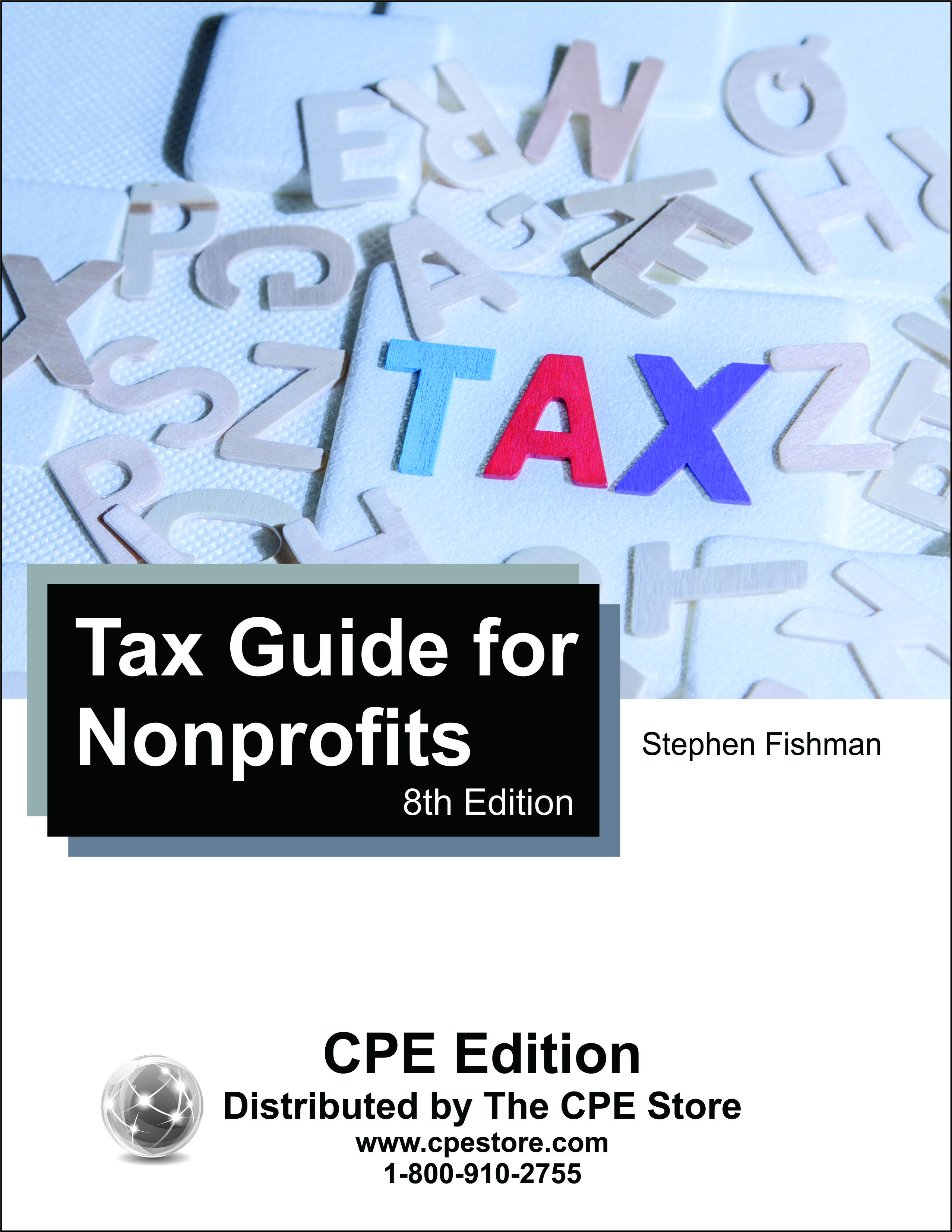
Course number: TAX581508
Explains the rules and regulations that nonprofits must comply with in easy-to-understand language. Covers IRS compliance requirements for nonprofits, including the new Form 990 and 990-EZ, conflicts of interest and compensation, charitable giving rules, unrelated taxable business income, lobbying and political activity restrictions, nonprofit bookkeeping, and other key tax rules. Whether you are new to the nonprofit area or are well established, this course will provide you with lots of specific advice, examples and practical information. Course level: Basic. Prerequisites: None. Course includes integrated text and study guide, final exam, and grading service.NASBA field of study: Taxes Course credit: 20 hours
Printed Version$129
PDF$129
Colleague Test(s)$60
Contents
Tax Guide for Short-Term Rentals

Course number: TAX580206
This course shows you everything you need to know about taxes on short-term rentals, including what deductions are available; how to report short-term rental income; how to deduct losses; vacation home and tax-free rental rules; how to allocate costs when renting a room in your home, and how to keep proper records. Whether you rent your property through Airbnb, FlipKey, HomeAway, TripAdvisor, Craigslist, or VRBO, you need to be sure you understand these tax rules. Course Level: Basic. Prerequisites: None. Course includes integrated text and study guide, final exam, and grading service.NASBA field of study: Taxes Course credit: 8 hours
Printed Version$69
PDF$69
Colleague Test(s)$25
Contents
Tax Treatment of Virtual Currency

Course number: TAX941502
Virtual currency use is increasing, and roughly 3 in 10 Americans younger than age 30 indicate they have invested in, traded, or used a virtual currency, such as Bitcoin or Ethereum. As a result, tax preparers are more likely than ever to encounter clients who have engaged in one or more virtual currency transactions during the year and who may have taxable income as a result. Tax Treatment of Virtual Currency briefly discusses the nature of virtual currency, how transactions in virtual currency occur and are recorded, and the tax treatment to which they are subject. Course includes integrated text and study guide, final exam and grading service.NASBA field of study: Taxes Course credit: 2 hours
Printed Version$19
PDF$19
Colleague Test(s)$12
Contents
Tax-Basis Financial Statements
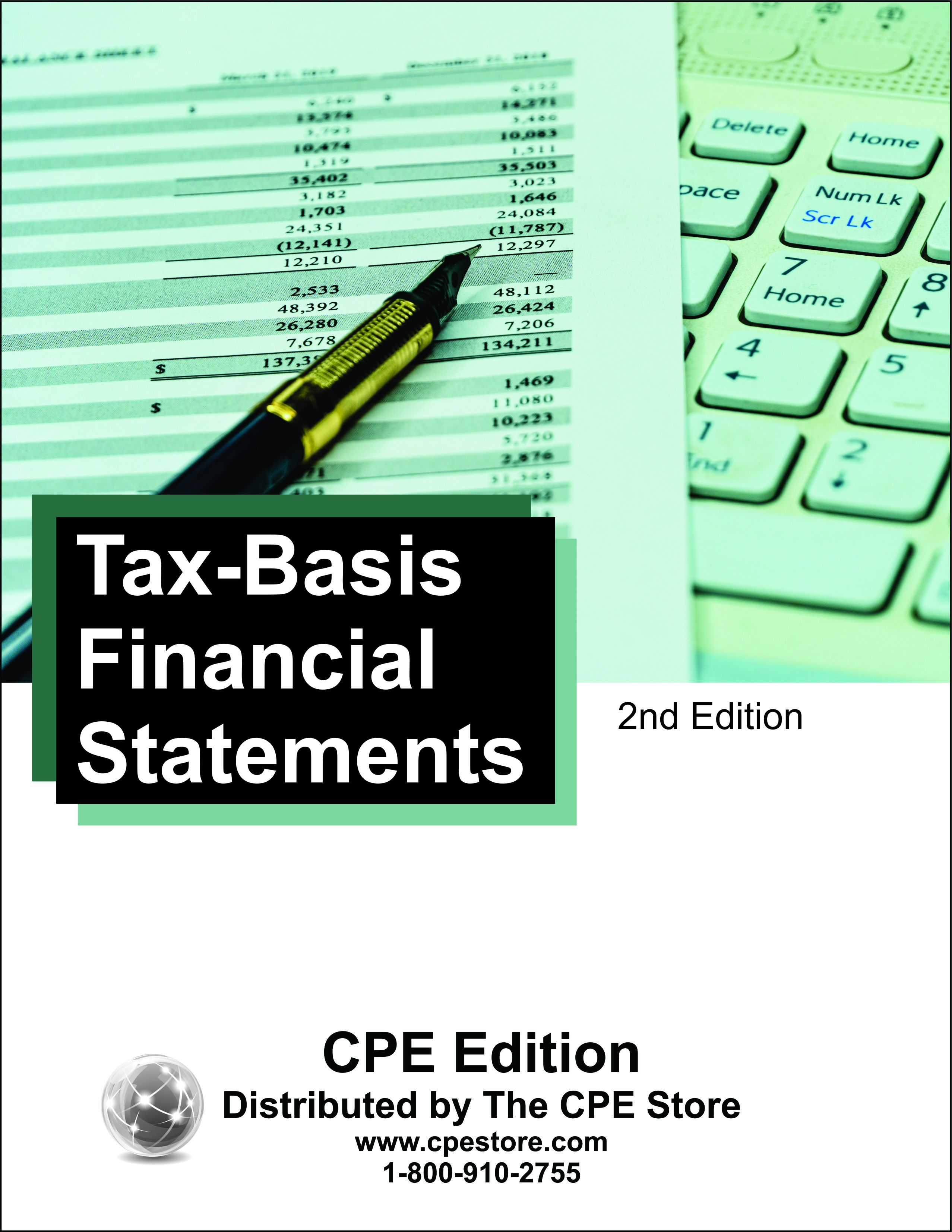
Course number: AA722802
The objective of this course is to discuss the general rules and applications used in the preparation of and reporting on tax-basis financial statements and other bases of accounting found within the special purpose frameworks (also referred to as other comprehensive bases of accounting). Topics include an overview of the types of special purpose frameworks, advantages and disadvantages of using tax-basis financial statements, tax-basis accrual versus cash basis, reviewing the key differences between GAAP and tax-basis revenue and expenses and other differences, tax-basis disclosures, reporting options for tax-basis financial statements, unusual reporting and presentation issues related to tax-basis financial statements, an overview of other types of special purpose frameworks including pure cash basis, modified cash basis, regulatory basis, contractual basis, and the other basis of accounting, and more. Course level: Basic. Prerequisites: None. Course includes integrated text and study guide, final exam, and grading service.NASBA field of study: Accounting Course credit: 10 hours
Printed Version$79
PDF$79
Colleague Test(s)$30
Contents
The Balance Sheet
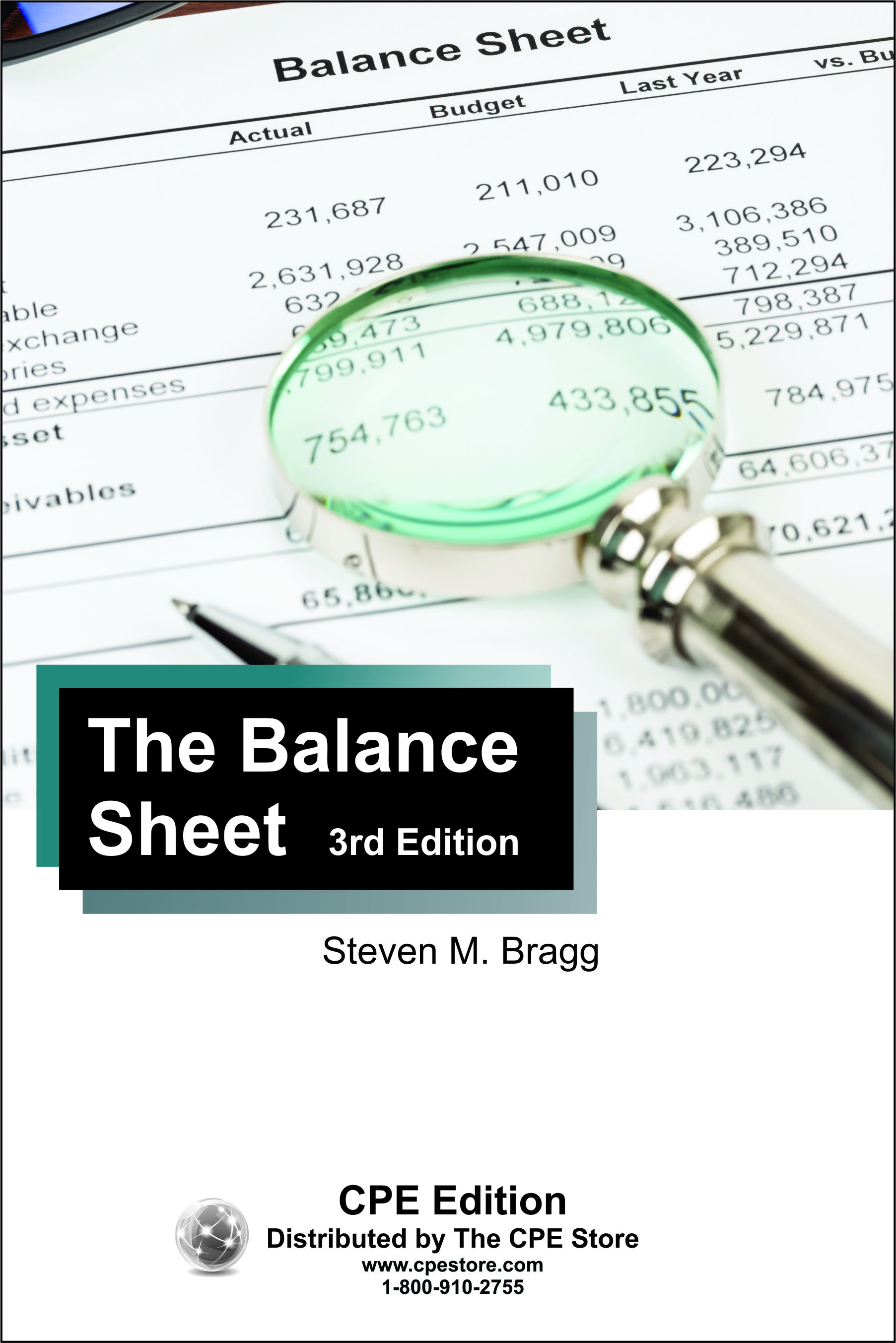
Course number: AA477303
Because the balance sheet reveals the financial position of a business, it should be properly prepared in order to maximize the amount of information conveyed to users. This course assists the accountant by noting the various presentation formats that can be used, as well as the content and description of each line item within the statement. It also discusses sample balance sheets from several publicly held companies, in order to show the range of presentation possibilities. Course level: Basic. Prerequisites: None. Course includes integrated text and study guide, final exam, and grading service.NASBA field of study: Accounting Course credit: 2 hours
Printed Version$19
PDF$19
Colleague Test(s)$12
Contents
The Busy Leader's Handbook

Course number: PD635502
This course is packed with proven best practices, tools, tips, and tactics for engaging employees, revitalizing cultures, delighting customers, and building high-performance companies. Short, succinct, and accessible, each chapter offers helpful advice for meeting common business challenges. Plus, the strategies, approaches, and tactics are designed to be put into action immediately. Best selling author, businessman, visionary, and entrepreneur Quint Studer draws on his 30 plus years of experience in helping organizations of all sizes and leaders at every level reach peak performance. Comprehensive in scope, this course overflows with insights and practical advice to help you make smart leadership decisions. Course level: Basic. Prerequisites: None. Course includes integrated text and study guide, final exam, and grading service.NASBA field of study: Personal Development Course credit: 12 hours
PDF$79
Colleague Test(s)$35
Contents
The Year-End Close
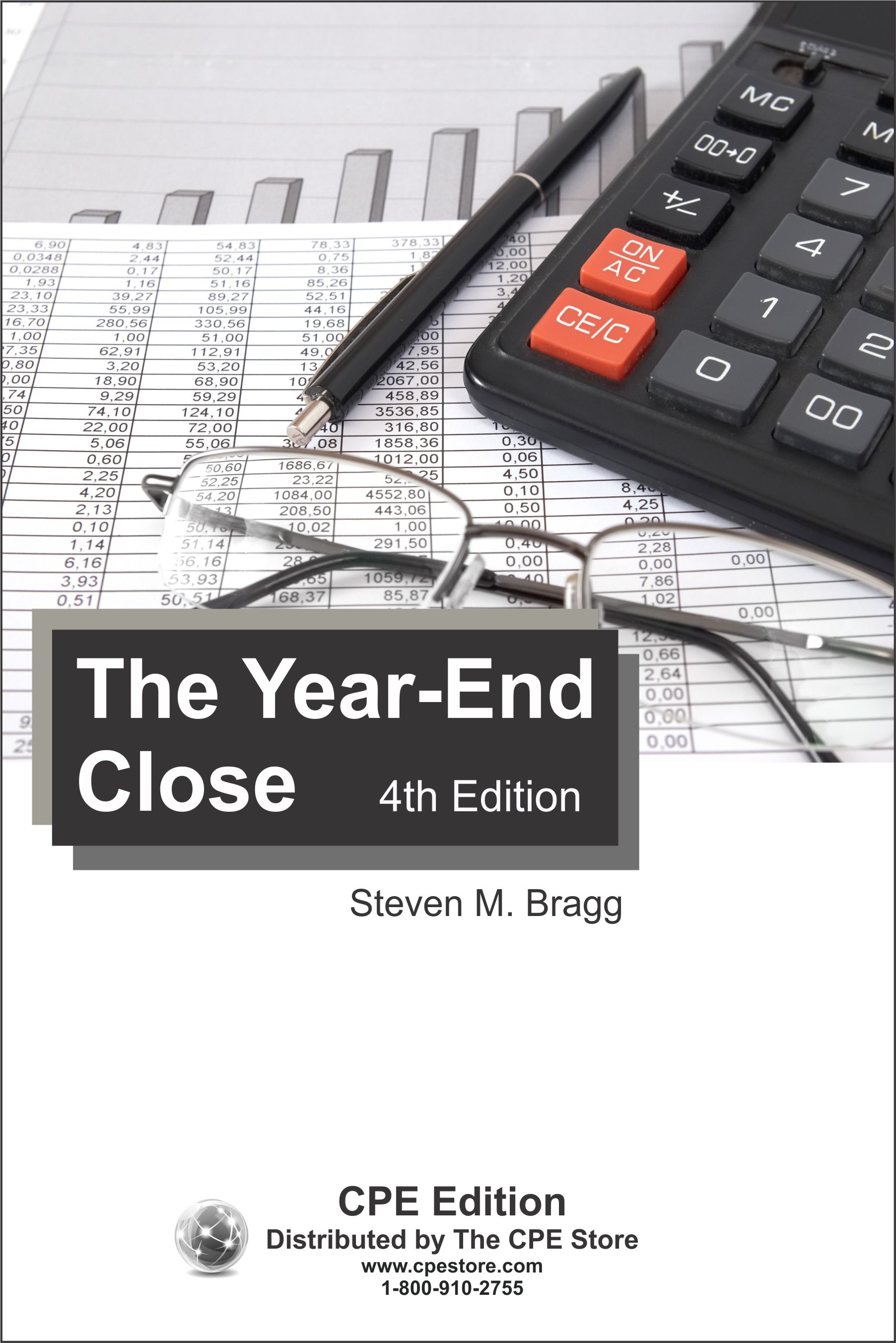
Course number: AA457204
This course notes the actions to be taken to close the books at the end of the fiscal year, as well as other activities required at the end of the calendar year. There is a particular emphasis on several major areas of accounting, including receivables, inventory, fixed assets, payables, and payroll. Additional tasks required for the year-end close of a publicly held company are also described. Course level: Basic. Prerequisites: None. Course includes integrated text and study guide, final exam and grading service.NASBA field of study: Accounting Course credit: 3 hours
Printed Version$29
PDF$29
Colleague Test(s)$15
Contents
Treasurer's Guidebook
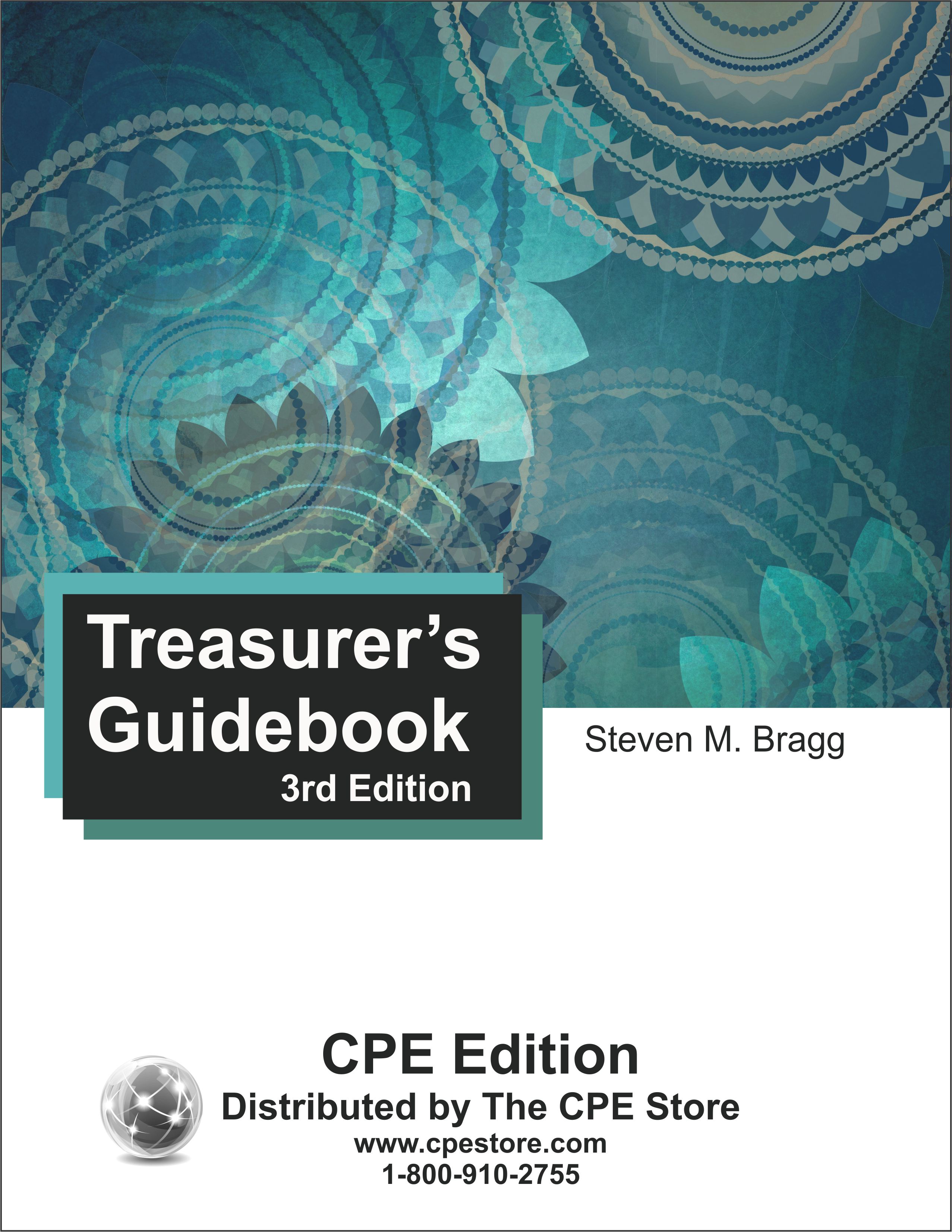
Course number: B459503
This course discusses how the treasury department’s performance can be organized and fine-tuned, focusing on bank relations, cash concentration systems, investment strategies, financing sources, credit management, insurance, and more. The course also addresses the administrative aspects of the treasurer’s job, including the accounting for treasury transactions, treasury management systems, controls, and measurements. Course level: Basic. Prerequisites: None. Course includes integrated text and study guide, final exam and grading service.NASBA field of study: Finance Course credit: 16 hours
PDF$109
Colleague Test(s)$50
Contents
Understanding Living Trusts

Course number: B571016
This course provides a complete understanding of living trusts and how they can be used by people of all estate sizes to transfer their property after their death without any attorneys or court involvement. In addition to gaining a thorough understanding of living trusts, this course will provide all the tools necessary to create your own living trust. You’ll learn: the types of trusts and how to determine which is right for you; choosing what property to put in your trust; selecting trustees and beneficiaries; special considerations when property is left to minor children or young adults; and more. The text was written by an attorney specializing in estate planning and includes easy-to-follow step-by-step instructions, helpful worksheets, and an online link to most of the forms discussed in the course. Also contains a complete set of reproducible ready-to-use forms. Course level: Basic. Prerequisites: None. Course includes integrated text and study guide, final exam, and grading service.NASBA field of study: Specialized Knowledge Course credit: 18 hours
PDF$119
Colleague Test(s)$55
Contents
Wealth Management

Course number: FP471502
The best way to accumulate a significant amount of wealth is by creating and following through on a financial plan. In the Wealth Management course, we show how to create such a plan, while also discussing how to preserve your existing wealth, and enroll the services of a financial advisor. The course also covers the essential elements of all key types of investments, including stocks, bonds, real estate, and alternative investments. In addition, the course covers a variety of related topics, including charitable contributions, insurance, and individual retirement accounts. In total, the course is designed to give you a firm grounding in wealth management principles. Course level: Basic. Prerequisites: None. Course includes integrated text and study guide, final exam, and grading service.NASBA field of study: Specialized Knowledge Course credit: 8 hours
Printed Version$69
PDF$69
Colleague Test(s)$25
Contents
Working Capital Mini-Course

Course number: B459404
Discusses how to reduce the adverse funding effects caused by working capital. The discussion includes a number of specific recommendations on how to manage cash, receivables, inventory, and payables. The course also addresses the operational characteristics that will allow a business to function with zero working capital. The course also examines the characteristics of different types of asset-based lending. Course level: Basic. Prerequisites: None. Course includes integrated text and study guide, final exam and grading service.NASBA field of study: Finance Course credit: 5 hours
Printed Version$39
PDF$39
Colleague Test(s)$15
Contents
Yellow Book Explained
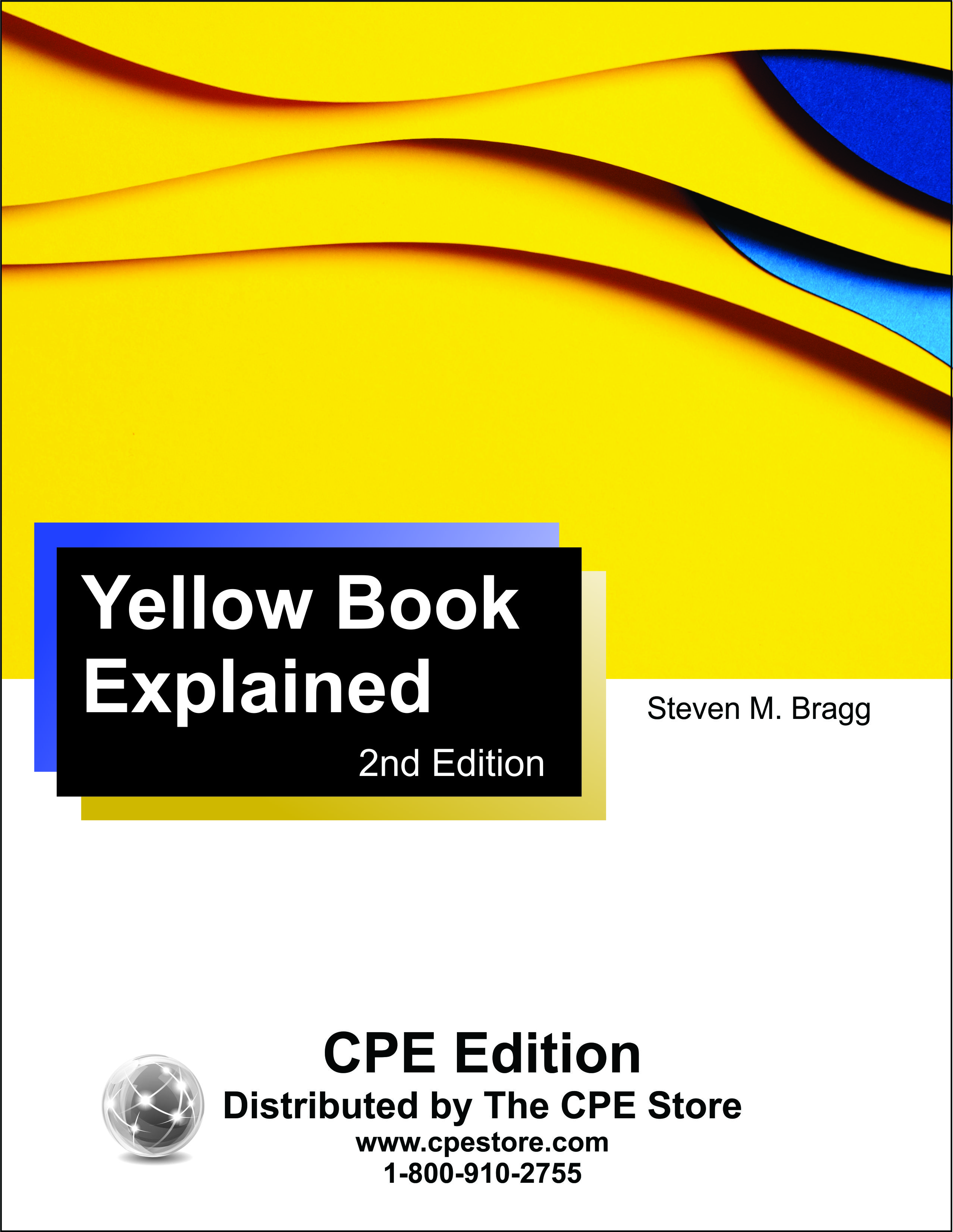
Course number: AA424402
This course is based on the 2018 Yellow Book, which is effective for financial audits, attestation engagements, and reviews of financial statements, and for performance audits for periods beginning before December 15, 2025. The new 2024 Yellow Book will become effective on December 15, 2025 and is not covered in this course. The contents of the Yellow Book may seem incomprehensible for someone not familiar with government auditing. In the Yellow Book Explained course, we convert every aspect of the standards into plain English, so you can better understand how to apply them to an audit. The course covers all aspects of GAGAS, including auditor independence, quality control, fieldwork standards, and reporting standards. This course is useful for both internal and external auditors who work with government entities. Course level: Basic. Prerequisites: None. Course includes integrated text and study guide, final exam, and grading service.NASBA field of study: Auditing (Governmental) Course credit: 4 hours
Printed Version$39
PDF$39
Colleague Test(s)$15
Contents